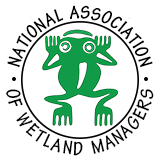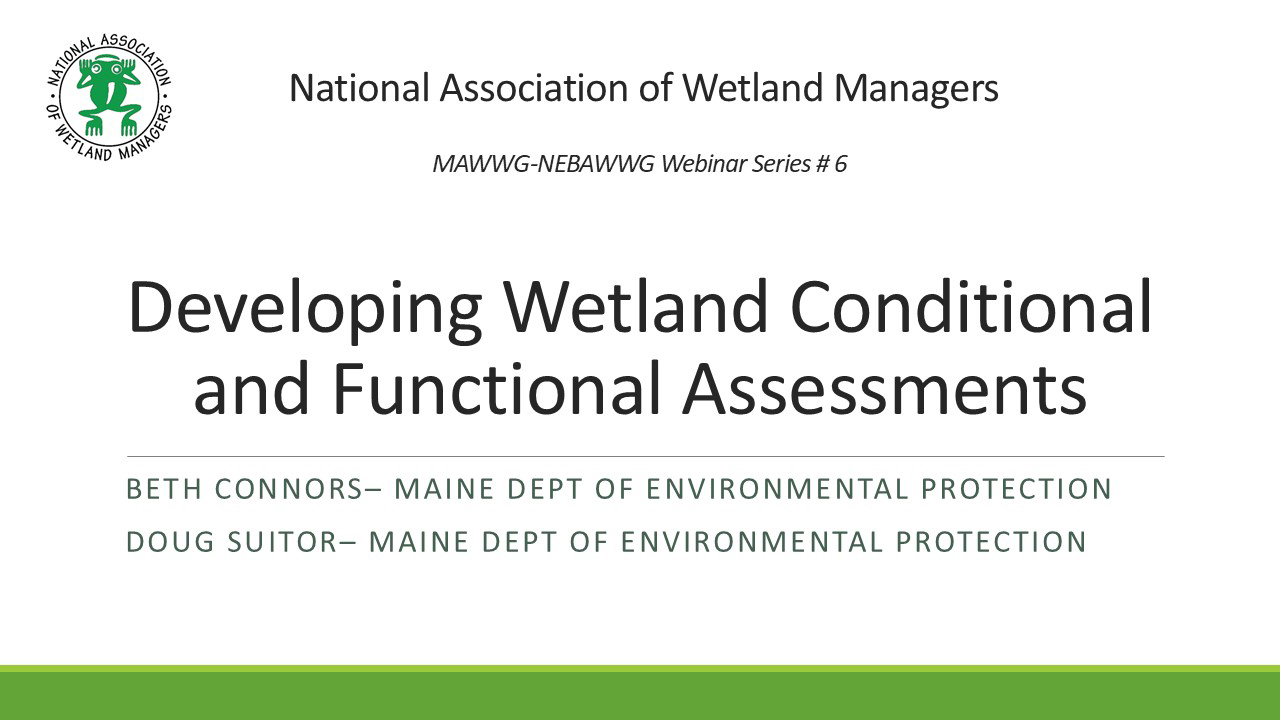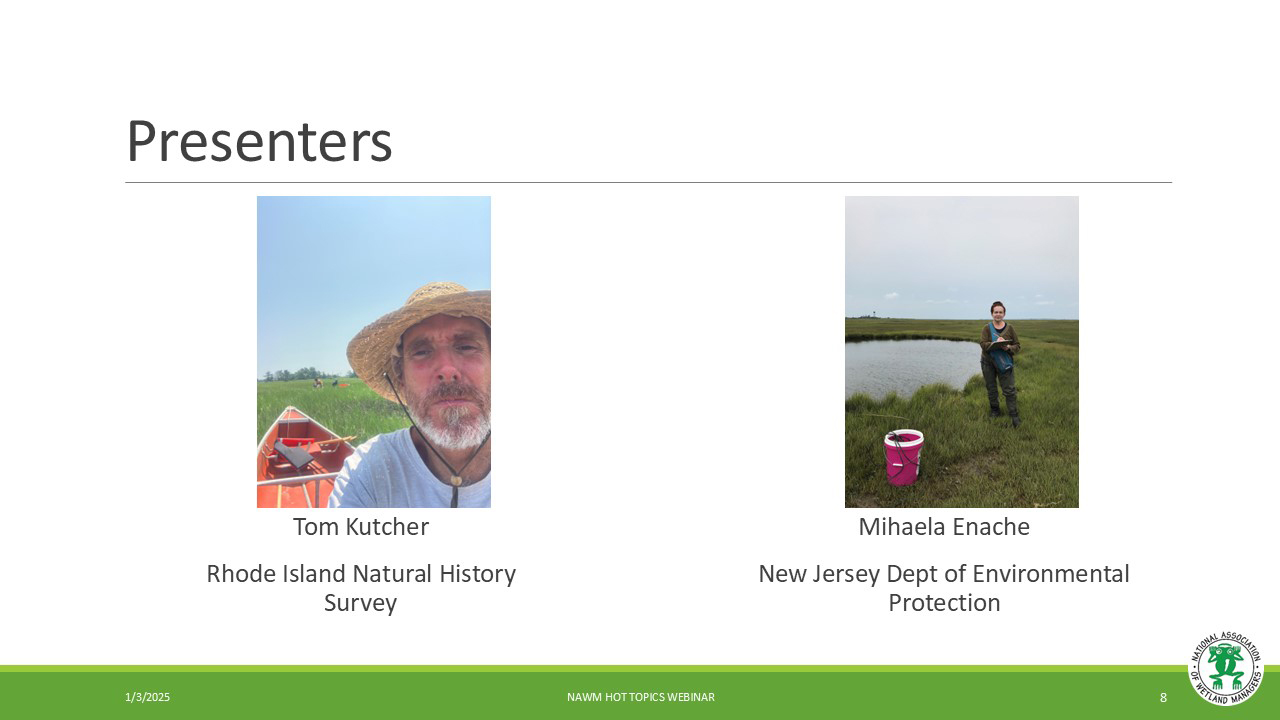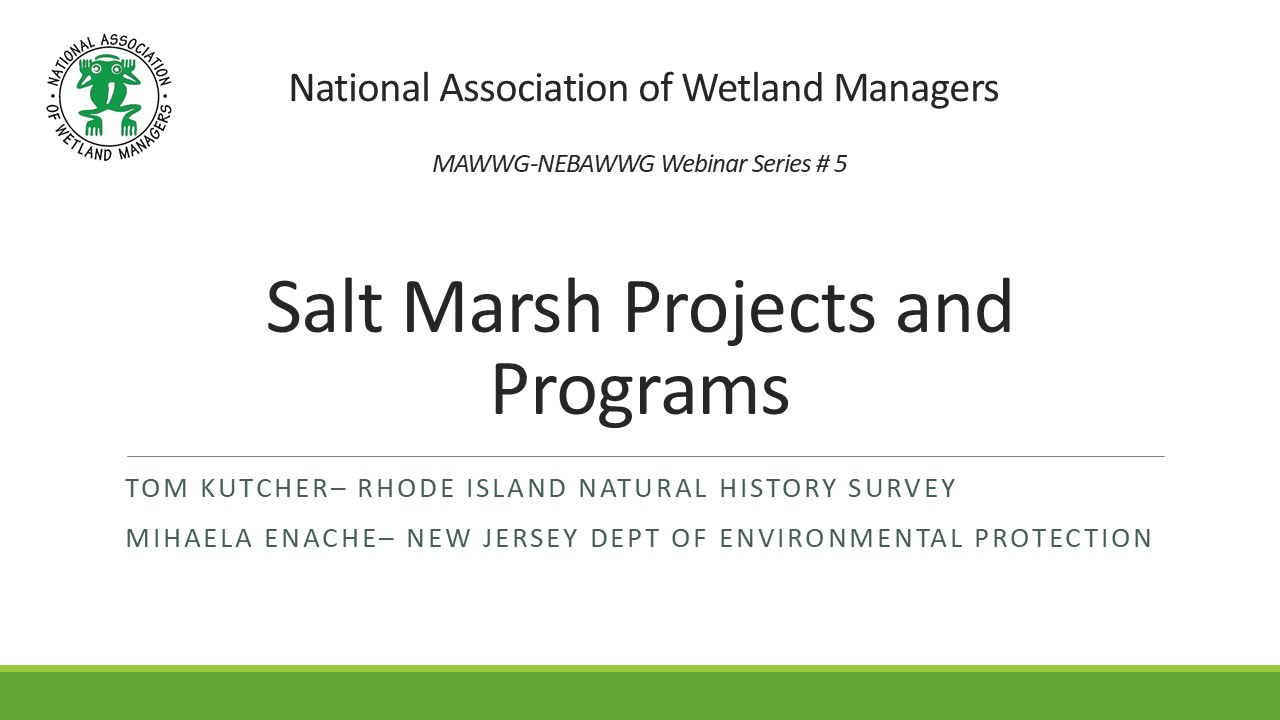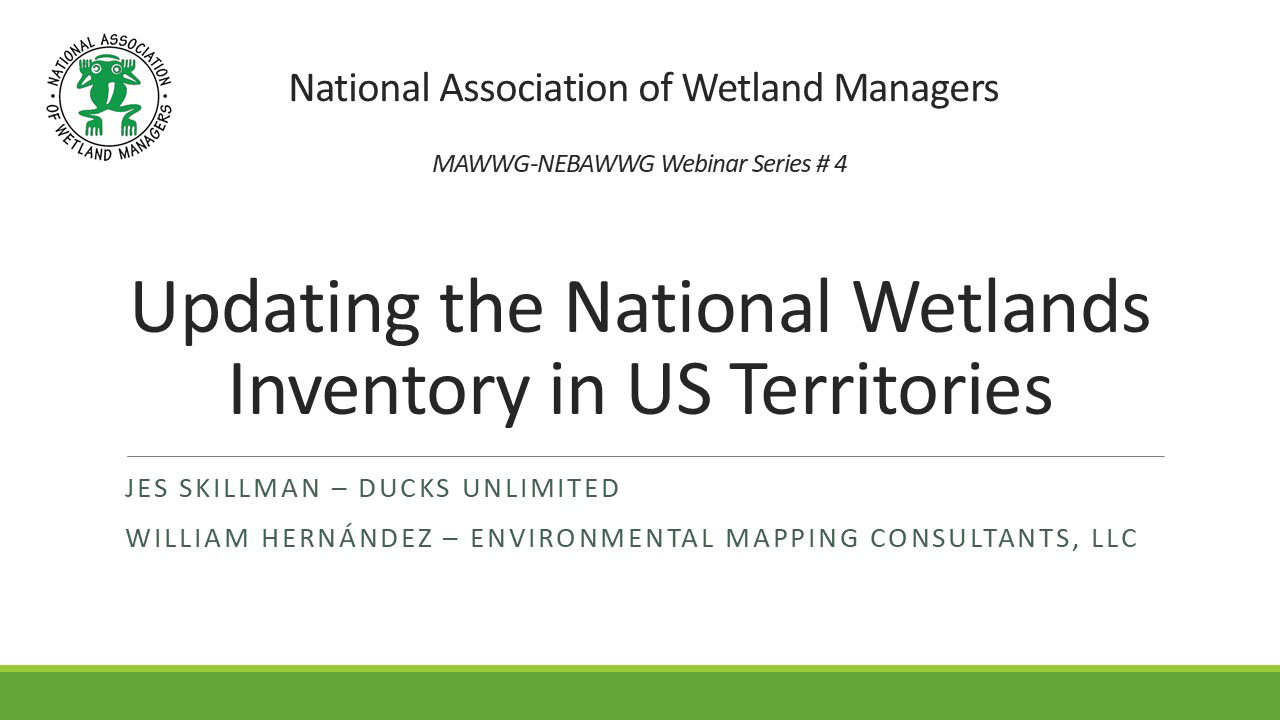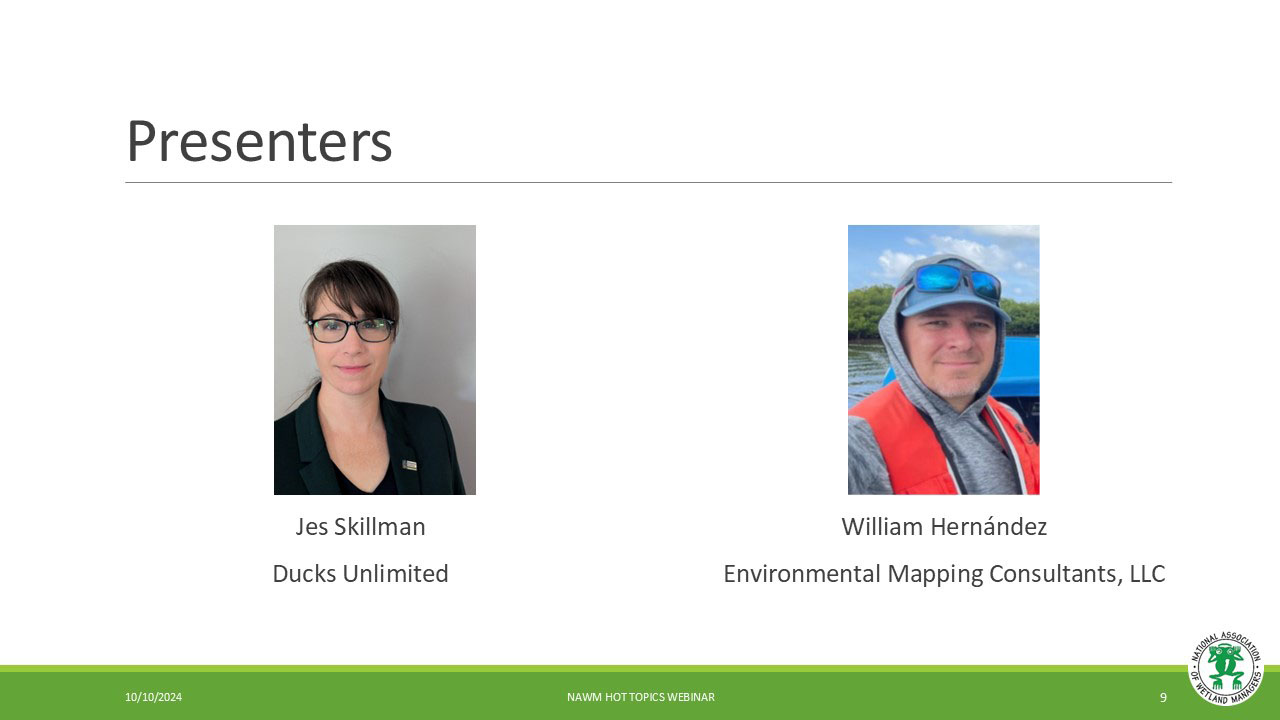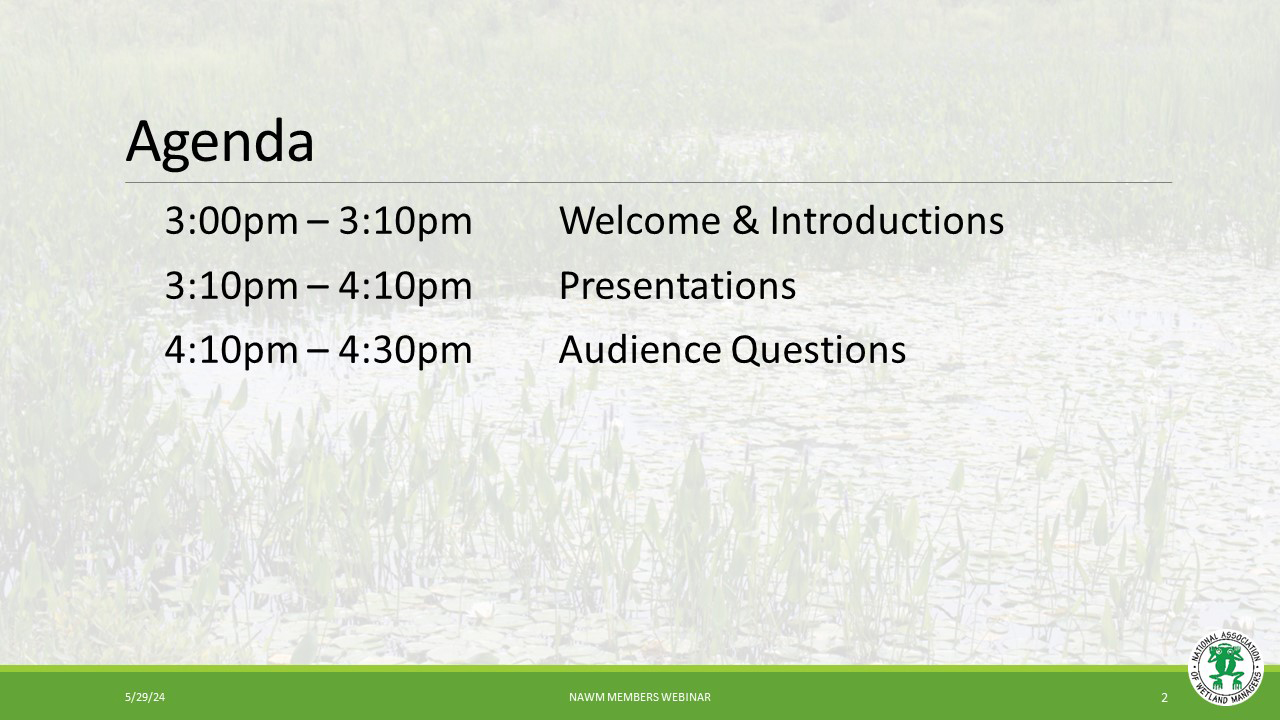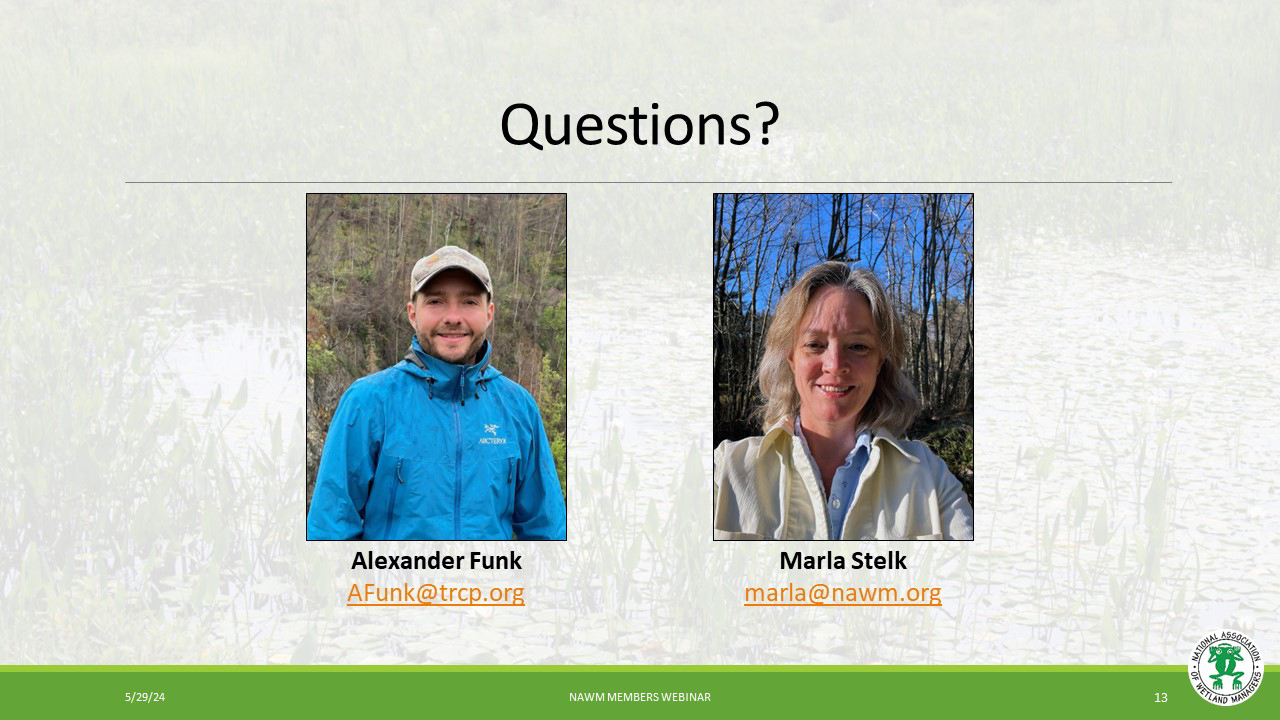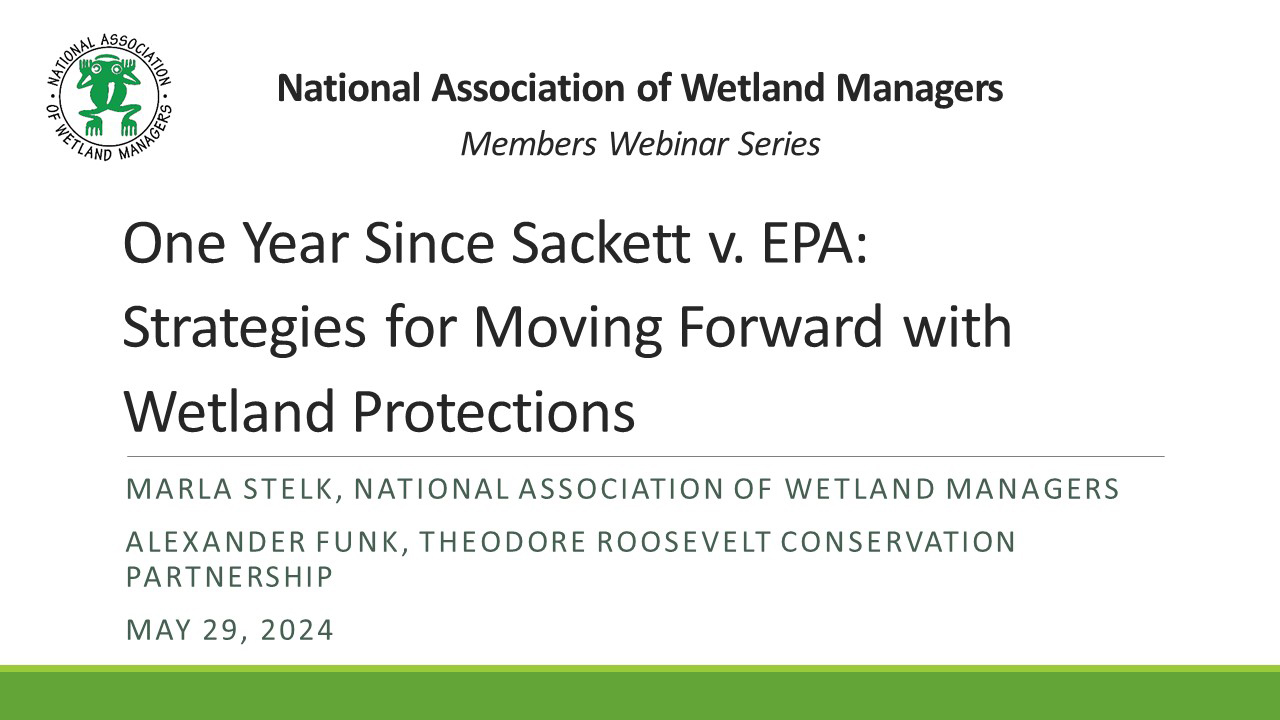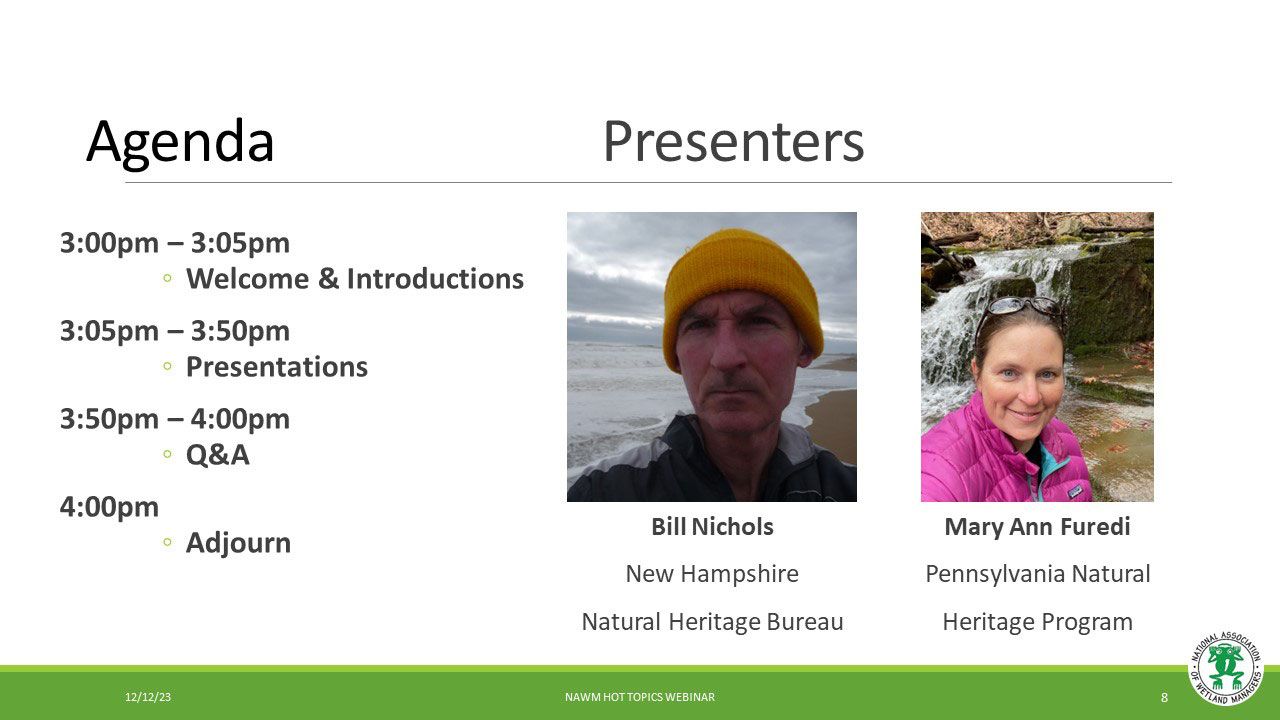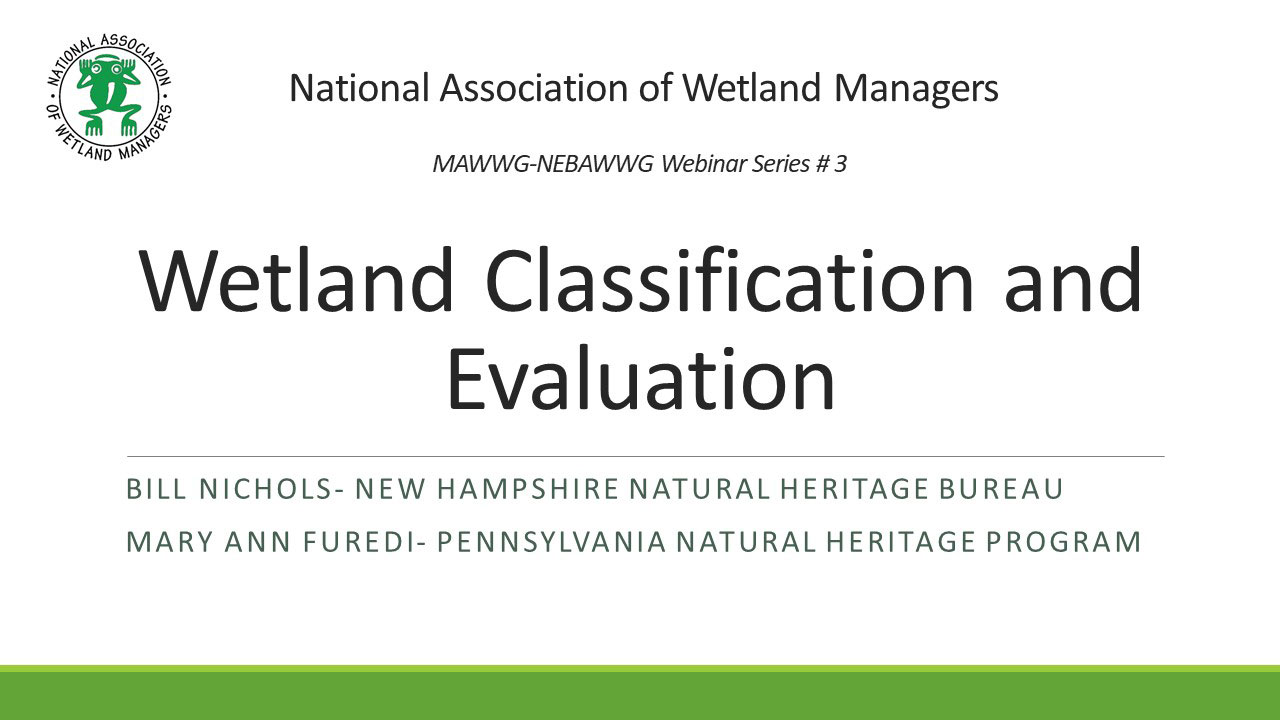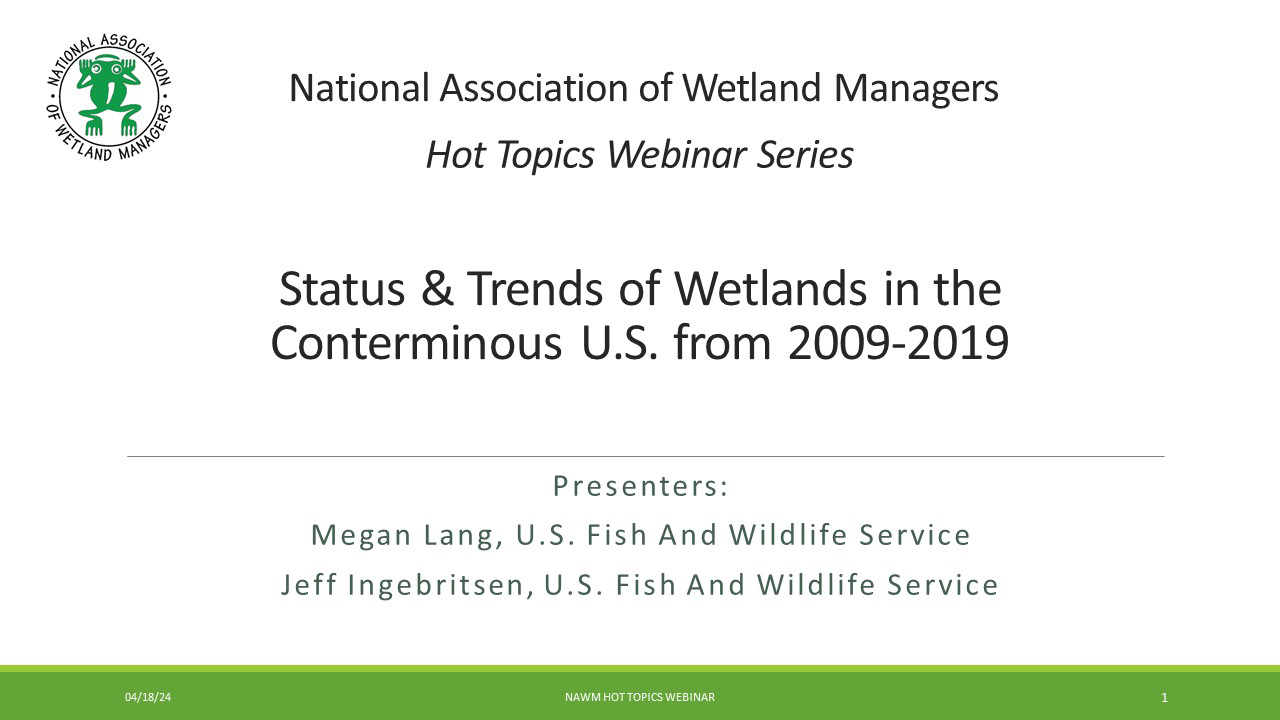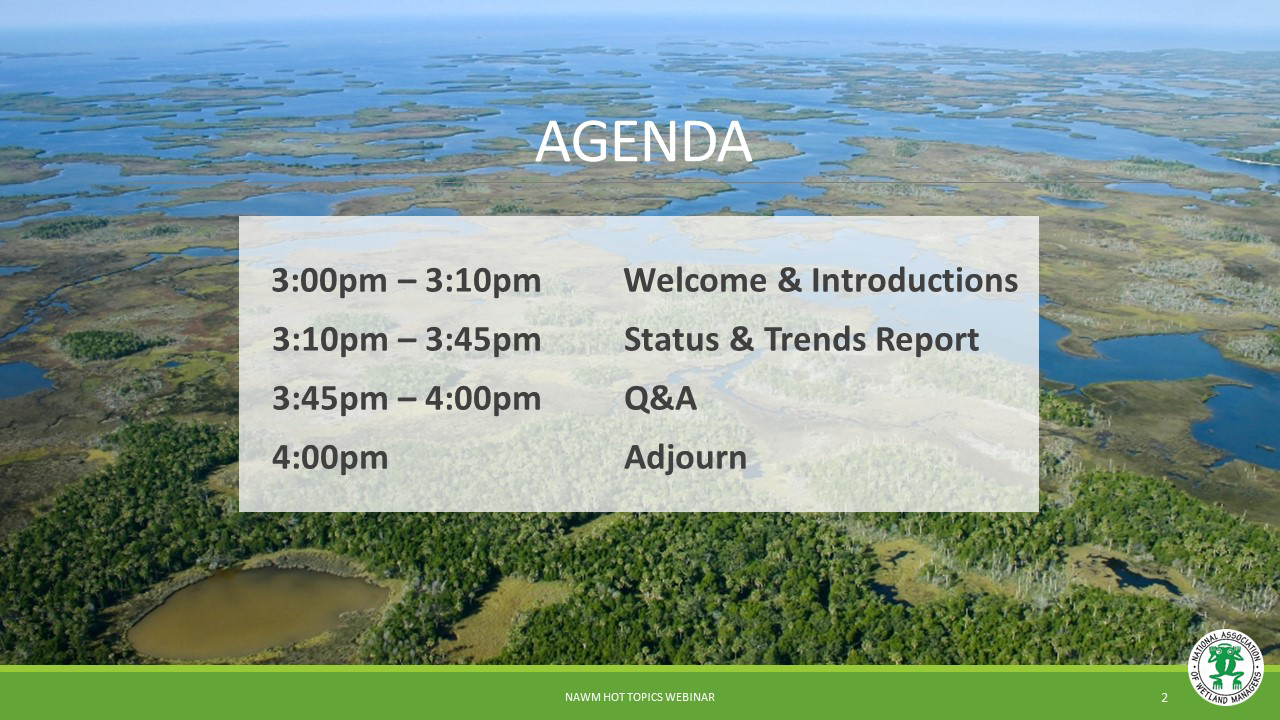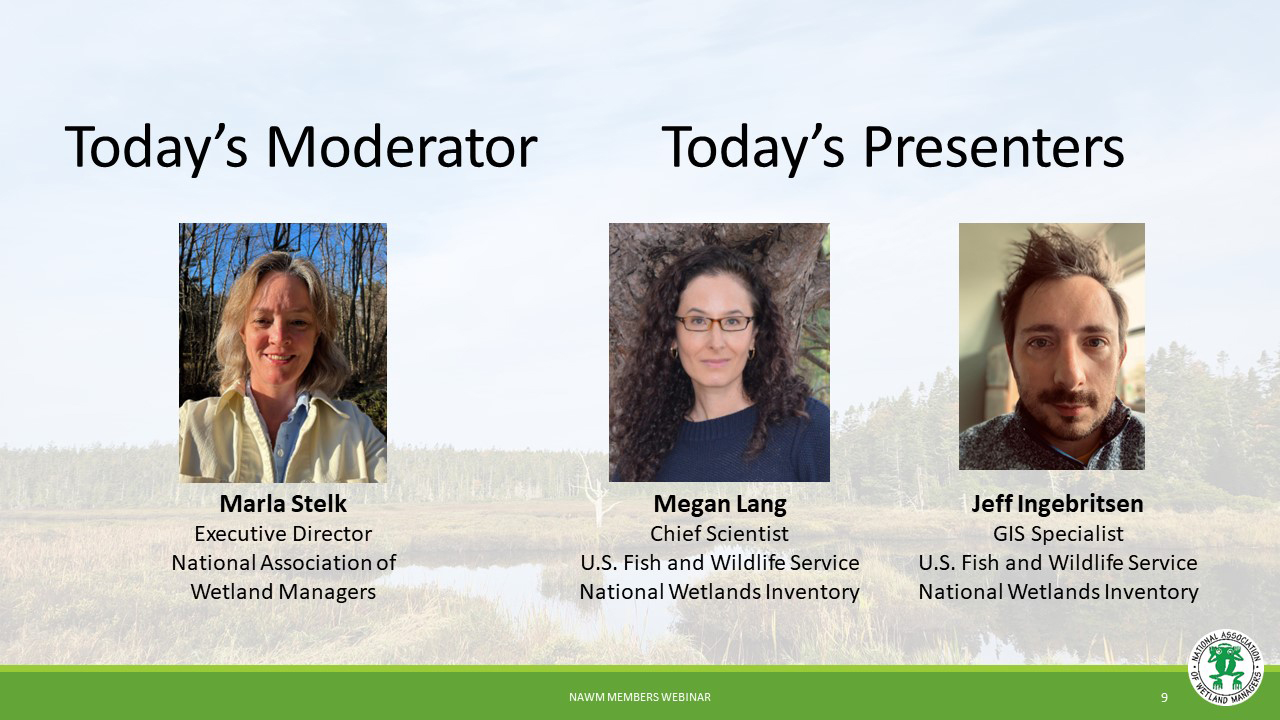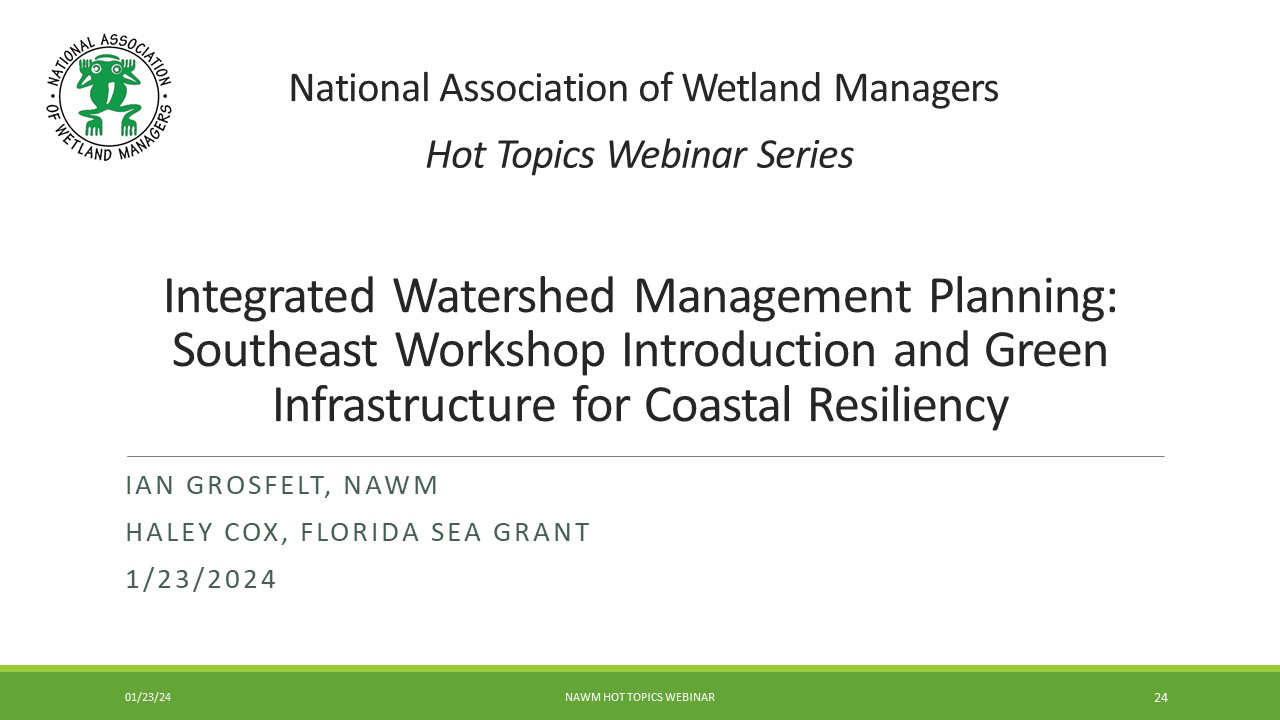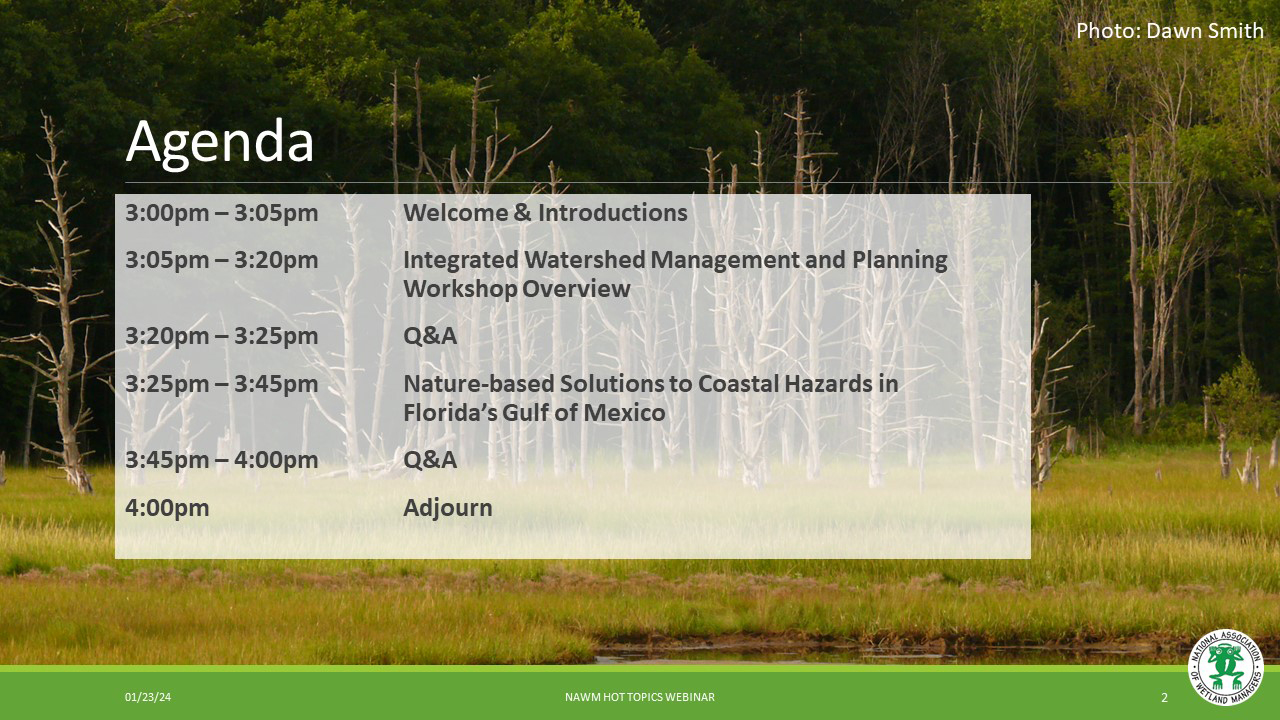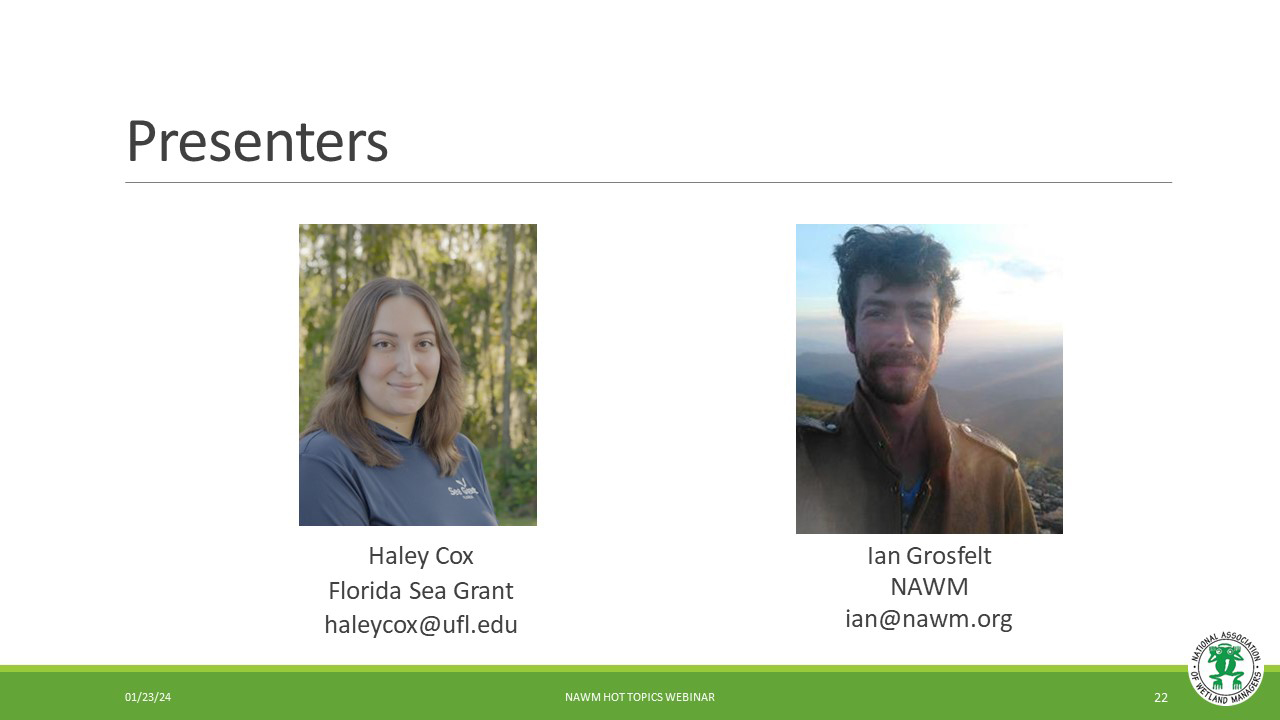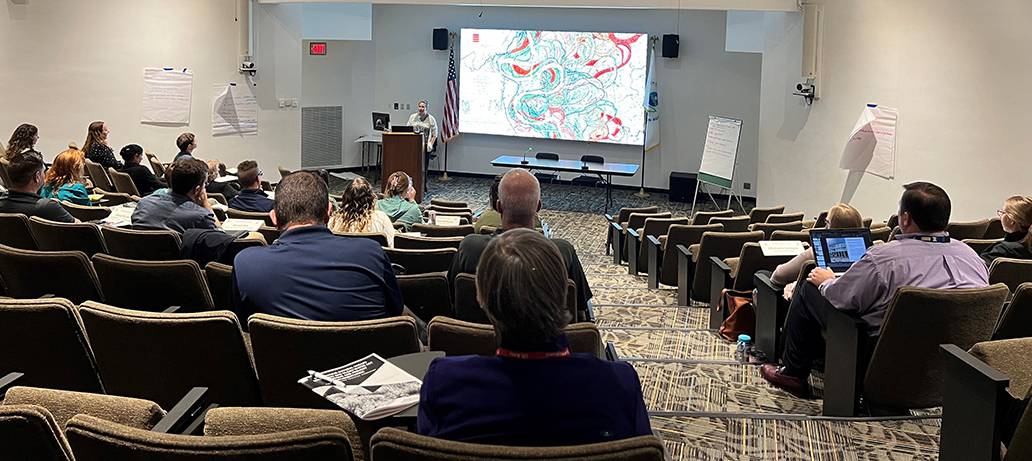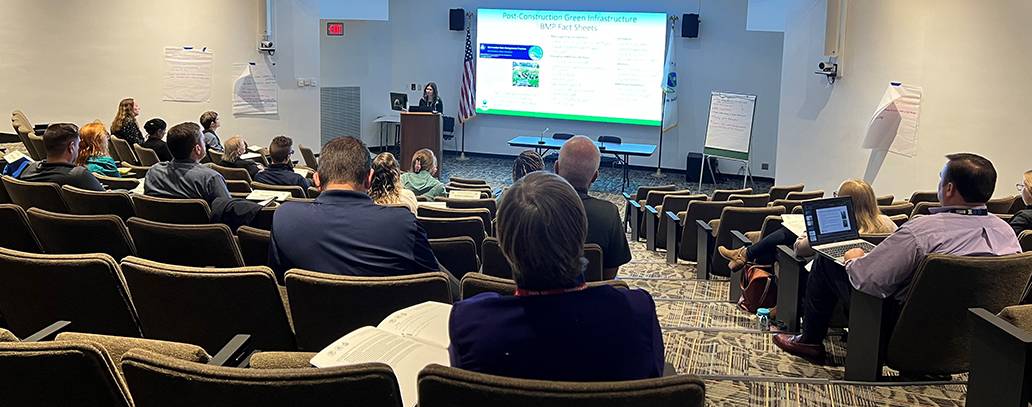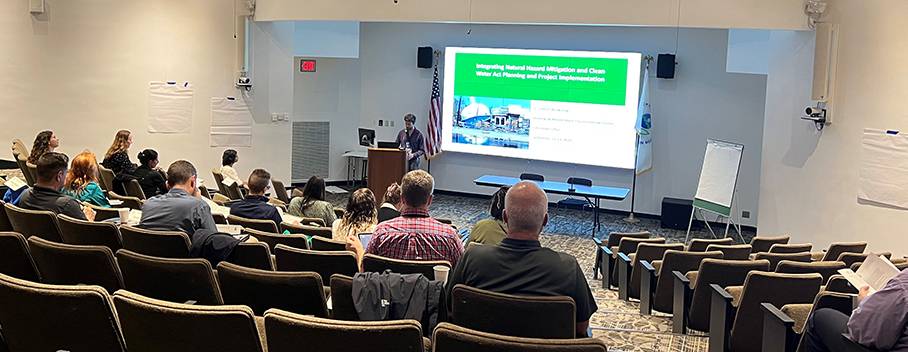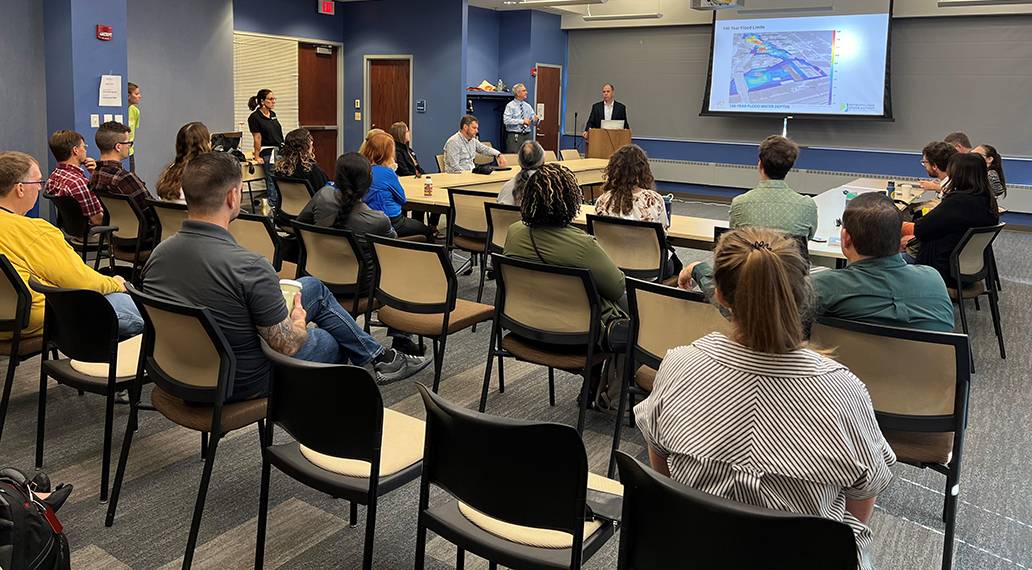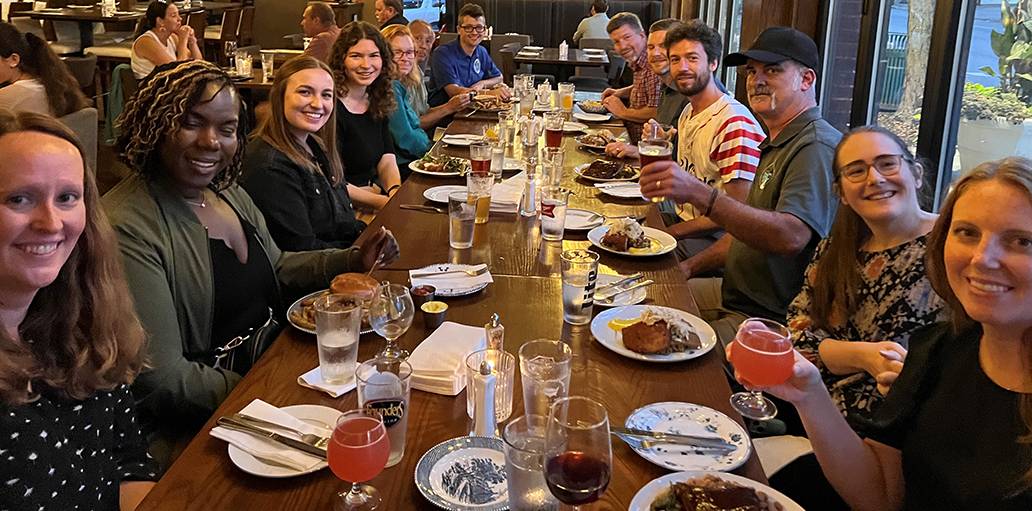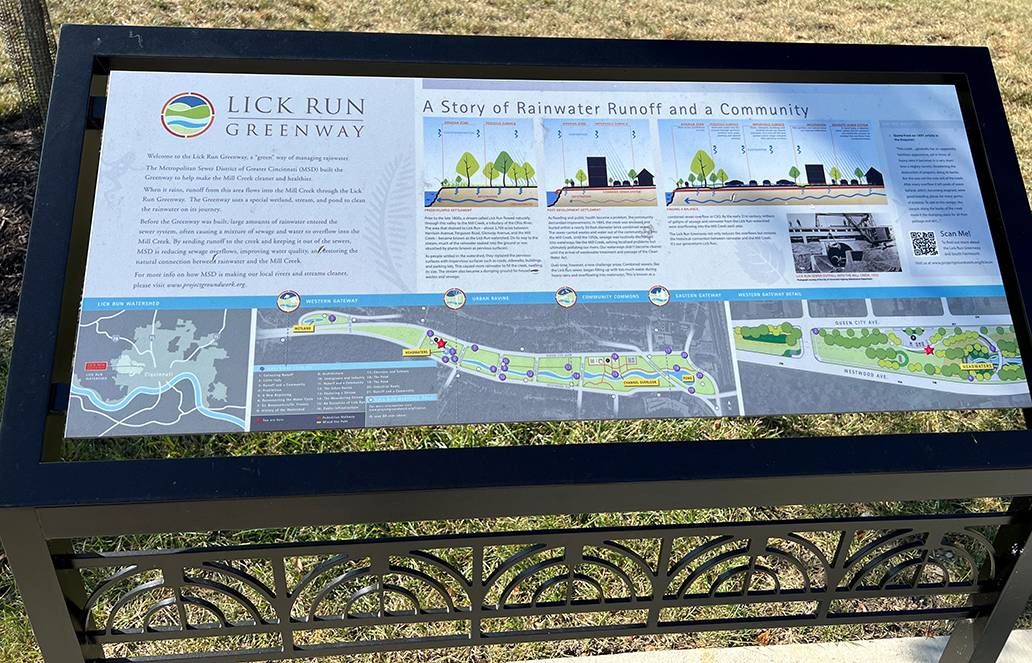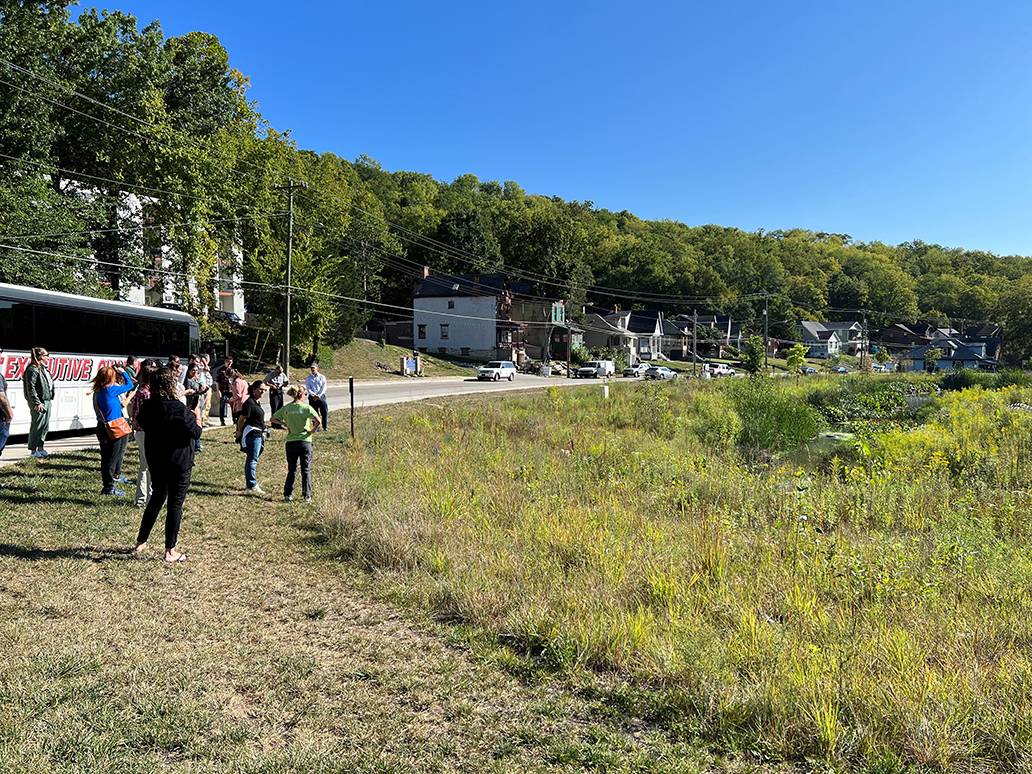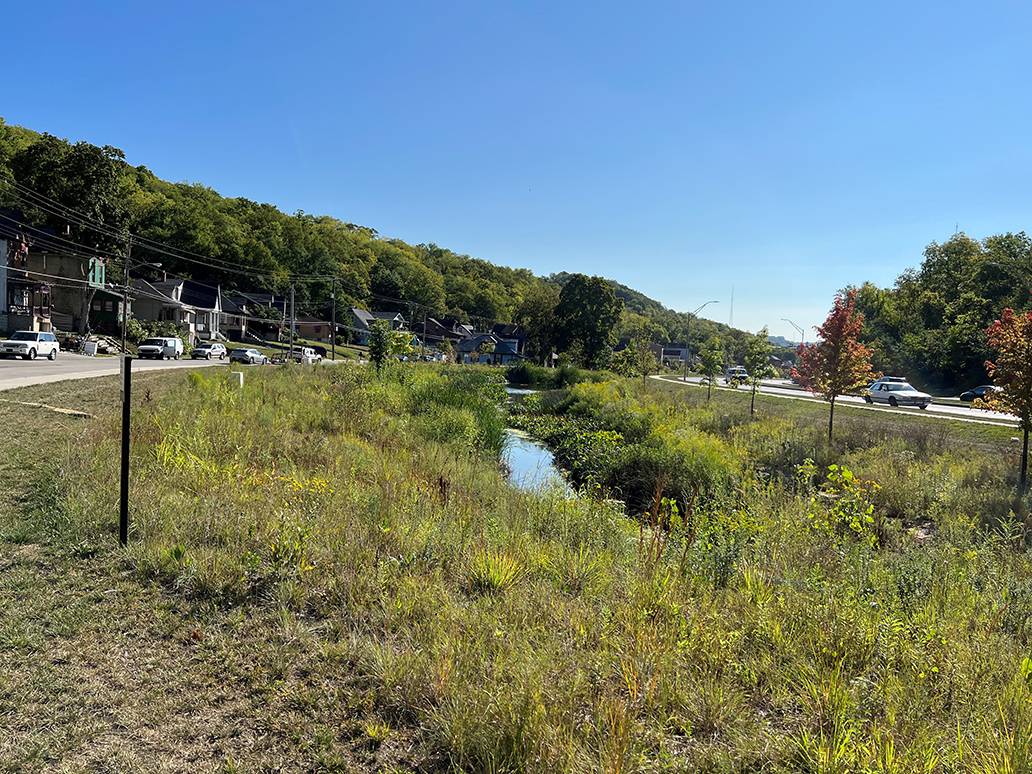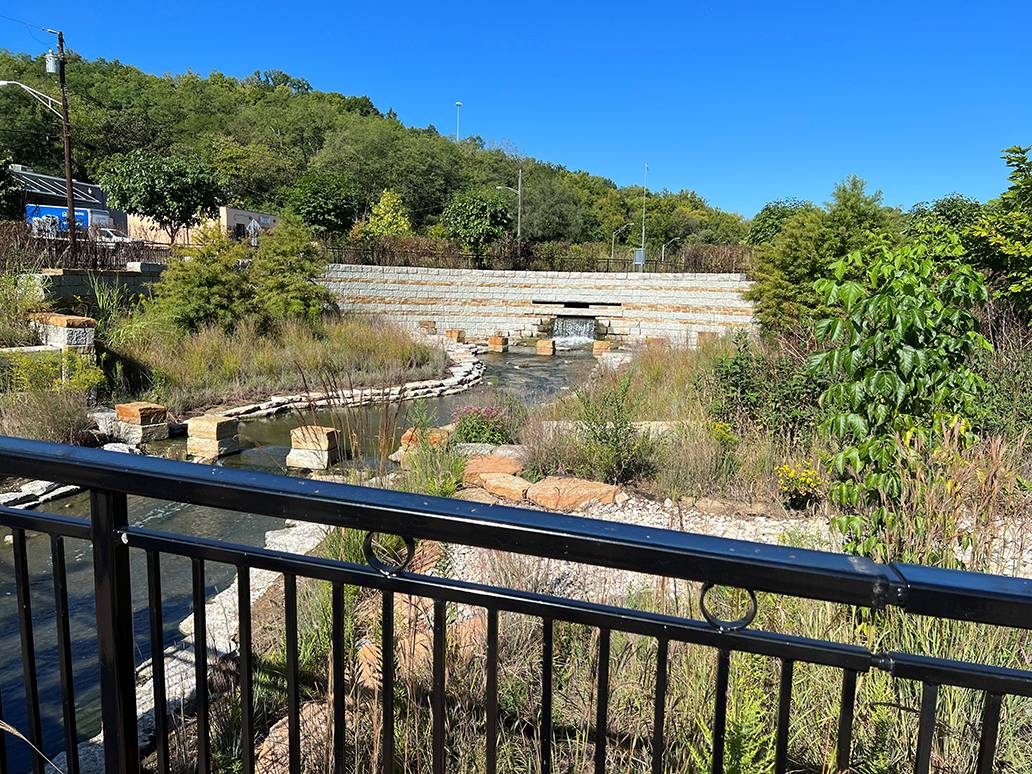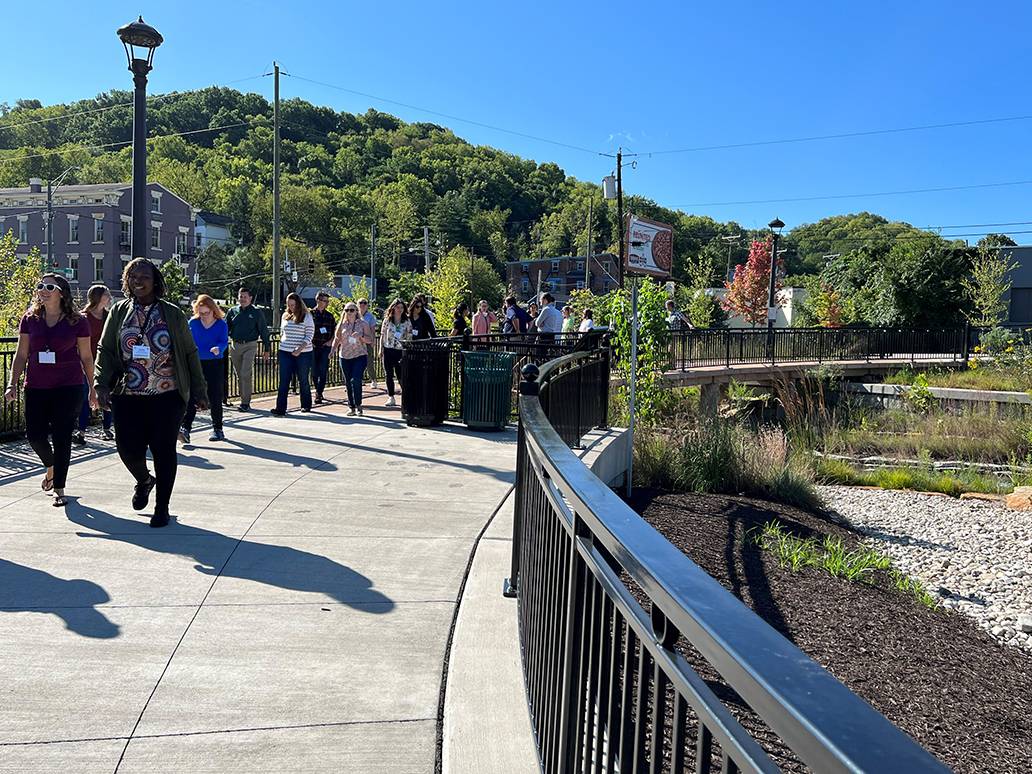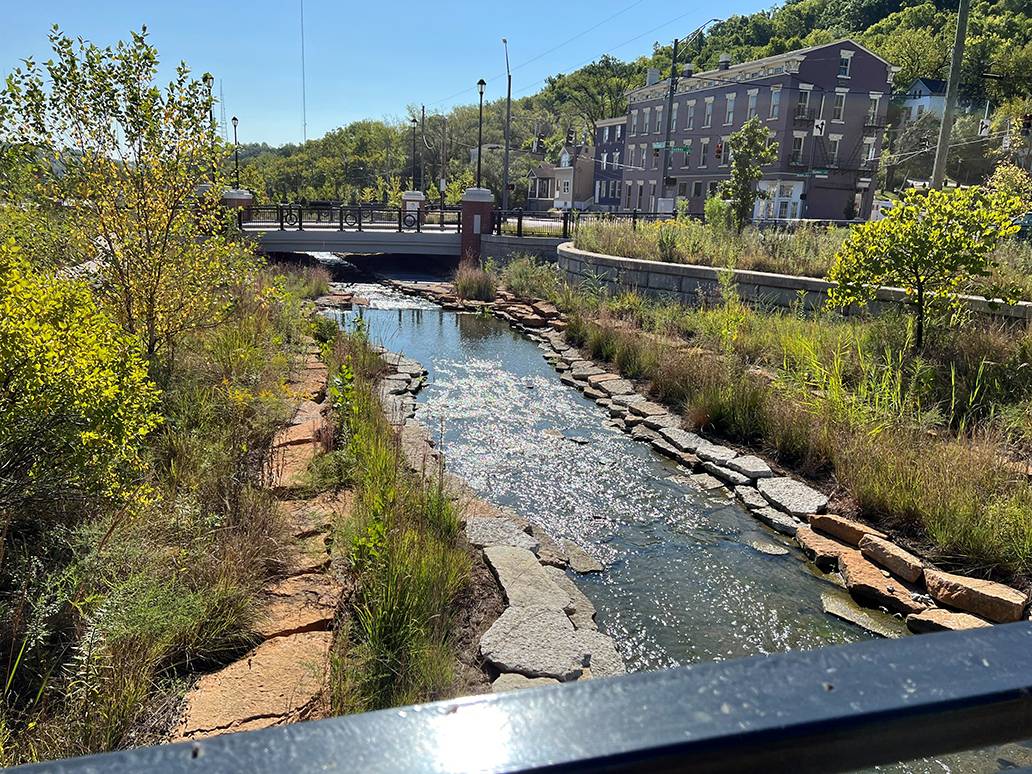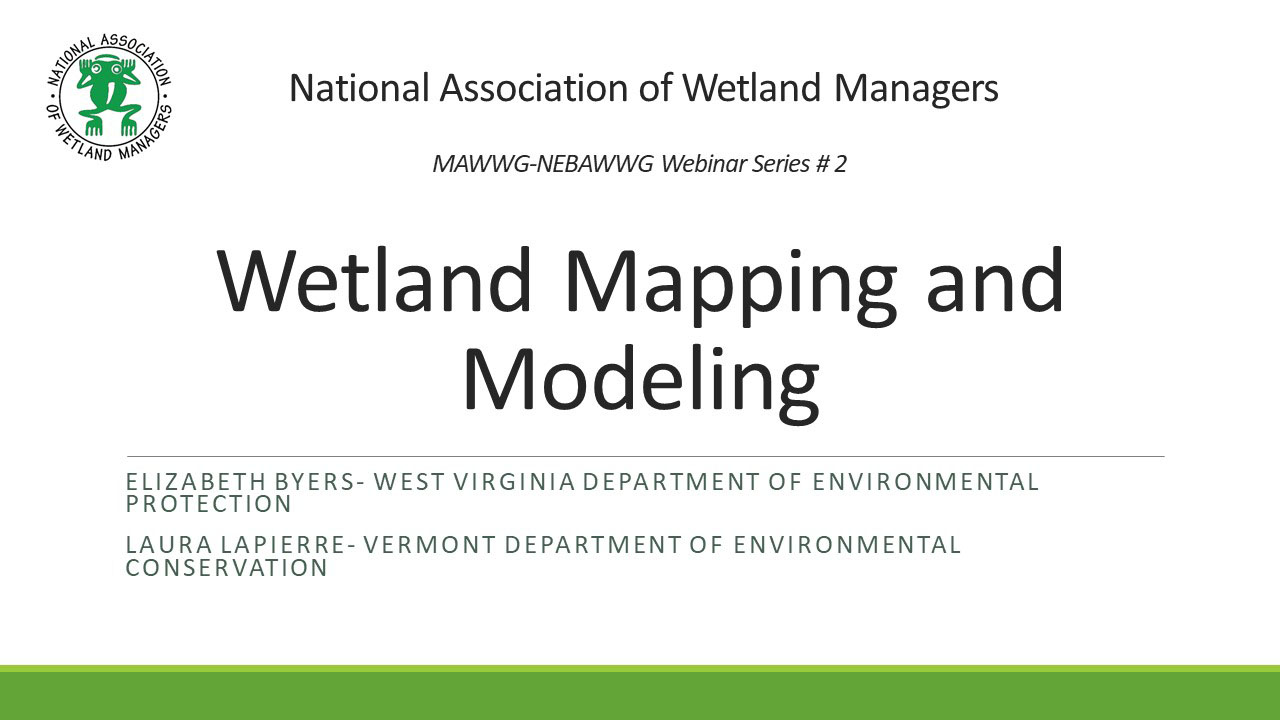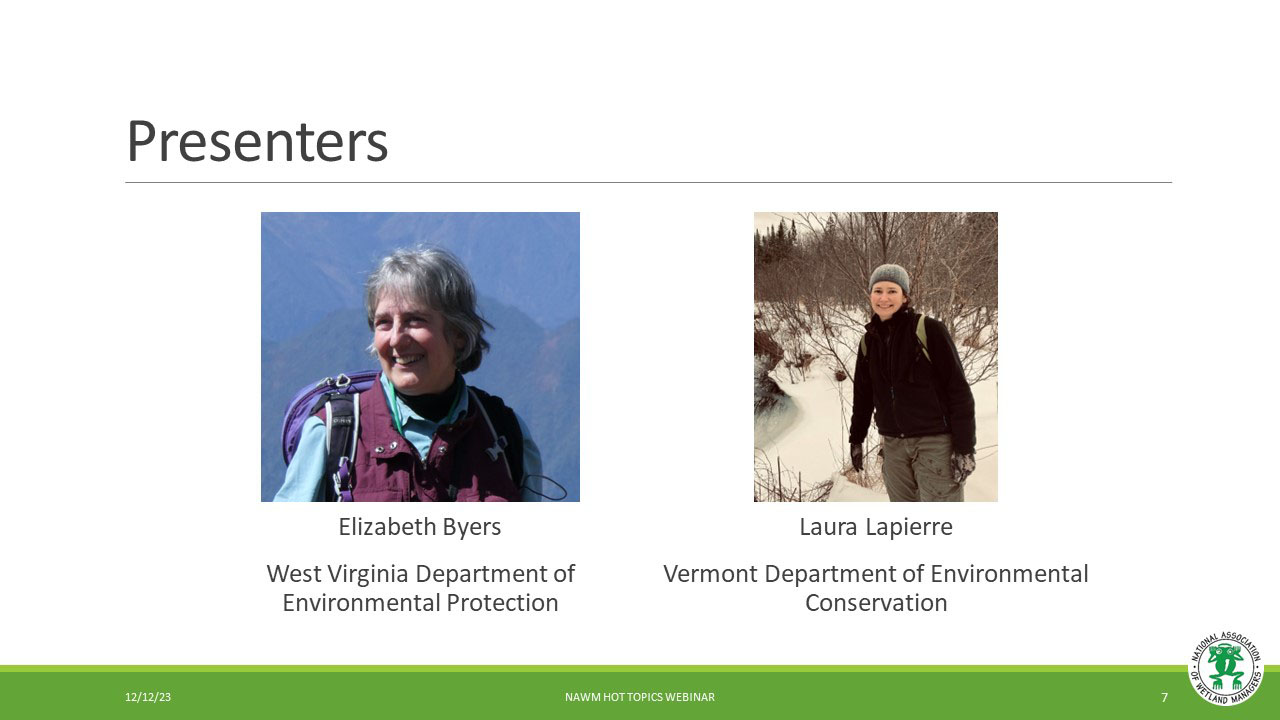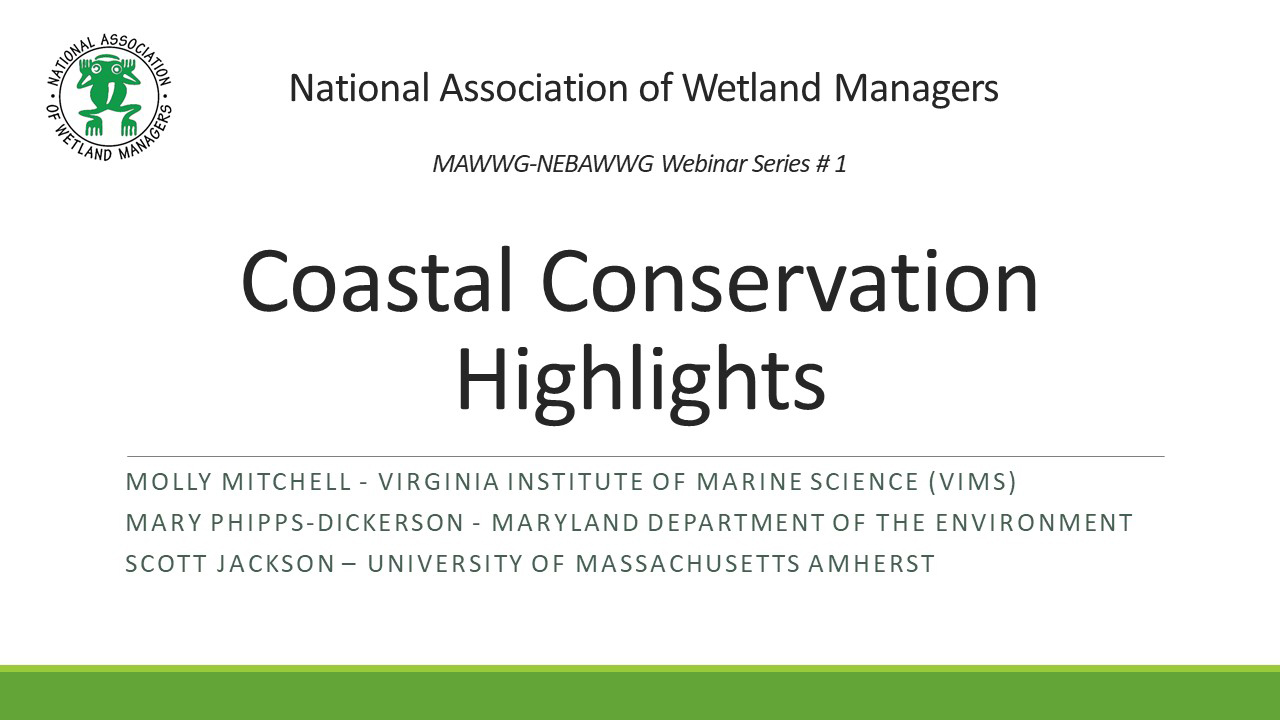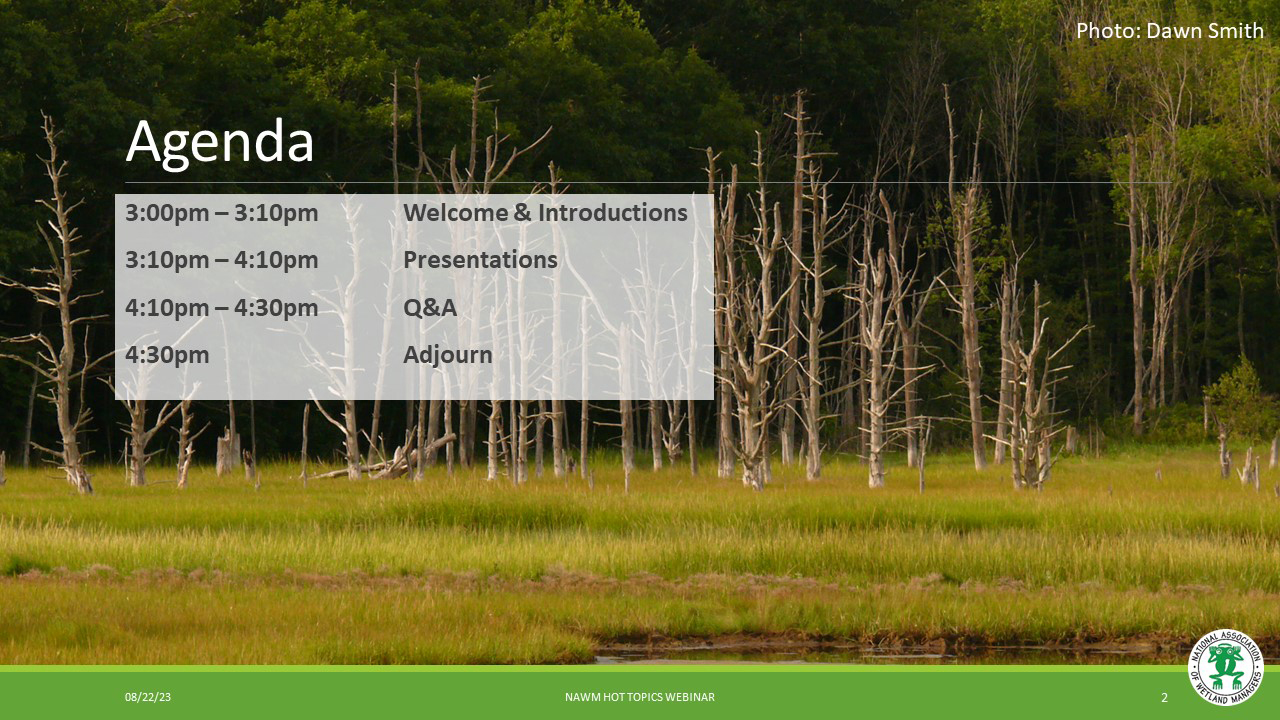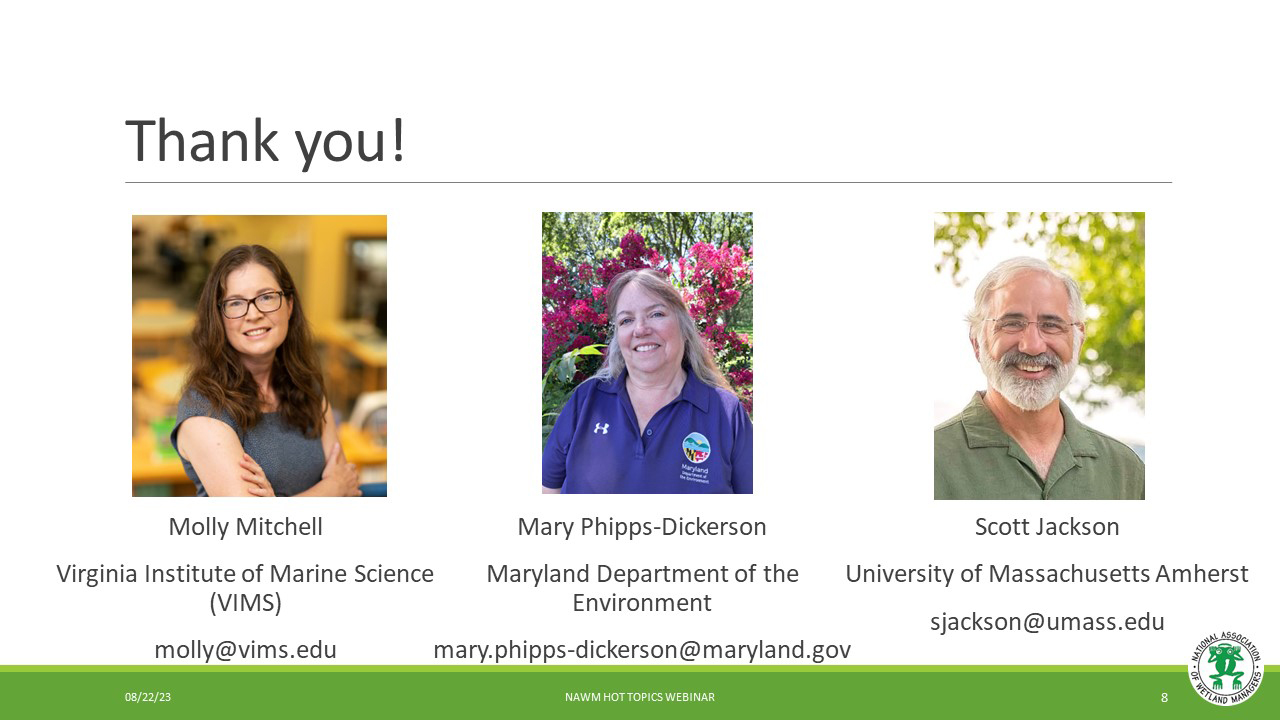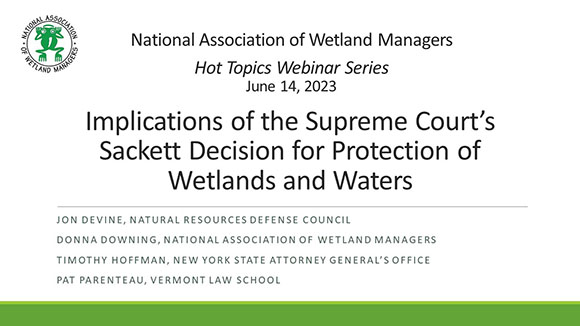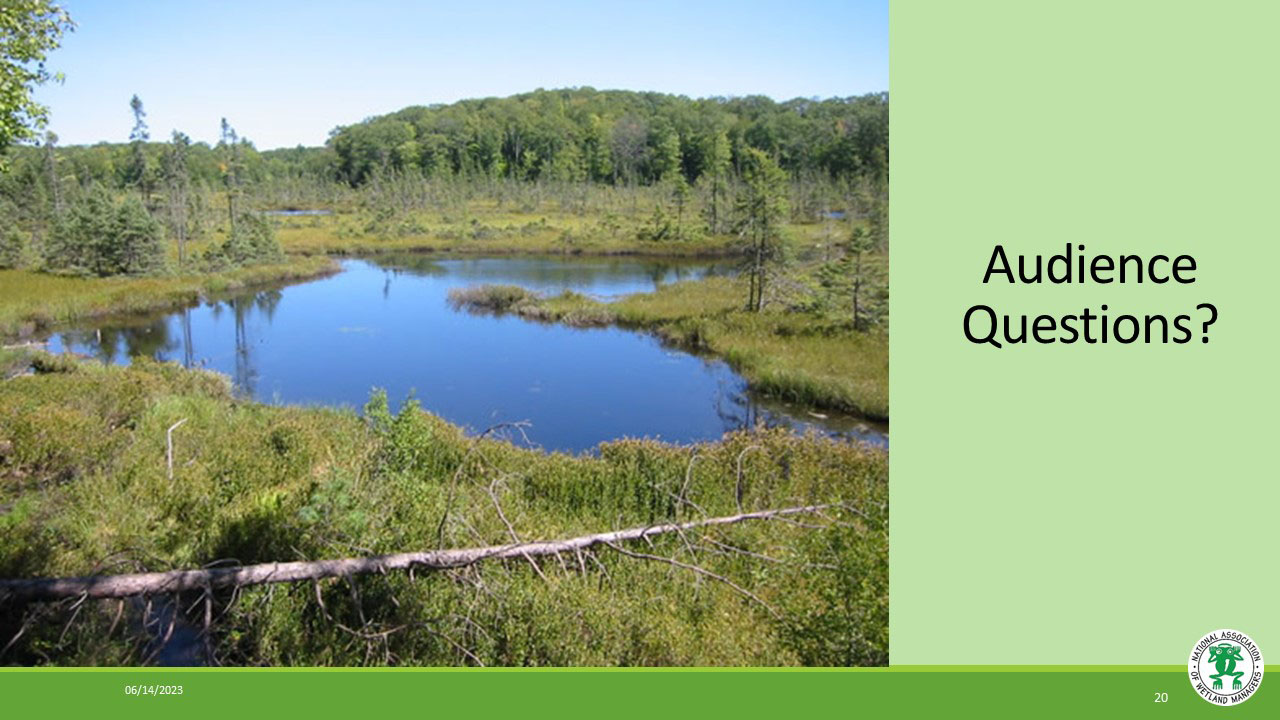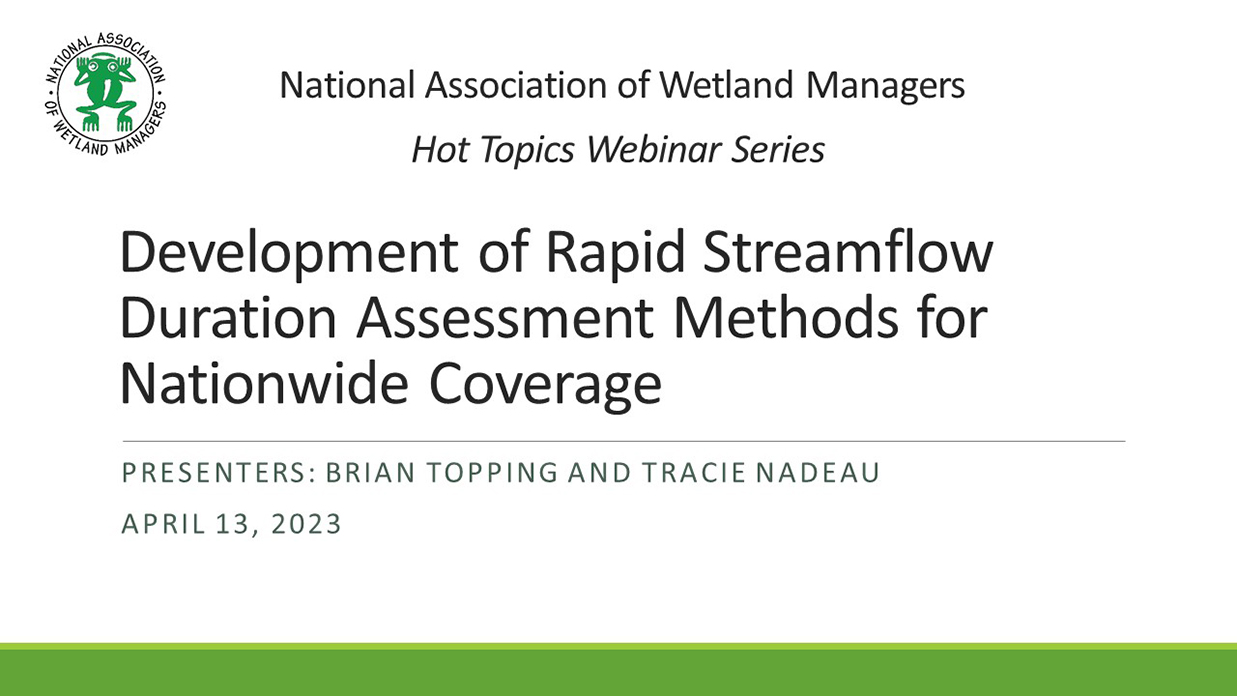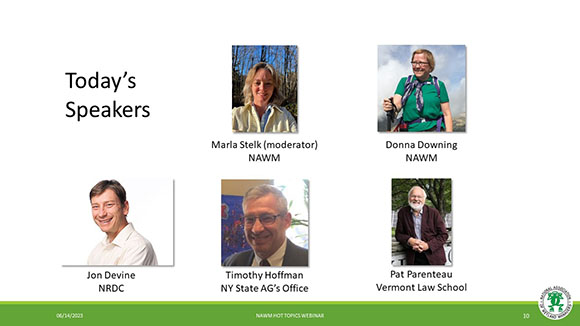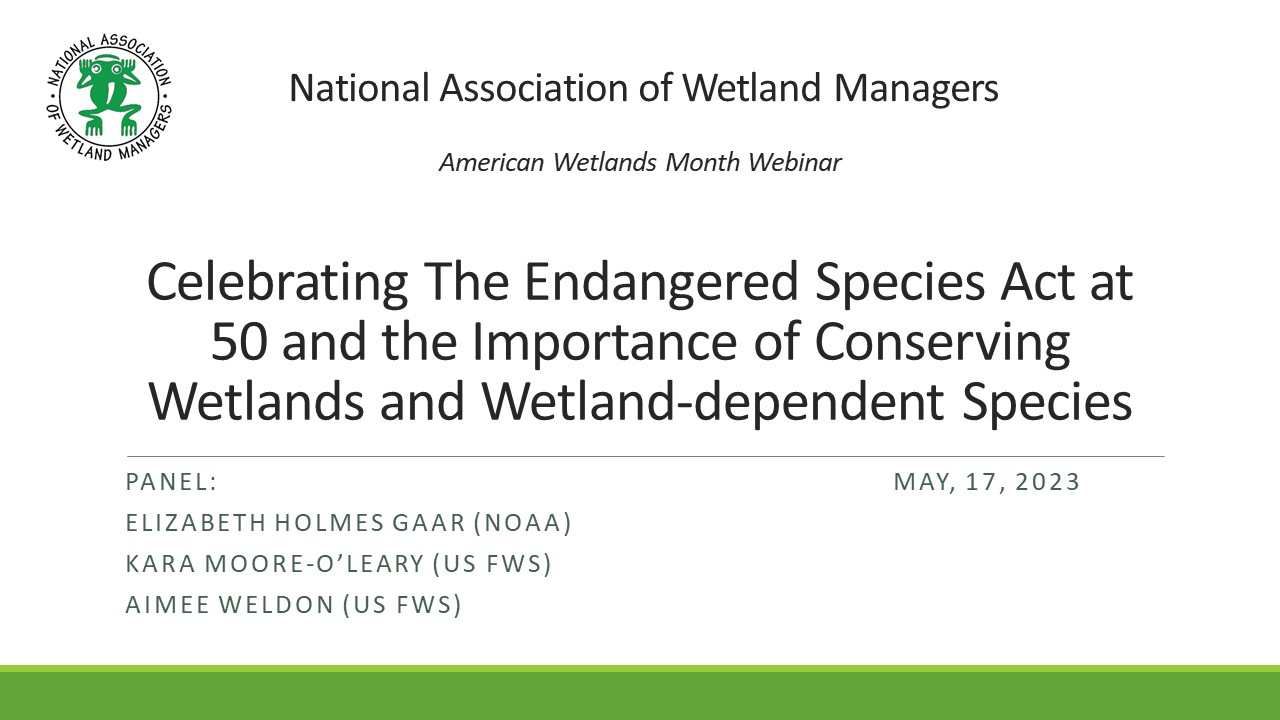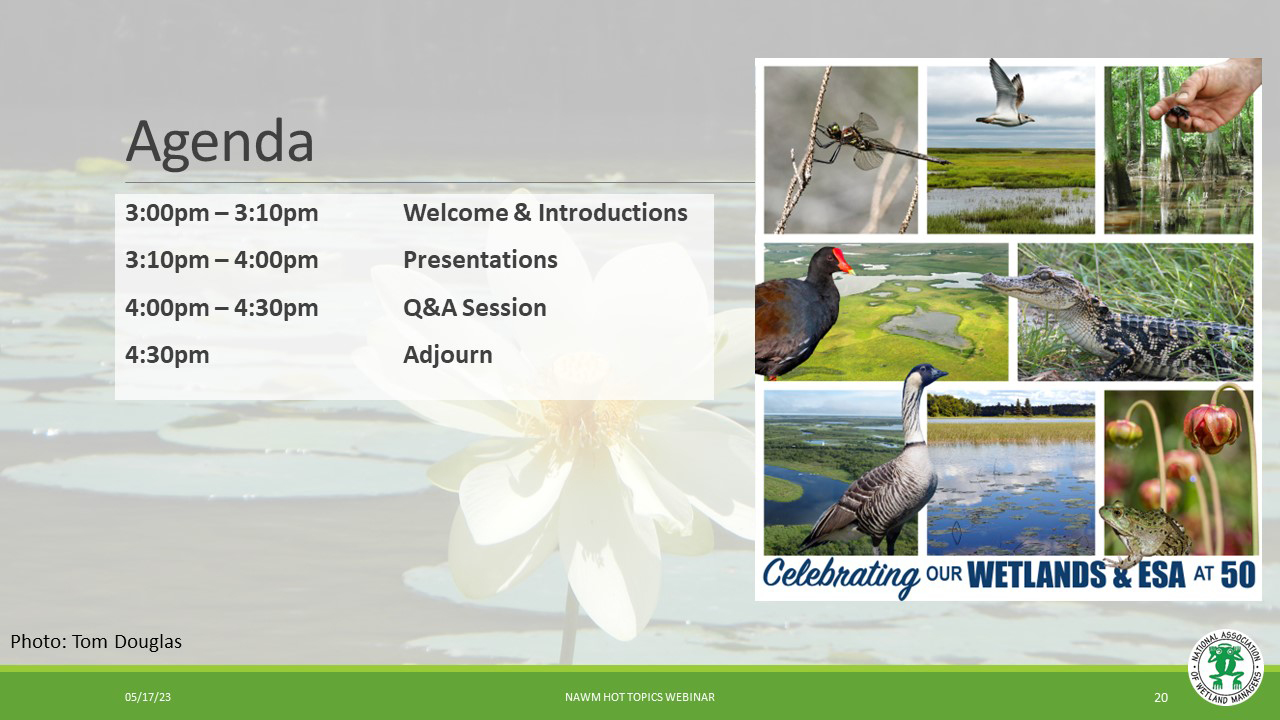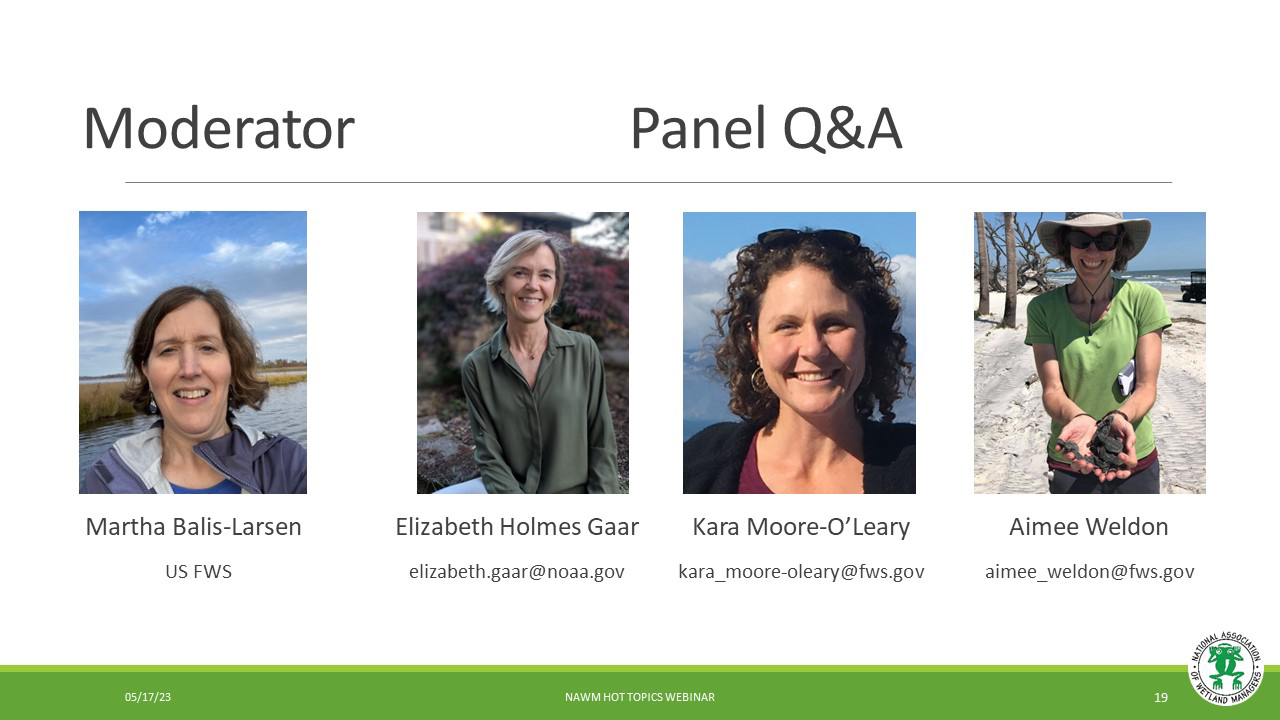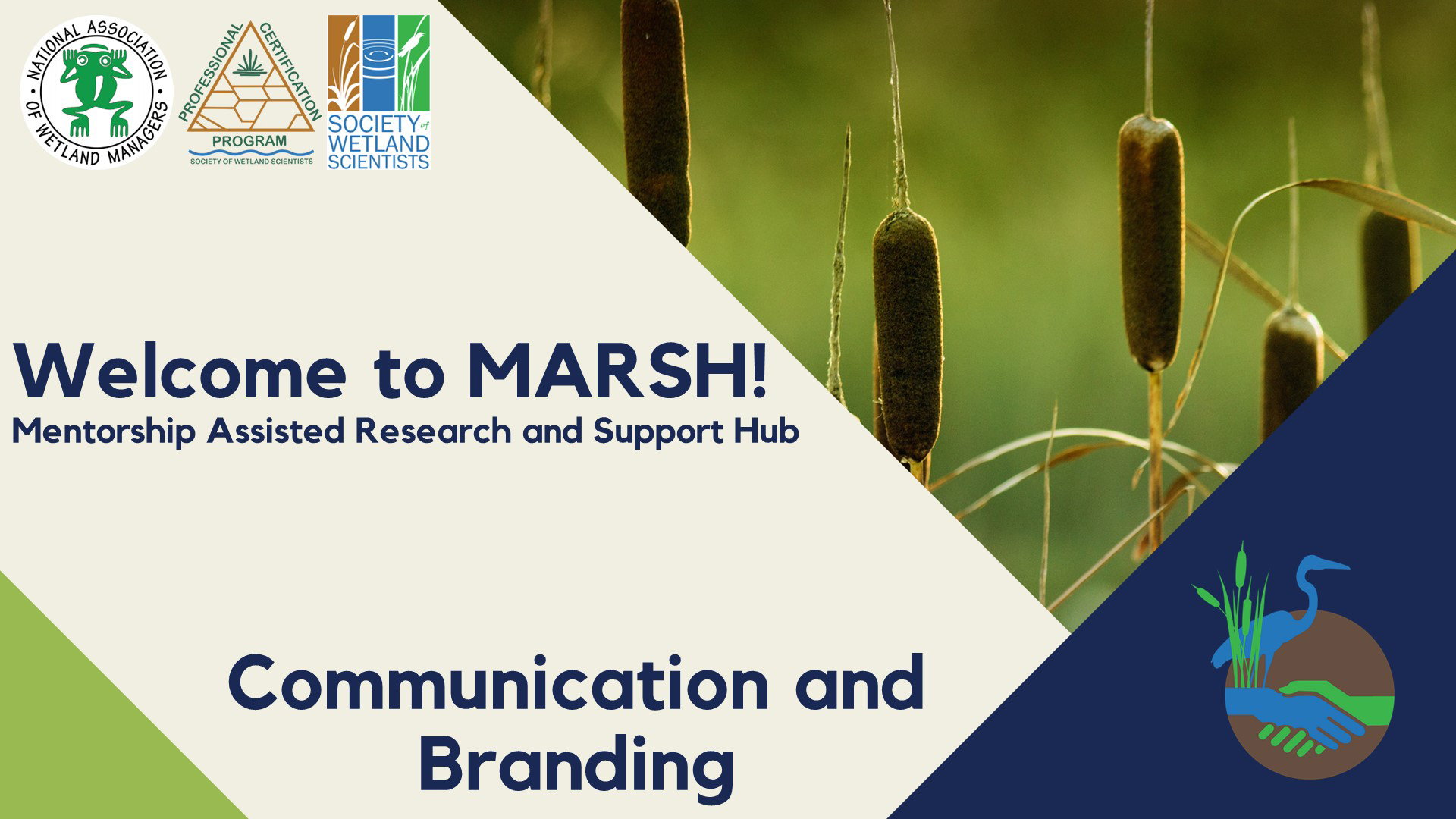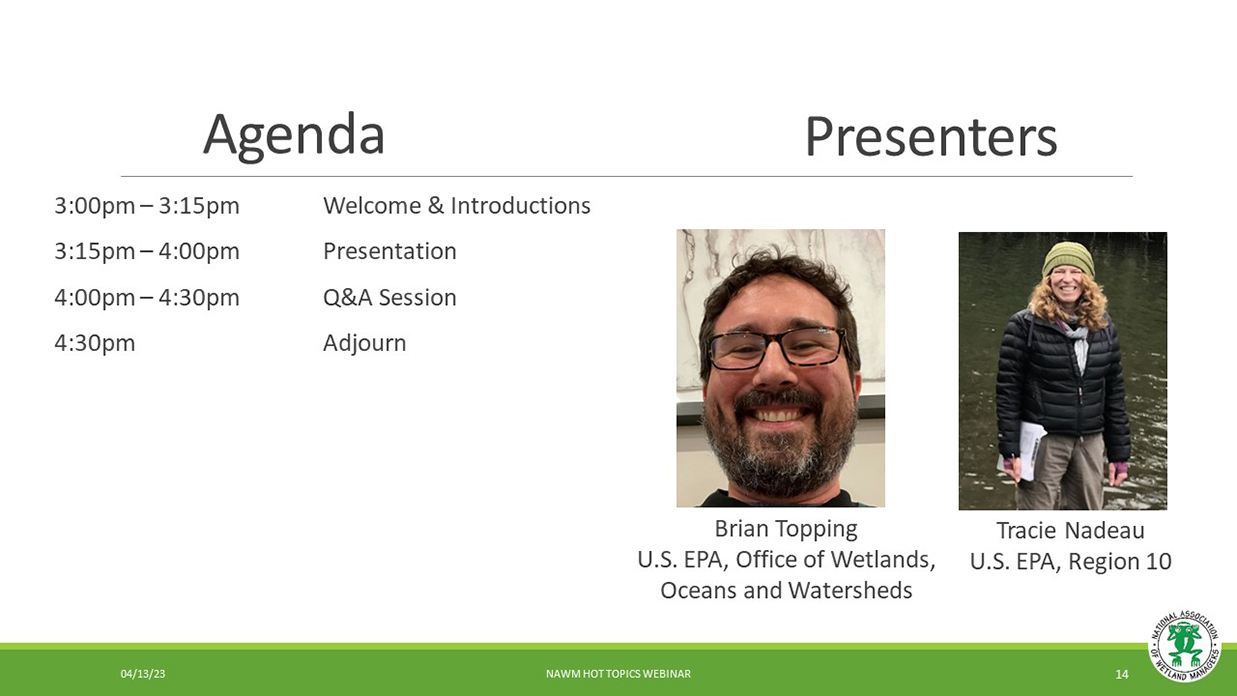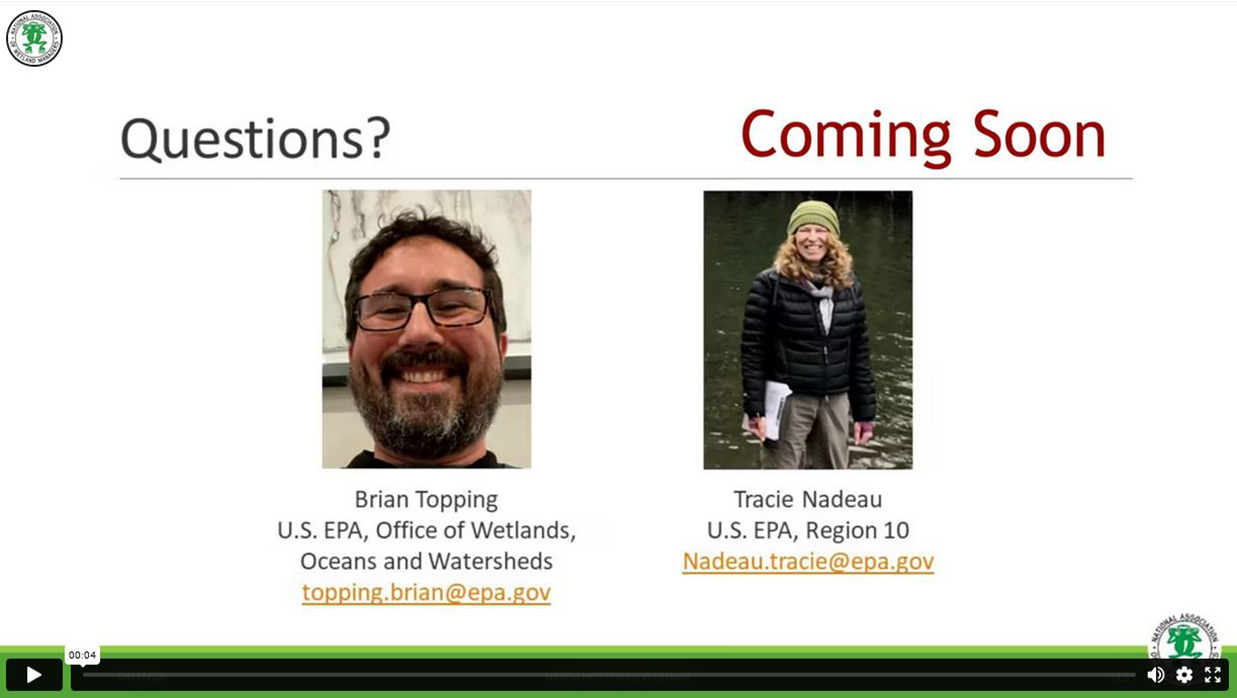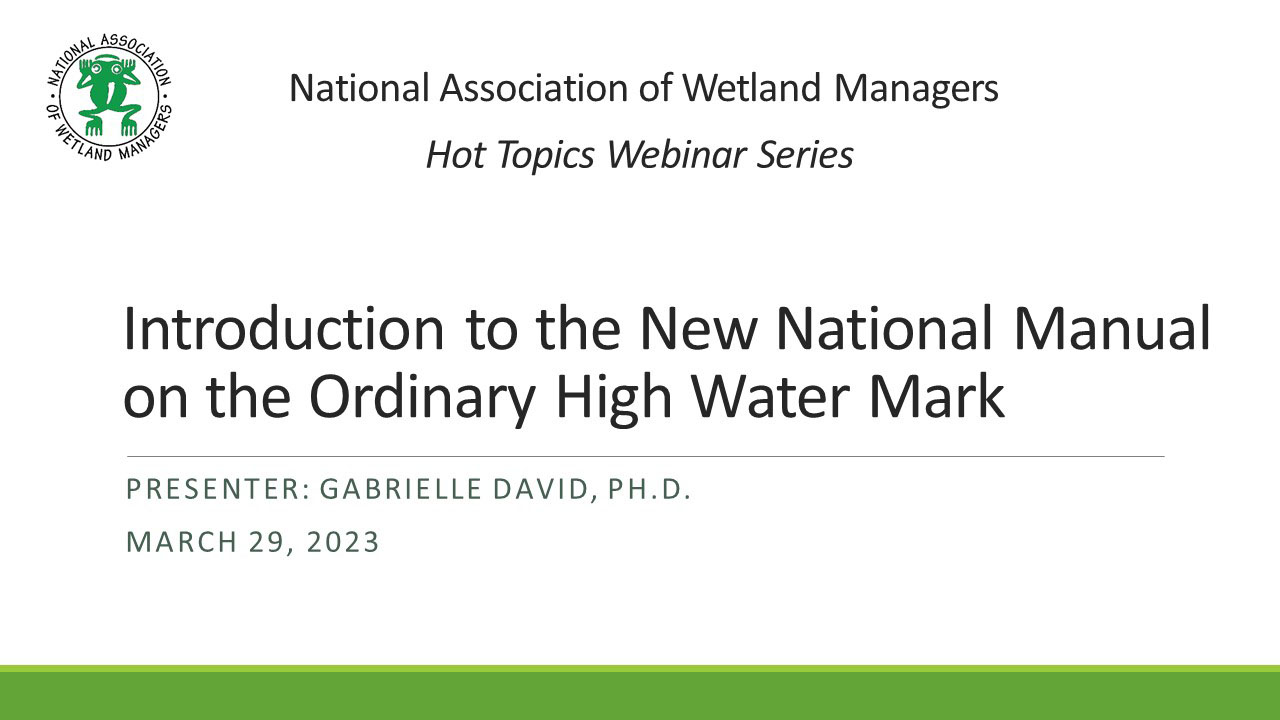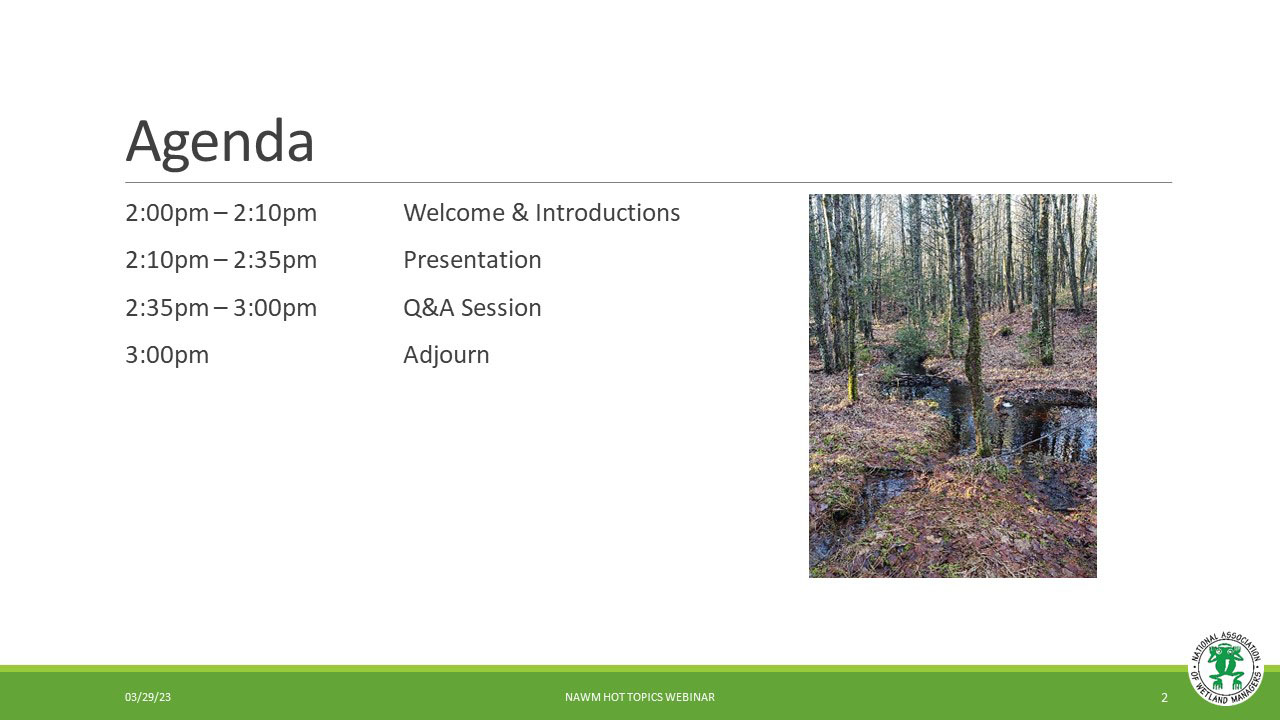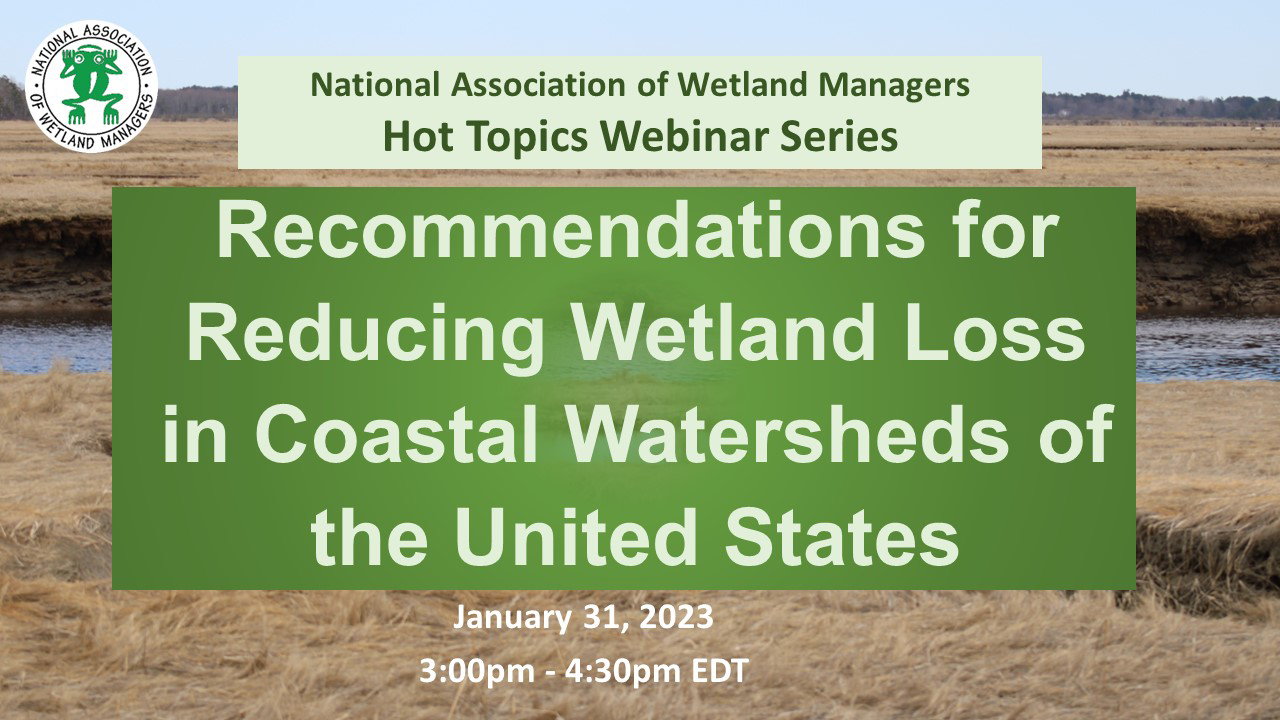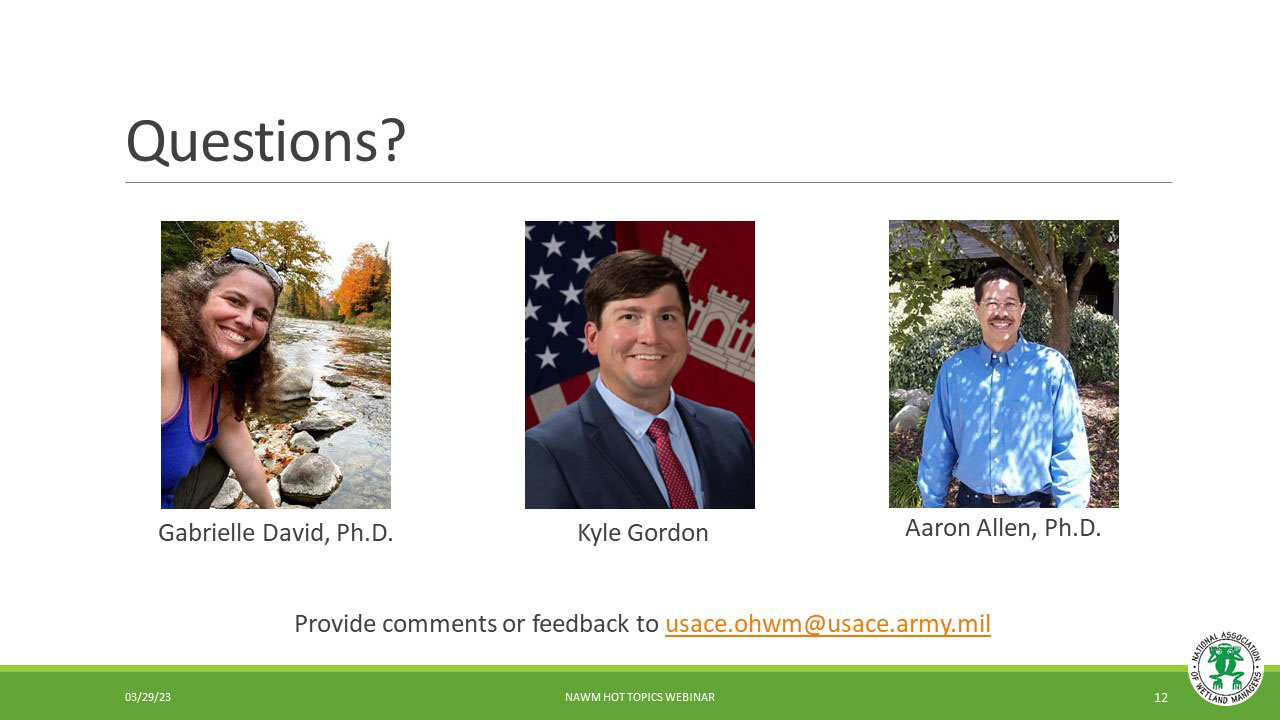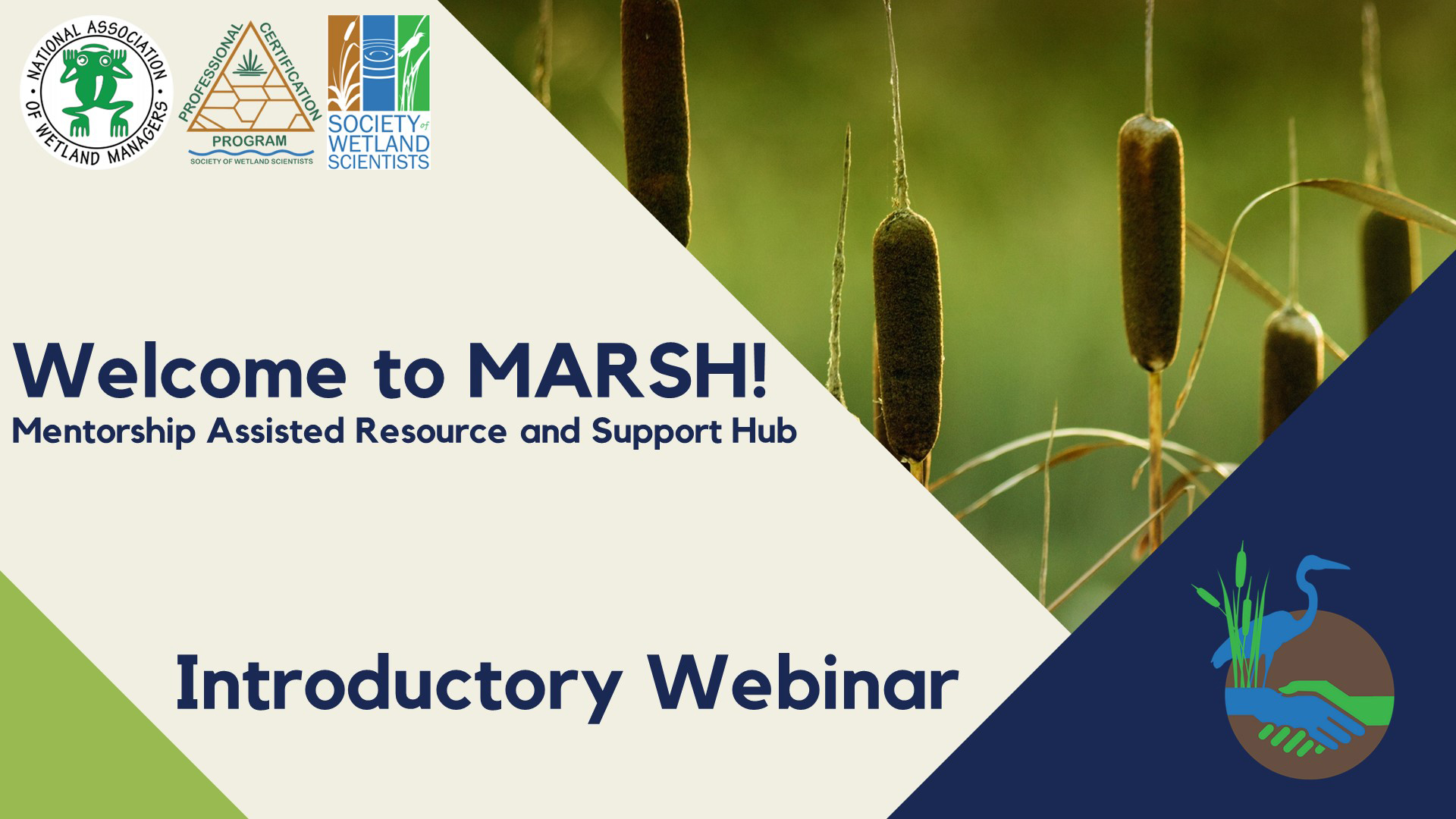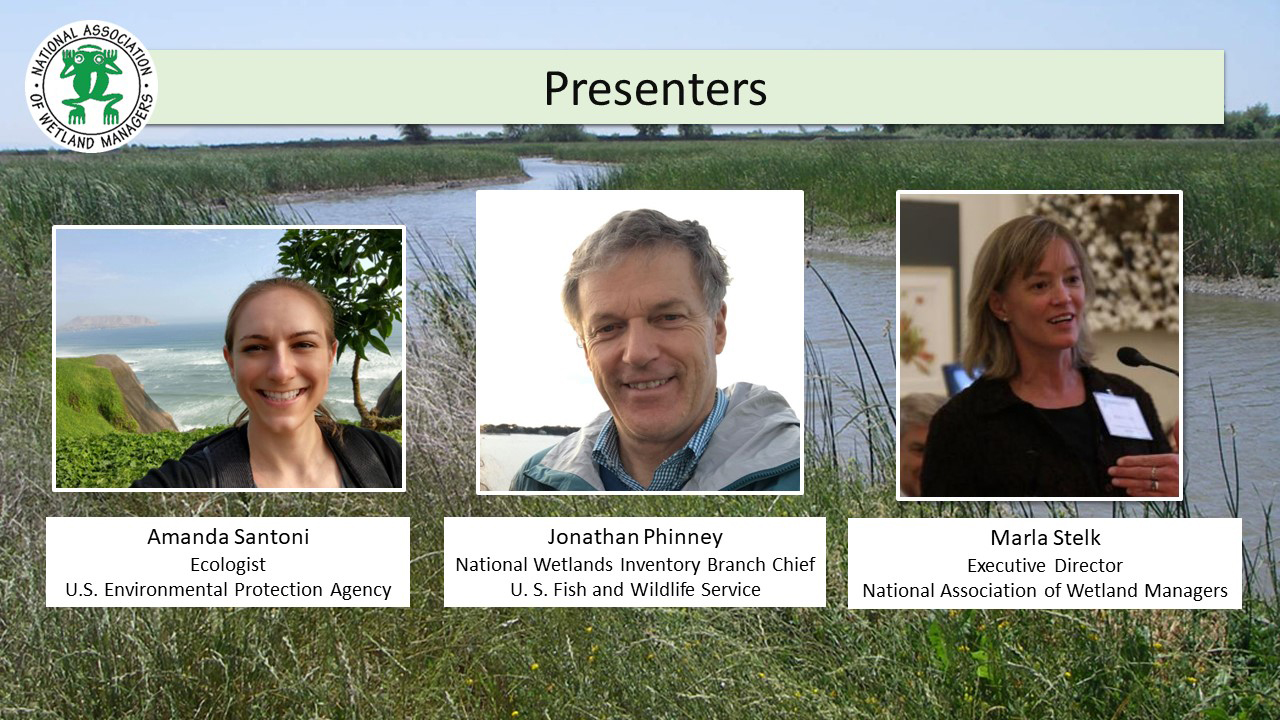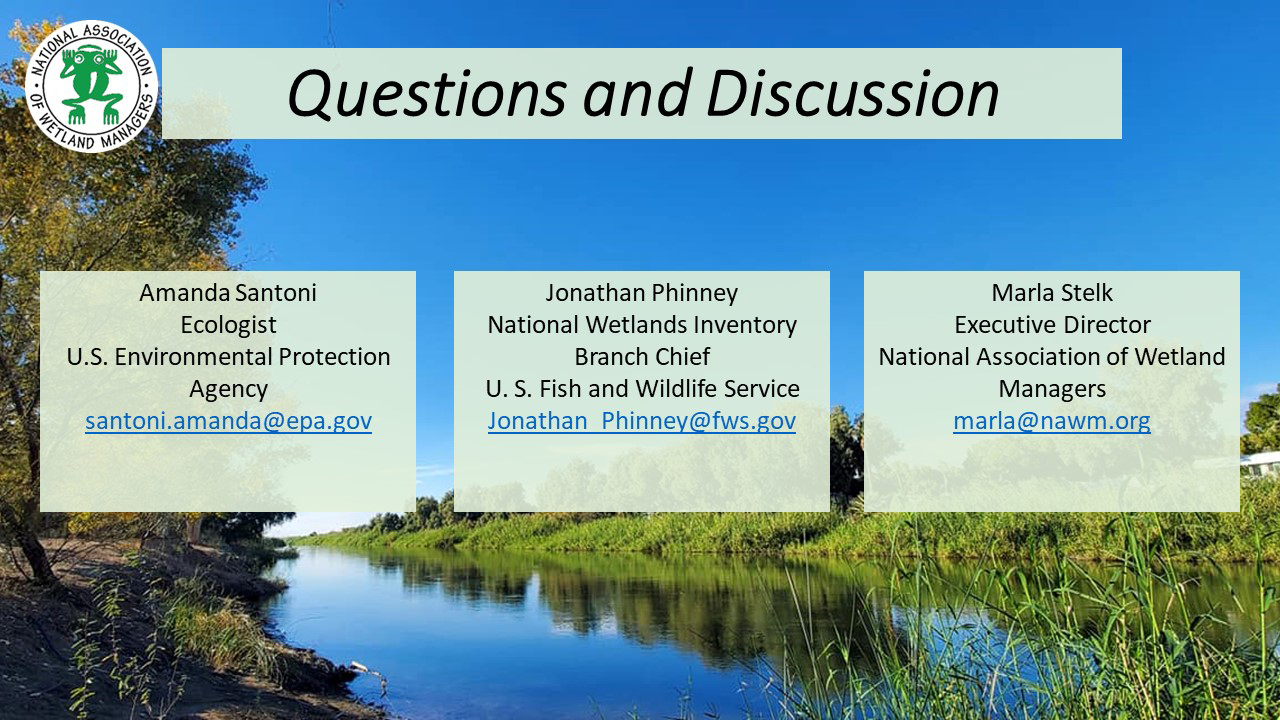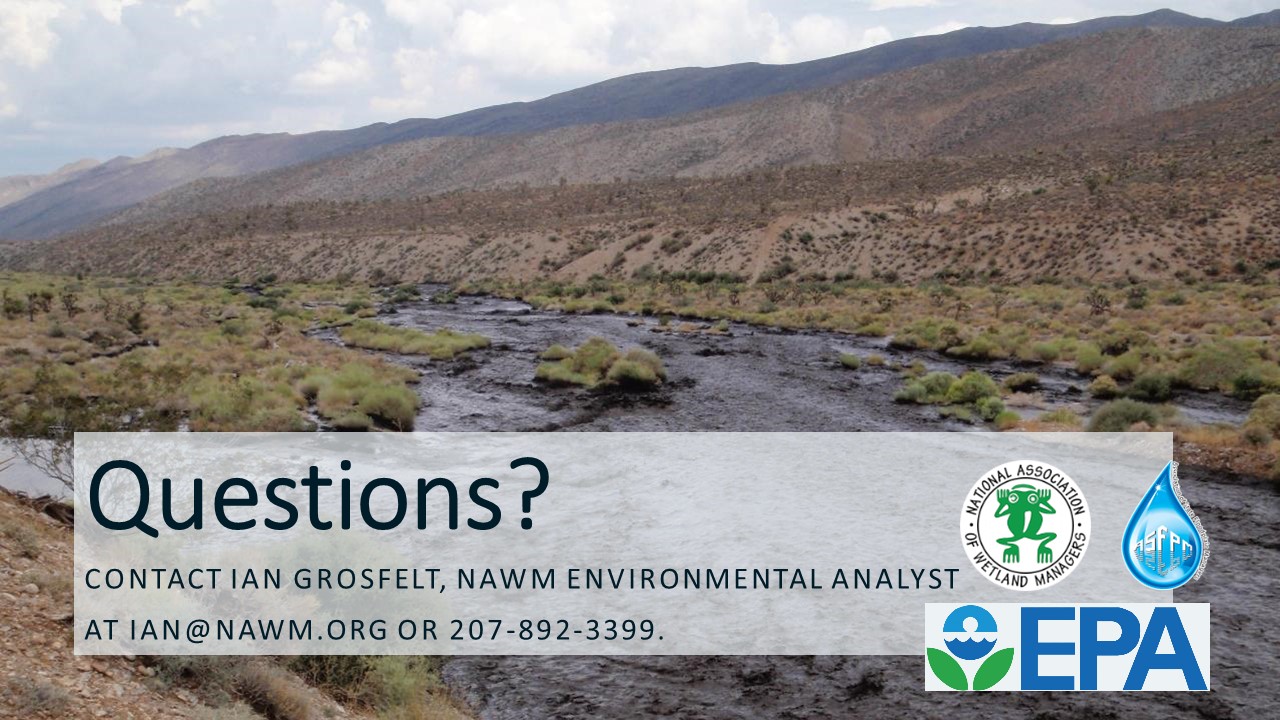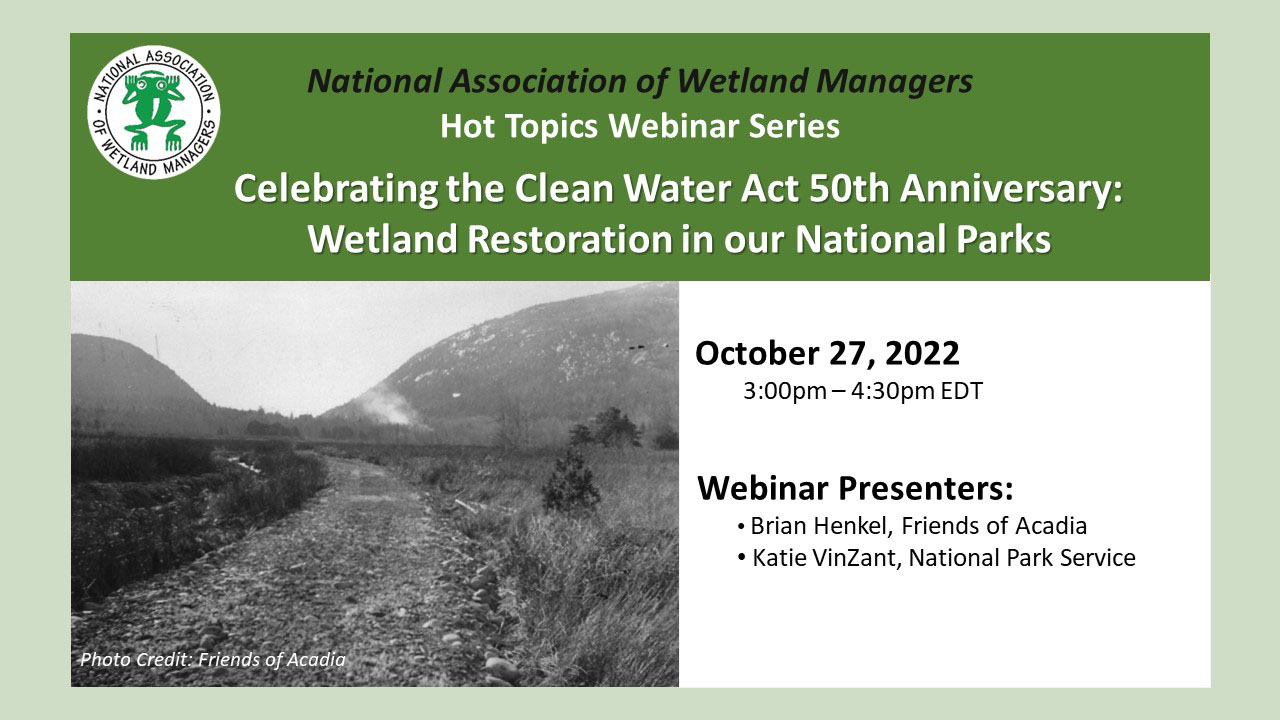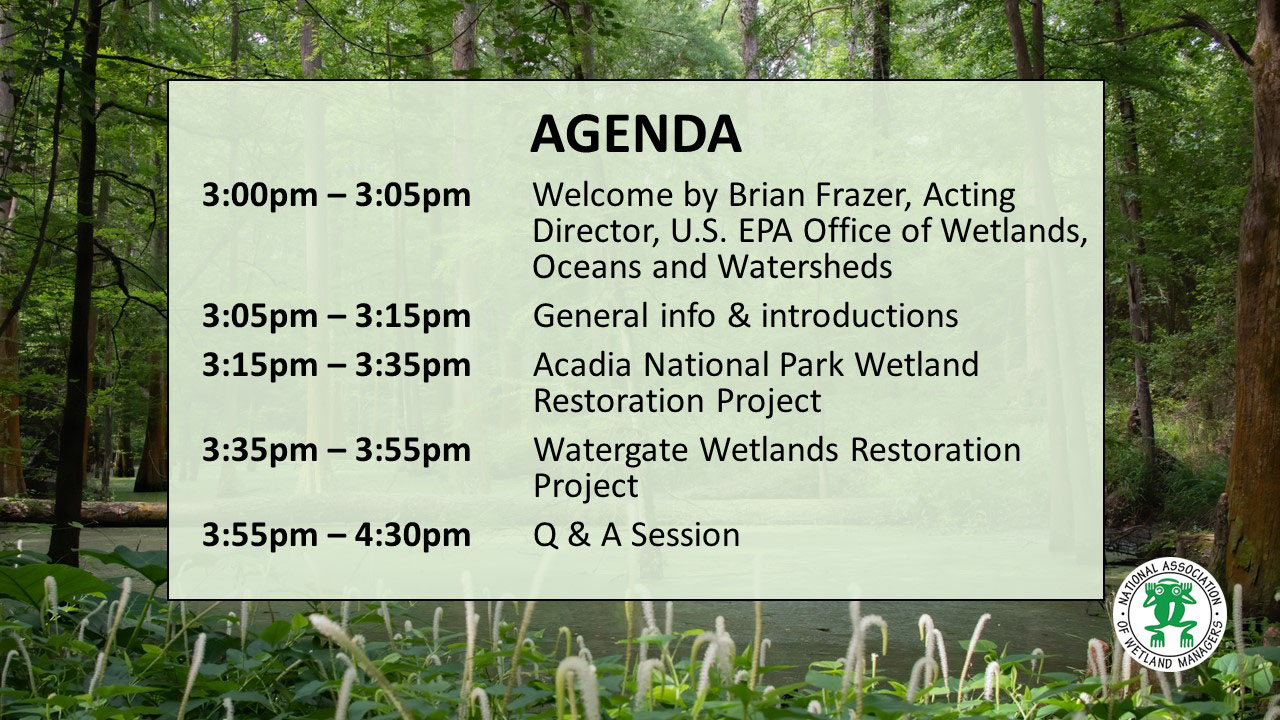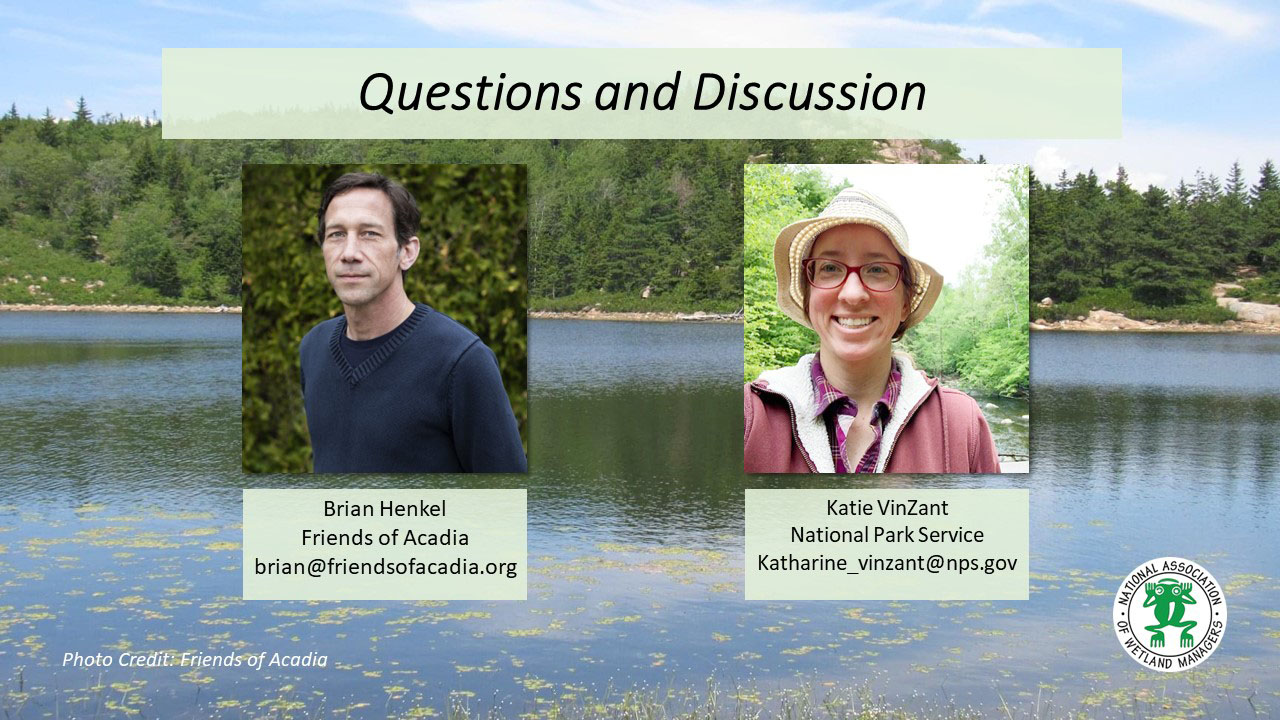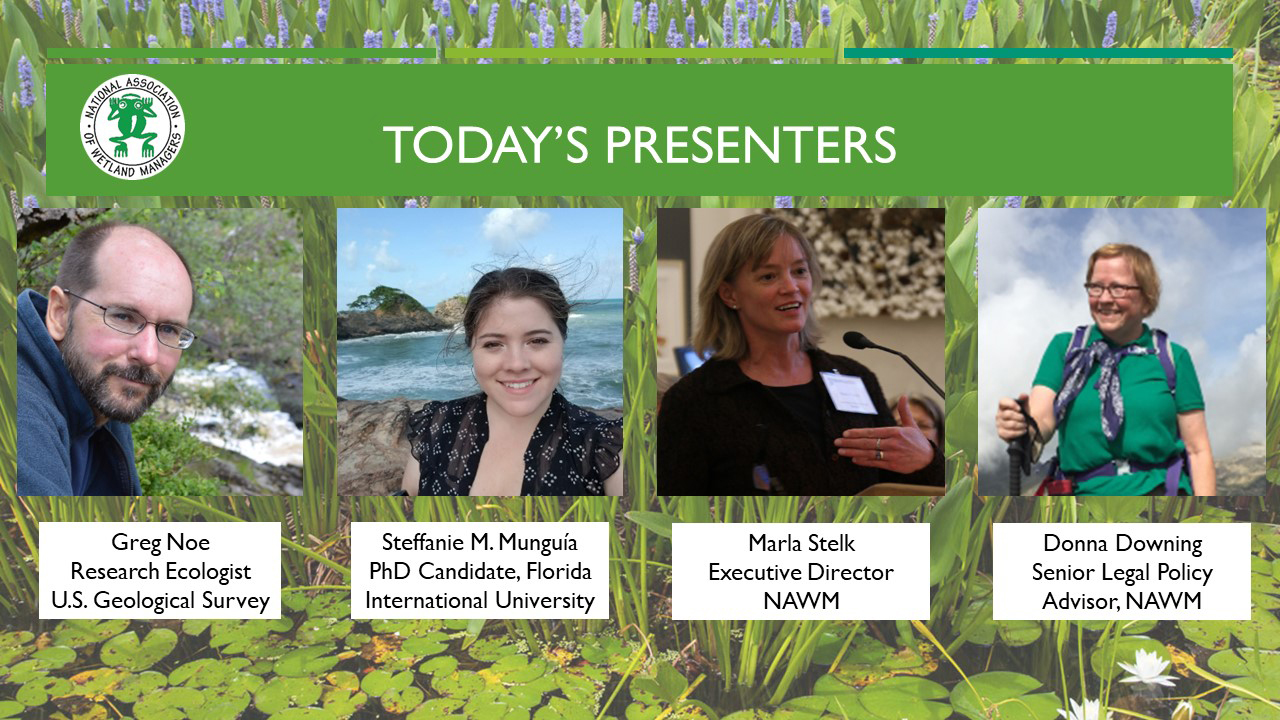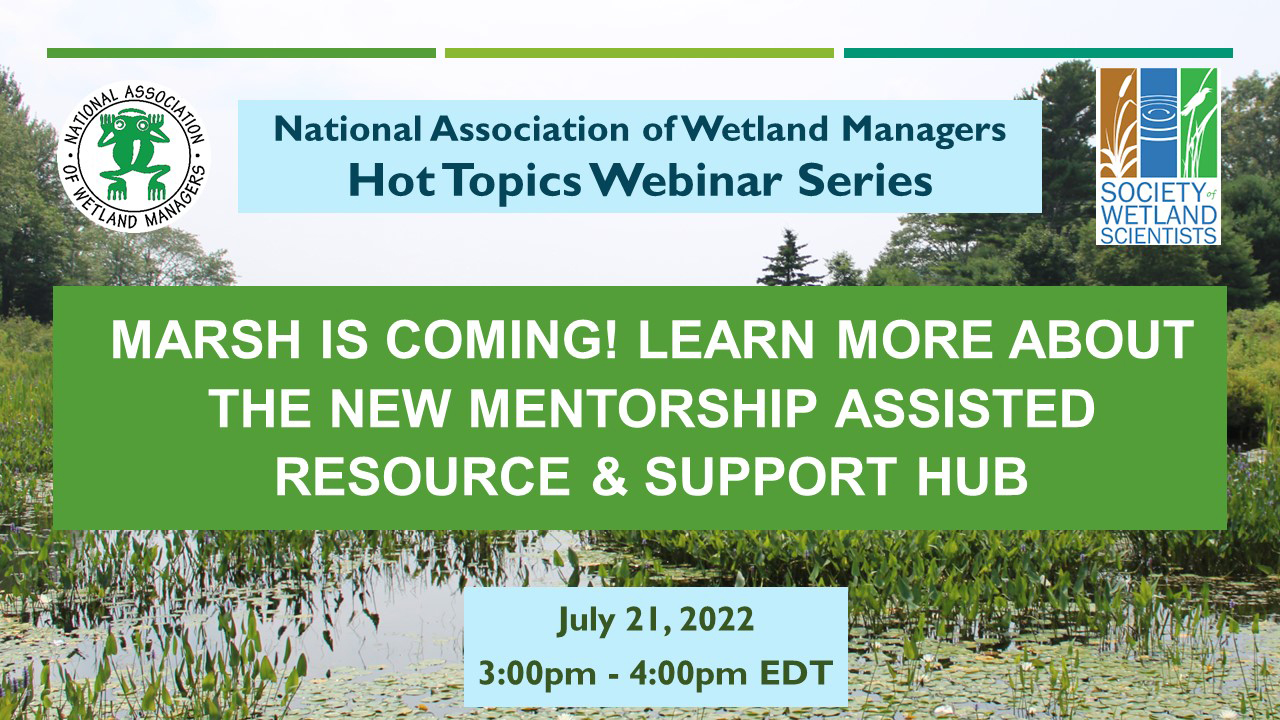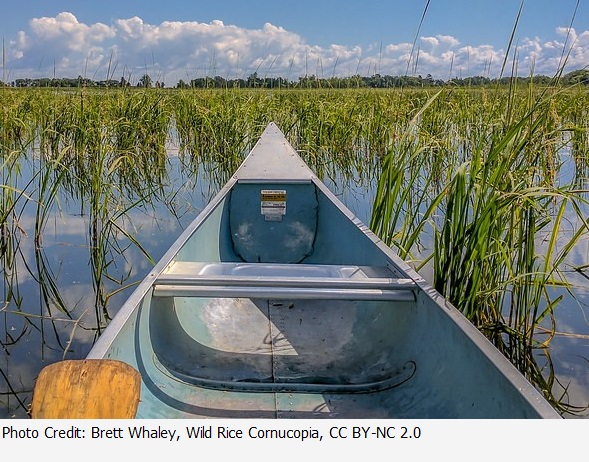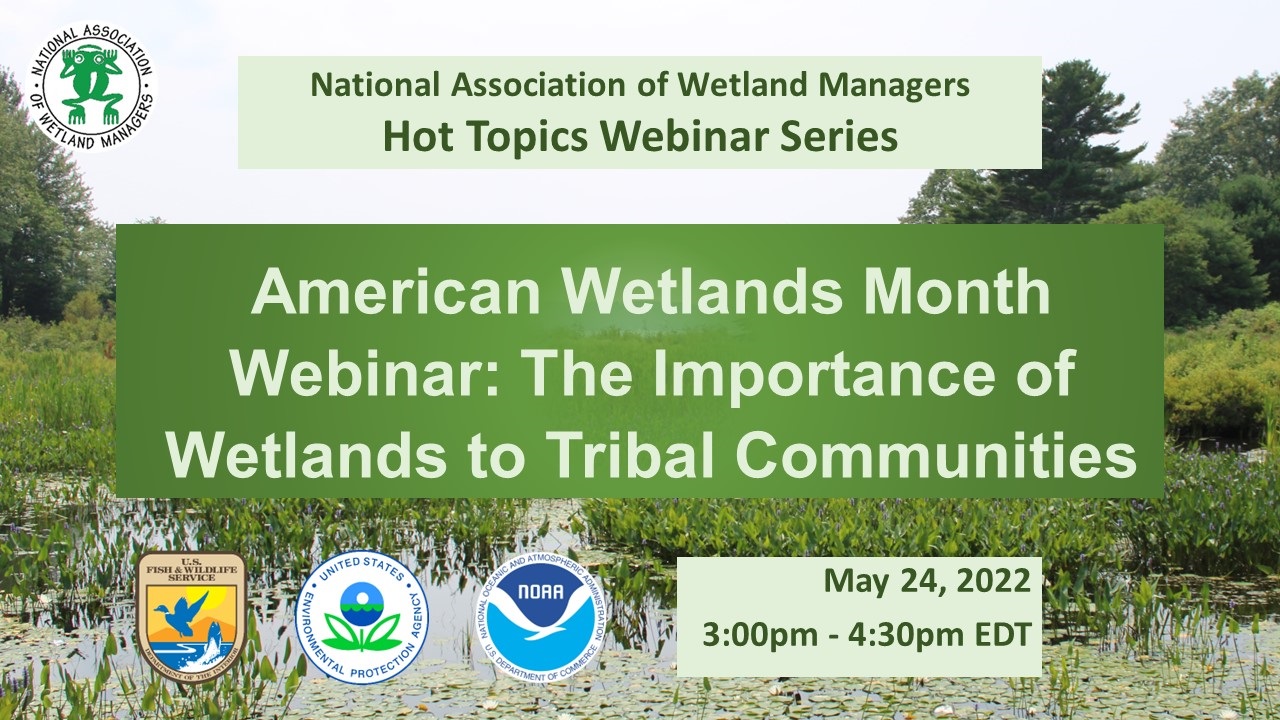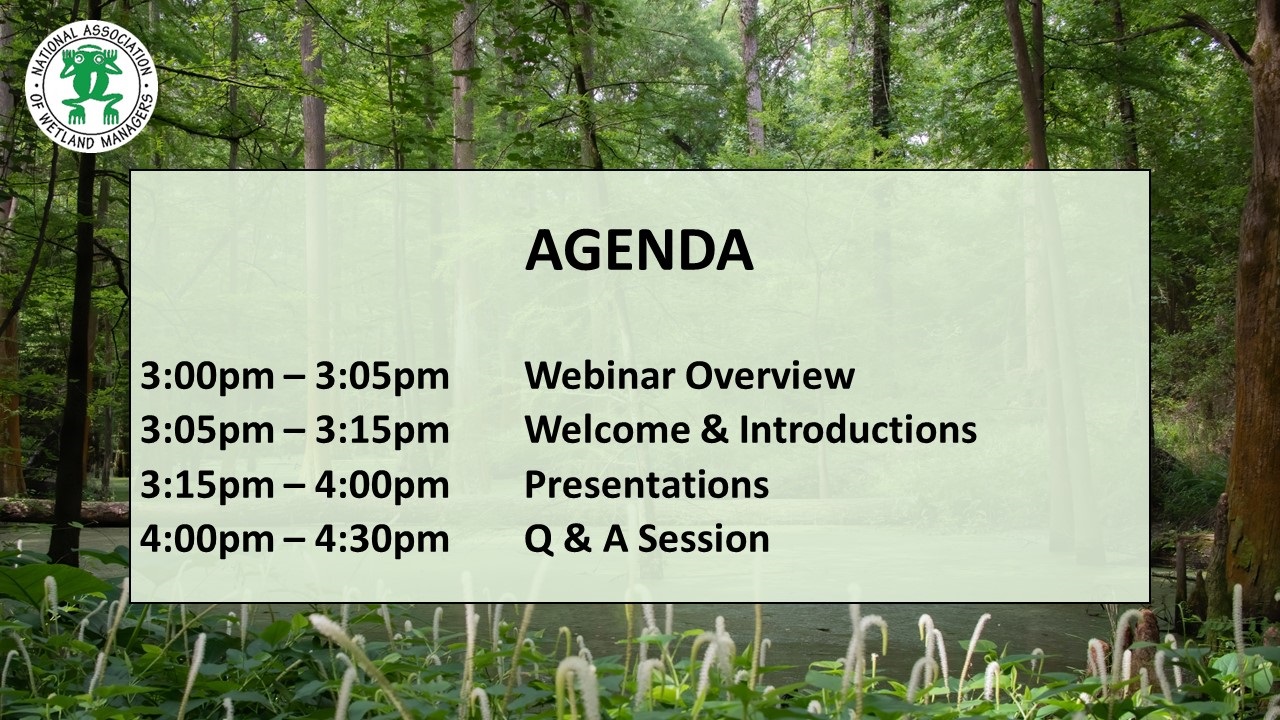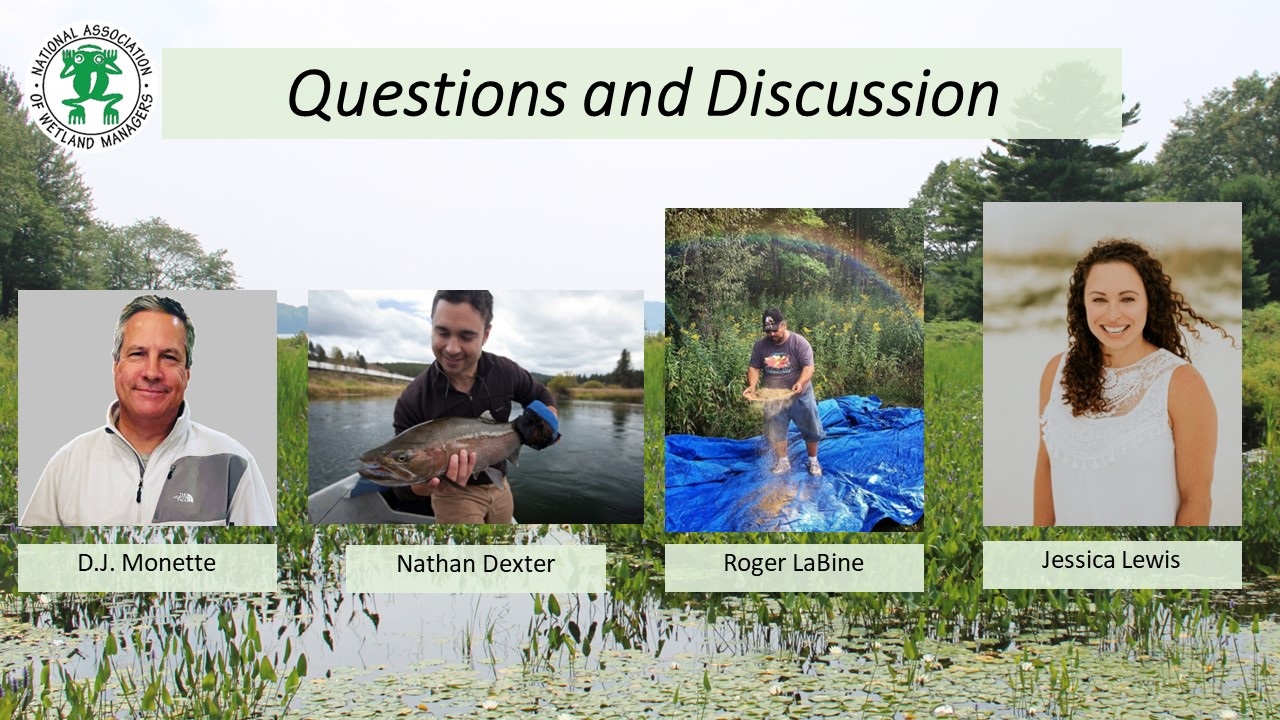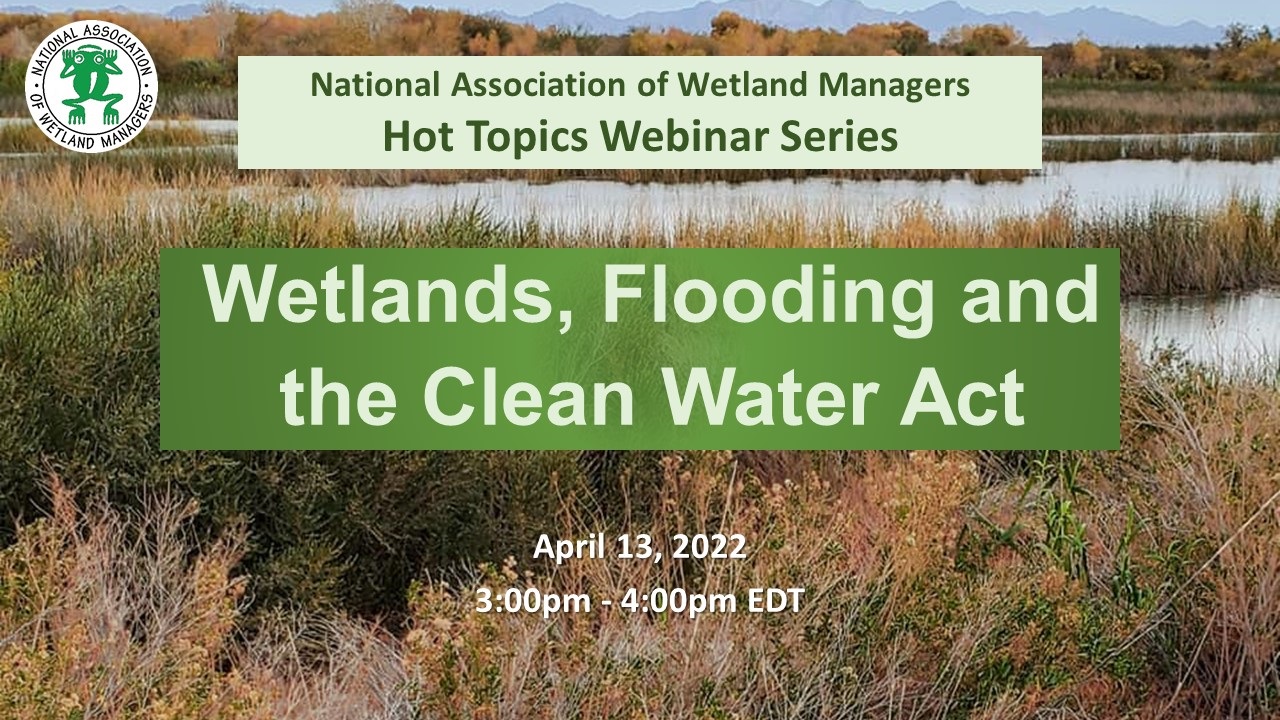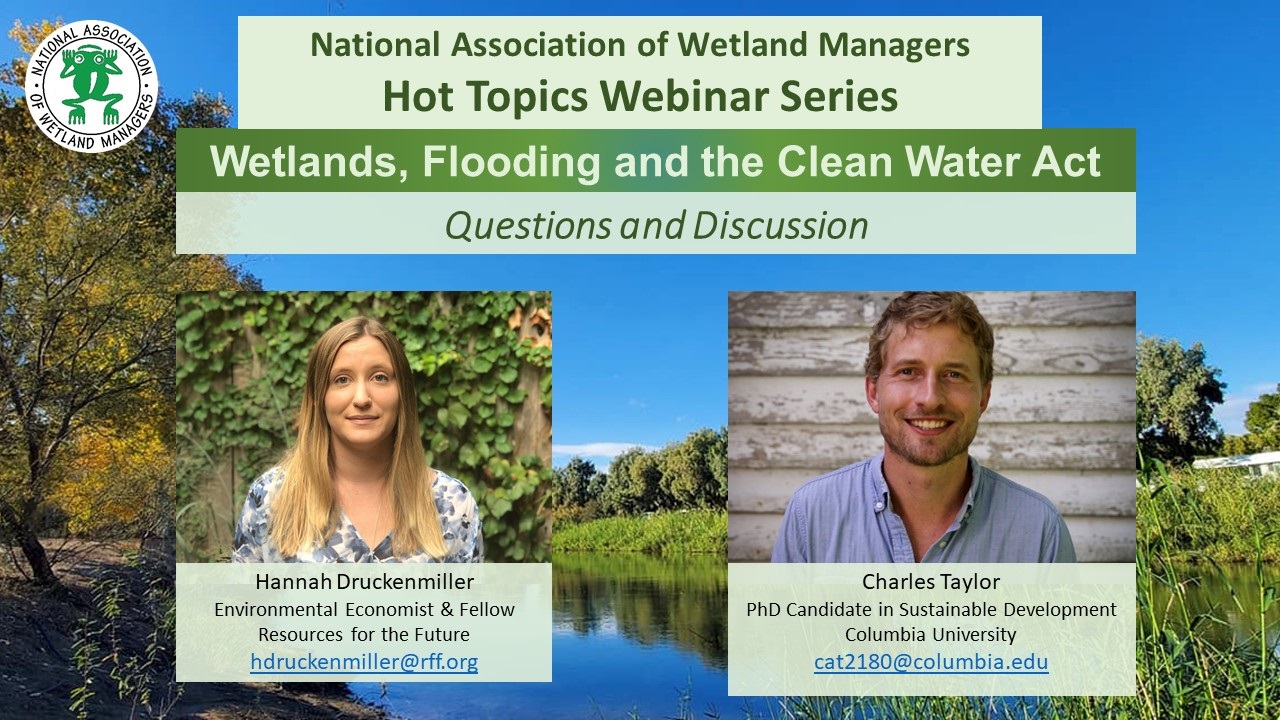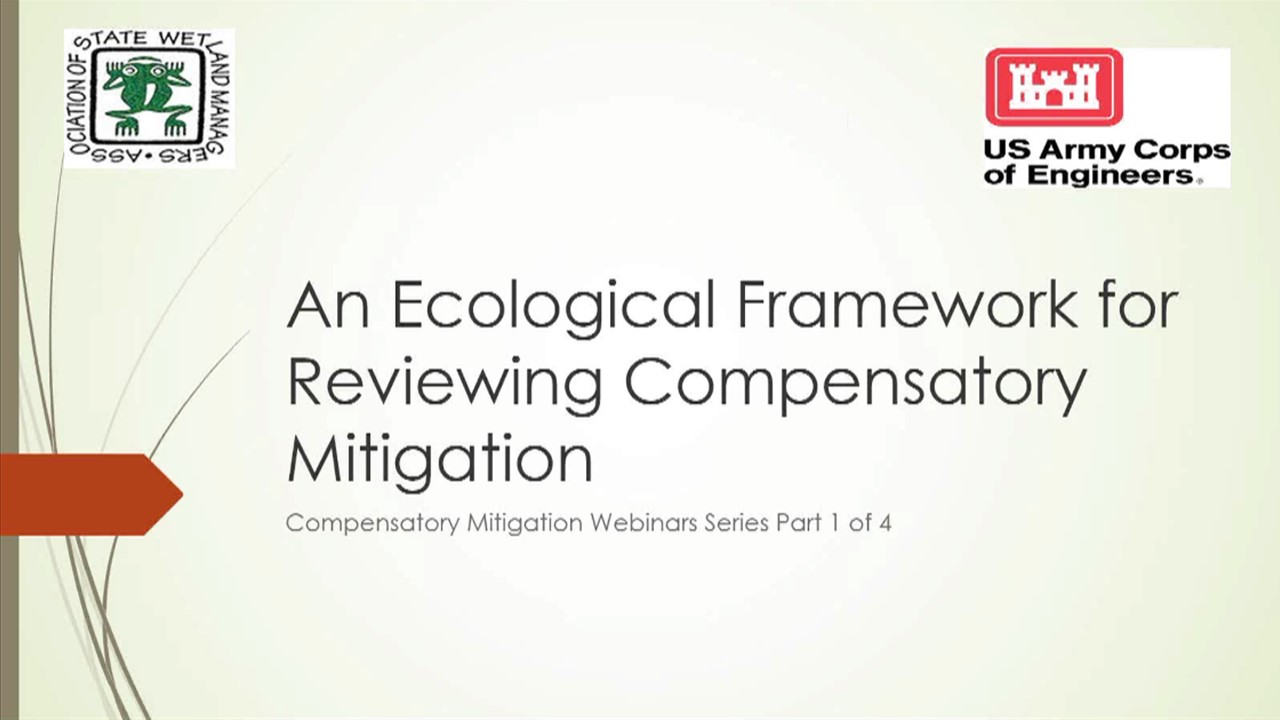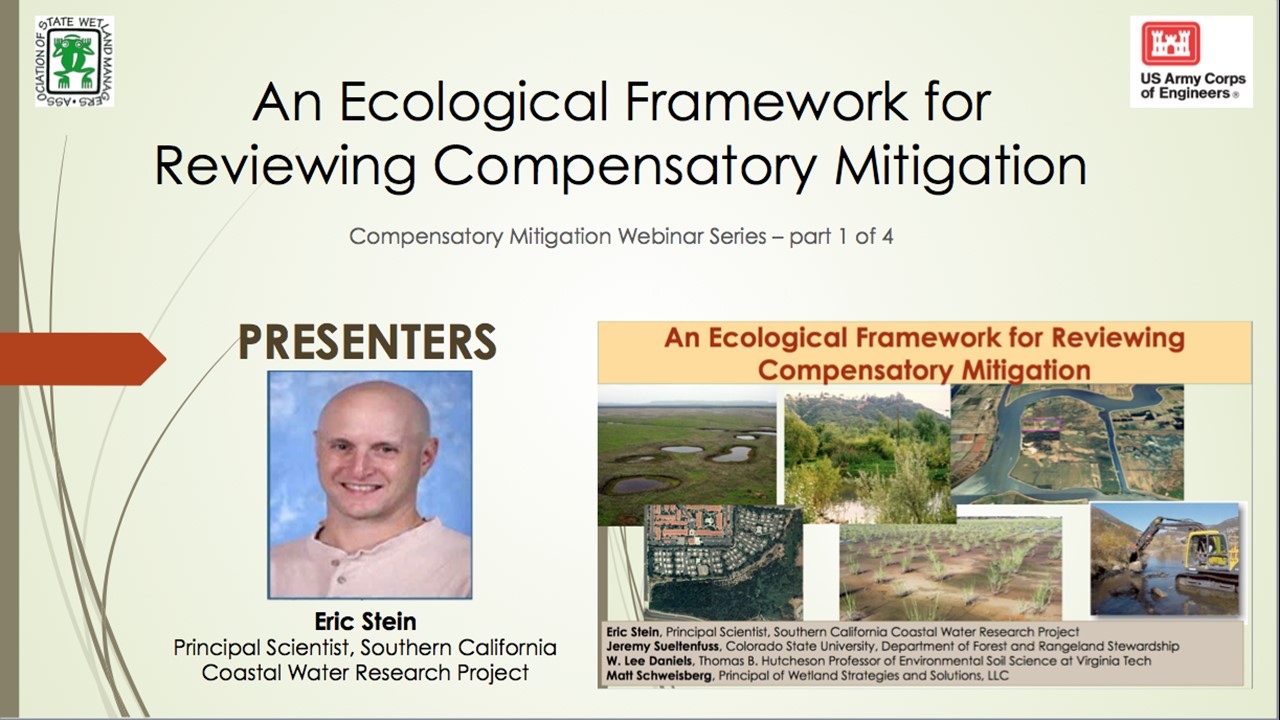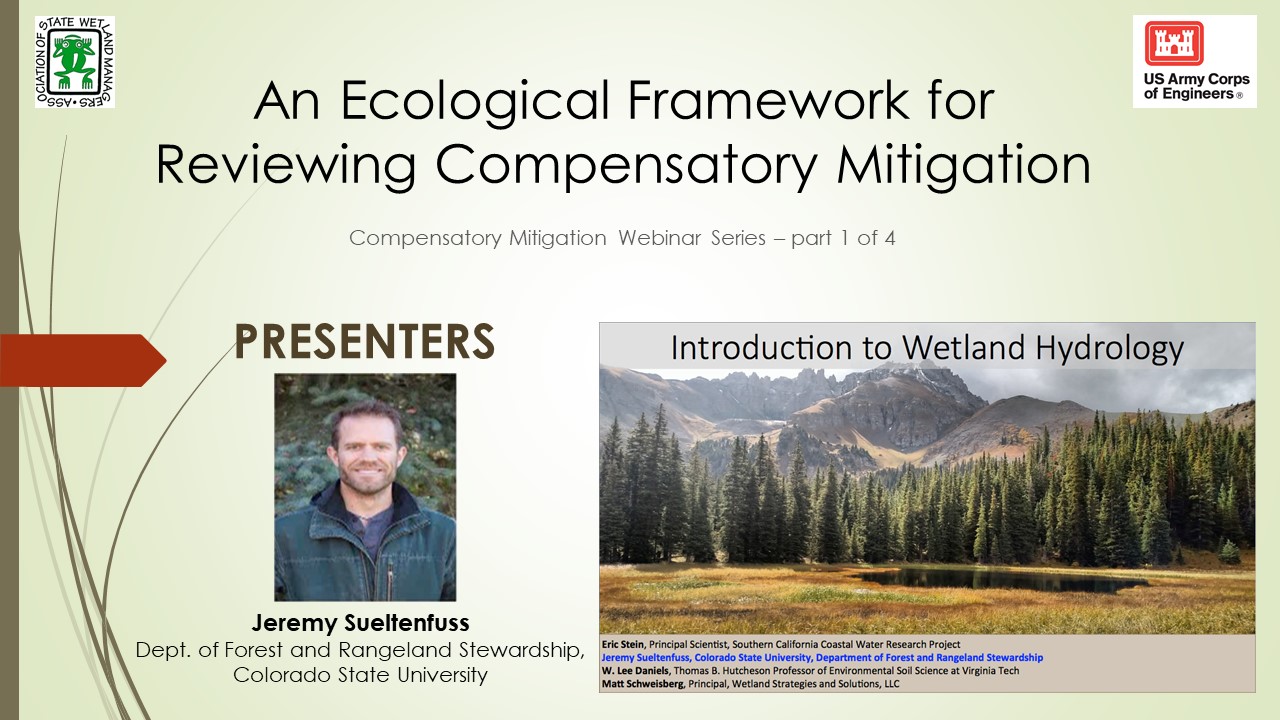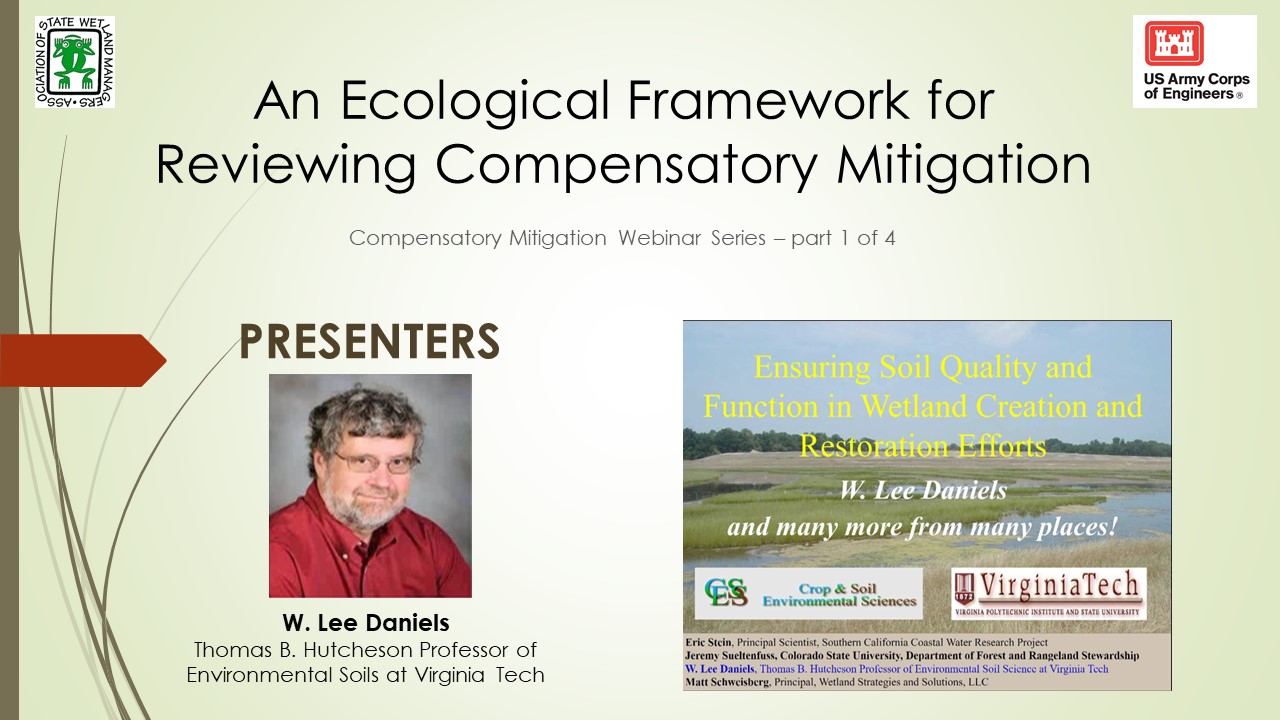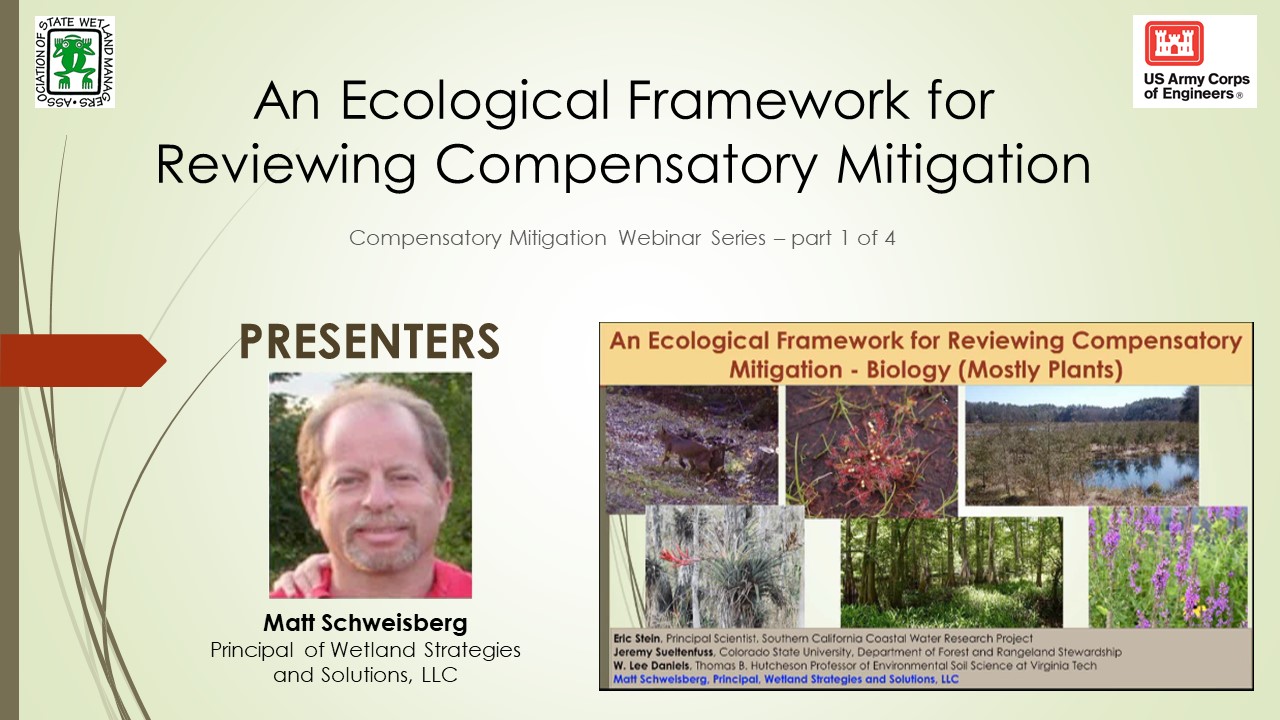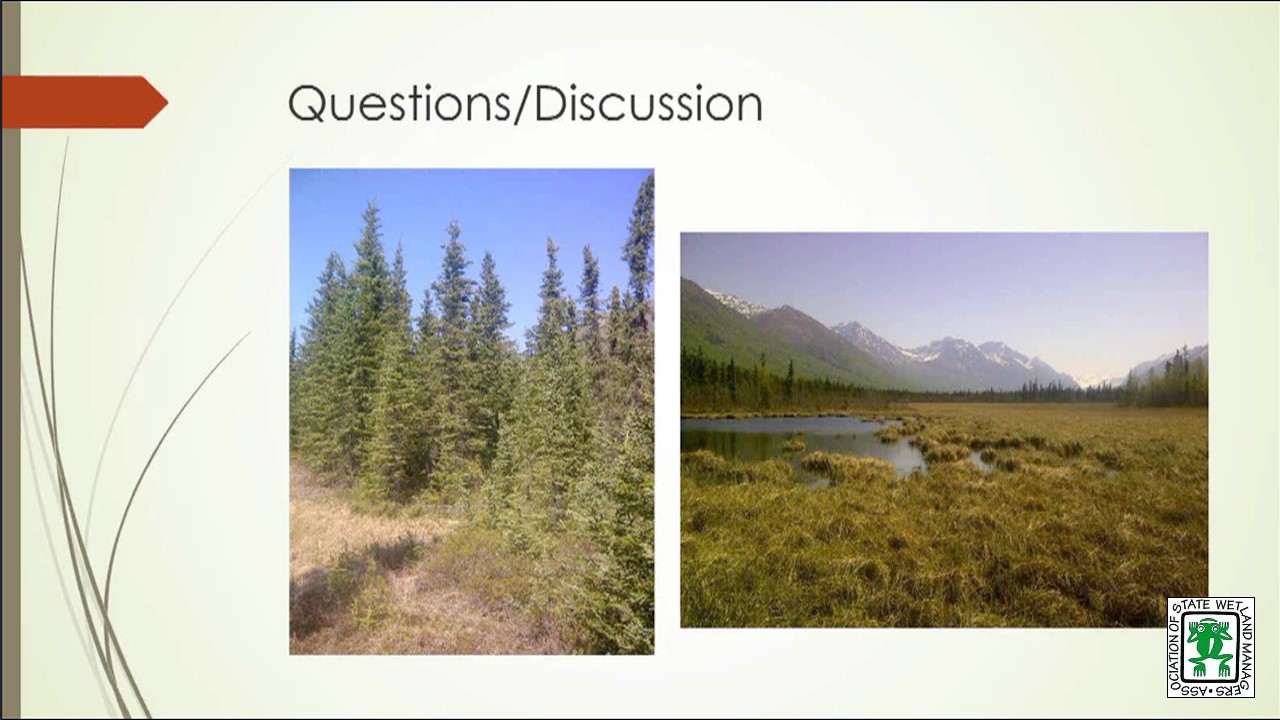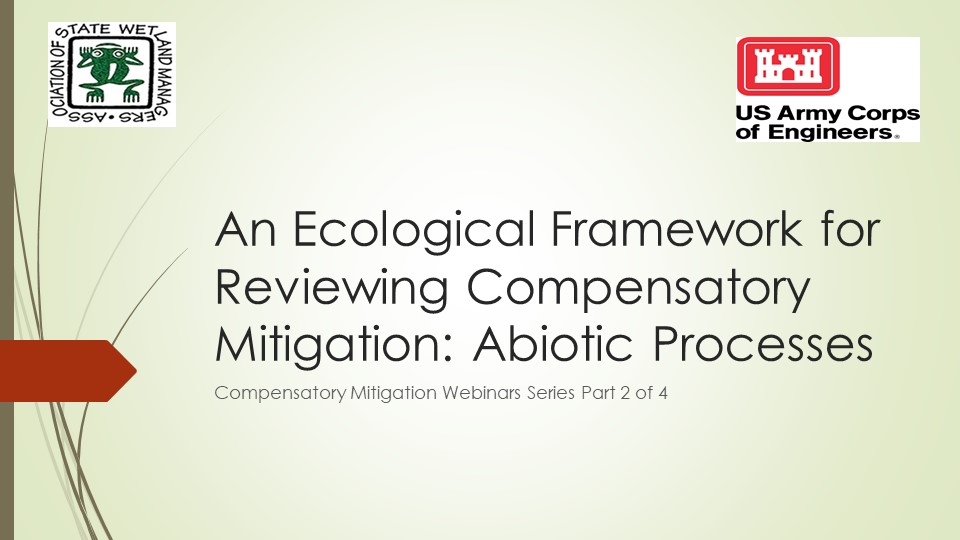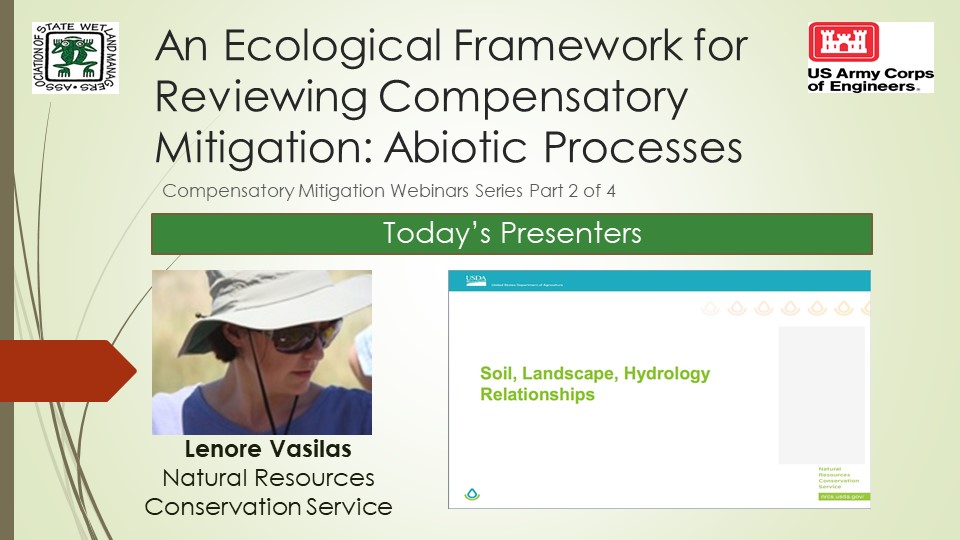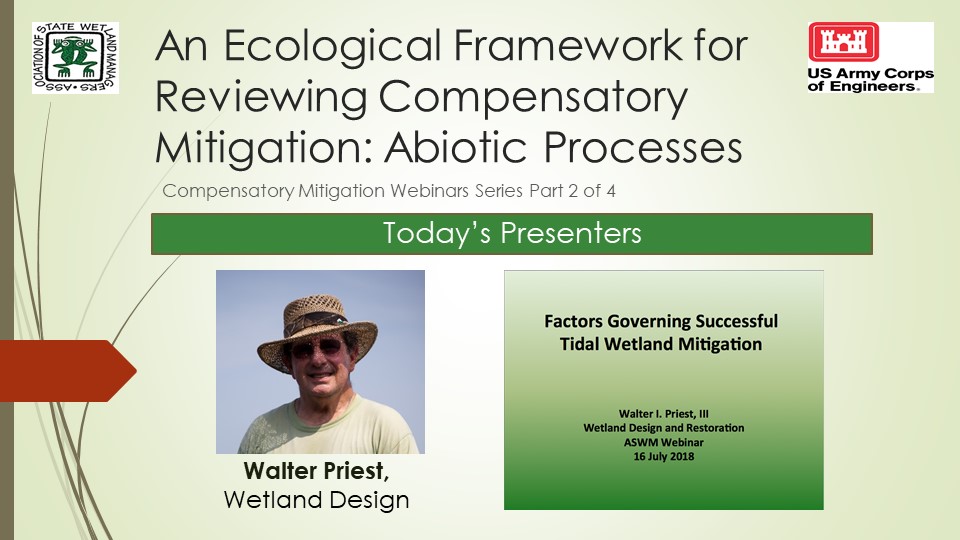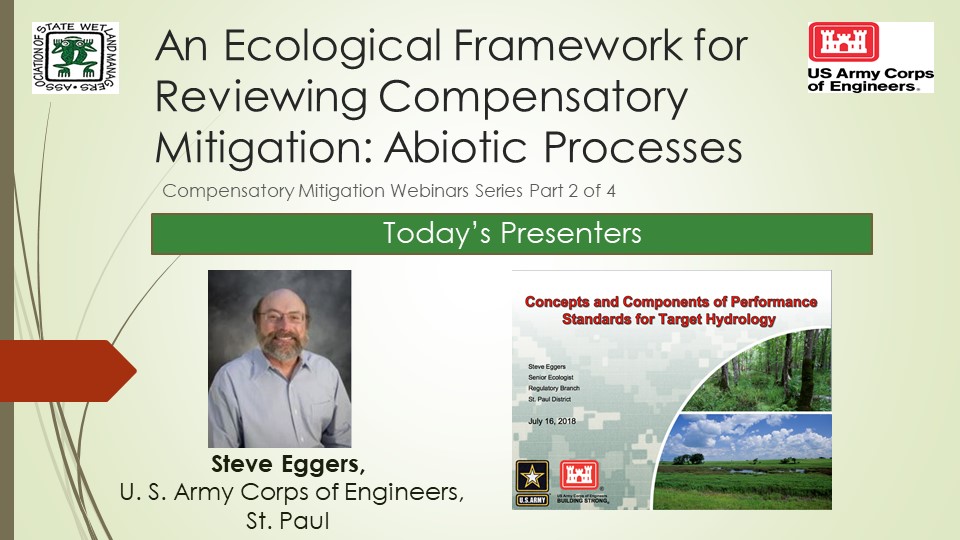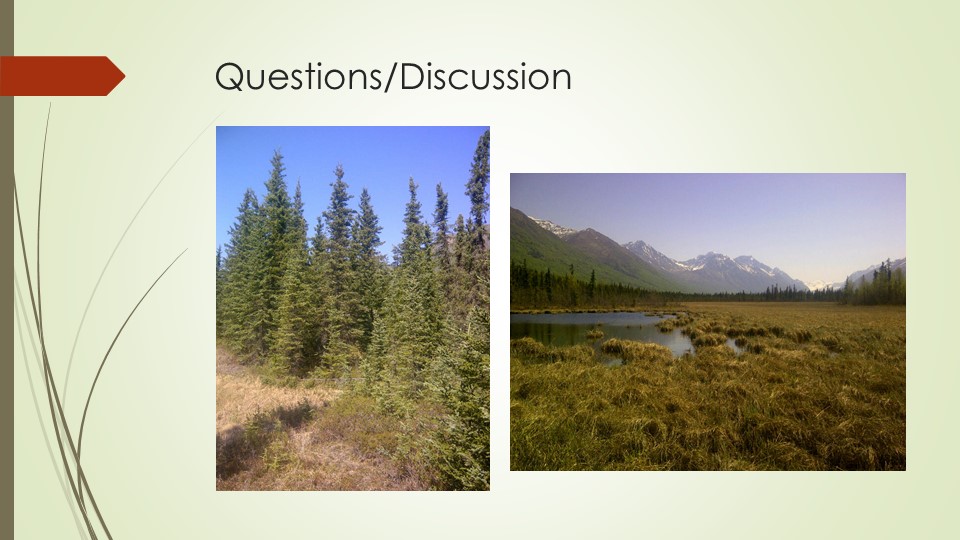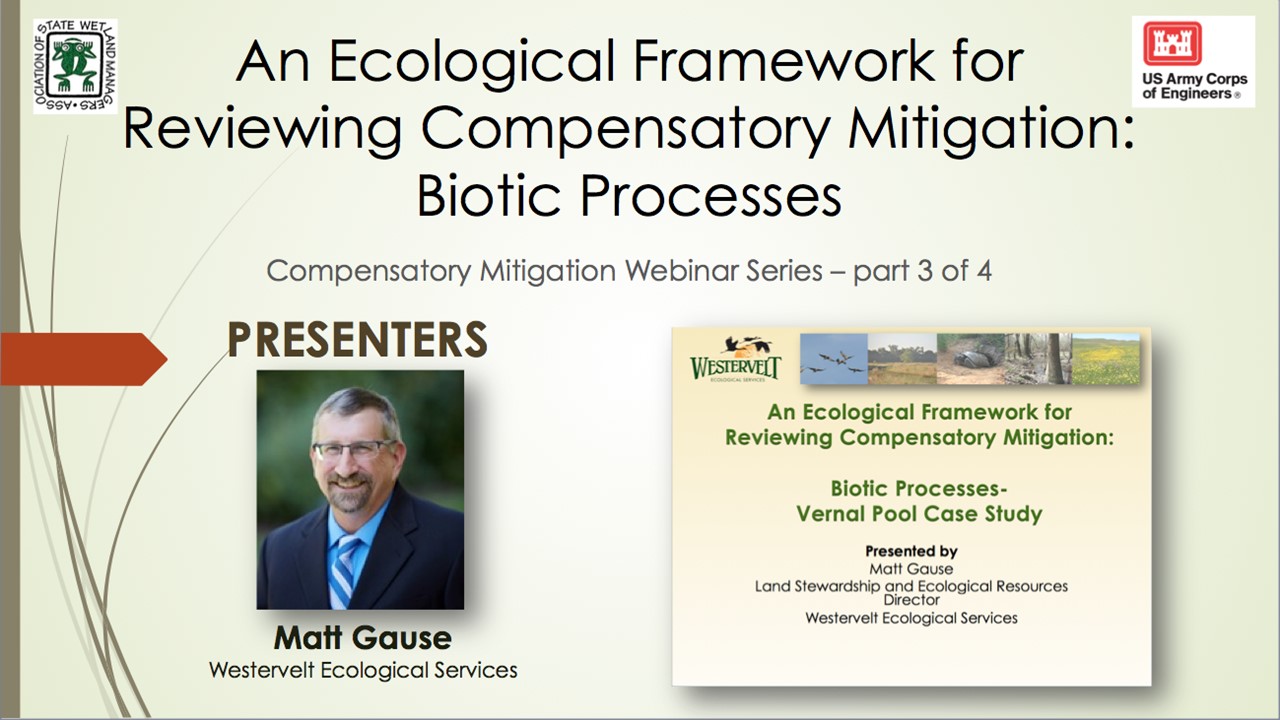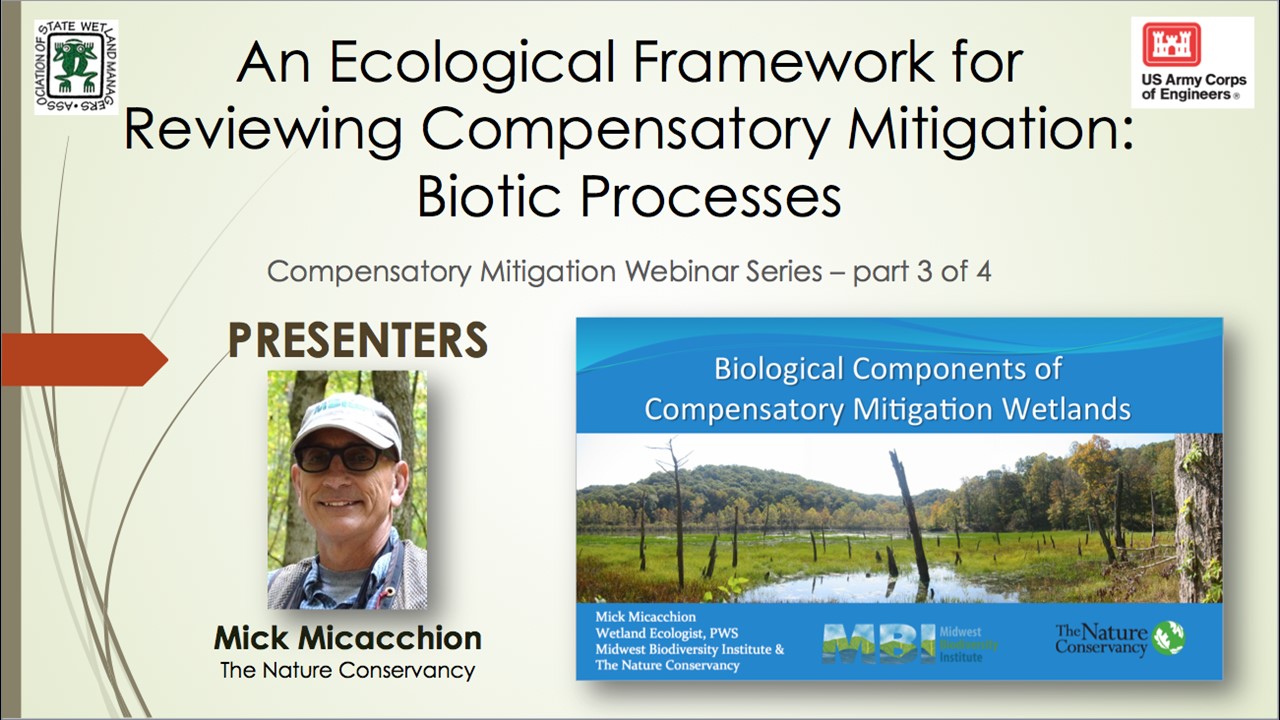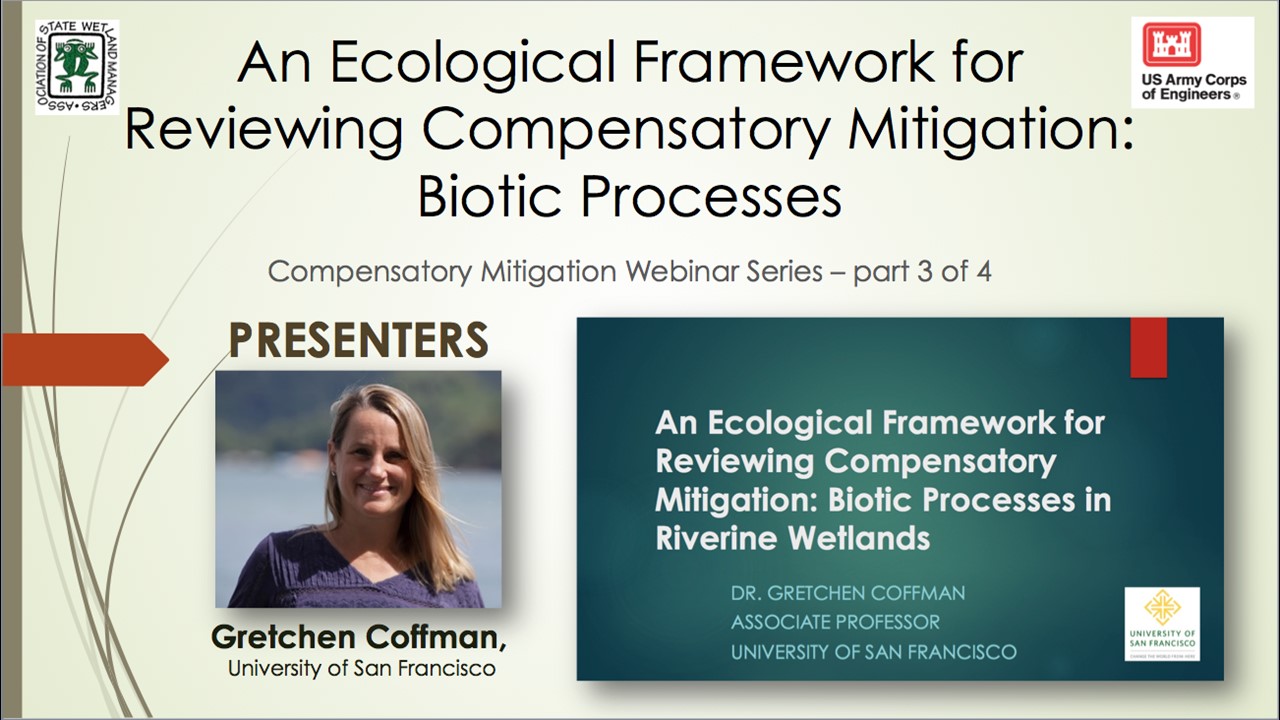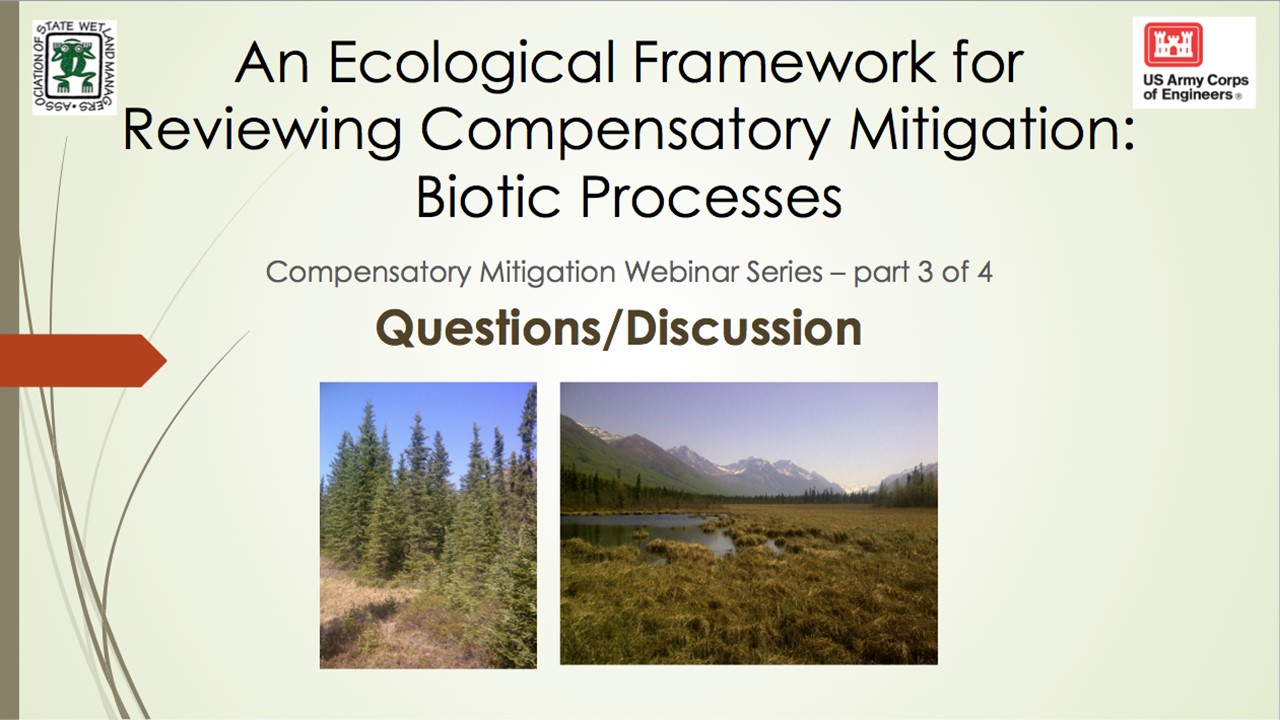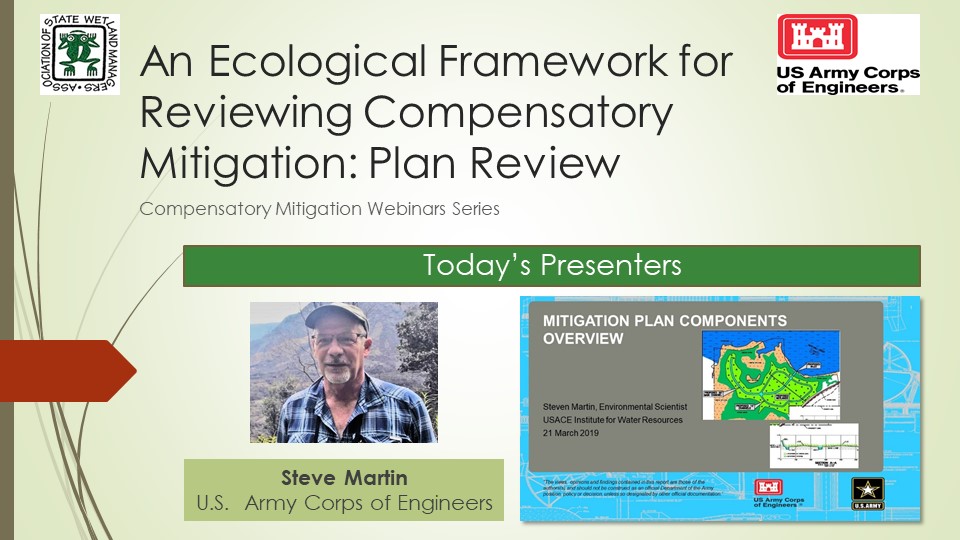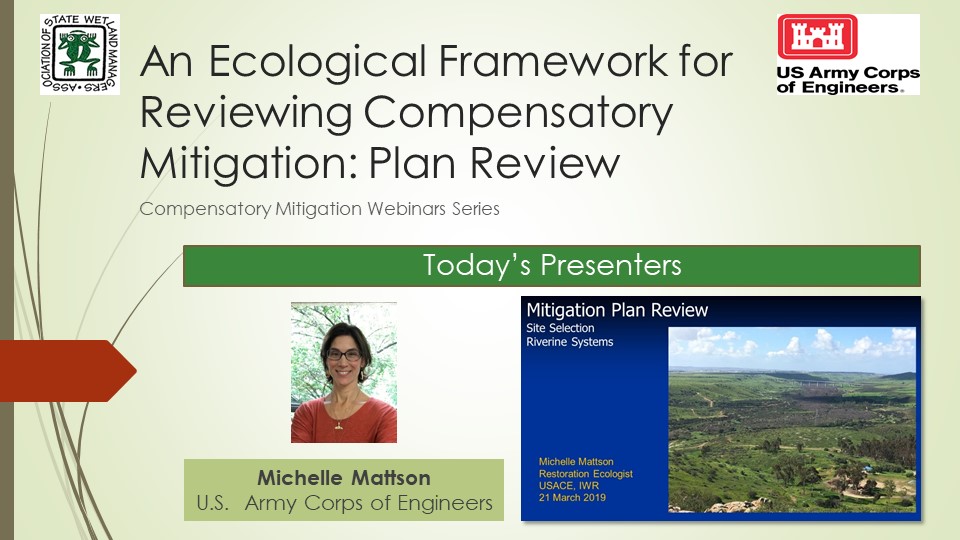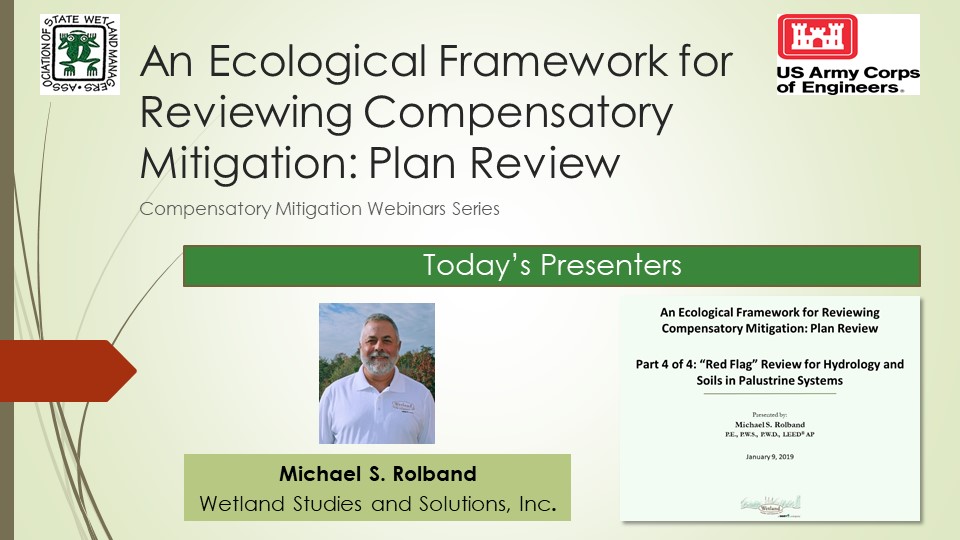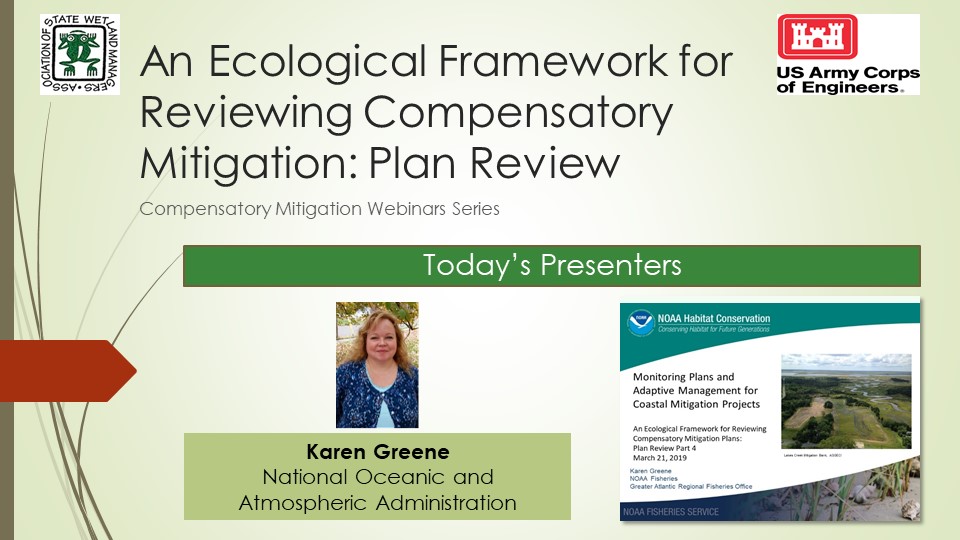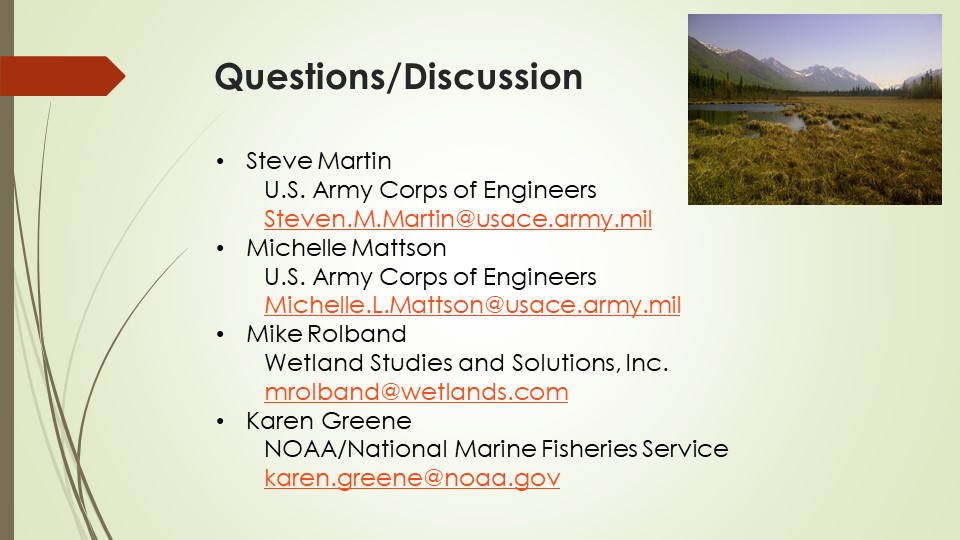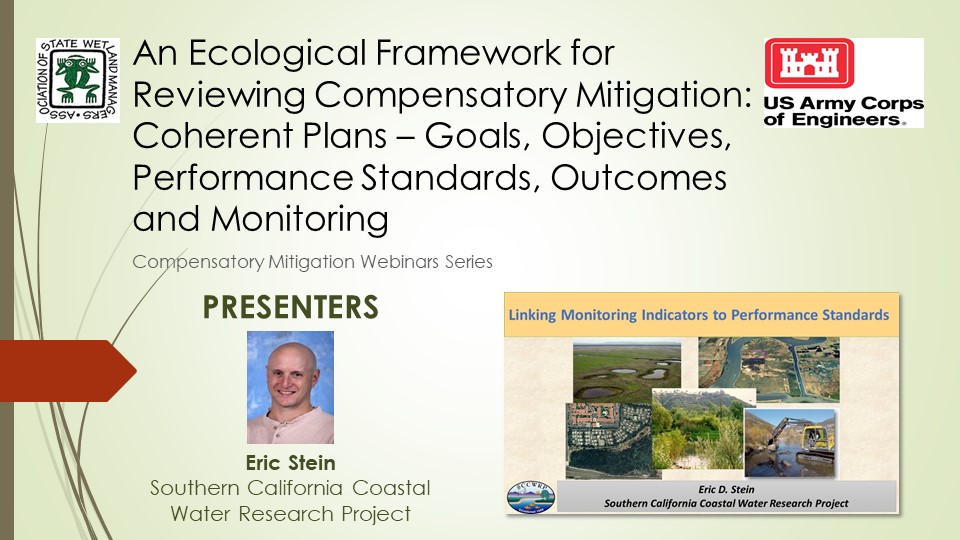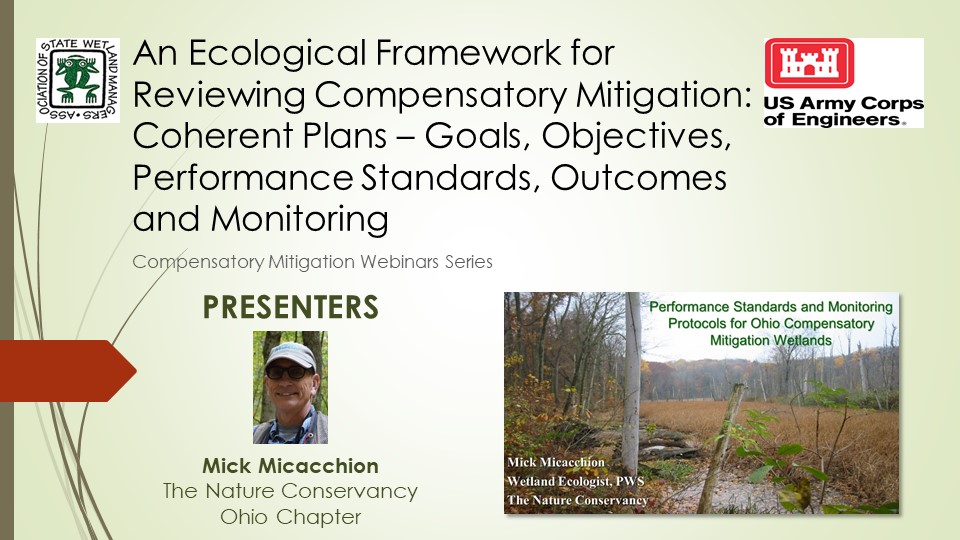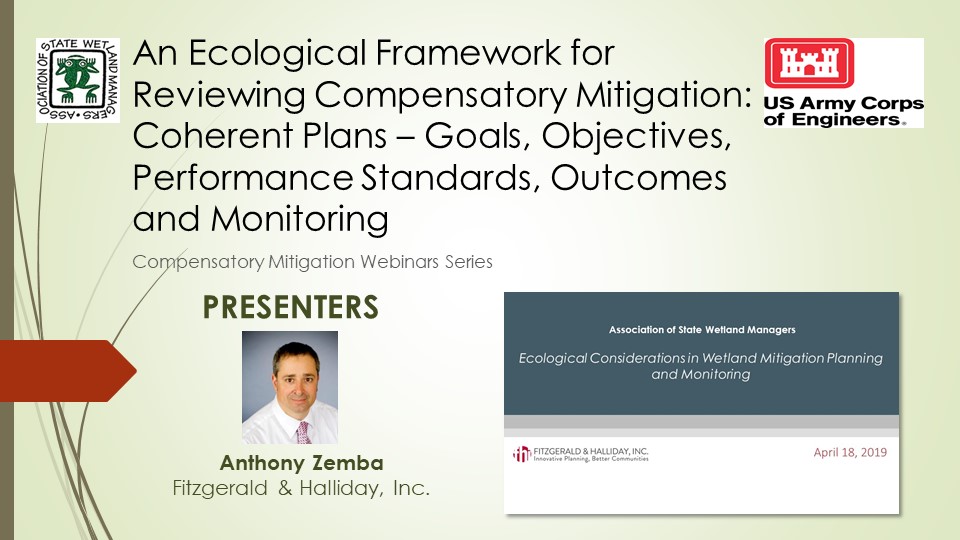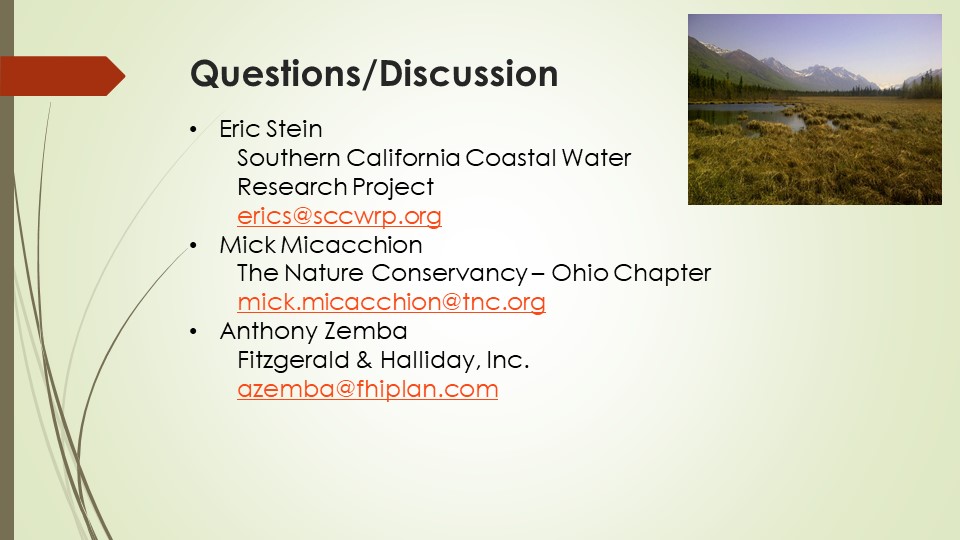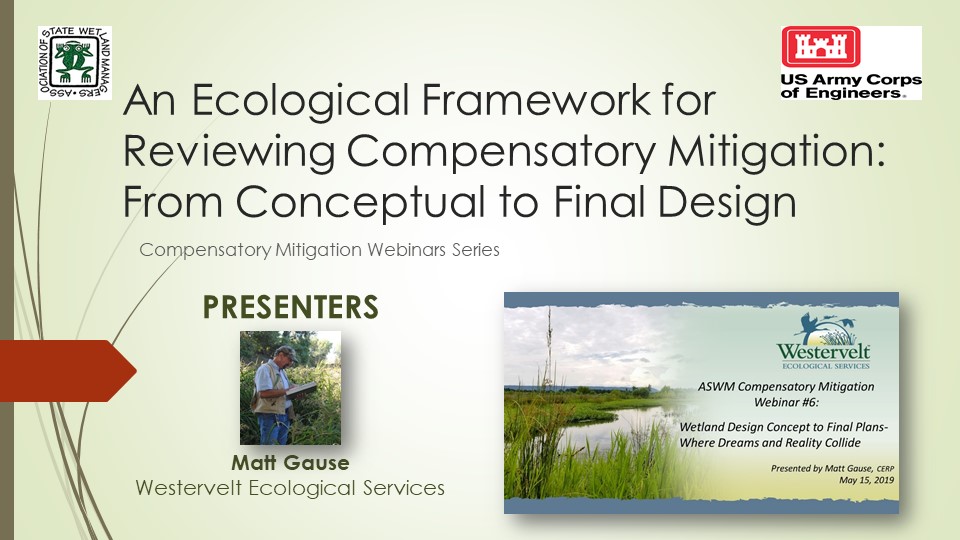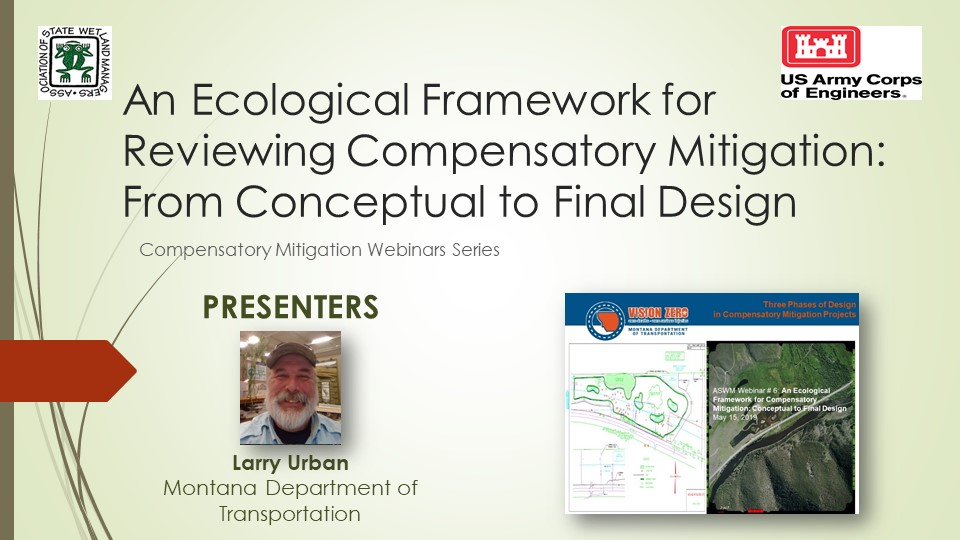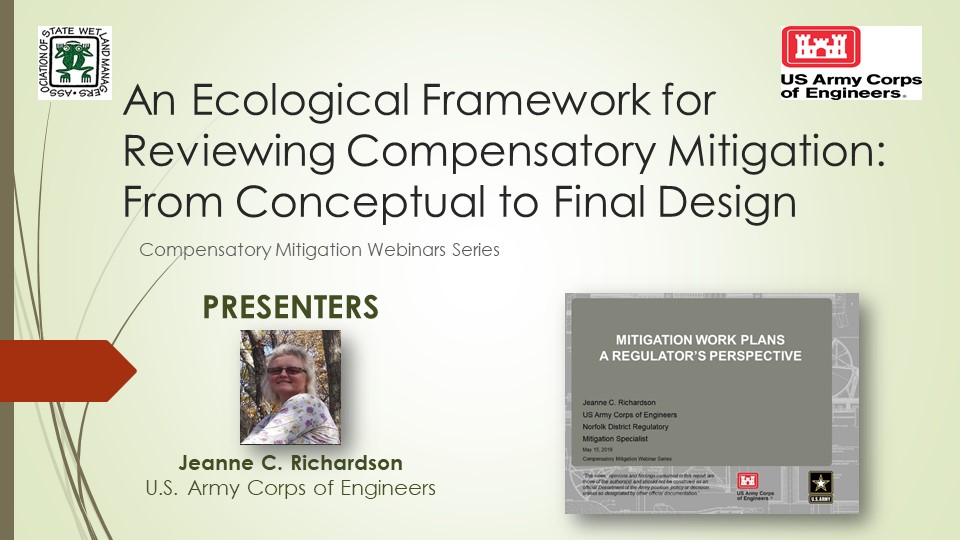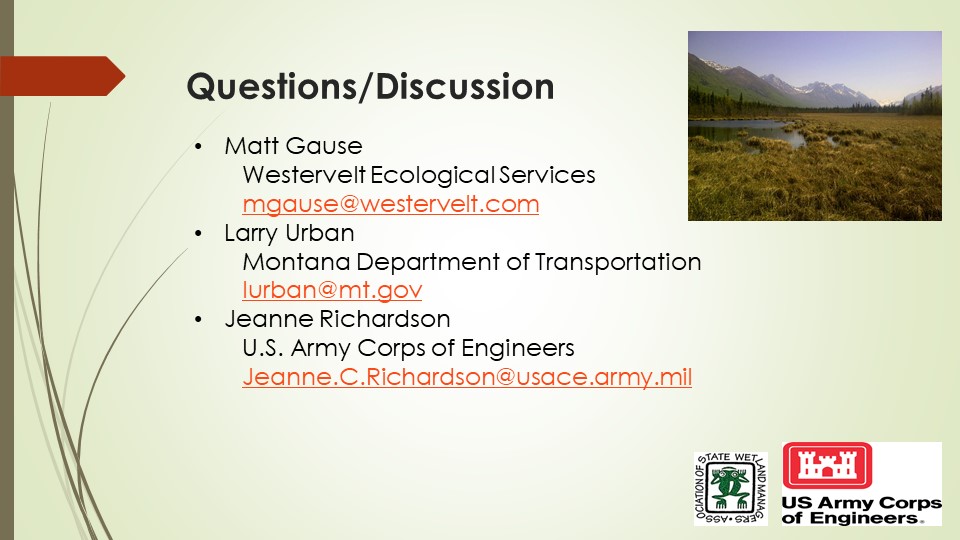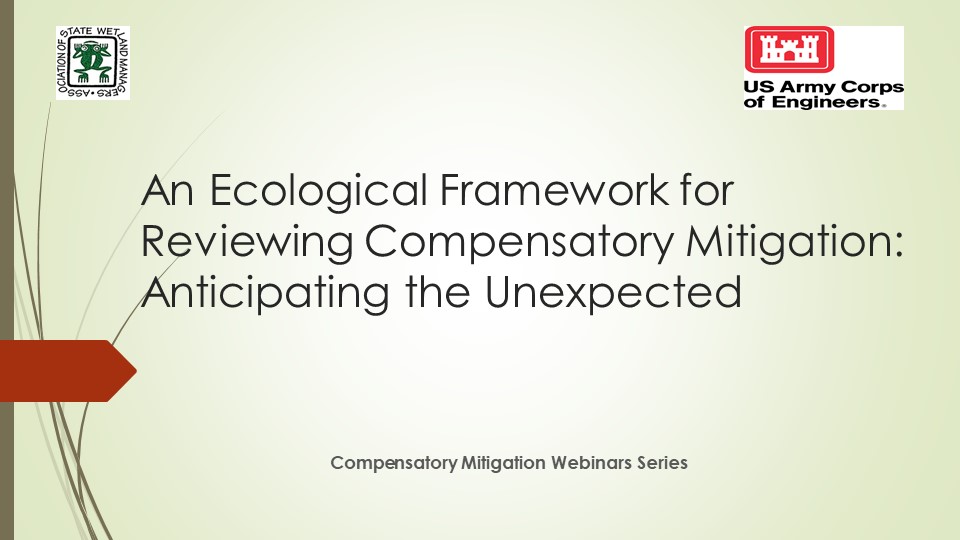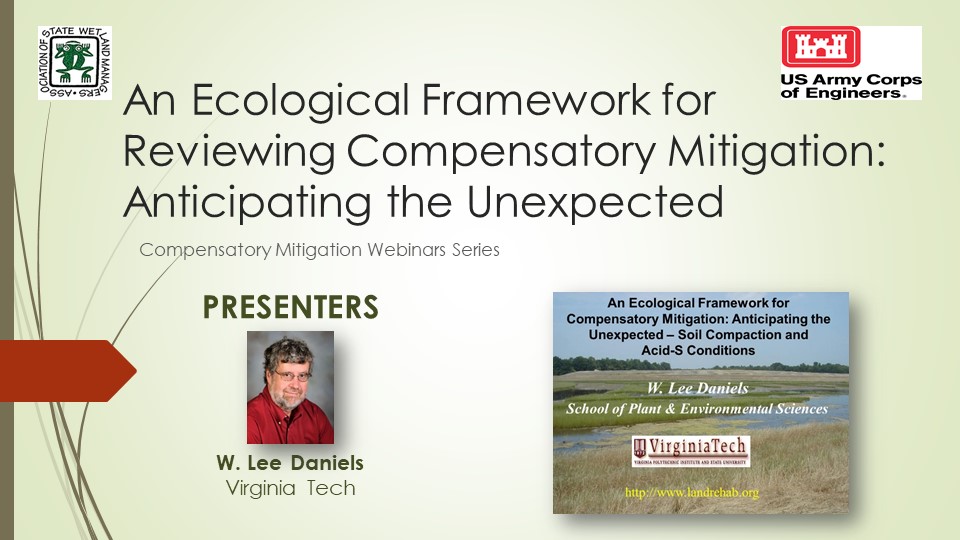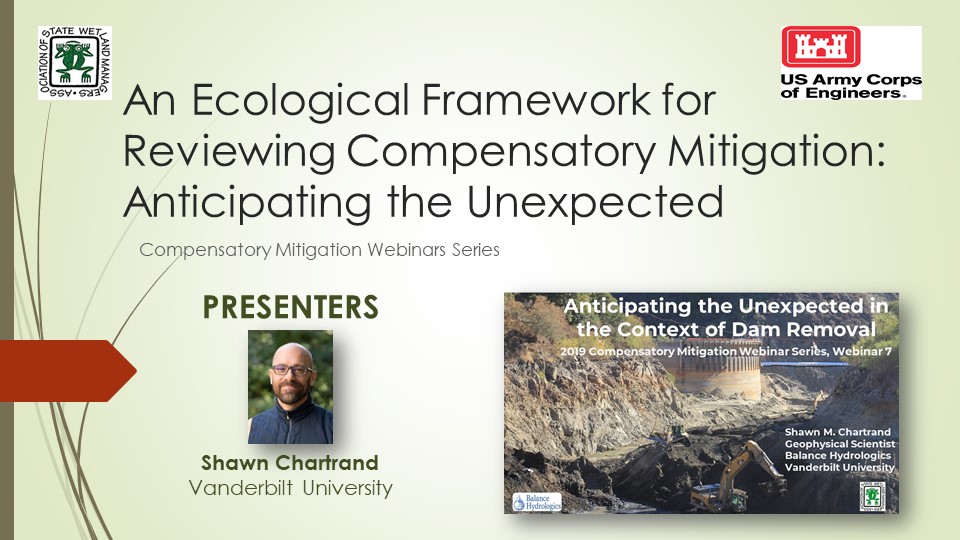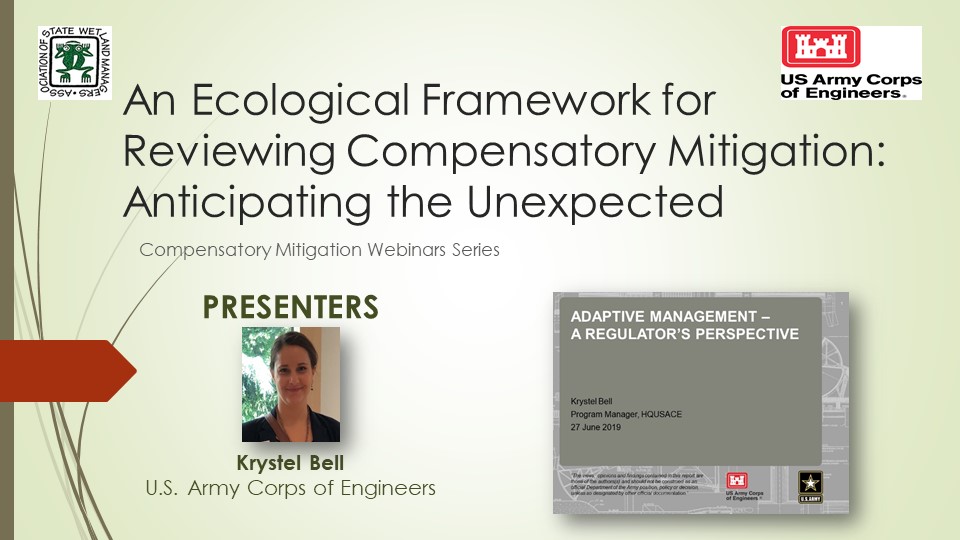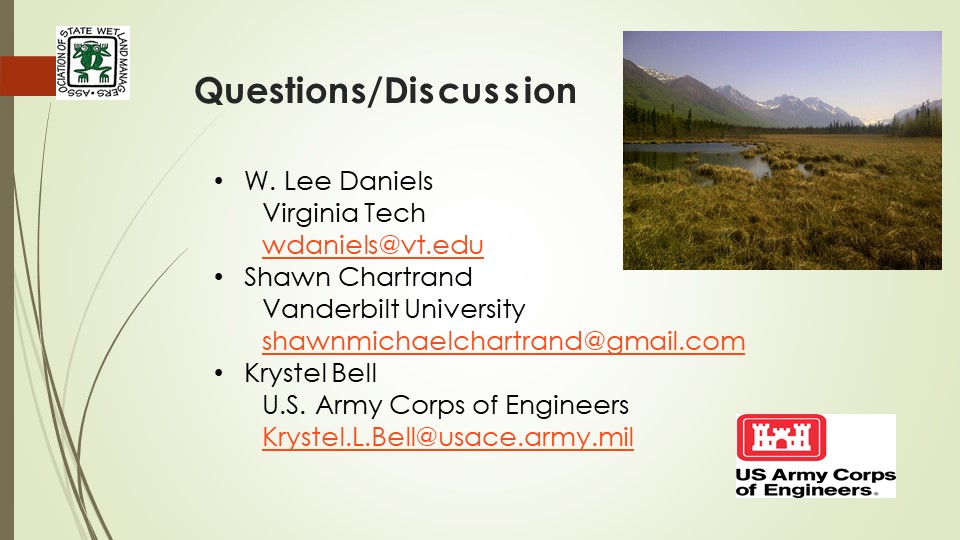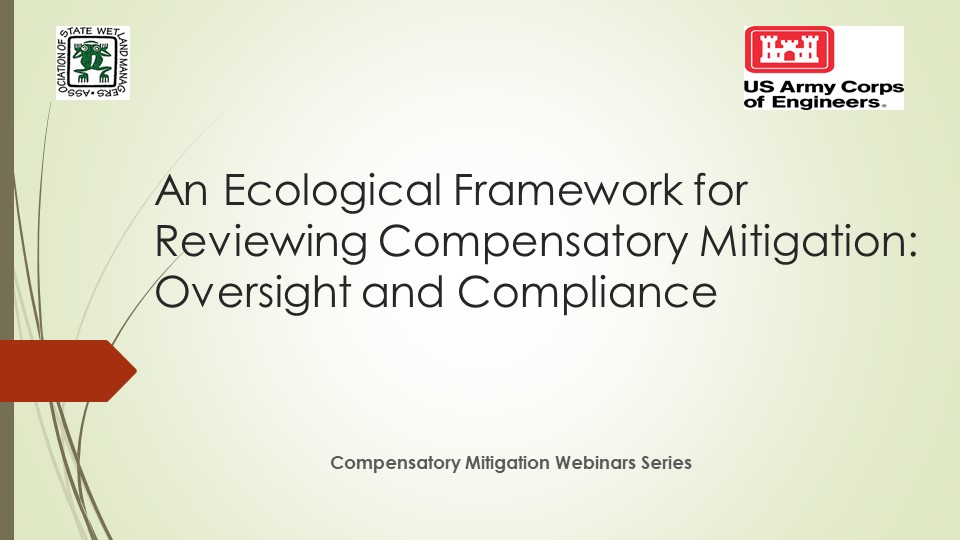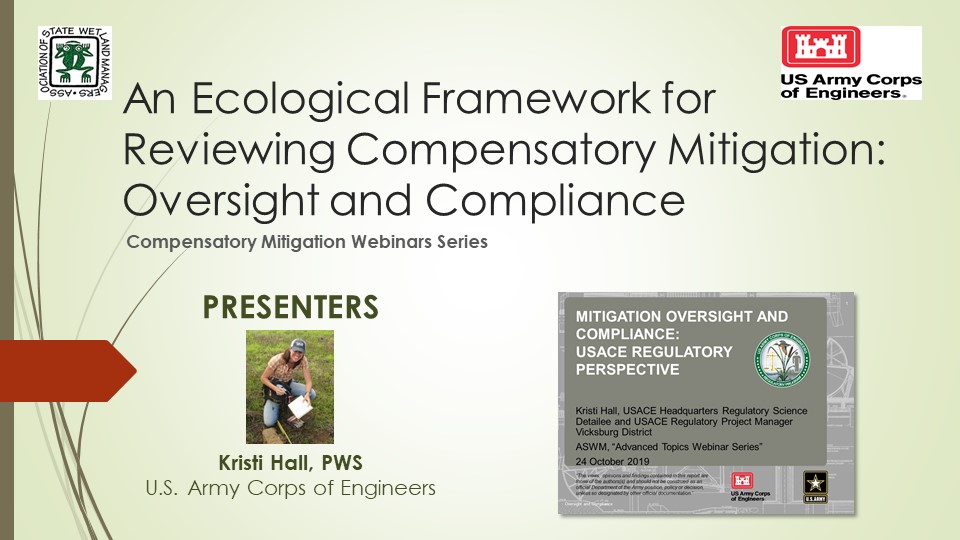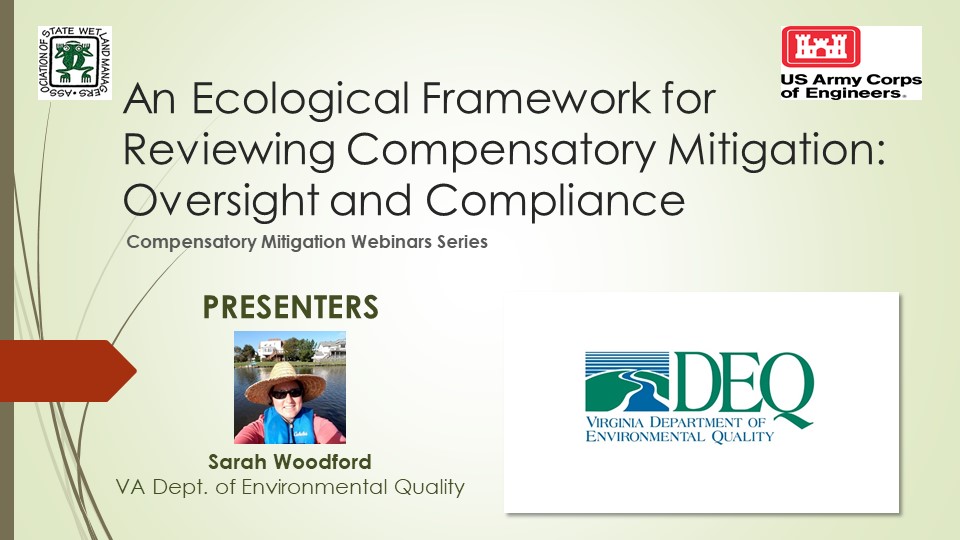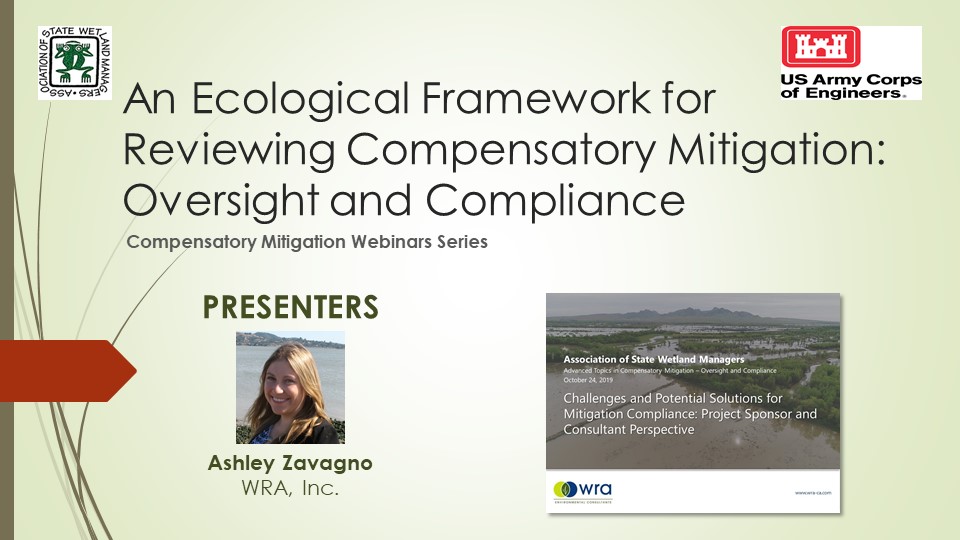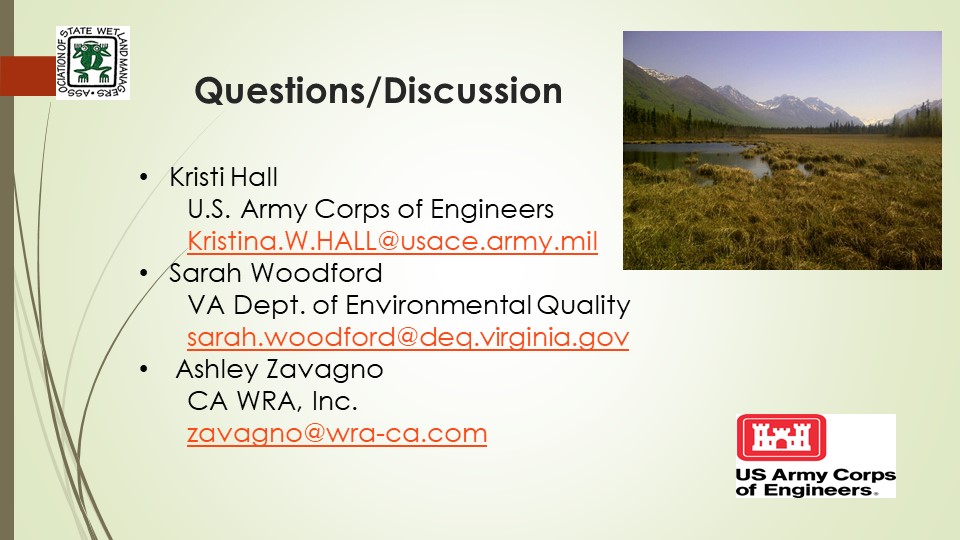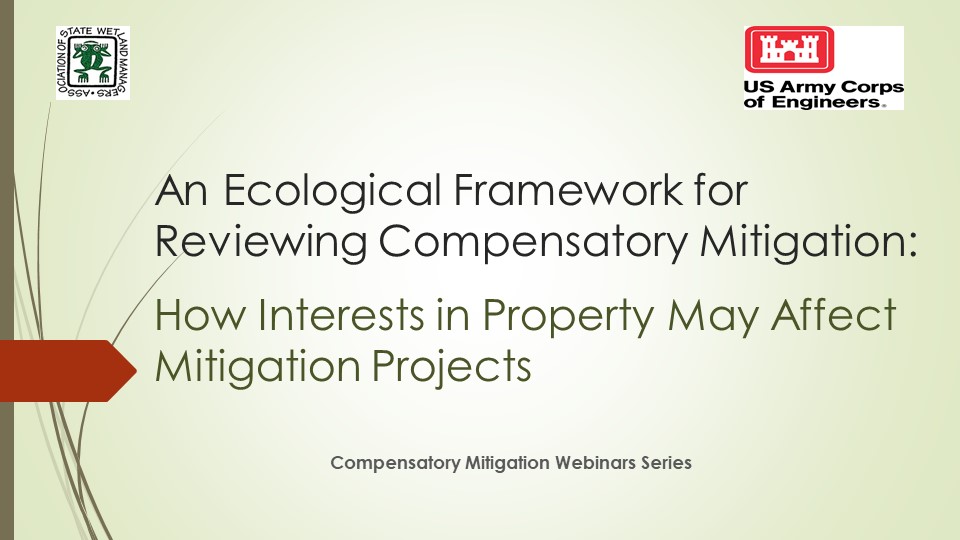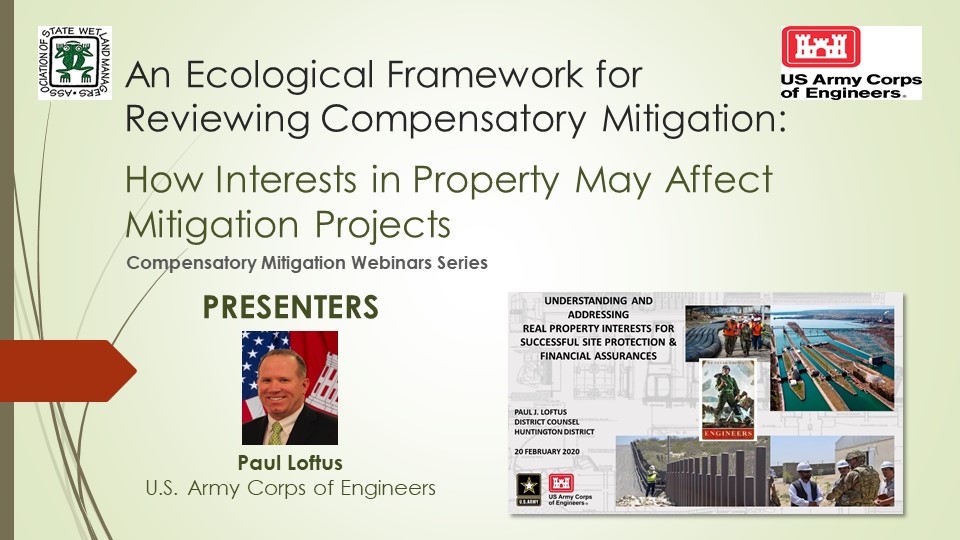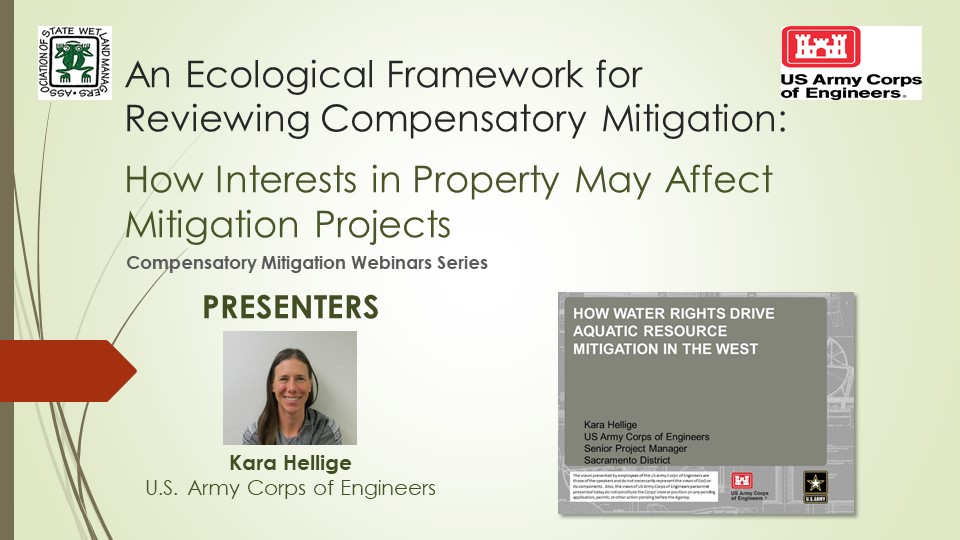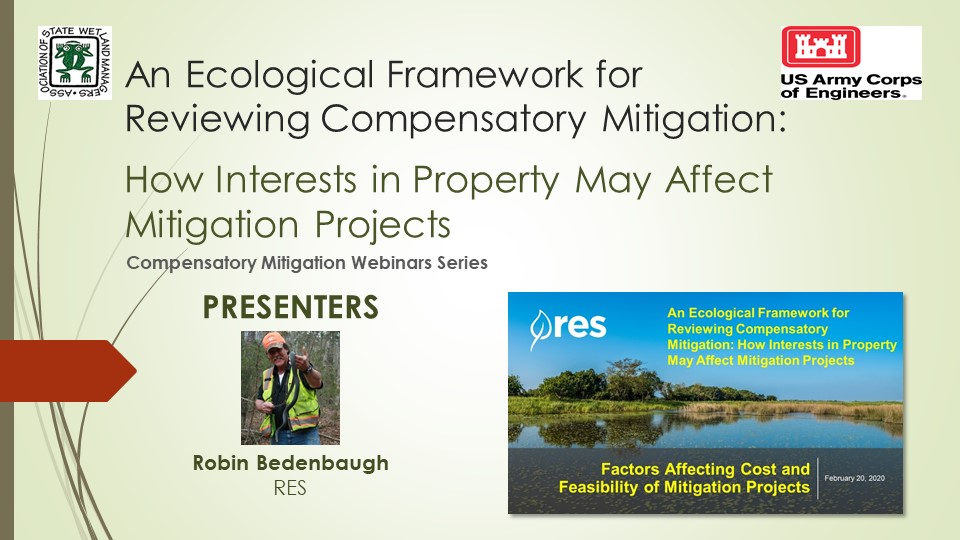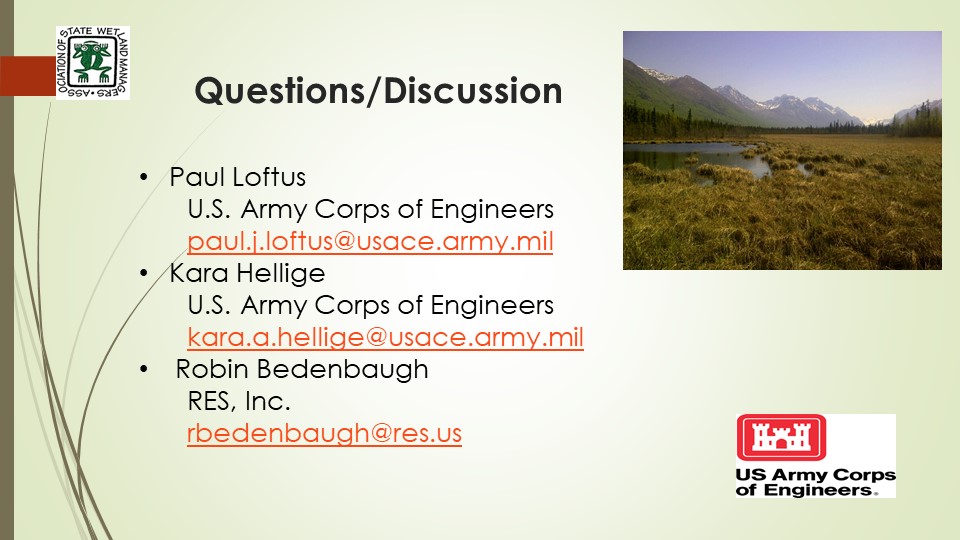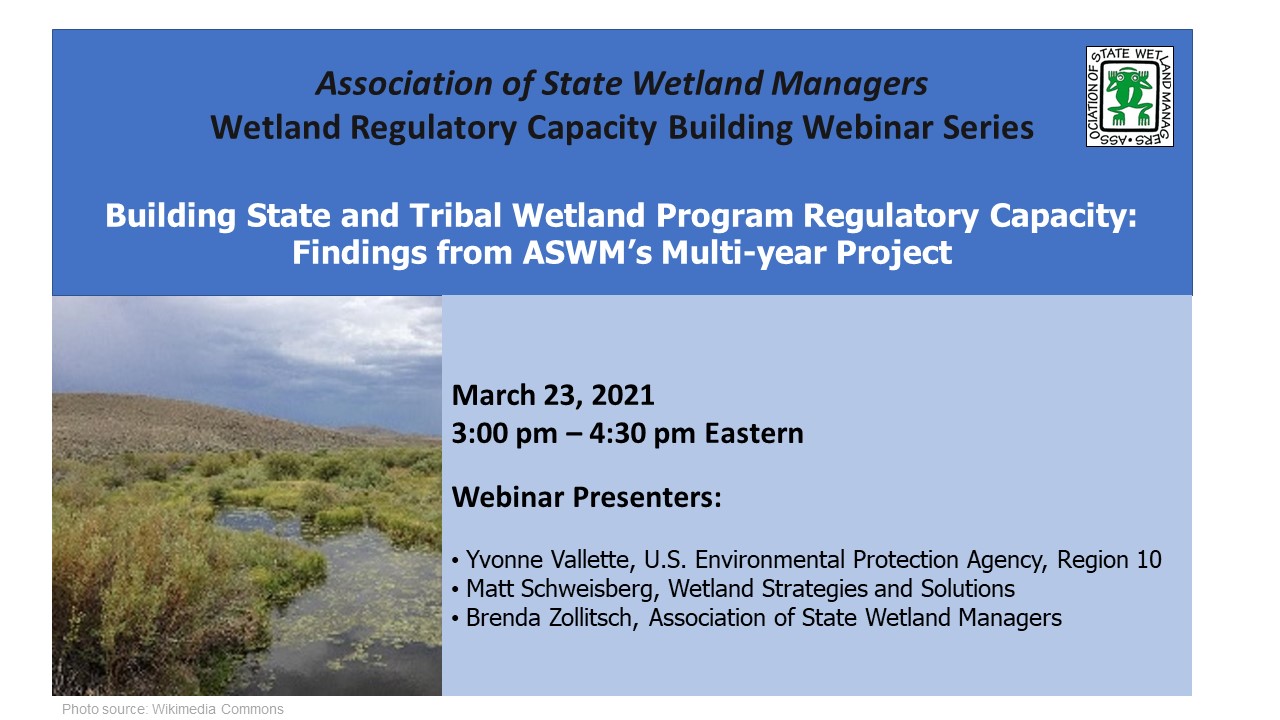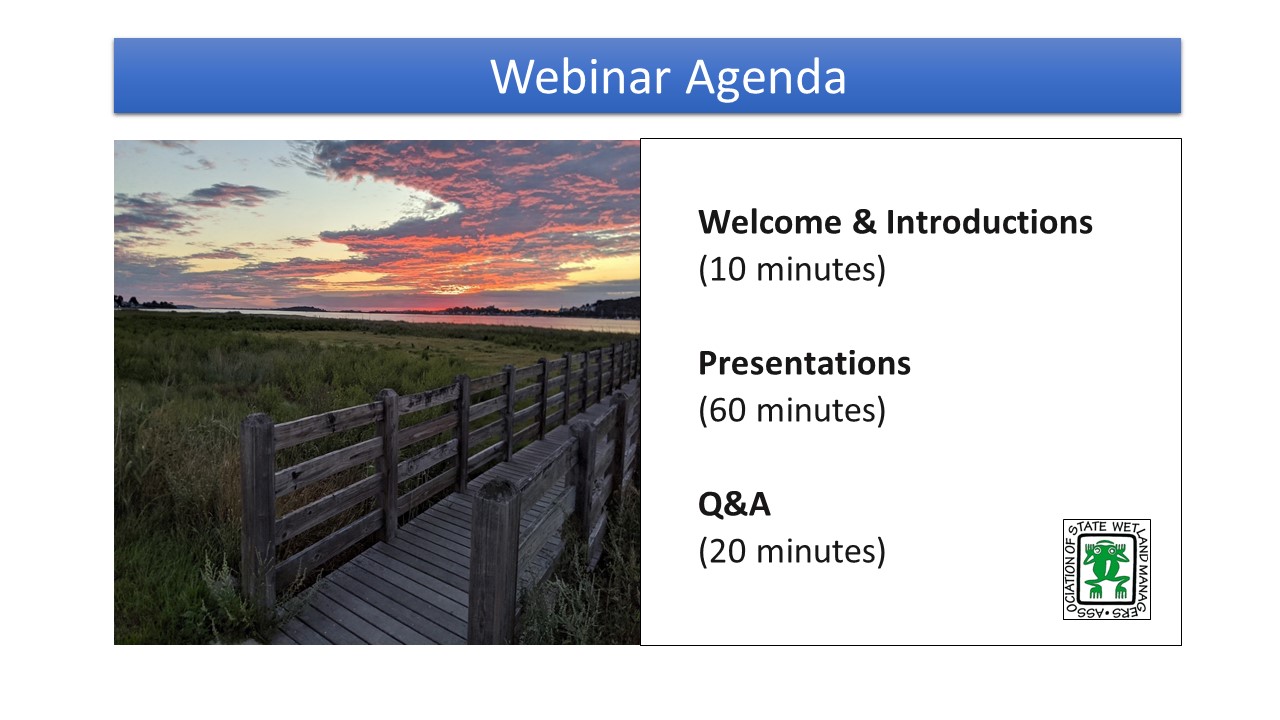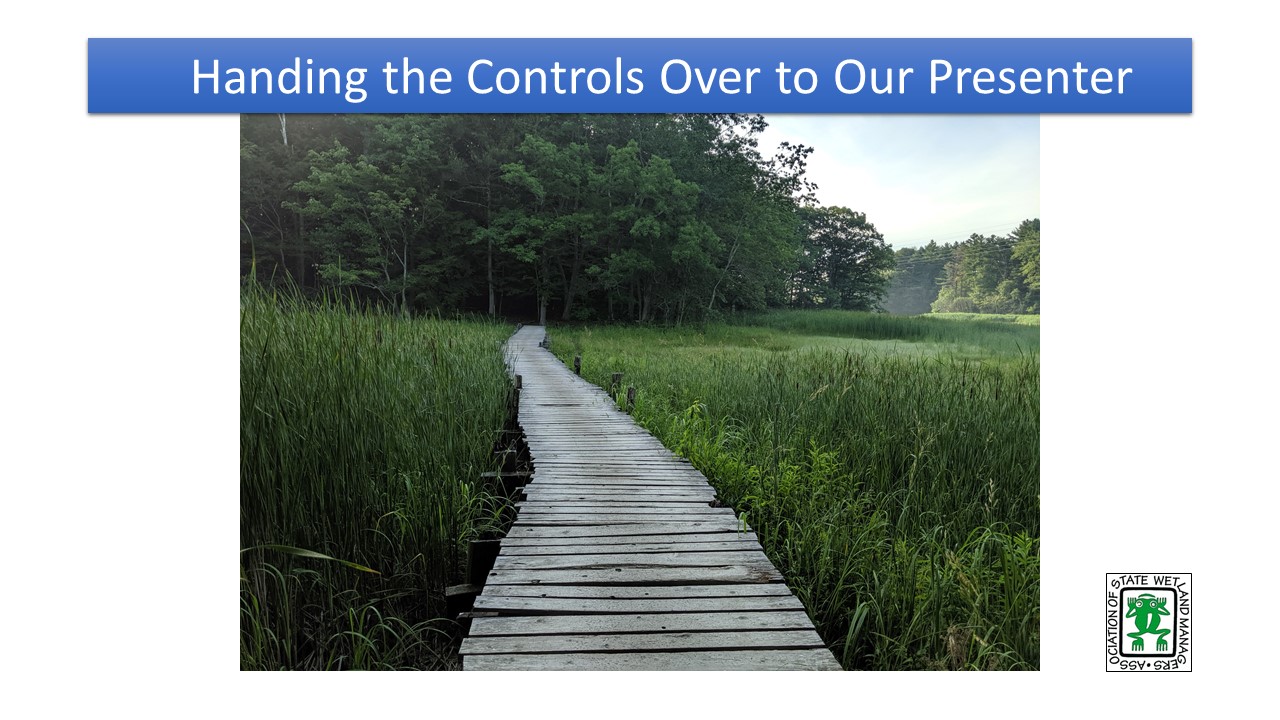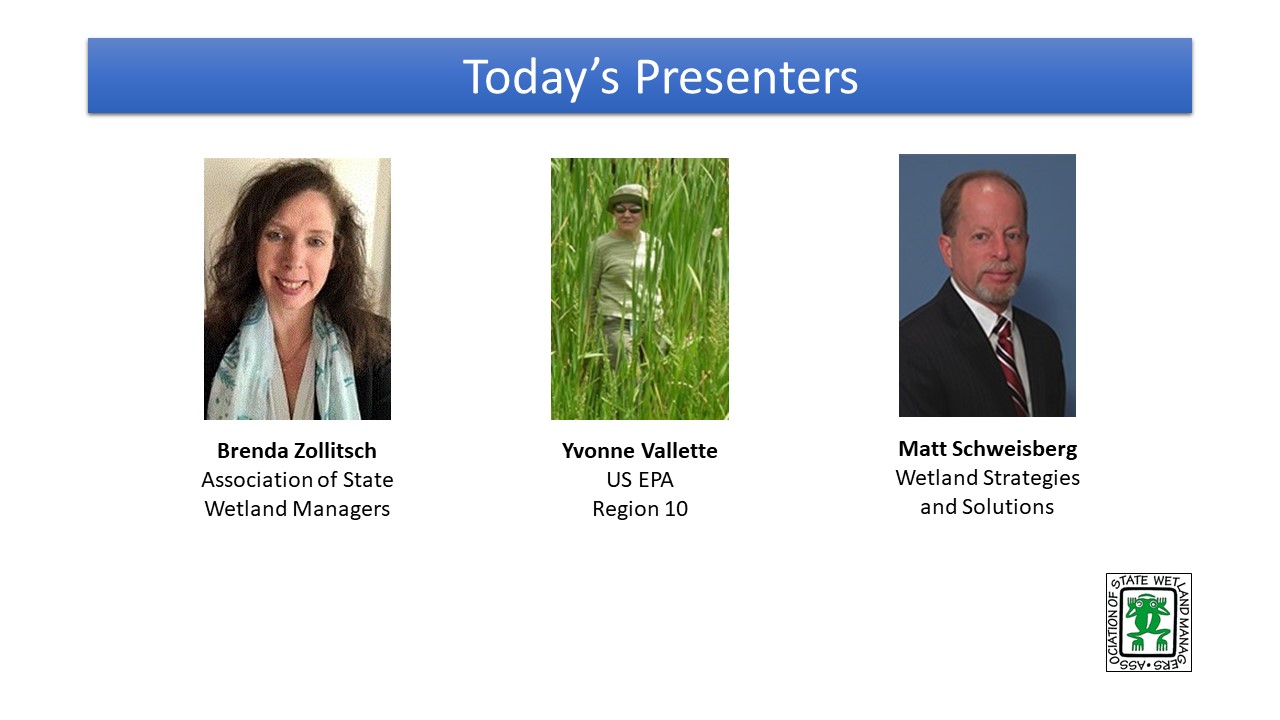NAWM
The National Association of Wetland Managers is a nonprofit membership organization established in 1983 to promote and enhance protection and management of wetland resources, to promote application of sound science to wetland management efforts and to provide training and education for our members and the public. Membership is open to anyone who is involved with wetland resources.

Dates: Held January 21-23, 2026
Location: Guana Tolomato Matanzas National Estuarine Research Reserve, Ponte Vedra Beach, FL
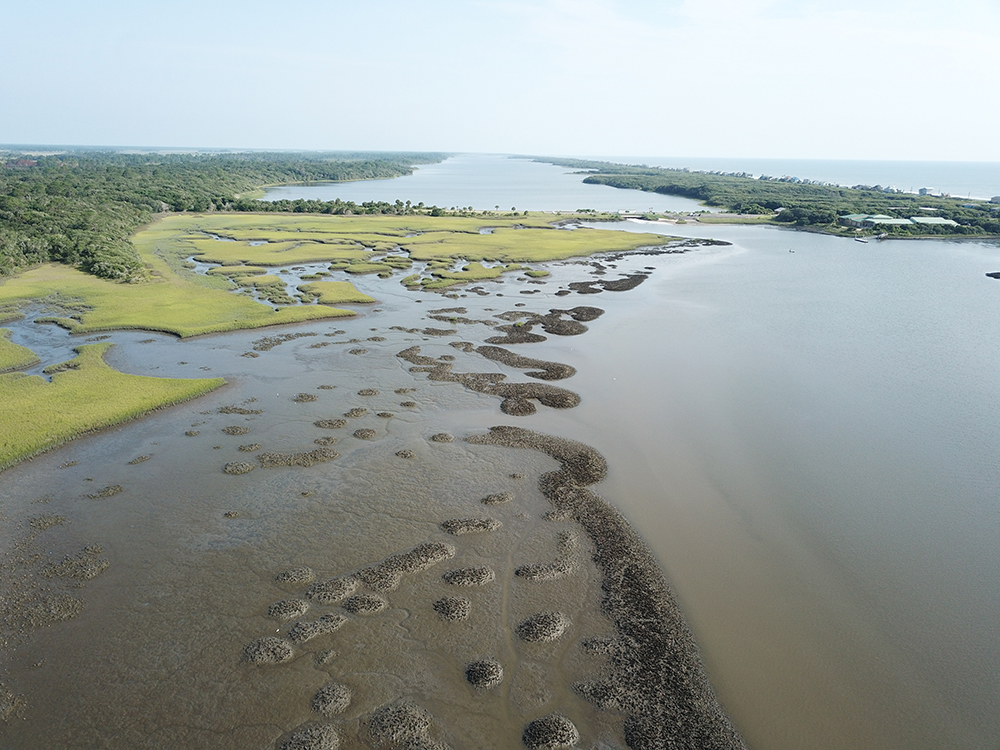 This third of five Advancing the Integration of Clean Water Act and Natural Hazard Mitigation Planning and Implementation project workshops was held January 21-23, 2026 at the Guana Tolomato Matanzas National Estuarine Research Reserve in Ponte Vedra Beach, Florida. The workshop aimed to facilitate collaborative partnerships and build cross-governmental relationships and awareness of what is going on in different departments, agencies, and at various levels of government in terms of hazard mitigation and water resource protection planning and program development. Participating state and local attendees included those from Alabama, Florida, Georgia, Louisiana, Mississippi, North Carolina, South Carolina, and Texas. The workshop brought participants together with a cadre of leaders in the fields of water and hazards management to discuss floodplains, wetlands, and green infrastructure, integrated planning, local permitting & regulations, land use planning, hydrologic and hydraulic studies, getting projects to implementation, and building and sustaining relationships. A mobile tour of the research reserve’s salt marsh restoration projects was included as well. The event was hosted by the National Association of Wetland Managers (NAWM) and the Association of State Floodplain Managers (ASFPM) with the U.S. Environmental Protection Agency (EPA), funded by an EPA cooperative agreement.
This third of five Advancing the Integration of Clean Water Act and Natural Hazard Mitigation Planning and Implementation project workshops was held January 21-23, 2026 at the Guana Tolomato Matanzas National Estuarine Research Reserve in Ponte Vedra Beach, Florida. The workshop aimed to facilitate collaborative partnerships and build cross-governmental relationships and awareness of what is going on in different departments, agencies, and at various levels of government in terms of hazard mitigation and water resource protection planning and program development. Participating state and local attendees included those from Alabama, Florida, Georgia, Louisiana, Mississippi, North Carolina, South Carolina, and Texas. The workshop brought participants together with a cadre of leaders in the fields of water and hazards management to discuss floodplains, wetlands, and green infrastructure, integrated planning, local permitting & regulations, land use planning, hydrologic and hydraulic studies, getting projects to implementation, and building and sustaining relationships. A mobile tour of the research reserve’s salt marsh restoration projects was included as well. The event was hosted by the National Association of Wetland Managers (NAWM) and the Association of State Floodplain Managers (ASFPM) with the U.S. Environmental Protection Agency (EPA), funded by an EPA cooperative agreement.
The workshop program can be reviewed here.
Photo: Guana Peninsula, Guana Lake and Guana River with the Guana dam separating the two waterbodies. Credit: Allix North, FL Department of Environmental Protection
Return to Integrated Watershed Management
MAWWG-NEBAWWG Webinar Series: Developing Wetland Conditional and Functional Assessments
Held Tuesday, December 10, 2024 - 3:00-4:30 p.m. EST
INTRODUCTION
- Ian Grosfelt, National Association of Wetland Managers [Presentation PDF]
PRESENTERS [Presentation PDF]
- Beth Connors, Maine Department of Environmental Protection
- Doug Suitor, Maine Department of Environmental Protection
ABSTRACTS
Beth Connors and Doug Suitor
The Maine DEP Biological Monitoring Program assesses the health of freshwater wetlands, rivers and streams by sampling aquatic macroinvertebrates and algae. Current wetland monitoring and assessment focuses on shallow emergent and aquatic bed wetland habitat associated with marshes, slow-moving rivers and streams, lakes and ponds. Maine's Water Classification Law establishes management goals and corresponding standards and criteria for all waters of the State. The Biological Monitoring Program developed statistical models to help determine if wetlands meet narrative aquatic life criteria for their legislatively-assigned water quality class under the state’s water quality standards. To improve wetland condition assessments and advance our ability to determine water quality class attainment we are developing Floristic Quality Assessment (FQA) metrics based on Coefficients of Conservatism (CoCs) developed for Maine and the Northeast Omernik III Ecoregions. We are identifying plant metrics useful in diagnosing impairment from specific stressors such as nutrient enrichment, sedimentation, water level changes and toxic chemicals, and determine condition thresholds relative to reference wetlands.
BIOS
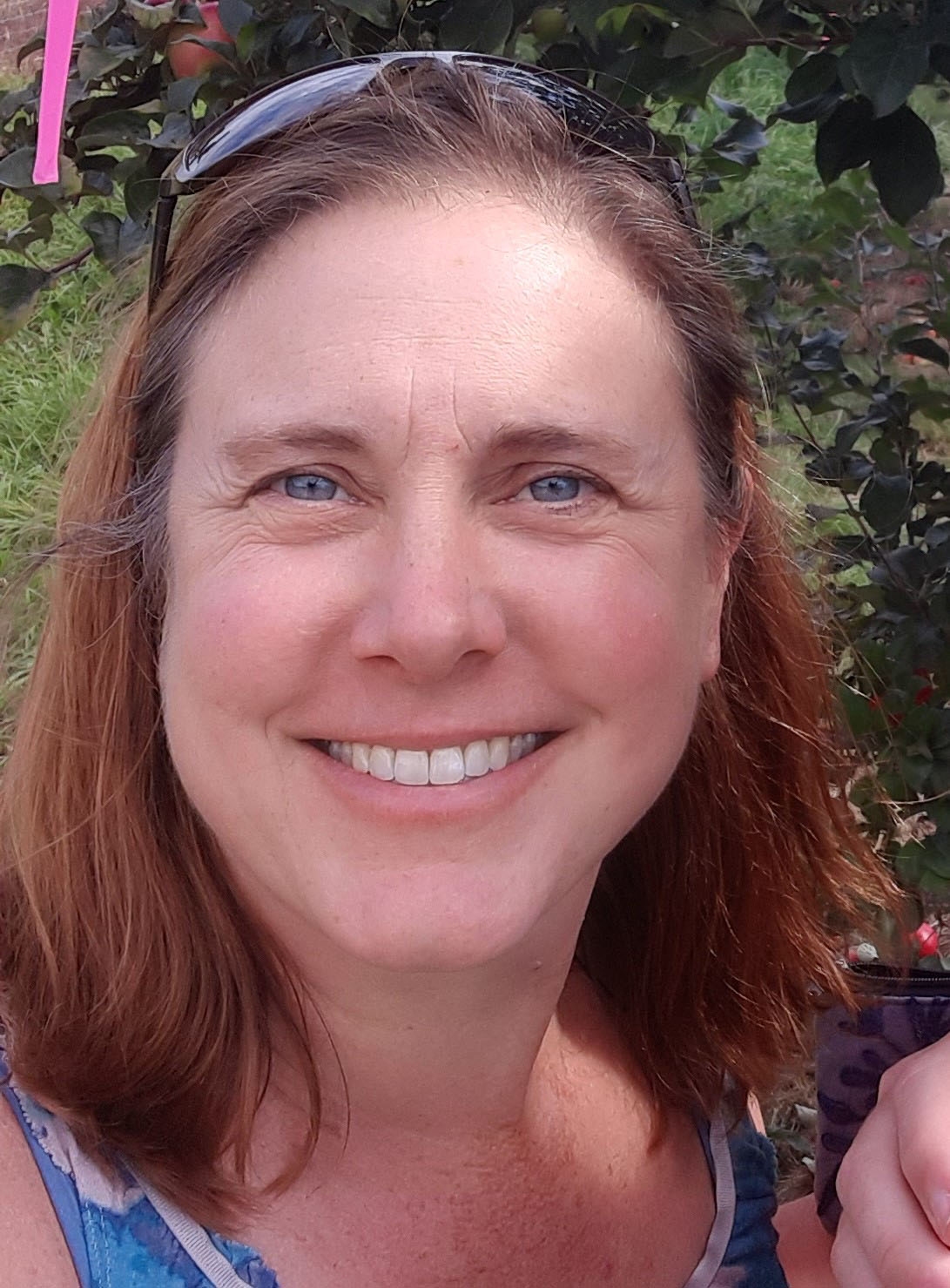 Beth Connors has worked with the Maine DEP’s Biological Monitoring Program in various capacities since 2002. Starting as a field technician and working up to lead the program’s wetland monitoring and assessment activities, she’s had a hand (or foot or paddle) in all types of freshwater biological monitoring done by the program. She has been instrumental in developing new biological criteria for macroinvertebrate and algal assemblages that will be incorporated into Maine’s water quality standards. Beth enjoys traveling across the state to explore rivers, streams and wetlands that others don’t generally see. Her current favorite pastime is discussing books, music and the mysteries of middle school with her 13-year-old son.
Beth Connors has worked with the Maine DEP’s Biological Monitoring Program in various capacities since 2002. Starting as a field technician and working up to lead the program’s wetland monitoring and assessment activities, she’s had a hand (or foot or paddle) in all types of freshwater biological monitoring done by the program. She has been instrumental in developing new biological criteria for macroinvertebrate and algal assemblages that will be incorporated into Maine’s water quality standards. Beth enjoys traveling across the state to explore rivers, streams and wetlands that others don’t generally see. Her current favorite pastime is discussing books, music and the mysteries of middle school with her 13-year-old son.
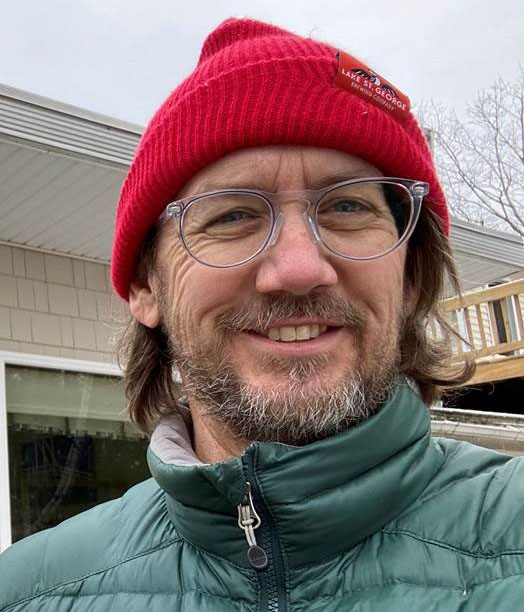 Doug Suitor is an aquatic biologist with the Maine Department of Environmental Protection’s Biomonitoring Unit. His work is focused on the assessment of wetland water quality and habitat. Research interests include incorporating aquatic plant and bird communities into wetland health evaluations. He joined the DEP after spending 15 years in FL working in marine habitat and endangered species management.
Doug Suitor is an aquatic biologist with the Maine Department of Environmental Protection’s Biomonitoring Unit. His work is focused on the assessment of wetland water quality and habitat. Research interests include incorporating aquatic plant and bird communities into wetland health evaluations. He joined the DEP after spending 15 years in FL working in marine habitat and endangered species management.
Please click only once on each video recording to view in this window.

MAWWG-NEBAWWG Webinar Series: Salt Marsh Projects and Programs
Held Wednesday, December 4, 2024 - 3:00-4:00 p.m. EST
INTRODUCTION
- Ian Grosfelt, National Association of Wetland Managers [Presentation PDF]
PRESENTERS
- Mihaela Enache, New Jersey Department of Environmental Protection [Presentation PDF]
- Tom Kutcher, Rhode Island Natural History Survey [Presentation PDF]
ABSTRACTS
Mihaela Enache
Diatom-based applications for assessment and monitoring of New Jersey coastal wetlands condition
Due to high sensitivity to environmental conditions, diatoms are one of the most used aquatic indicators in environmental assessment, mitigation, and monitoring. NJDEP started investigations based on coastal diatoms in collaboration with external partners in 2012 . These investigations revealed an inventory of more than 800 species, with about one third being new to science. Numerical analyses revealed strong relationships between diatoms and salinity, nutrients, and tidal exposure. Weighted-averaging partial least square transfer functions were developed for Tidal Exposure Index (TEI; R2boot = 0.87; RMSEPboot = 15.6%) and Standardized Water-Level Index (SWLI; R2boot = 0.56; RMSEPboot = 0.18) to assess the sea level rise (SLR) impacts, in addition to sediment total nitrogen concentration (TN; R2boot = 0.58; RMSEPboot = 0.29% dry weight). Investigations were conducted based on sediment diatoms on a high number of NJ wetland sites to reveal regional trends in tidal flooding and nutrient pollution. Overall, sites with highest nitrogen pollution and sites that are receiving highest impacts from tidal exposure did not reveal a specific regional trend but were scattered across the NJ coast suggesting that conditions can vary locally. Results from these investigations are providing wetland stakeholders with an additional tool to establish restoration goals and ensure best management practices to address nutrient pollution, climate change, and SLR.
Tom Kutcher
Rhode Island’s Salt Marsh Restoration, Assessment, and Monitoring Program (RAMP)
Rhode Island salt marshes are in critical danger of degradation and loss from pervasive anthropogenic disturbances, including inundation stress associated with sea-level rise. In recent decades, salt marsh platform elevations have lagged behind the rising tide frame concurrent with a loss of nearly 12% of vegetated area from edge and platform dieoff. Managers and scientists have responded by developing and implementing plans to organize salt-marsh monitoring, assessment, and intervention efforts while leveraging collective knowledge across state, federal, academic, and NGO agencies. The multi-agency collaboration we call the Salt Marsh RAMP (Restoration, Assessment, and Monitoring Program) has made steady progress in actuating these plans by standardizing management tools and methods across agencies, collecting condition and disturbance data across numerous marshes, expanding long-term monitoring sites and methods, prioritizing marshes for restoration and migration facilitation, testing and implementing innovative restoration and conservation methods, documenting and assessing restoration outcomes, applying adaptive management, and increasing the state’s capacity to initiate and carry out restoration and conservation actions. This presentation outlined our past, current, and upcoming work.
BIOS
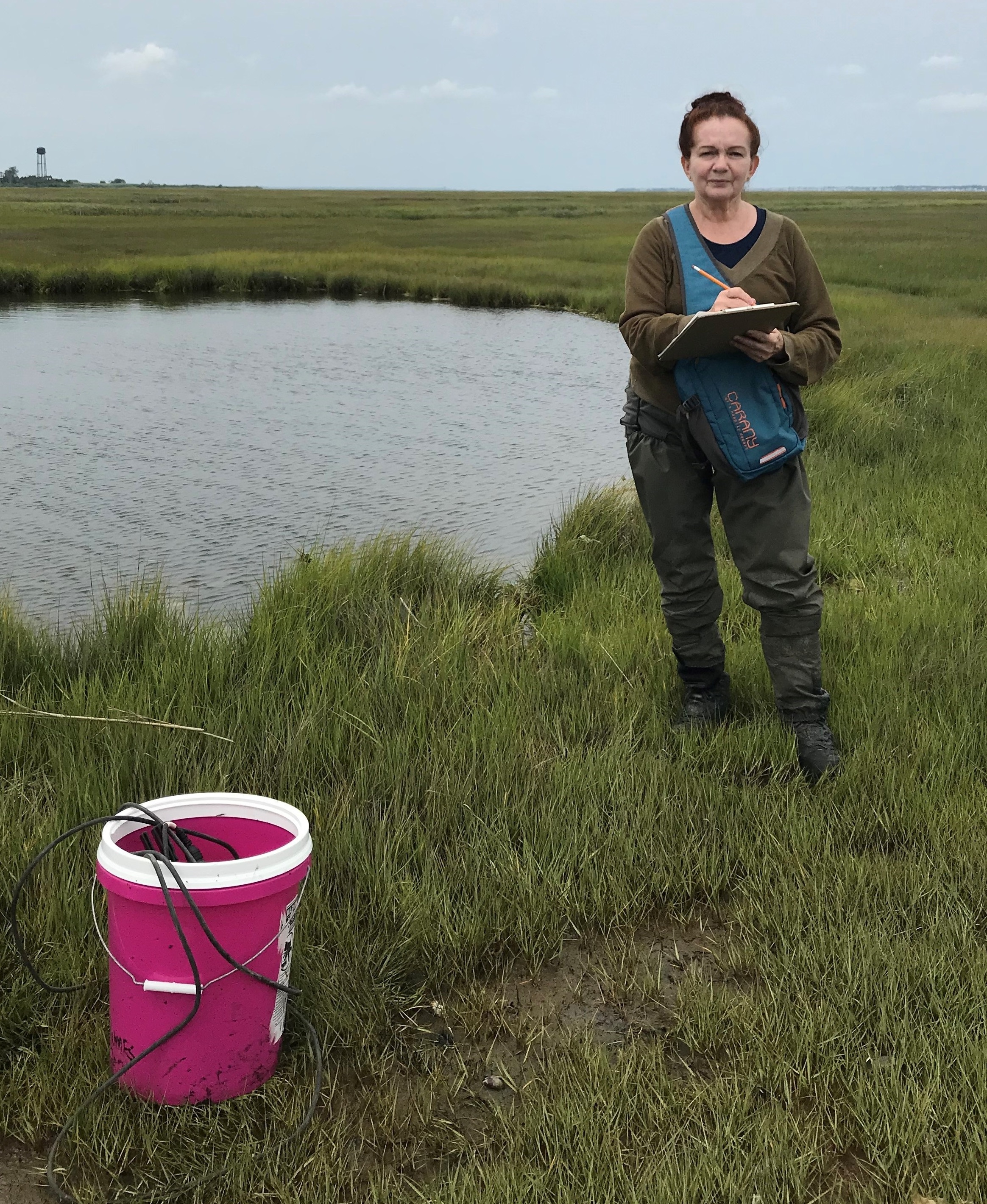 Mihaela Enache first connections to the microscopic world started in eastern Europe, at the beautiful and old University Al. I. Cuza with the study of microscopic fossils and their applications in biostratigraphy. There, she focused on foraminifera found in the mid-Miocene from the Carpathians and the Cheliff Basin in N Africa. At that time, she totally fell in love with the study of microfossils and their potential in telling the fascinating past of the earth. Then, she had the opportunity to work with diatoms as part of a national –scale project meant to protect Canadian forests. That was love at first sight! Then she pursued to look deeper into how diatoms can be used to reconstruct past climate conditions and forest fire relationships in lakes from British Columbia. Her experience with diatoms encompasses a quarter century and since 2012 at New Jersey Department of Environmental Protection she is working on diatom-based applications in freshwater and coastal systems. These applications are encompassing reconstruction of reference conditions, direction of change under anthropogenic stressors, and present-day condition assessment. Mihaela has a Doctorate in micropaleontology from the University Al.I Cuza (Romania) and a PhD in paleolimnology from Queens University (Canada)
Mihaela Enache first connections to the microscopic world started in eastern Europe, at the beautiful and old University Al. I. Cuza with the study of microscopic fossils and their applications in biostratigraphy. There, she focused on foraminifera found in the mid-Miocene from the Carpathians and the Cheliff Basin in N Africa. At that time, she totally fell in love with the study of microfossils and their potential in telling the fascinating past of the earth. Then, she had the opportunity to work with diatoms as part of a national –scale project meant to protect Canadian forests. That was love at first sight! Then she pursued to look deeper into how diatoms can be used to reconstruct past climate conditions and forest fire relationships in lakes from British Columbia. Her experience with diatoms encompasses a quarter century and since 2012 at New Jersey Department of Environmental Protection she is working on diatom-based applications in freshwater and coastal systems. These applications are encompassing reconstruction of reference conditions, direction of change under anthropogenic stressors, and present-day condition assessment. Mihaela has a Doctorate in micropaleontology from the University Al.I Cuza (Romania) and a PhD in paleolimnology from Queens University (Canada)
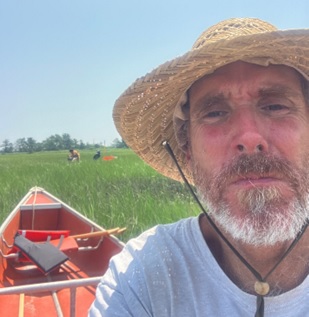 Tom Kutcher is a Wetland Scientist for the Rhode Island Natural History Survey, where he works to develop wetland monitoring, assessment, and restoration programming for Rhode Island’s state environmental agencies. He is a co-author of the Rhode Island Salt Marsh Monitoring and Assessment Strategy and principal author of the Rhode Island Coastal Wetland Restoration Strategy. Tom has developed and implemented wetland monitoring and assessment methods across Rhode Island, including for recent large-scale salt marsh restoration projects. Tom formerly worked as Stewardship Coordinator at the Narragansett Bay Estuarine Research Reserve, served as the Narragansett Baykeeper with Save The Bay and the Waterkeeper Alliance, and has worked as an adjunct instructor in the Landscape Architecture Program at the Rhode Island School of Design. Tom lives and recreates along the shores of Narragansett Bay with his marine-biologist wife and two salty kids.
Tom Kutcher is a Wetland Scientist for the Rhode Island Natural History Survey, where he works to develop wetland monitoring, assessment, and restoration programming for Rhode Island’s state environmental agencies. He is a co-author of the Rhode Island Salt Marsh Monitoring and Assessment Strategy and principal author of the Rhode Island Coastal Wetland Restoration Strategy. Tom has developed and implemented wetland monitoring and assessment methods across Rhode Island, including for recent large-scale salt marsh restoration projects. Tom formerly worked as Stewardship Coordinator at the Narragansett Bay Estuarine Research Reserve, served as the Narragansett Baykeeper with Save The Bay and the Waterkeeper Alliance, and has worked as an adjunct instructor in the Landscape Architecture Program at the Rhode Island School of Design. Tom lives and recreates along the shores of Narragansett Bay with his marine-biologist wife and two salty kids.
Please click only once on each video recording to view in this window.
MAWWG-NEBAWWG Webinar Series: Updating the National Wetlands Inventory in US Territories
Held Wednesday, September 4, 2024 - 3:00-4:00 p.m. EDT
INTRODUCTION
- Ian Grosfelt, National Association of Wetland Managers [Presentation PDF]
PRESENTERS
- Jes Skillman, Ducks Unlimited [Presentation - PDF]
- William Hernández, Environmental Mapping Consultants, LLC. [Presentation - PDF]
BIOS
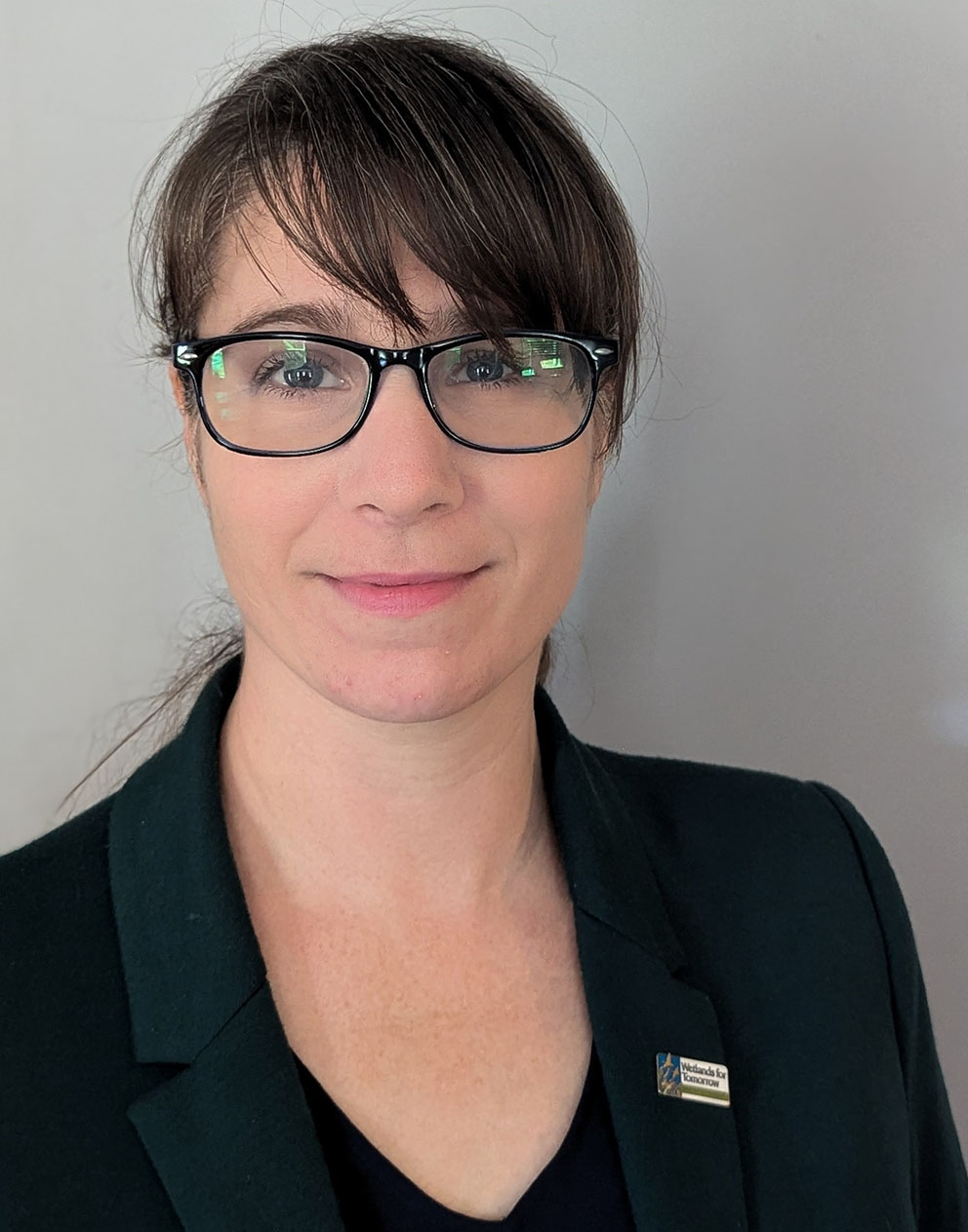 Ms. Skillman has over 12 years' experience in Conservation GIS at Ducks Unlimited. She currently manages and coordinates the Geospatial Department of Duck’s Unlimited’s Great Lakes / Atlantic office. In this role, Ms. Skillman works closely with stakeholders, the DU Conservation Team, and the DU GIS team to develop baseline data, priority area mapping tools, and web applications that align with conservation goals. She has experience mapping wetlands, landcover, and protected lands. She has also built several decision support tools and online web mapping applications for planning, decision support, and collaboration. Ms. Skillman has a BA in Ecology from the University of Toronto and a Masters in Conservation Biology from the University of Michigan.
Ms. Skillman has over 12 years' experience in Conservation GIS at Ducks Unlimited. She currently manages and coordinates the Geospatial Department of Duck’s Unlimited’s Great Lakes / Atlantic office. In this role, Ms. Skillman works closely with stakeholders, the DU Conservation Team, and the DU GIS team to develop baseline data, priority area mapping tools, and web applications that align with conservation goals. She has experience mapping wetlands, landcover, and protected lands. She has also built several decision support tools and online web mapping applications for planning, decision support, and collaboration. Ms. Skillman has a BA in Ecology from the University of Toronto and a Masters in Conservation Biology from the University of Michigan.
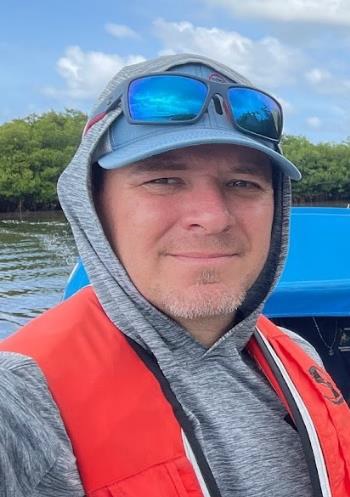 Dr. Hernández is the Founder and Executive Director of Environmental Mapping Consultants LLC. He has more than 18 years of experience in the development and implementation of geographic information systems (GIS) and remote sensing (RS) applications to in coastal and marine ecosystems and a wide range of industries. He has led research projects studying the impacts of Sargassum and coastal water quality using satellite remote sensing technology and field monitoring. Dr. Hernández holds a PhD in marine sciences with a specialty in biological oceanography from the University of Puerto Rico Mayagüez, and postdoctoral studies in satellite remote sensing and coastal water quality from City College, City University of New York.
Dr. Hernández is the Founder and Executive Director of Environmental Mapping Consultants LLC. He has more than 18 years of experience in the development and implementation of geographic information systems (GIS) and remote sensing (RS) applications to in coastal and marine ecosystems and a wide range of industries. He has led research projects studying the impacts of Sargassum and coastal water quality using satellite remote sensing technology and field monitoring. Dr. Hernández holds a PhD in marine sciences with a specialty in biological oceanography from the University of Puerto Rico Mayagüez, and postdoctoral studies in satellite remote sensing and coastal water quality from City College, City University of New York.
Please click only once on each video recording to view in this window.

American Wetlands Month Webinar:
One Year Since Sackett v. EPA: Strategies for Moving Forward with Wetland Protections
Held Wednesday, May 29, 2024 - 3:00 p.m.-4:30 p.m. EDT
In celebration of American Wetlands Month in May, this Members' Webinar was open to all.
ABSTRACT
Wetlands and streams are at risk more than ever at the global and national level. The most recent U.S. Fish and Wildlife Service Wetlands Status and Trends Report finds that more than half of wetlands in the lower 48 states are gone, and loss rates have increased by 50 percent since 2009. Additionally, the 2023 Supreme Court decision on Sackett v Environmental Protection Agency (EPA) rolled back federal protections of wetlands and other water bodies. Some estimates anticipate a loss of protections on 63% of our nation's wetlands as a consequence of the Sackett decision. The result is that state and Tribally led clean water protections are more important now than ever. Without additional conservation actions to protect these ecosystems, wetland loss will likely continue, reducing ecosystem benefits for people and habitat for fish and wildlife.
How do we move forward? While there is no one right or best way to approach this dilemma, one thing is clear – partnerships will be critical for success. In this webinar, you learned about approaches that two organizations, the National Association of Wetland Managers and the Theodore Roosevelt Conservation Partnership, are taking to increase public awareness about the value of wetlands as well as gain support in Congress to increase funding and flexibility for federal, state and Tribal wetland programs.
INTRODUCTION
- Portia Osborne, Project Managers, National Association of Wetland Managers [Presentation PDF]
PRESENTERS
- Marla Stelk, National Association of Wetland Managers [Presentation PDF]
- Alexander Funk, Theodore Roosevelt Conservation Partnership [Presentation PDF]
BIO
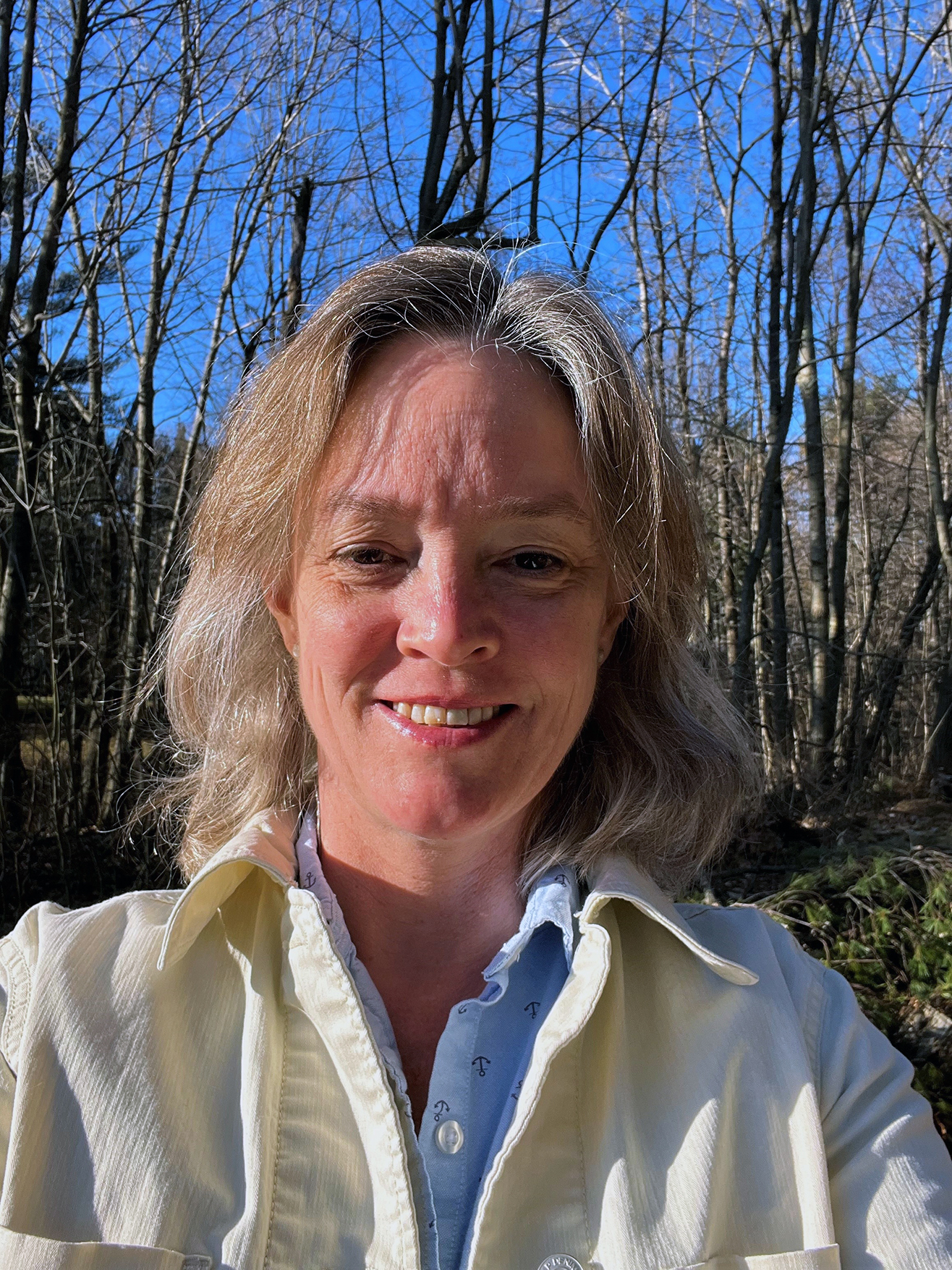
Marla Stelk is the Executive Director at the National Association of Wetland Managers (NAWM) where she has worked on wetland policy and management issues since 2013. Marla has over 25 years of experience working on wetland, water, and wildlife issues, climate change, environmental policy and research, land use planning, communications and organizational leadership. Marla has led research at NAWM on topics such as ecosystem service valuation for wetland restoration, the role of wetlands in floodplain and natural hazard management, wetlands and watershed health, wetland mapping and communications. Prior to coming to NAWM, Marla worked for a variety of environmental and social nonprofit organizations helping to build organizational capacity, manage projects and improve internal processes. Marla earned her MA in Community Planning and Development with a focus on Land Use and the Environment at the University of Southern Maine’s Muskie School of Public Service and her BA in Environmental Issues from Colorado College.
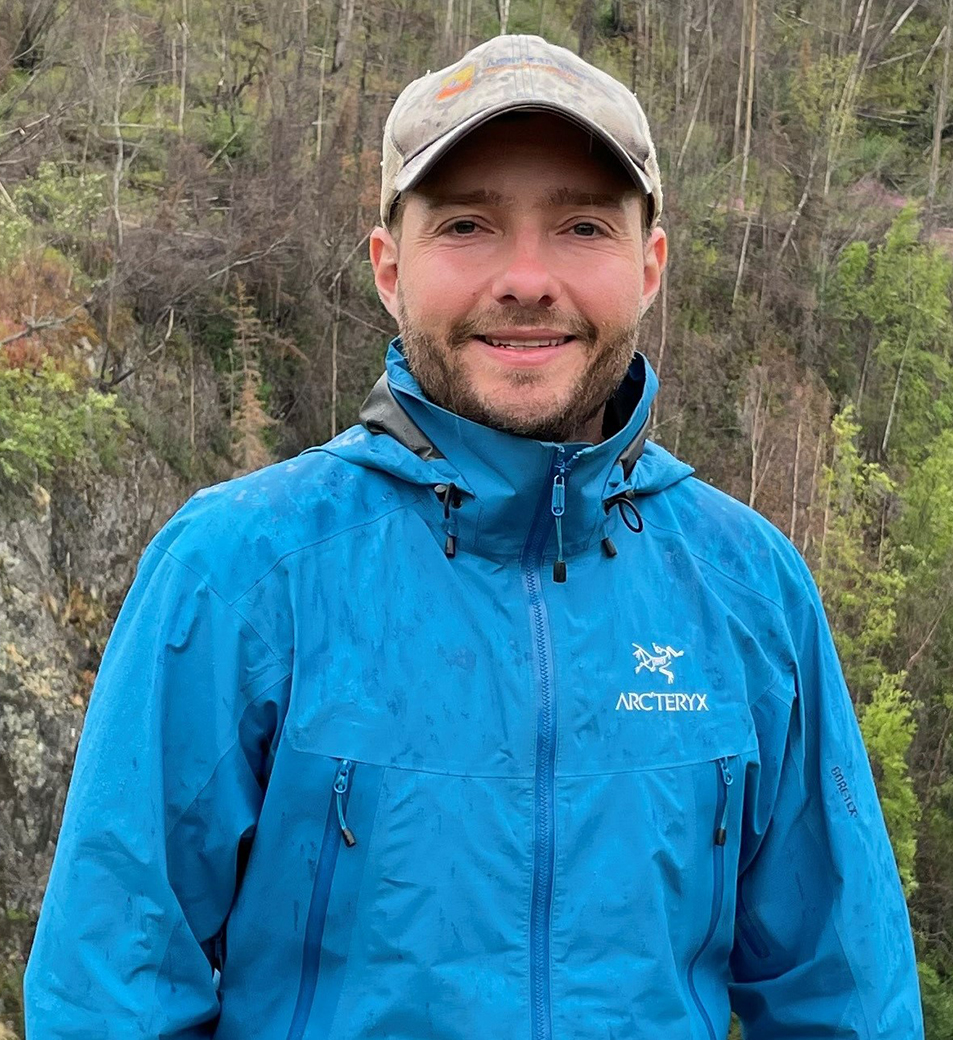 Alex Funk is the Director of Water Resources and Senior Counsel for the Theodore Roosevelt Conservation Partnership, which works to guarantee all Americans a quality place to hunt and fish. Alex has over a decade of experience working on Colorado River and western water challenges. In his role with the TRCP, Alex leads the organization’s national freshwater policy efforts focusing on issues ranging from the Clean Water Act to securing federal funding to increase the pace and scale of watershed conservation and restoration projects benefiting fish and wildlife. Alex previously served as the Agricultural and Rural Resiliency Policy Specialist at the Colorado Water Conservation Board, where he acted as the agency’s liaison to agricultural stakeholders on federal and state water policy issues, including such topics as demand management and voluntary water sharing agreements. Prior to CWCB, Alex served as the Western Policy Director for the National Young Farmers Coalition, focusing on Farm Bill policy, and a legal fellow with American Rivers.
Alex Funk is the Director of Water Resources and Senior Counsel for the Theodore Roosevelt Conservation Partnership, which works to guarantee all Americans a quality place to hunt and fish. Alex has over a decade of experience working on Colorado River and western water challenges. In his role with the TRCP, Alex leads the organization’s national freshwater policy efforts focusing on issues ranging from the Clean Water Act to securing federal funding to increase the pace and scale of watershed conservation and restoration projects benefiting fish and wildlife. Alex previously served as the Agricultural and Rural Resiliency Policy Specialist at the Colorado Water Conservation Board, where he acted as the agency’s liaison to agricultural stakeholders on federal and state water policy issues, including such topics as demand management and voluntary water sharing agreements. Prior to CWCB, Alex served as the Western Policy Director for the National Young Farmers Coalition, focusing on Farm Bill policy, and a legal fellow with American Rivers.
Alex earned his Juris Doctorate from Vermont Law School and his bachelor’s degree in environmental policy and planning from Virginia Tech. Alex is a graduate of the Colorado Water Leaders Program with Water Education Colorado and is currently a member of the 2024 Colorado River Leaders cohort with the Water Education Foundation. Alex lives in Denver, Colo., with his family and can frequently be found mountain biking, backpacking, climbing fourteeners, and paddling his kayak around the West.
Please click only once on each video recording to view in this window.

MAWWG-NEBAWWG Webinar Series: Wetland Classifications
Held Wednesday, May 22, 2024 - 3:00-4:00 p.m. ET
INTRODUCTION
- Ian Grosfelt, National Association of Wetland Managers [Presentation PDF]
PRESENTERS
- Bill Nichols, New Hampshire Natural Heritage Bureau [Presentation PDF]
- Mary Ann Furedi, Pennsylvania Natural Heritage Program [Presentation PDF]
ABSTRACTS
Bill Nichols
NH Natural Heritage Bureau’s (NHB) ecological system classification provides a practical scale to inform the coarse filter approach to biodiversity conservation, whereby conserving an adequate number of viable examples of each system type, we can protect the majority of NH’s species. NHB gives special attention to exemplary ecological systems – ranging from all examples of rare types to high quality examples of common types – because they are among the best remaining examples of biological diversity in the state. This presentation identified the steps that collectively provide the science-based results used to inform conservation, wetland permit review, and mitigation in New Hampshire.
An examination of seepage wetlands in Pennsylvania
Mary Ann Furedi
Seepage wetlands represent a unique group of wetlands in Pennsylvania. They form in localized areas of groundwater discharge and play important biological and ecological roles. Given their small size, seepage wetlands are often poorly mapped and may be easily overlooked from a land management perspective. This presentation focused on how plant communities can be used to identify and better understand the distribution of these important aquatic resources.
BIOS
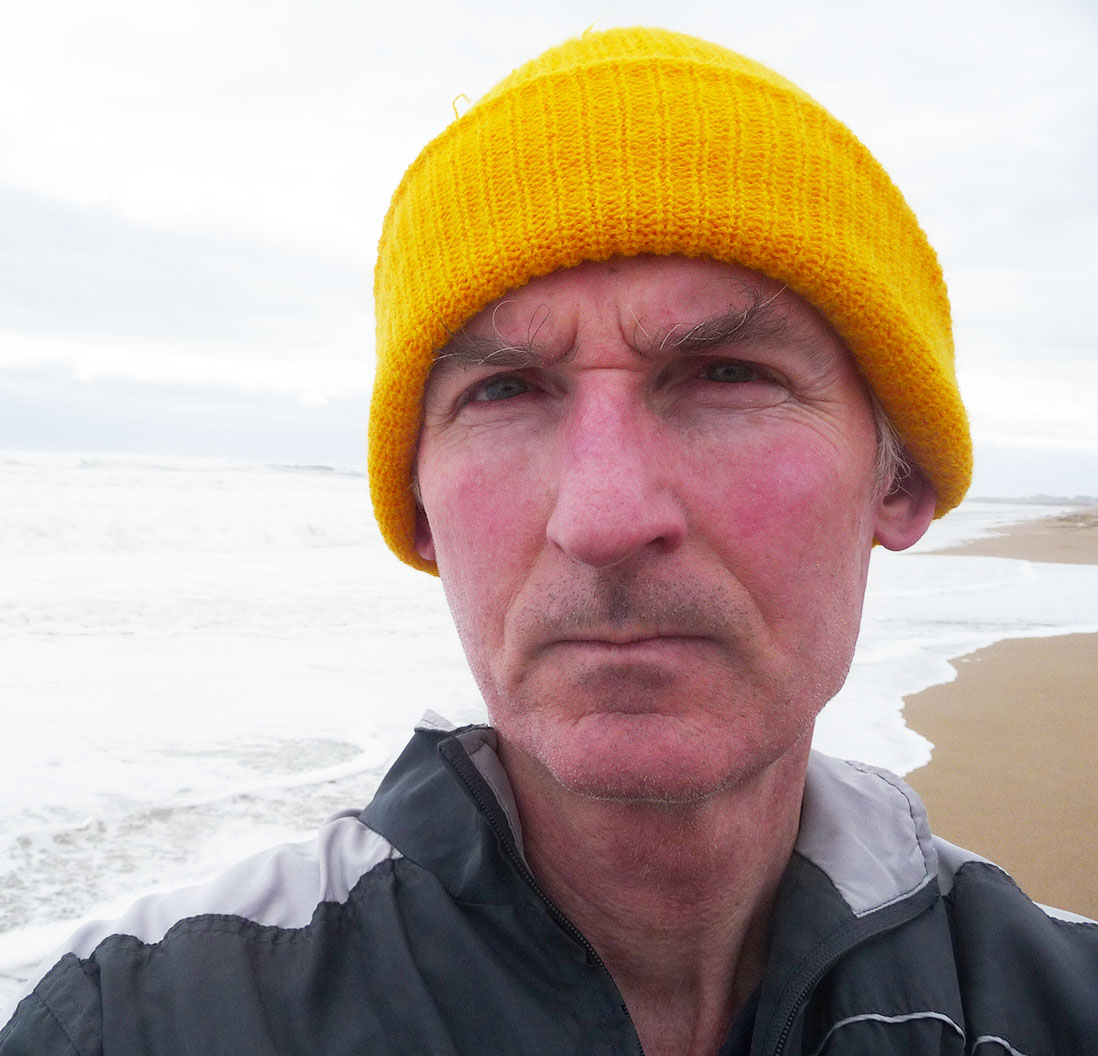 Bill Nichols is the Senior Ecologist and State Botanist with the New Hampshire Natural Heritage Bureau, where he has worked since 1996. Prior to this position, he worked for six years with the Massachusetts Audubon Society and the Audubon Society of Rhode Island. Bill has a Master of Science Degree in Botany from the University of Rhode Island and a Bachelor of Science Degree in Marine Biology from the University of New England. Bill has authored/coauthored 25 journal articles on ecological integrity assessment methods and NH’s flora and natural communities.
Bill Nichols is the Senior Ecologist and State Botanist with the New Hampshire Natural Heritage Bureau, where he has worked since 1996. Prior to this position, he worked for six years with the Massachusetts Audubon Society and the Audubon Society of Rhode Island. Bill has a Master of Science Degree in Botany from the University of Rhode Island and a Bachelor of Science Degree in Marine Biology from the University of New England. Bill has authored/coauthored 25 journal articles on ecological integrity assessment methods and NH’s flora and natural communities.
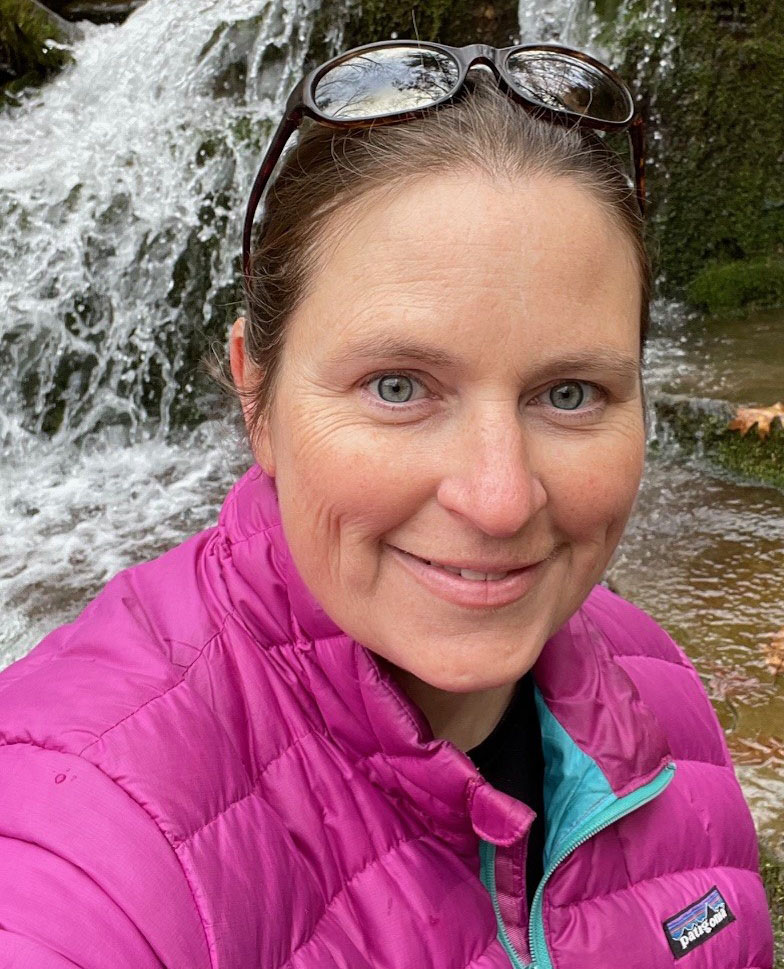 Mary Ann Furedi is the Ecological Assessment Manager with the Pennsylvania Natural Heritage Program at the Western Pennsylvania Conservancy. Mary Ann earned a Ph.D. in Biology from West Virginia University studying the impacts of deer browsing on the demography of American ginseng. Her work now primarily focuses on characterizing the current conditions of plant communities and plant populations and monitoring how they change over time.
Mary Ann Furedi is the Ecological Assessment Manager with the Pennsylvania Natural Heritage Program at the Western Pennsylvania Conservancy. Mary Ann earned a Ph.D. in Biology from West Virginia University studying the impacts of deer browsing on the demography of American ginseng. Her work now primarily focuses on characterizing the current conditions of plant communities and plant populations and monitoring how they change over time.
Please click only once on each video recording to view in this window.

Status & Trends of Wetlands in the Conterminous U.S. from 2009-2019
Held Thursday, April 18, 2024 - 3:00-4:30 p.m. ET
INTRODUCTION
- Marla Stelk, National Association of Wetland Managers [Presentation PDF]
PRESENTERS [Presentation PDF]
- Megan Lang, U.S. Fish and Wildlife Service
- Jeff Ingebritsen, U.S. Fish and Wildlife Service
ABSTRACT
On March 22, the U.S. Fish and Wildlife Service (USFWS) released its sixth edition of the “Wetlands Status and Trends” report to Congress. The report, Status and Trends of Wetlands in the Conterminous United States 2009-2019, reveals that wetlands – 95 percent of which are freshwater — covered less than 6 percent of the lower 48 states as of 2019 – which is half the area they covered in the 1780s. The report also identifies that loss rates have increased by 50 percent since 2009 and that without additional conservation actions taken to protect these ecosystems, wetland loss will likely continue, reducing ecosystem benefits for people and habitat for fish, wildlife and plants. Report authors shared highlights from the report, including the methods used to collect and interpret wetland data, drivers of change, and the report’s conclusions and Storymap.
BIOS
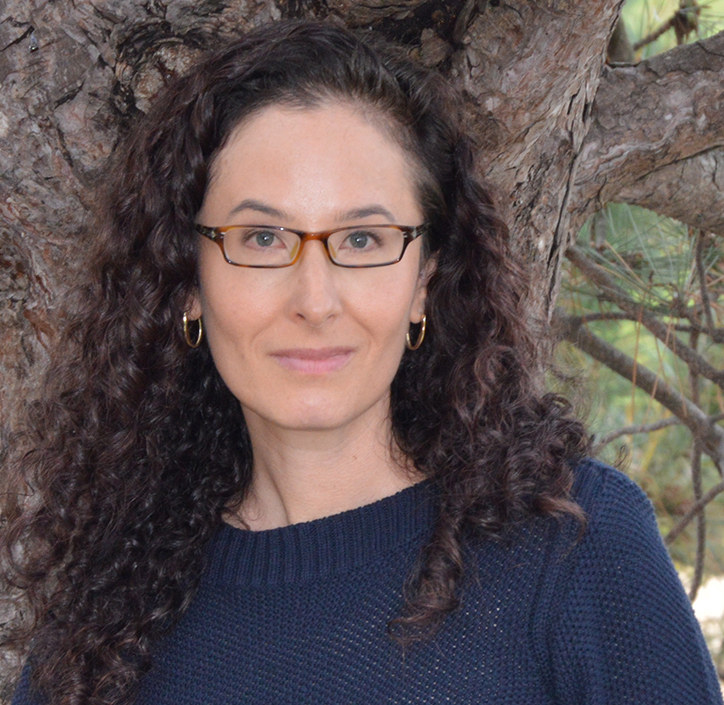 Megan Lang is Chief Scientist for the U.S. Fish and Wildlife Service National Wetlands Inventory Program and Project Lead for the Wetlands Status and Trends study. She is an Adjunct Professor at the University of Maryland Department of Geographical Sciences and serves as an Associate Editor for the journal Wetlands. Dr. Lang has been working to improve the assessment of aquatic ecosystems through field and remote sensing studies for over two decades. Before working for the U.S. Fish and Wildlife Service, she led the U.S. Department of Agricultural Mid-Atlantic Regional Wetland Conservation Effects Assessment Project.
Megan Lang is Chief Scientist for the U.S. Fish and Wildlife Service National Wetlands Inventory Program and Project Lead for the Wetlands Status and Trends study. She is an Adjunct Professor at the University of Maryland Department of Geographical Sciences and serves as an Associate Editor for the journal Wetlands. Dr. Lang has been working to improve the assessment of aquatic ecosystems through field and remote sensing studies for over two decades. Before working for the U.S. Fish and Wildlife Service, she led the U.S. Department of Agricultural Mid-Atlantic Regional Wetland Conservation Effects Assessment Project.
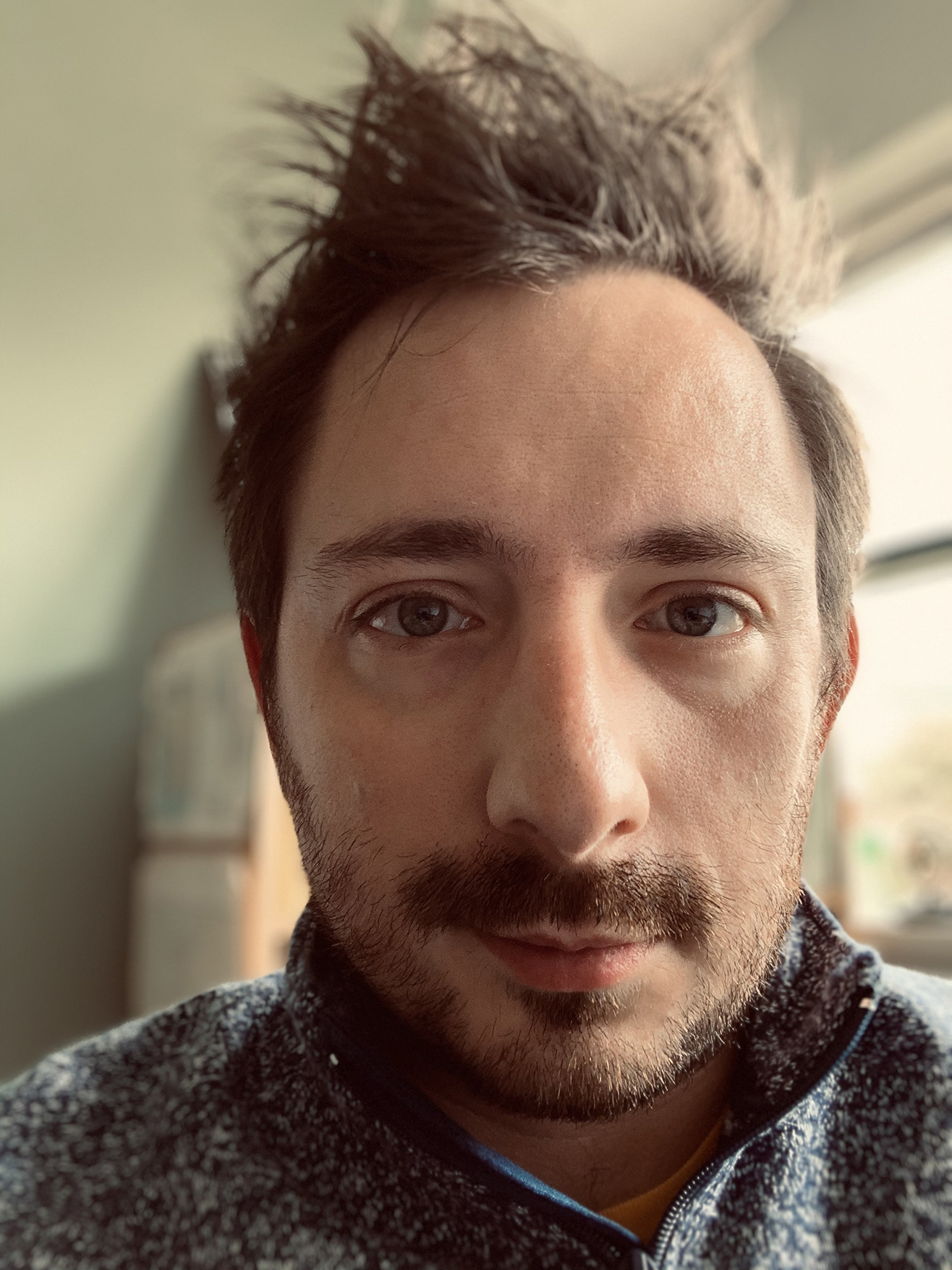 Jeff Ingebritsen is a GIS Specialist with the U.S. Fish and Wildlife Service's National Wetlands Inventory since 2013. He serves as the data manager for the Wetlands Status and Trends study. In addition to Status and Trends, Jeff works on various cartography, spatial analysis, and scripting projects for NWI. Jeff lives with his family in southern Wisconsin, where he enjoys gardening, cooking, and making music.
Jeff Ingebritsen is a GIS Specialist with the U.S. Fish and Wildlife Service's National Wetlands Inventory since 2013. He serves as the data manager for the Wetlands Status and Trends study. In addition to Status and Trends, Jeff works on various cartography, spatial analysis, and scripting projects for NWI. Jeff lives with his family in southern Wisconsin, where he enjoys gardening, cooking, and making music.
Please click only once on each video recording to view in this window.

Integrated Watershed Management Planning: Southeast Workshop Introduction and Green Infrastructure for Coastal Resiliency
Held Tuesday, January 23, 2024 - 3:00-4:00 p.m. ET
NAWM, in partnership with the Association of State Floodplain Managers (ASFPM) through a cooperative agreement with the US EPA, is engaged in a training program to advance the integration of Clean Water act Programs with natural hazard mitigation planning and implementation. The focus of the training is on integrating programs to improve interagency planning and implementation of co-beneficial projects that reduce flood risk and improve water quality, among other benefits. Through this webinar, we recapped the first workshop held in Cincinnati in 2023, introduced information for our next workshop to focus on the Southeast in 2024, and highlighted a coastal green infrastructure project from Florida Sea Grant. See information on the 2024 Integrated Watershed Management Planning Workshop.
INTRODUCTION
- Ian Grosfelt, National Association of Wetland Managers [Presentation PDF]
PRESENTER
- Haley Cox, Florida Sea Grant [Presentation PDF]
ABSTRACT
Nature-based Solutions to Coastal Hazards in Florida’s Gulf of Mexico
Coastal areas in Florida’s Gulf of Mexico region experience disproportionate exposure to climate risks such as sea level rise (SLR) and intensifying storms. The City of Cedar Key, Florida is a small municipality (population < 750) in this region with particularly high exposure to climate hazards. In 2020, the NOAA tide gauge in Cedar Key recorded the 4th highest rate of SLR acceleration in the nation, and local sea level has risen nearly six inches since 1992 (Malmquist, 2021; VIMS 2022). The low-lying topography, deteriorating stormwater infrastructure, high exposure of Gulf hazards, and the accelerating rate of SLR combine to create extensive vulnerabilities to flooding and shoreline erosion.
Since 2014, the City of Cedar Key and its residents have collaborated with multidisciplinary project teams to develop nature-based solutions to erosion and coastal flooding. From 2016-2021, several living shorelines were constructed around Cedar Key’s Daughtry Bayou to address erosion impacts through restoration of shoreline habitat. Current projects such as Cedar Key ShOREs (Shoreline Options for Resilience and Equity), funded by the National Academy of Sciences Gulf Research Program, focus on achieving equitable shoreline and stormwater management solutions through community-supported green infrastructure installations. This presentation highlighted the role of these projects in natural hazard mitigation, water quality protection, and habitat enhancement.
BIO
 Haley Cox is a Coastal Resilience Program Coordinator for Florida Sea Grant responsible for expanding extension and education programs related to climate and resilience along Florida’s Nature Coast and other vulnerable areas of the state. Haley previously worked as an Environmental Specialist in the Water Resources Division of the Alachua County Environmental Protection Department, where her responsibilities included implementing educational programs focused on reducing nonpoint source pollution in urban watersheds, coordinating community outreach events, and conducting water quality monitoring. Prior to this, Haley worked in the Wetlands and Water Quality Laboratory at University of Florida, where she was involved in a variety of environmental studies across Florida, including the construction and monitoring of living shorelines in Cedar Key and other coastal communities. She has a B.A. in Sustainability Studies with minors in Soil and Water Science and Environmental Science from the University of Florida.
Haley Cox is a Coastal Resilience Program Coordinator for Florida Sea Grant responsible for expanding extension and education programs related to climate and resilience along Florida’s Nature Coast and other vulnerable areas of the state. Haley previously worked as an Environmental Specialist in the Water Resources Division of the Alachua County Environmental Protection Department, where her responsibilities included implementing educational programs focused on reducing nonpoint source pollution in urban watersheds, coordinating community outreach events, and conducting water quality monitoring. Prior to this, Haley worked in the Wetlands and Water Quality Laboratory at University of Florida, where she was involved in a variety of environmental studies across Florida, including the construction and monitoring of living shorelines in Cedar Key and other coastal communities. She has a B.A. in Sustainability Studies with minors in Soil and Water Science and Environmental Science from the University of Florida.
Please click only once on each video recording to view in this window.
![]()
PDF List of Past Hot Topics Webinar Recordings Here
View Upcoming Hot Topics Webinars
Wetland Water Quality Standards Webinars
Water quality standards for wetlands have proven a challenging topic over the years. Under a grant from the U.S. Environmental Protection Agency, NAWM undertook a project to identify best practices that can be used in the development of water quality standards for wetlands. The goal of the project was to help the states prepare and adopt water quality standards for wetlands. A webinar series was also held from June 2011 through January 2012 and the various presentations can be accessed from the list below:
2012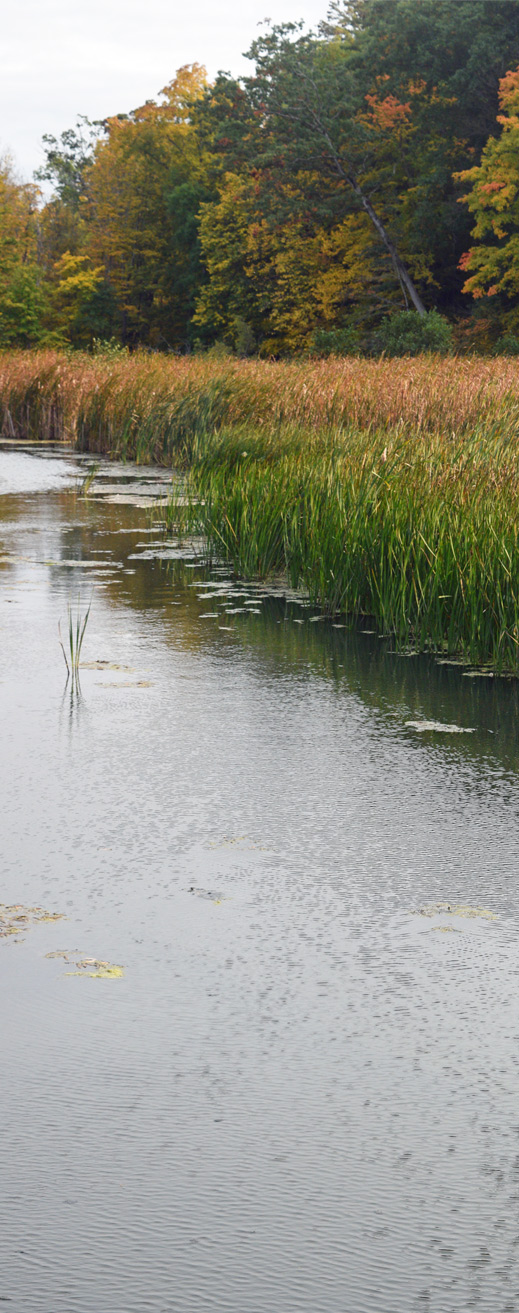
May 31, 2012 from 3:00 p.m.-4:30 p.m. EDT
Wetland Water Quality Standards Webinar
April 19, 2012 from 3:00 p.m.-5:00 p.m. EDT
Overview of State Water Quality Standards for Wetlands Report Revisions and Next Steps for States and EPA
March 22, 2012 from 3:00 p.m.-5:00 p.m. EDT
Pilot States' One-Day Meeting Reports
February 16, 2012 from 3:00 p.m.-5:00 p.m. EDT
Review and Discussion on Draft Model Regulation
To view Jon Kusler, National Association of Wetland Managers presentation, click here.
January 26, 2012 from 3:00 p.m.-4:30 p.m. EDT
Impaired Waters and Wetland Water Quality Standards
To view Mark Gernes, Minnesota Pollution Control Agency presentation, click here.
To view Kevin Molloy, Minnesota Pollution Control Agency presentation, click here.
2011
December 15, 2011 from 3:00 p.m.-4:30 p.m. EDT
Impaired Waters
To view Jon Kusler, National Association of Wetland Managers presentation, click here.
November 17, 2011 from 3:00 p.m.-5:00 p.m. EDT
Narrative and Numeric Criteria
To view John Bender, Nebraska Department of Environmental Quality slide, click here.
To view Jon Kusler, National Association of Wetland Managers presentation, click here.
October 13, 2011 from 3:00 p.m.-4:30 p.m. EDT
Anti-degradation
To view Eric Shaw and Doug Fry, Florida Department of Environmental Protection presentation, click here.
To view Randall Phillips, Tennessee Department of Environment presentation, click here.
September 22, 2011 from 2:00 p.m.-3:30 p.m. EDT
Aligning Sources of Pollution, Designated Uses and Wetland Functions
To view presentation, click here.
August 18 from 3:00 p.m.-5:00 p.m. EDT
To view John Dorney, NCDENR, presentation, click here.
To view Mark Gernes presentation, click here.
July 14, 2011 from 2:00 p.m.-3:30 p.m. EDT
June 22, 2011 from 2:00 p.m.-3:30 p.m. EDT
To view presentation, click here.
The National Association of Wetland Managers (NAWM) is passionate about knowledge sharing. As part of NAWM’s mission, providing training is key to ensuring our members are using the most scientifically up to date methods and information to run successful, effective, and efficient wetland programs. While online trainings have their advantages, nothing can take the place of in-person opportunities to learn and practice implementing new strategies with your peers in person and in the field. In addition to these opportunities, NAWM members can receive discounts for in-person trainings and other courses at partner organizations. For more information on other trainings, please contact NAWM’s Office Manager, Laura Burchill, at 207-892-3399.
NAWM’s current in-person training opportunities are listed below:
Integrated Watershed Management and Hazard Mitigation Planning Workshops
This first of five Advancing the Integration of Clean Water Act and Natural Hazard Mitigation Planning and Implementation project workshops was held September 12-13, 2023 in Cincinnati, Ohio. The workshop aimed to facilitate collaborative partnerships and build cross-governmental relationships and awareness of what is going on in different departments, agencies, and at various levels of government in terms of hazard mitigation and water resource protection planning and program development. Participating states included Illinois, Indiana, Iowa, Kentucky, Minnesota, and Ohio. The workshop brought participants together with a cadre of leaders in the fields of water and hazards management. Throughout the workshop, discussions were held on integration and partnering, coming to a common language on frequently used water quality and hazard mitigation terms, floodplains, wetlands, and green infrastructure, hazard mitigation, local permitting & regulations, funding mechanisms and how to combine funding sources, and benefit-cost analysis. A mobile tour of the Metropolitan Sewer District of Greater Cincinnati’s Lick Run Project was included as well. The event was hosted by the National Association of Wetland Managers (NAWM) and the Association of State Floodplain Managers (ASFPM) with the U.S. Environmental Protection Agency (EPA), funded by an EPA cooperative agreement.
The workshop program can be reviewed here.
The workshop included a mobile tour of the Metropolitan Sewer District of Greater Cincinnati’s Lick Run Project. Completed in 2021, is a "green" wet weather project that focuses on reducing combined sewer overflows (CSOs) in the Cincinnati neighborhood of South Fairmount into Mill Creek, a tributary of the Ohio River. The project uses a combination of green infrastructure, dedicated storm sewers, and real-time controls to eliminate over 800 million gallons annually of CSOs into the creek. This mobile tour will start at Lick Run Greenway’s Forebay Pond before going into the watershed to see its bioswale and stream restoration projects, ending at Headwaters Park.
Return to Integrated Watershed Management
NAWM, in partnership with the Association of State Floodplain Managers (ASFPM), is engaged in a cooperative agreement with the U.S EPA to develop and host a series of five regionally focused trainings to advance the integration of Clean Water Act programs with natural hazard mitigation programs. The focus of the training is on integrating these programs to improve interagency planning and implementation of co-beneficial projects that reduce flood risk and improve water quality, among other benefits.
These trainings will be held once a year (starting in 2023) and will be delivered to a different regional cohort, delineated in the map below:
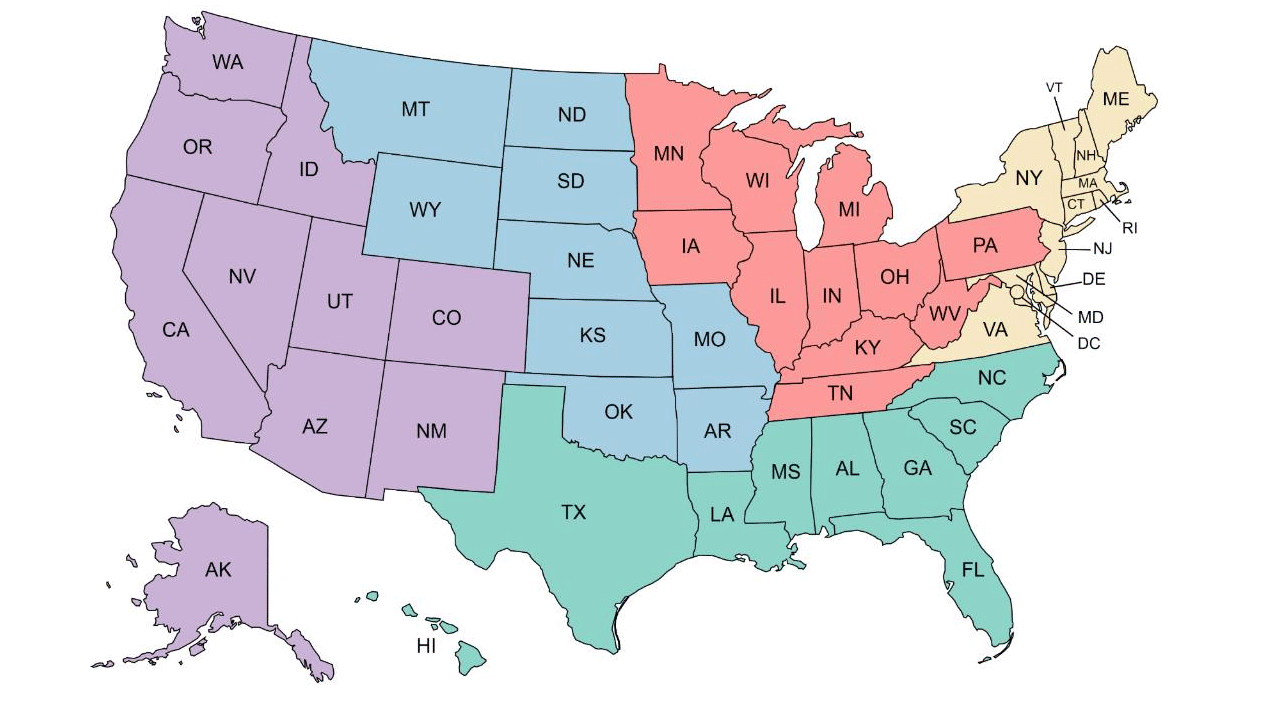
2023: Cohort 1: Great Lakes/ Midwest area (Red) - Completed
September 12-13th, Andrew W. Breidenbach Research Center, Cincinnati, OH
2024: Cohort 2: Southeast (Green) - Completed
January 21-23, 2026 (Rescheduled from November 13-15, 2024), Guana Tolomato Matanzas National Estuarine Research Reserve, Ponte Vedra Beach, FL
2025: Cohort 3: West (Purple) - Completed
September 16-18th, EPA Region 8 Office, Denver, CO
2026: Cohort 5: Great Plains (Blue)
2027: Cohort 4: Northeast (Yellow)
NAWM and ASFPM have a goal for each regional cohort to include representative pairs from 9 communities, 9 states, and 2 Tribes. Although not pictured on the map above, U.S. territories will be included in this project with the regional cohort shown in green and can recommend communities located within their territorial boundaries. The state and territory pairs will be from the same state or territory in which the local community is located to facilitate relationship building. We anticipate that we will reach participants from 45 states and 10 Tribes. This is a "by invitation only" training, however, we are inviting nominations from interested communities and agencies.
In addition to the five training workshops, there will be quarterly cohort calls and a ten-part webinar series on associated topics. The webinar recordings, materials and tools created for the training workshops, along with other information and resources on best practices, lessons learned, and relevant case studies will be posted online as they become available.
If you are interested in having your community participate in an upcoming training, please click here.
Invited communities will:
- Attend one training workshop the year their regional cohort is the focus of the project
- Learn about collaboration opportunities to plan and implement projects focused on nature-based solutions with multiple benefits between programs
- Connect with other states and communities in their geographical area to discuss ideas and build a community of practice
- Participate in the quarterly project cohort call series to share our progress and continue to cover emerging issues
- Be eligible to receive up to 12 Continuing Education Credits (CECs) towards CFM renewal requirements
FREQUENTLY ASKED QUESTIONS
Who should be nominated?
Any community or tribe interested in participating. Note, even if your regional cohort will not be engaged for a few years, you can nominate yourself at any time. We will keep a running list.
Are there any requirements for nominated communities or tribes?
Yes, because the goal of this project is to build cross-sector, cross-government relationships, one water resources-related manager and one emergency manager from the community or tribe must be committed to attending the training workshop and participating in the cohort calls. Note, if a community is too small to have a water resources-related manager, they can pull in someone from a local or regional organization to fill that role.
How can I nominate a community?
Please fill out this Interest Submission Form
When are nominations due?
NAWM and ASFPM will start to process nominations for each year’s community selection in March but will still accept nominations on a rolling basis until the invitation list is complete.
How will invitees be selected from the list of nominated communities?
To narrow down the list of nominated communities, states, and tribes to those most in need of a training like this, we will compare our list against other notables lists, such as:
- FEMA’s list of communities with active hazard mitigation plans;
- GAO’s list of EPA superfund sites that are at risk of flooding, storm surge, wildfires or sea level rise;
- the White House’s Climate and Economic Justice Screening Tool (CEJST) tool;
- EPA’s EJScreen Mapper.
When will teams be notified of their selection?
For the first cohort, NAWM will send out invitations to selected communities and tribes beginning in March of each year.
What costs should teams anticipate needing to cover to attend the workshop?
There is no registration fee associated with the workshop, but participants should expect to cover the cost of their travel, meal, and/or lodging.
NAWM has secured limited funding to partially offset these travel costs. Individuals in need of travel support will be asked to complete a request form and will be awarded support based on need. If everyone were to submit a request, travel support is expected to amount to around $500 per person for each workshop. Costs will be reimbursed after the event upon submission of receipts.
2023 MAWWG-NEBAWWG Webinar Series #2: Wetland Mapping, Modeling, and Assessing
Held Tuesday, December 12, 2023 - 3:00-4:00 p.m. ET
This is part 2 of a three-part webinar series highlighting EPA Wetland Program Development Grant grantees in regions 1-3.
This second webinar will focus on geospatial mapping and analysis wetlands.
INTRODUCTION
- Ian Grosfelt, National Association of Wetland Managers [PRESENTATION PDF]
PRESENTERS
- Elizabeth Byers, West Virginia Department of Environmental Protection [PRESENTATION PDF]
- Laura Lapierre, Vermont Department of Environmental Conservation [PRESENTATION PDF]
BIOS
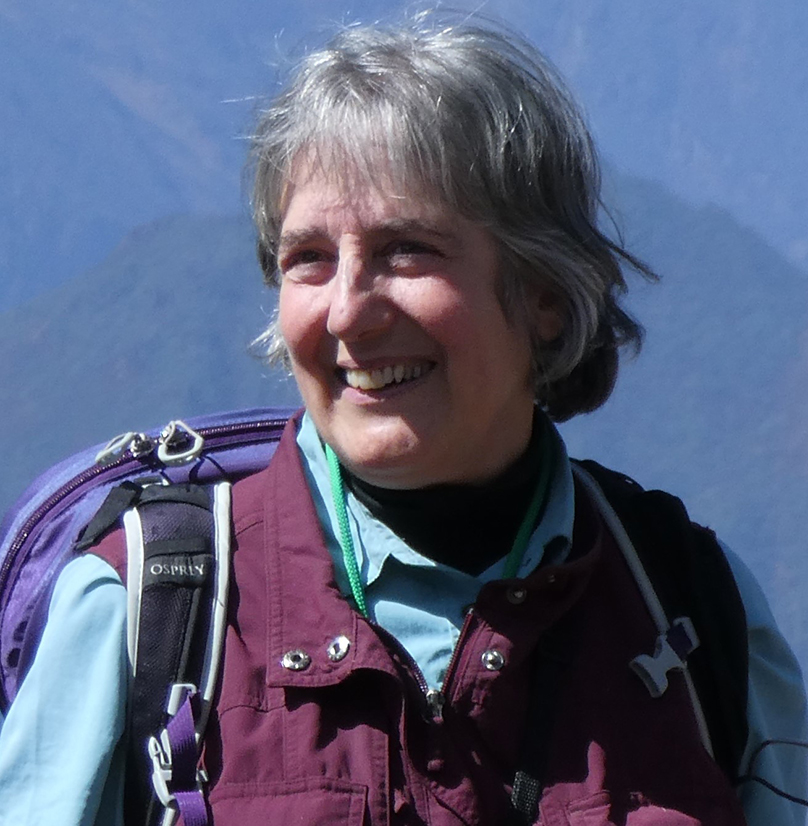 Elizabeth Byers is a Senior Wetland Scientist with the West Virginia Department of Environmental Protection. She has led the design and implementation of a combined field and GIS protocol for wetland functional assessment and wetland condition monitoring, which will be formalized as part of Clean Water Act enforcement in West Virginia in January 2024.
Elizabeth Byers is a Senior Wetland Scientist with the West Virginia Department of Environmental Protection. She has led the design and implementation of a combined field and GIS protocol for wetland functional assessment and wetland condition monitoring, which will be formalized as part of Clean Water Act enforcement in West Virginia in January 2024.
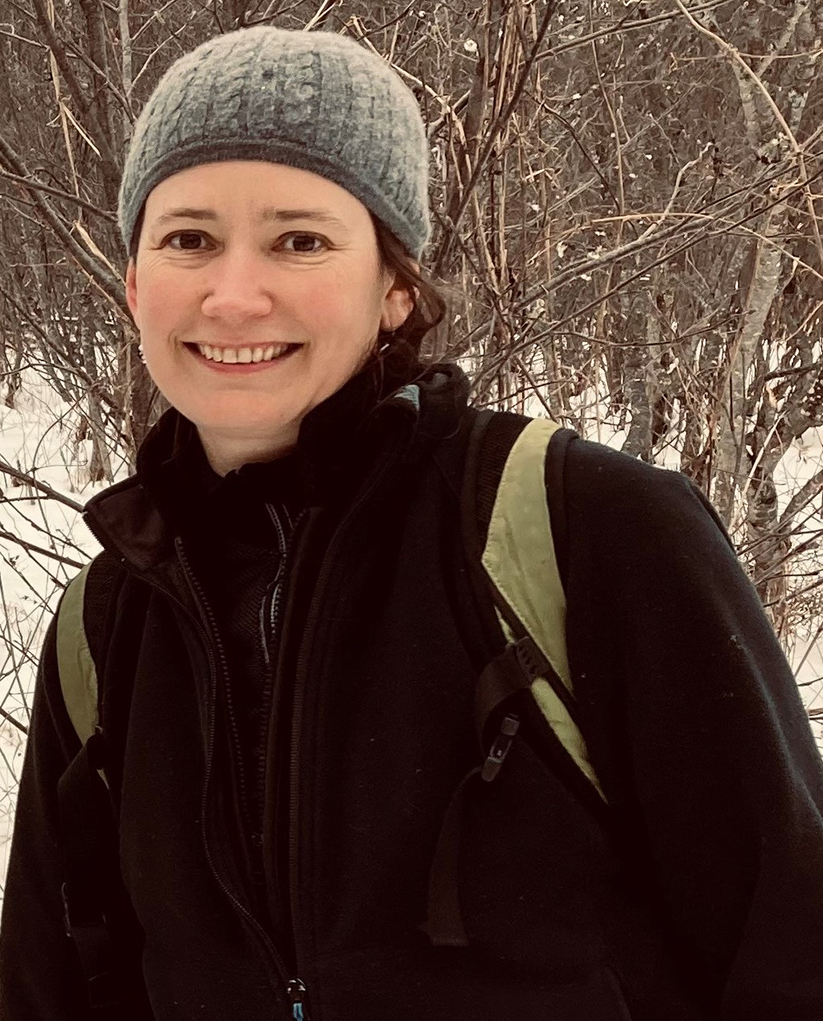 Laura Lapierre is the Program Manager for the Vermont Department of Environmental Conservation’s Wetlands Program. The VT Wetlands Program administers the Vermont Wetland Rules, assesses the State's wetland health, maps wetlands, and assists voluntary restoration. In Laura’s 9 years managing the program, she and her team have received funding from the EPA Region 1 Wetland Program Development Grants. Laura has a Master's in biology from McGill University.
Laura Lapierre is the Program Manager for the Vermont Department of Environmental Conservation’s Wetlands Program. The VT Wetlands Program administers the Vermont Wetland Rules, assesses the State's wetland health, maps wetlands, and assists voluntary restoration. In Laura’s 9 years managing the program, she and her team have received funding from the EPA Region 1 Wetland Program Development Grants. Laura has a Master's in biology from McGill University.
Please click only once on each video recording to view in this window.

2023 MAWWG-NEBAWWG Webinar Series
#1 Coastal Conservation Highlights
Held Tuesday, August 22, 2023 - 3:00-4:30 p.m. ET
This is part 1 of a three-part webinar series highlighting EPA Wetland Program Development Grant projects in regions 1-3. The first webinar focused on the conservation of coastal wetlands.
INTRODUCTION
- Ian Grosfelt, National Association of Wetland Managers [PRESENTATION PDF]
PRESENTERS/ABSTRACTS
Mary Phipps-Dickerson, Maryland Department of the Environment [PRESENTATION PDF]
Use of Unoccupied Aerial Systems (UA) to Assess Salt Marsh Vulnerability to Sea Level Rise
Scott Jackson, University of Massachusetts Amherst [PRESENTATION PDF]
Field work in salt marshes is difficult because tide cycles affect our ability to access interior portions of marshes and to see/evaluate marsh characteristics due to ever changing water levels. Remote sensing (satellite imagery; aerial photographs) offer some potential for assessing salt marsh characteristics. However, these data may not be available at stages in the tide cycle when specific characteristics need to be assessed, such as high tide for assessing high marsh flooding or low tide for assessing creek bank stability. We are investigating using Unoccupied Aerial Systems (drones and sensors) to collect data when timing is critical and evaluate the use of various sensors to create detailed maps salt marsh site (vegetation, bare ground, water features, elevation) and assess vegetation health/stress and physical characteristics of salt marshes. Using arrays of water loggers and detailed digital terrain models developed from UAS data, we will characterize the hydrology of salt marshes and correlate marsh vegetation with tidal hydrology. We are also using machine learning and object identification techniques to identify eroding creek channels within salt marsh, with an aim to create a bank erosion metric that can be applied statewide using readily available aerial photography.
Strategies for Coastal Wetland Conservation Prioritization in Virginia Under Climate Change
Molly Mitchell, Virginia Institute of Marine Science [PRESENTATION PDF]
Accelerating sea level rise brings new considerations into coastal wetland conservation efforts. This project focuses on developing strategies to improve our understanding and strengthen the sustainability of Virginia’s coastal wetlands climate change. Marsh migration under sea level rise is a primary pathway for marsh persistence. However, the rate at which migration occurs and the resulting extent and habitat function of the newly migrated marsh is dependent on factors including location and its nexus to developed lands. Prioritizing conservation actions requires the ability to monitor change in both wetland extent and its habitat provision. We are developing remote monitoring protocols of coastal wetland vegetation that will help us understand where changes are occurring. We are also monitoring marsh bird usage to understand how changing extents and vegetation impact the habitat provision of our coastal wetlands.
BIOS
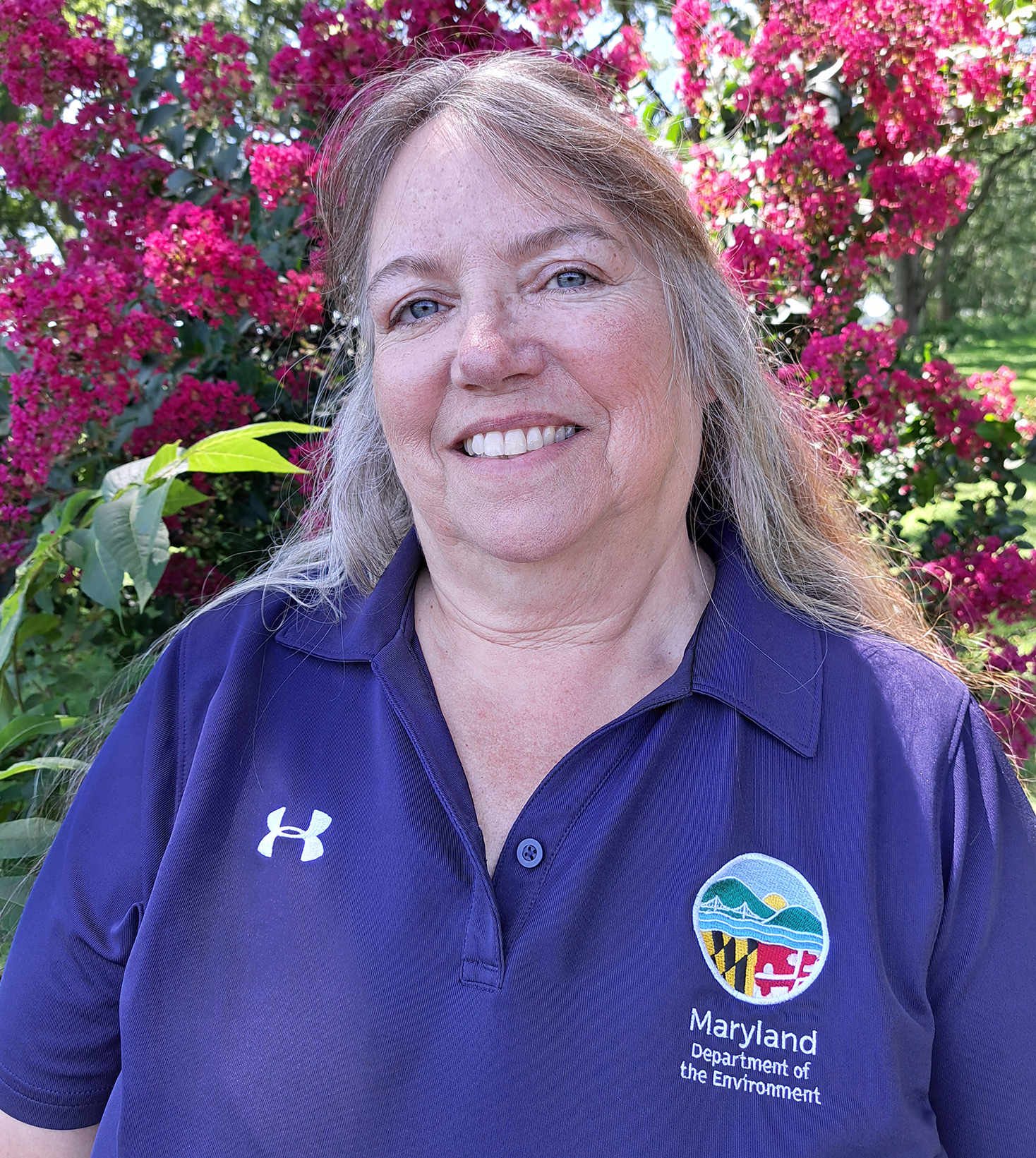 Mary Phipps-Dickerson is a Natural Resources Planner with the Tidal Wetlands Division of the Maryland Department of the Environment. She reviews and authorizes projects proposed by communities, municipalities and private property owners to conduct work in, on, over, or under tidal wetlands ranging from shoreline stabilization efforts through marsh restoration, marsh enhancement, thin layer placement, reef balls and breakwaters, as well as navigational projects including dredging, pier, and marina projects. Review criteria take sea level rise, subsidence, and coastal resiliency into consideration while balancing wetland impacts and resource conversions. Mary is currently reviewing the Mid-Chesapeake Bay Island Ecosystem Restoration Project which includes the restoration of Barren Island and James Island and incorporates the beneficial reuse of dredged material.
Mary Phipps-Dickerson is a Natural Resources Planner with the Tidal Wetlands Division of the Maryland Department of the Environment. She reviews and authorizes projects proposed by communities, municipalities and private property owners to conduct work in, on, over, or under tidal wetlands ranging from shoreline stabilization efforts through marsh restoration, marsh enhancement, thin layer placement, reef balls and breakwaters, as well as navigational projects including dredging, pier, and marina projects. Review criteria take sea level rise, subsidence, and coastal resiliency into consideration while balancing wetland impacts and resource conversions. Mary is currently reviewing the Mid-Chesapeake Bay Island Ecosystem Restoration Project which includes the restoration of Barren Island and James Island and incorporates the beneficial reuse of dredged material.
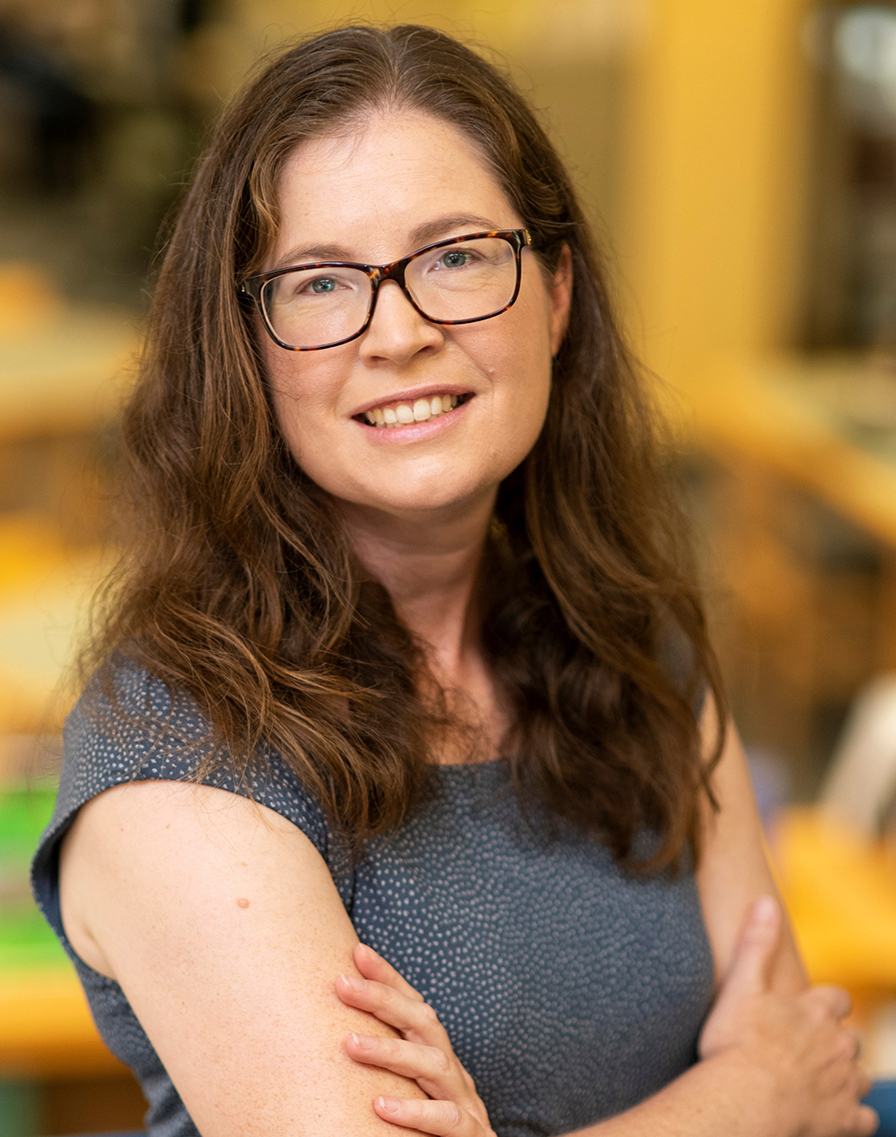 Dr. Molly Mitchell is a Research Assistant Professor and Director of the Professional MA program at the Virginia Institute of Marine Science (VIMS). Her research focuses on shifts in coastal resources due to the interaction of sea level rise and human-driven changes; a topic at the intersection of multiple disciplines, including projects involving ecology (marsh changes and blue carbon), physical dynamics (sea level rise trend analysis, shoreline geology) and human decision making (social vulnerability, sea level rise adaptation, adaptive management application). She works with representatives from many different groups to help translate research and current scientific understanding into practical recommendations. Dr. Mitchell was awarded a 2019 US CLIVAR Early Career Leadership Awards for her climate change communication efforts and is the co-lead for the World Climate Research Program' Safe Landing Lighthouse Activity’s Sea Level Rise Working Group.
Dr. Molly Mitchell is a Research Assistant Professor and Director of the Professional MA program at the Virginia Institute of Marine Science (VIMS). Her research focuses on shifts in coastal resources due to the interaction of sea level rise and human-driven changes; a topic at the intersection of multiple disciplines, including projects involving ecology (marsh changes and blue carbon), physical dynamics (sea level rise trend analysis, shoreline geology) and human decision making (social vulnerability, sea level rise adaptation, adaptive management application). She works with representatives from many different groups to help translate research and current scientific understanding into practical recommendations. Dr. Mitchell was awarded a 2019 US CLIVAR Early Career Leadership Awards for her climate change communication efforts and is the co-lead for the World Climate Research Program' Safe Landing Lighthouse Activity’s Sea Level Rise Working Group.
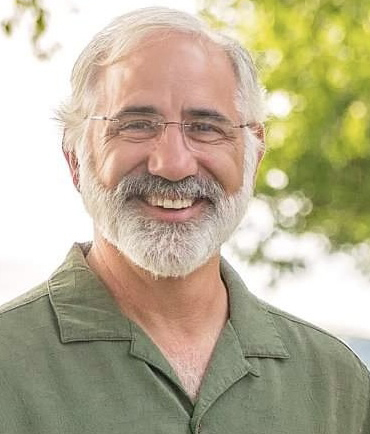 Scott Jackson is Extension Professor in the Department of Environmental Conservation at the University of Massachusetts Amherst where he teaches courses on wetlands and wildlife conservation and management. Scott’s research interests include aquatic connectivity, wetland assessment and monitoring, impacts of roads and highways on wildlife and ecosystems, and landscape-based ecological assessment. Scott has been involved in the development of standards for road-stream crossing structures, survey protocols for assessing crossing structures for aquatic and terrestrial passability, and approaches for prioritizing road-stream crossing structures for replacement. He coordinates the North Atlantic Aquatic Connectivity Collaborative (NAACC), a network of practitioners in the 13-state North Atlantic region working to enhance river and stream connectivity. As a member of the UMass Landscape Ecology Lab, Scott contributed to the development of landscape assessment tools and approaches including the Conservation Assessment and Prioritization System (CAPS), Designing Sustainable Landscapes (DSL) and Critical Linkages.
Scott Jackson is Extension Professor in the Department of Environmental Conservation at the University of Massachusetts Amherst where he teaches courses on wetlands and wildlife conservation and management. Scott’s research interests include aquatic connectivity, wetland assessment and monitoring, impacts of roads and highways on wildlife and ecosystems, and landscape-based ecological assessment. Scott has been involved in the development of standards for road-stream crossing structures, survey protocols for assessing crossing structures for aquatic and terrestrial passability, and approaches for prioritizing road-stream crossing structures for replacement. He coordinates the North Atlantic Aquatic Connectivity Collaborative (NAACC), a network of practitioners in the 13-state North Atlantic region working to enhance river and stream connectivity. As a member of the UMass Landscape Ecology Lab, Scott contributed to the development of landscape assessment tools and approaches including the Conservation Assessment and Prioritization System (CAPS), Designing Sustainable Landscapes (DSL) and Critical Linkages.
Please click only once on each video recording to view in this window.
![]() Implications of the Supreme Court’s Sackett Decision for Protection of Wetlands and Waters
Implications of the Supreme Court’s Sackett Decision for Protection of Wetlands and Waters
Held Wednesday, June 14, 2023 - 3:00 p.m. - 4:30 p.m. EDT
INTRODUCTION
- Marla Stelk, Executive Director, National Association of Wetland Managers [PRESENTATIONS PDF]
PRESENTERS
- Jon Devine, Director, Federal Water Policy, Natural Resources Defense Council (NRDC)
- Donna Downing, Senior Legal Policy Advisor, National Association of Wetland Managers (NAWM), former Jurisdiction Team Leader in EPA’s Office of Water (1998-2020)
- Timothy Hoffman, Senior Counsel, New York State Attorney General
- Pat Parenteau, Professor of Law Emeritus, Vermont Law School
ABSTRACT
On May 25, 2023, the U.S. Supreme Court announced its decision in Sackett v. EPA. The majority opinion establishes Justice Scalia’s “relatively permanent” analysis as the standard for determining when a wetland, stream, or other water is a “water of the United States” (WOTUS) protected by the federal Clean Water Act (CWA). This webinar provided an overview of the decision and some of the ambiguities it contains, discuss the decision’s potential impacts on aquatic resource protection, and explore some of the potential next steps for states and tribes.
BIOS
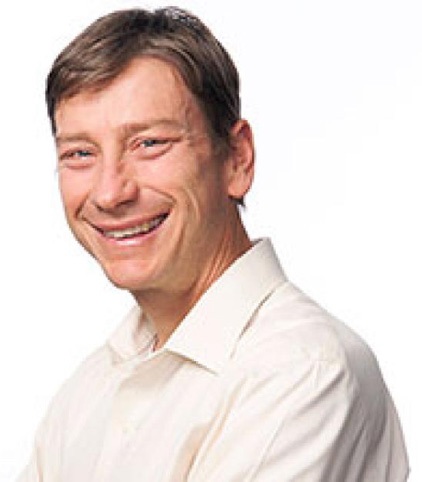 Jon Devine leads NRDC’s federal water policy team. His work focuses on implementing, defending, and strengthening the core programs under the Clean Water Act. Prior to working on water policy, he worked with NRDC’s Health & Environment program for four years. Previously, he served as an attorney-adviser in the U.S. Environmental Protection Agency’s Office of General Counsel and also worked as an environmental specialist in Maine’s Department of Environmental Protection. Devine graduated from Bowdoin College and received his JD from Georgetown University. He is based in NRDC’s Washington, D.C., office.
Jon Devine leads NRDC’s federal water policy team. His work focuses on implementing, defending, and strengthening the core programs under the Clean Water Act. Prior to working on water policy, he worked with NRDC’s Health & Environment program for four years. Previously, he served as an attorney-adviser in the U.S. Environmental Protection Agency’s Office of General Counsel and also worked as an environmental specialist in Maine’s Department of Environmental Protection. Devine graduated from Bowdoin College and received his JD from Georgetown University. He is based in NRDC’s Washington, D.C., office.
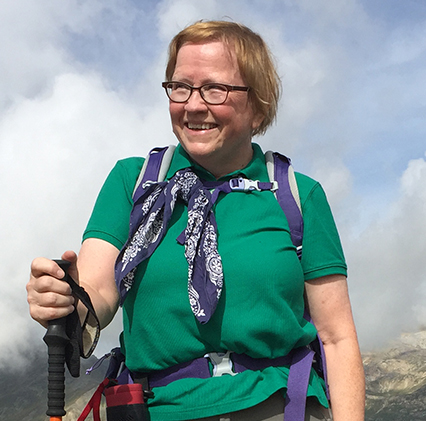 Donna Downing is the Senior Legal Policy Advisor at the National Association of Wetland Managers. Donna was the Jurisdiction Team Leader in the U.S. Environmental Protection Agency’s (EPA) Office of Wetlands, Oceans, and Watersheds from 2007-2020. Donna worked on a variety of issues at EPA, with a focus in recent years on the geographic scope of the Clean Water Act (CWA) in light of the U.S. Supreme Court decisions. She also served as EPA’s staff lead for CWA section 401 water quality certification, and on wetland-related legal issues. Prior to joining EPA in 1998, Donna worked for the U.S. Congress Office of Technology Assessment and in private law practice. She has a BA magna cum laude from Harvard University, an MPP from the University of California at Berkeley, a JD cum laude from Georgetown University Law School, and an LLM in Environmental Law summa cum laude from George Washington University Law School. Donna has been an adjunct professor at George Washington University Law School since 1996, teaching environmental law. In what’s left of her time, she moonlights as a professional potter and an unprofessional horse trainer. Donna also enjoys traveling and has traveled by reindeer sled in the Swedish Arctic, gone winter camping with dog sleds in Minnesota’s Boundary Waters Wilderness Area, and bicycled the Burma Road in China.
Donna Downing is the Senior Legal Policy Advisor at the National Association of Wetland Managers. Donna was the Jurisdiction Team Leader in the U.S. Environmental Protection Agency’s (EPA) Office of Wetlands, Oceans, and Watersheds from 2007-2020. Donna worked on a variety of issues at EPA, with a focus in recent years on the geographic scope of the Clean Water Act (CWA) in light of the U.S. Supreme Court decisions. She also served as EPA’s staff lead for CWA section 401 water quality certification, and on wetland-related legal issues. Prior to joining EPA in 1998, Donna worked for the U.S. Congress Office of Technology Assessment and in private law practice. She has a BA magna cum laude from Harvard University, an MPP from the University of California at Berkeley, a JD cum laude from Georgetown University Law School, and an LLM in Environmental Law summa cum laude from George Washington University Law School. Donna has been an adjunct professor at George Washington University Law School since 1996, teaching environmental law. In what’s left of her time, she moonlights as a professional potter and an unprofessional horse trainer. Donna also enjoys traveling and has traveled by reindeer sled in the Swedish Arctic, gone winter camping with dog sleds in Minnesota’s Boundary Waters Wilderness Area, and bicycled the Burma Road in China.
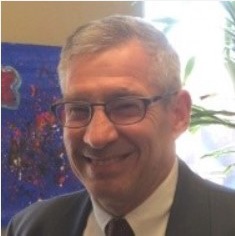 Timothy Hoffman is the Senior Counsel for the New York State Attorney General. He is responsible for cases against industrial polluters and multi-state litigation against the federal government. Represent New York in a wide variety of environmental matters in federal and state trial and appellate courts. Serve as lead counsel in complex cases involving water and air pollution, natural resources, hazardous substances, nuclear waste, energy law, federal rollback of environmental protections, and environmental impact review. Multi-state litigation efforts include representing six Great Lakes states in Northwest Environmental Advocates v. EPA, 537 F.3d 1006 (9th Cir. 2008), where the Ninth Circuit invalidated EPA's regulatory exemption of vessel-discharged aquatic invasive species from Clean Water Act pollution controls. In 2015 achieved one of the largest groundwater impact settlements in New York history, responding to the collapse and flooding of North America's largest salt mine, the former Akzo-Nobel Salt Mine located in western New York. Previously served as a trial attorney in the Manhattan District Attorney's Office prosecuting violent crimes. Clerked for the late U.S. District Court Judge William Ingram in the Northern District of California. Worked as a staff analyst for the Wisconsin Legislature's joint committee overseeing executive agency regulatory authority. Graduate of the University of Wisconsin Law School and Indiana University, with honors and distinction from the School of Public and Environmental Affairs. Admitted to practice law in the State of New York, the U.S. District Court for the Southern, Eastern and Western Districts of New York, and the U.S. Court of Appeals for the Second, Sixth and Ninth Circuits.
Timothy Hoffman is the Senior Counsel for the New York State Attorney General. He is responsible for cases against industrial polluters and multi-state litigation against the federal government. Represent New York in a wide variety of environmental matters in federal and state trial and appellate courts. Serve as lead counsel in complex cases involving water and air pollution, natural resources, hazardous substances, nuclear waste, energy law, federal rollback of environmental protections, and environmental impact review. Multi-state litigation efforts include representing six Great Lakes states in Northwest Environmental Advocates v. EPA, 537 F.3d 1006 (9th Cir. 2008), where the Ninth Circuit invalidated EPA's regulatory exemption of vessel-discharged aquatic invasive species from Clean Water Act pollution controls. In 2015 achieved one of the largest groundwater impact settlements in New York history, responding to the collapse and flooding of North America's largest salt mine, the former Akzo-Nobel Salt Mine located in western New York. Previously served as a trial attorney in the Manhattan District Attorney's Office prosecuting violent crimes. Clerked for the late U.S. District Court Judge William Ingram in the Northern District of California. Worked as a staff analyst for the Wisconsin Legislature's joint committee overseeing executive agency regulatory authority. Graduate of the University of Wisconsin Law School and Indiana University, with honors and distinction from the School of Public and Environmental Affairs. Admitted to practice law in the State of New York, the U.S. District Court for the Southern, Eastern and Western Districts of New York, and the U.S. Court of Appeals for the Second, Sixth and Ninth Circuits.
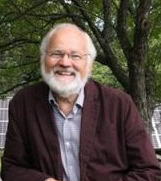 Pat Parenteau is Professor of Law and Senior Counsel in the Environmental Advocacy Clinic at Vermont Law School. He previously served as Director of the Environmental Law Center and was the founding director of the EAC (formerly the Environmental and Natural Resources Law Clinic) in 2004. Professor Parenteau has an extensive background in environmental and natural resources law. His previous positions include Vice President for Conservation with the National Wildlife Federation in Washington, DC (1976- 1984); Regional Counsel to the New England Regional Office of the EPA in Boston (1984-1987); Commissioner of the Vermont Department of Environmental Conservation (1987-1989); and Senior Counsel with the Perkins Coie law firm in Portland, Oregon (1989-1993). Professor Parenteau has been involved in drafting, litigating, implementing, teaching, and writing about environmental law and policy for over three decades. His current focus is on confronting the profound challenges of climate change through his teaching, publishing, public speaking and litigation. Professor Parenteau is a Fulbright US Scholar and a Fellow in the American College of Environmental Lawyers. In 2005 he received the National Wildlife Federation’s Conservation Achievement Award in recognition of his contributions to wildlife conservation and environmental education. In 2016 he received the Kerry Rydberg Award for excellence in public interest environmental law. Professor Parenteau holds a B.S. from Regis University, a J.D. from Creighton University, and an LLM in Environmental Law from the George Washington University Law School.
Pat Parenteau is Professor of Law and Senior Counsel in the Environmental Advocacy Clinic at Vermont Law School. He previously served as Director of the Environmental Law Center and was the founding director of the EAC (formerly the Environmental and Natural Resources Law Clinic) in 2004. Professor Parenteau has an extensive background in environmental and natural resources law. His previous positions include Vice President for Conservation with the National Wildlife Federation in Washington, DC (1976- 1984); Regional Counsel to the New England Regional Office of the EPA in Boston (1984-1987); Commissioner of the Vermont Department of Environmental Conservation (1987-1989); and Senior Counsel with the Perkins Coie law firm in Portland, Oregon (1989-1993). Professor Parenteau has been involved in drafting, litigating, implementing, teaching, and writing about environmental law and policy for over three decades. His current focus is on confronting the profound challenges of climate change through his teaching, publishing, public speaking and litigation. Professor Parenteau is a Fulbright US Scholar and a Fellow in the American College of Environmental Lawyers. In 2005 he received the National Wildlife Federation’s Conservation Achievement Award in recognition of his contributions to wildlife conservation and environmental education. In 2016 he received the Kerry Rydberg Award for excellence in public interest environmental law. Professor Parenteau holds a B.S. from Regis University, a J.D. from Creighton University, and an LLM in Environmental Law from the George Washington University Law School.
Please click only once on each video recording to view in this window.
![]()
Celebrating the Endangered Species Act at 50 and the Importance of Conserving Wetlands and Wetland-dependent Species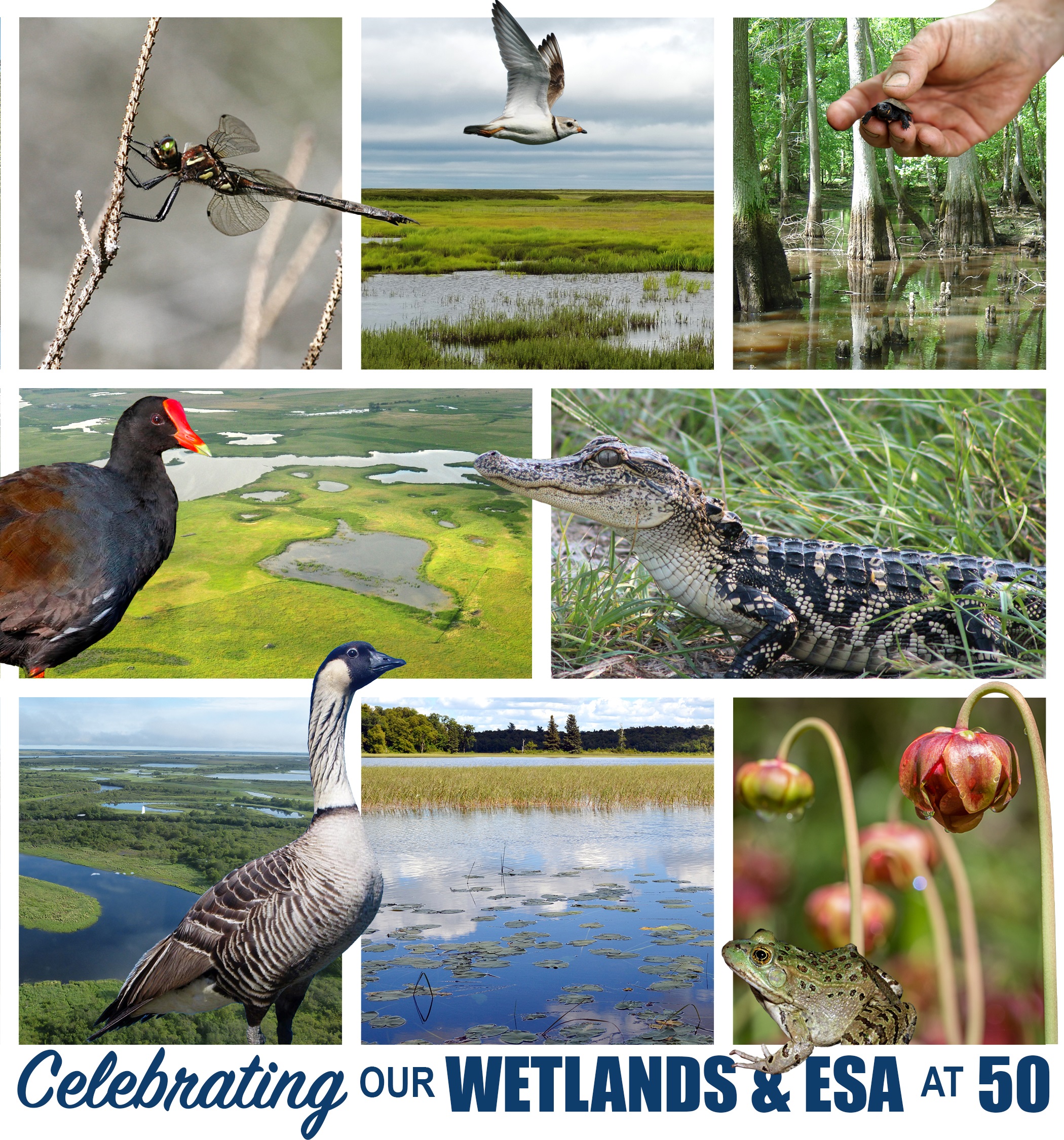
Held Wednesday, May 17, 2023 - 3:00 p.m. - 4:30 p.m. EDT
MODERATOR
- Martha Balis-Larsen, U.S. Fish and Wildlife Service [PRESENTATION PDF]
PRESENTERS
- Elizabeth Holmes Gaar, NOAA [PRESENTATION PDF]
- Kara Moore-O'Leary, U.S. Fish and Wildlife Service [PRESENTATION PDF]
- Aimee Weldon, U.S. Fish and Wildlife Service Northeast Regional Office [PRESENTATION PDF]
ABSTRACT
In celebration of the 50th anniversary of the Endangered Species Act (ESA), NAWM and the U.S. Fish and Wildlife Service (USFWS) hosted a panel discussion on wetland-dependent threatened and endangered (T&E) species. Wetlands account for just 5.5% of the contiguous U.S., yet 50% of T&E species are wetland-dependent. Conserving and restoring wetland habitat therefore plays an outsized role in the success of ESA. The two primary federal agencies responsible for implementing ESA are the USFWS and NOAA. Staff from both agencies highlighted how ESA has saved specific fish, migratory bird and amphibian species from extinction and describe some of the barriers that remain.
BIOS
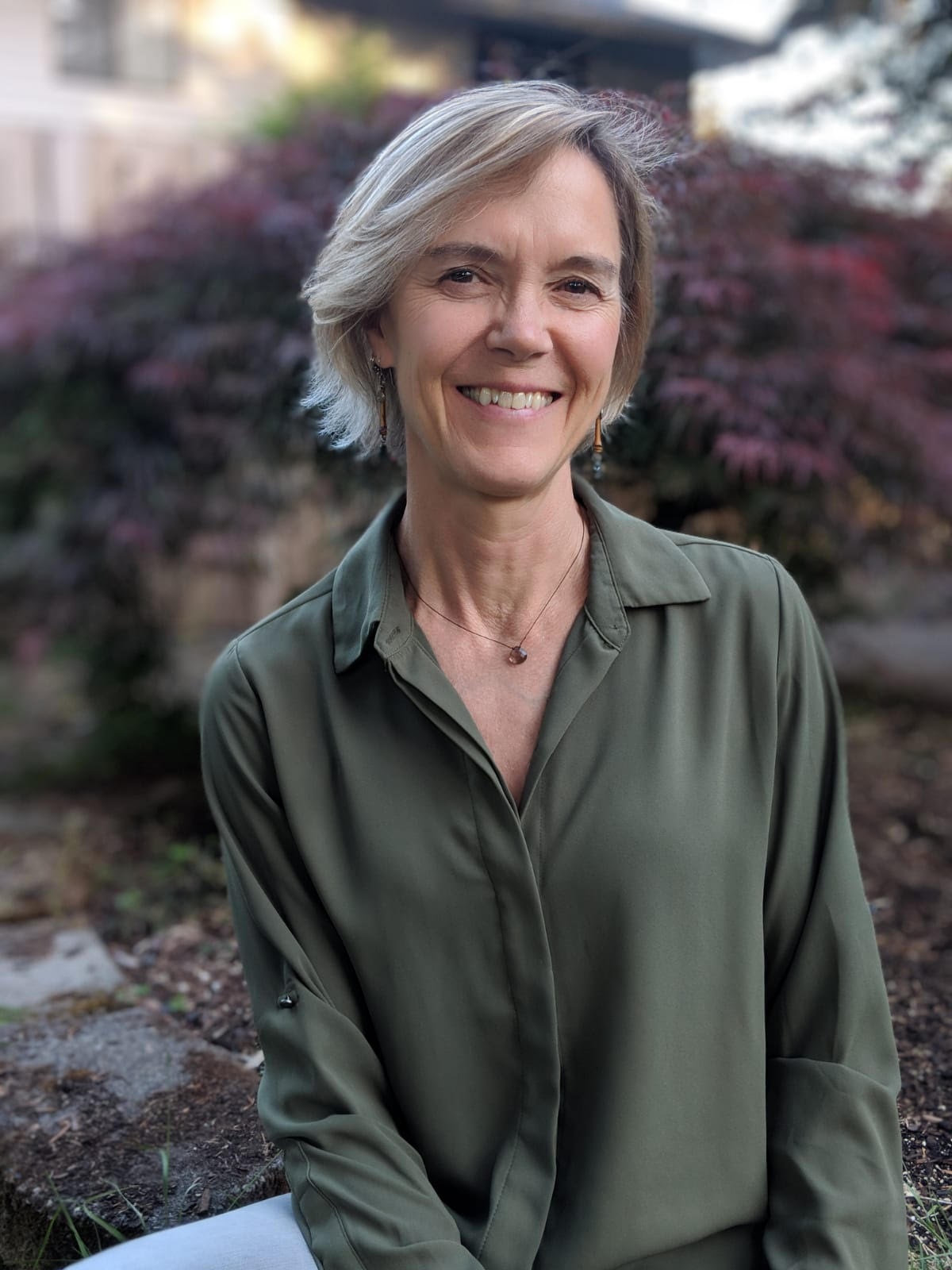 Elizabeth Holmes is NOAA Fisheries’ West Coast Region Habitat Program Leader and also the Senior Policy Advisor for Protected Resources. In her 35 years with NOAA Fisheries, Ms. Gaar developed and led various components of regional and national habitat and Endangered Species Act (ESA) programs. She served as the first Chief of Endangered Species in the Pacific Northwest (NW) when petitions to list salmon and steelhead under the ESA first emerged and later served as Assistant Regional Administrator for Habitat Conservation, where she established NMFS NW Region’s ESA and Magnuson Stevens Act essential fish habitat regulatory programs. Ms. Gaar also served as NOAA’s NW Region Chief of Salmon Recovery, responsible for developing and implementing the Region’s ESA salmon recovery program. Prior to working for NOAA, Ms. Gaar was a District Fishery Biologist with the US Forest Service with tenures on both the Siuslaw and Mt. Hood National Forests. She earned her Bachelor’s of Fisheries Science degree from Oregon State University and her law degree from the Northwestern School of Law, Lewis and Clark College.
Elizabeth Holmes is NOAA Fisheries’ West Coast Region Habitat Program Leader and also the Senior Policy Advisor for Protected Resources. In her 35 years with NOAA Fisheries, Ms. Gaar developed and led various components of regional and national habitat and Endangered Species Act (ESA) programs. She served as the first Chief of Endangered Species in the Pacific Northwest (NW) when petitions to list salmon and steelhead under the ESA first emerged and later served as Assistant Regional Administrator for Habitat Conservation, where she established NMFS NW Region’s ESA and Magnuson Stevens Act essential fish habitat regulatory programs. Ms. Gaar also served as NOAA’s NW Region Chief of Salmon Recovery, responsible for developing and implementing the Region’s ESA salmon recovery program. Prior to working for NOAA, Ms. Gaar was a District Fishery Biologist with the US Forest Service with tenures on both the Siuslaw and Mt. Hood National Forests. She earned her Bachelor’s of Fisheries Science degree from Oregon State University and her law degree from the Northwestern School of Law, Lewis and Clark College.
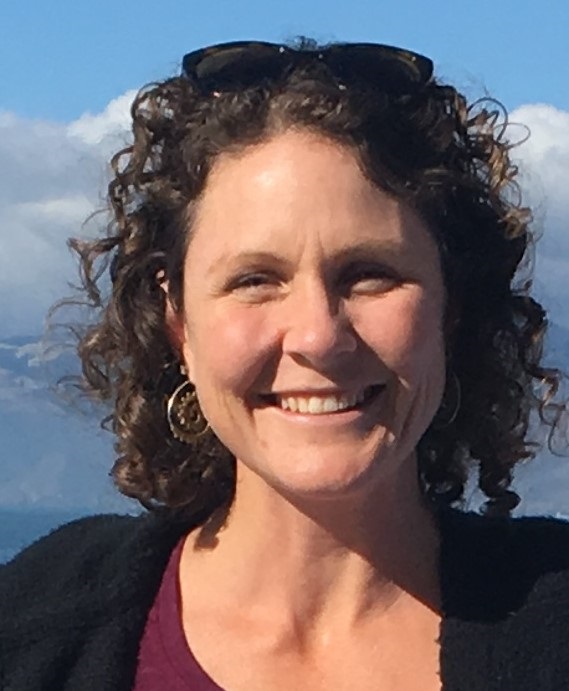
Kara Moore-O'Leary is an Ecologist for the National Wildlife Refuges in the Pacific Southwest Region 8 and the Zone Biologist for the Central Valley of California and the Klamath Basin. She has supported National Wildlife Refuges in design of survey protocols for threatened and endangered plants and has conducted research on T&E plant species reproduction, population dynamics, and range distributions. She received her bachelor’s in biology and her master's degree in Natural Resource Management from the from University of Michigan and her PhD in Ecology and Conservation Biology from the University of California, Davis. Before joining the Service, she conducted research in the Department of Evolution and Ecology at UC Davis on rare plant reproductive biology, reducing the ecological impacts of utility scale energy, and ecosystem restoration in arid ecosystems. She has been supporting Refuges in conservation planning, survey protocol development, and evidence-based approaches to conservation since she joined the US Fish and Wildlife Service in 2016.
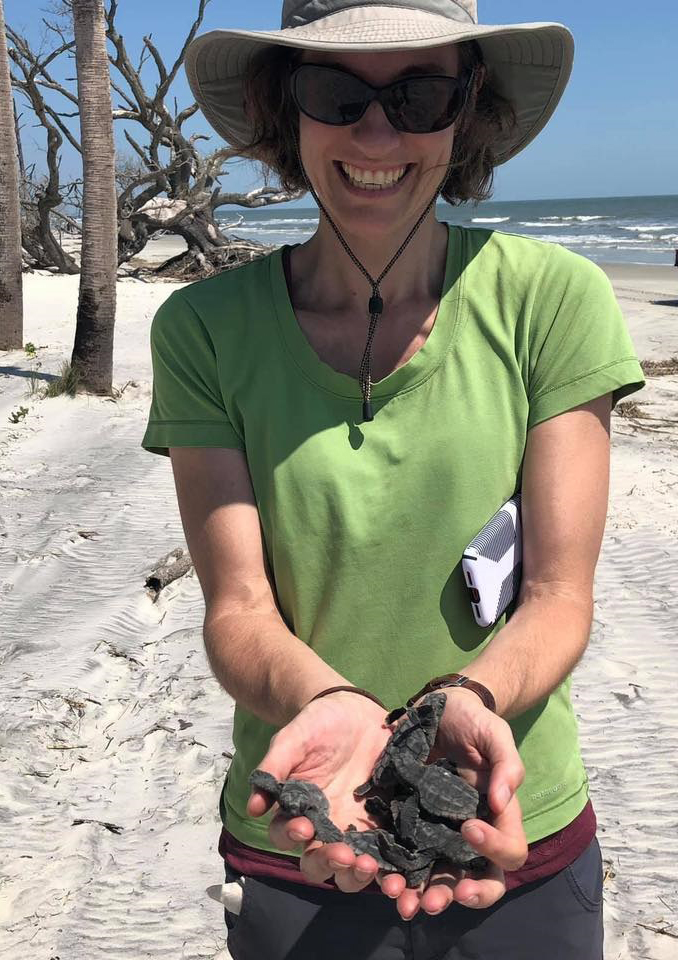 Aimee Weldon has been the Atlantic Coast Joint Venture Coordinator (ACJV) since 2016 based in Hadley, Massachusetts at the USFWS Northeast Regional Office. As Coordinator, Aimee is responsible for guiding the strategic vision of the Joint Venture, and to coordinate the many partnerships on priority species conservation. Prior to joining the ACJV, she directed the land protection and habitat restoration activities at Potomac Conservancy, a regional land trust and watershed organization dedicated to conserving and improving water quality in the Potomac River Basin. Aimee also held wildlife leadership positions at Defenders of Wildlife in Washington D.C., where she managed a national program to engage land trusts in biodiversity conservation, and at the National Audubon Society, where she coordinated the Virginia Important Bird Areas program. She is the primary author of ‘Conserving Habitat through the Federal Farm Bill – A Guide for Land Trusts and Landowners’, created to connect a wider network of practitioners to the many opportunities to leverage Farm Bill dollars for wildlife conservation. Aimee received her Master’s degree in Ecology from North Carolina State University and her Bachelor’s degree in Biology from the College of St. Benedict in Minnesota.
Aimee Weldon has been the Atlantic Coast Joint Venture Coordinator (ACJV) since 2016 based in Hadley, Massachusetts at the USFWS Northeast Regional Office. As Coordinator, Aimee is responsible for guiding the strategic vision of the Joint Venture, and to coordinate the many partnerships on priority species conservation. Prior to joining the ACJV, she directed the land protection and habitat restoration activities at Potomac Conservancy, a regional land trust and watershed organization dedicated to conserving and improving water quality in the Potomac River Basin. Aimee also held wildlife leadership positions at Defenders of Wildlife in Washington D.C., where she managed a national program to engage land trusts in biodiversity conservation, and at the National Audubon Society, where she coordinated the Virginia Important Bird Areas program. She is the primary author of ‘Conserving Habitat through the Federal Farm Bill – A Guide for Land Trusts and Landowners’, created to connect a wider network of practitioners to the many opportunities to leverage Farm Bill dollars for wildlife conservation. Aimee received her Master’s degree in Ecology from North Carolina State University and her Bachelor’s degree in Biology from the College of St. Benedict in Minnesota.
Please click only once on each video recording to view in this window.

MARSH Webinar 2: Communication and Branding
Held Wednesday, April 19, 2023 - 3:00 p.m.-4:30 p.m. EST
INTRODUCTION
- Ian Grosfelt, National Association of Wetland Managers
Please click only once on each video recording to view in this window.

Development of Rapid Streamflow Duration Assessment Methods for Nationwide Coverage
Held Thursday, April 13, 2023 - 3:00 p.m. - 4:30 p.m. EDT
INTRODUCTION
• Portia Osborne, National Association of Wetland Managers [PRESENTATION PDF]
PRESENTERS [PRESENTATION PDF]
- Brian Topping, U.S. Environmental Protection Agency, Office of Wetlands, Oceans and Watersheds
- Tracie Nadeau, U.S. Environmental Protection Agency, Region 10
ABSTRACT
Practitioners and regulated entities need rapid, reach-scale methods to classify streamflow duration to implement and comply with many federal, state, and local programs. The U.S. Environmental Protection Agency, working cooperatively with the U.S. Army Corps of Engineers, is developing regional streamflow duration assessment methods (SDAMs) for nationwide coverage. These SDAMs use hydrological, geomorphological, and biological indicators, observable in a single site visit to classify reaches as perennial, intermittent, or ephemeral (https://www.epa.gov/streamflow-duration-assessment). We presented five regional beta methods that resulted from multi-year studies conducted nationwide and included the evaluation of 141 candidate indicators expected to control or respond to streamflow duration at reaches of known streamflow duration class. To maximize classification accuracy, each regional SDAM relies on a different suite of indicators resulting from machine learning applied to regional datasets. Beta SDAMs will be re-evaluated considering user comments and additional data to produce final methods in 2023-24. We described the SDAM development process, including data analysis and management, highlight similarities and differences between the regional SDAMs, invited user comment on the beta methods, and discussed opportunities for more refined regionalization.
BIOS
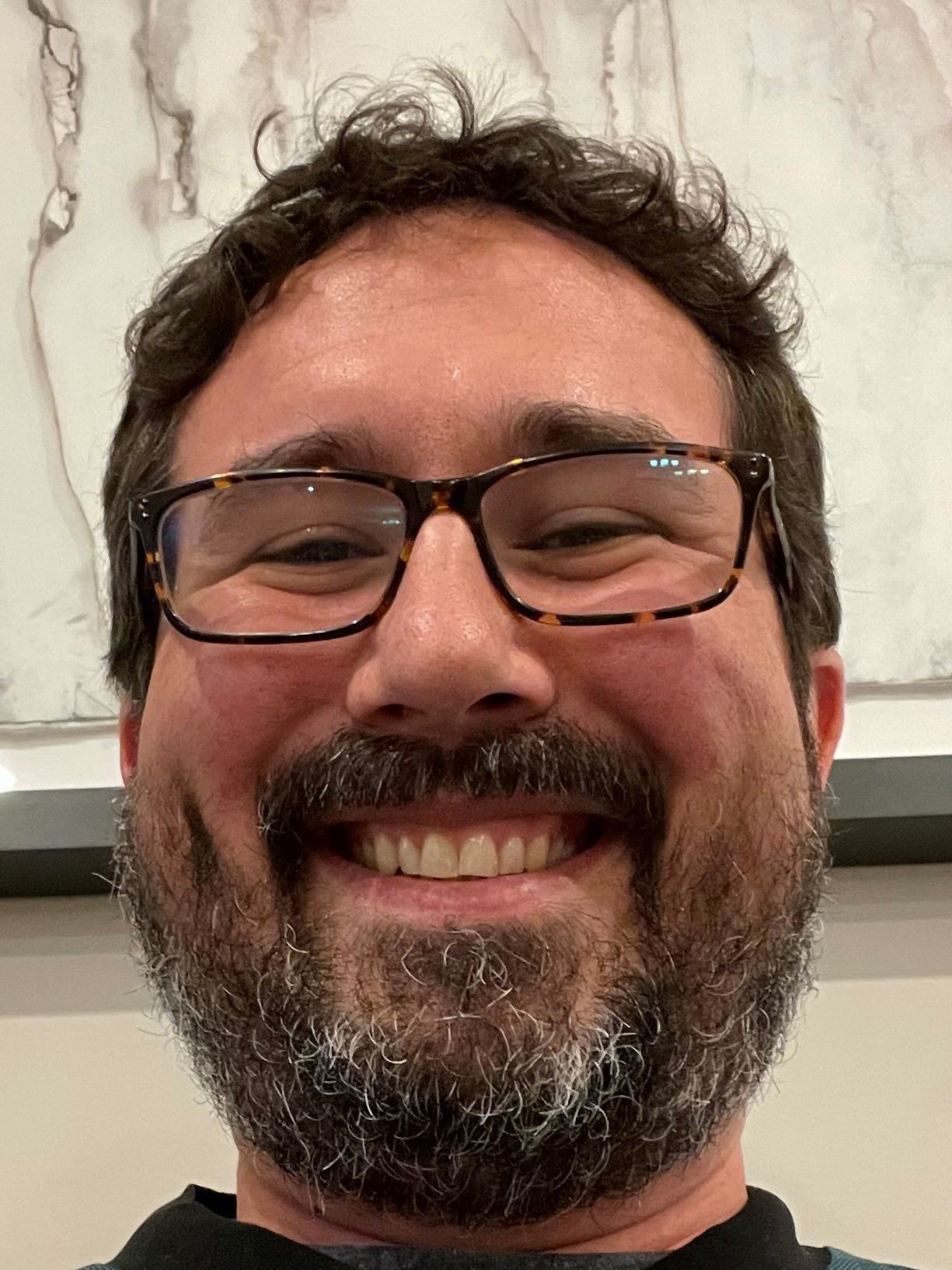 Brian Topping has worked at the U.S. Environmental Protection Agency since 2004 primarily in the Clean Water Act Section 404 regulatory program for the discharge of dredge and fill material in waters of the United States. Brian began working on streamflow duration assessment method development in 2007 in Oregon and currently leads the project delivery team for the development of rapid field-based streamflow duration assessment methods at EPA. He also works on stream mitigation assessment methods, program tracking and reporting, program training, and compensatory mitigation.
Brian Topping has worked at the U.S. Environmental Protection Agency since 2004 primarily in the Clean Water Act Section 404 regulatory program for the discharge of dredge and fill material in waters of the United States. Brian began working on streamflow duration assessment method development in 2007 in Oregon and currently leads the project delivery team for the development of rapid field-based streamflow duration assessment methods at EPA. He also works on stream mitigation assessment methods, program tracking and reporting, program training, and compensatory mitigation.
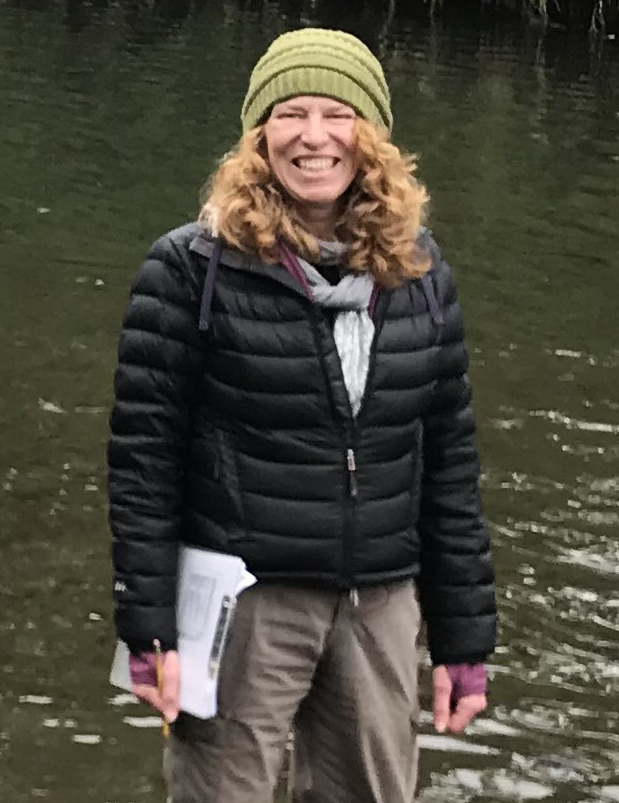 Tracie Nadeau is an Environmental Scientist with the U.S. Environmental Protection Agency, Region 10 (Pacific Northwest), Tracie Nadeau is currently on detail to EPA Headquarters’ Office of Wetlands, Oceans and Watersheds (OWOW) as a core member of the small team developing Streamflow Duration Assessment Methods (SDAMs) for nationwide coverage. She began working on streamflow duration assessment method development in 2007 when she led the development of an SDAM for the Pacific Northwest. Tracie is a broadly trained aquatic ecologist with over 20 years of experience working at the science-policy interface, synthesizing and communicating state of the science on aquatic resource issues, implementing programs, and developing and coordinating applied research projects. In her Region 10 Oregon Operations home office, she works on stream, wetland, watershed, and mitigation issues, including working with state and tribal partners to build program capacity and develop science-based tools supporting program implementation.
Tracie Nadeau is an Environmental Scientist with the U.S. Environmental Protection Agency, Region 10 (Pacific Northwest), Tracie Nadeau is currently on detail to EPA Headquarters’ Office of Wetlands, Oceans and Watersheds (OWOW) as a core member of the small team developing Streamflow Duration Assessment Methods (SDAMs) for nationwide coverage. She began working on streamflow duration assessment method development in 2007 when she led the development of an SDAM for the Pacific Northwest. Tracie is a broadly trained aquatic ecologist with over 20 years of experience working at the science-policy interface, synthesizing and communicating state of the science on aquatic resource issues, implementing programs, and developing and coordinating applied research projects. In her Region 10 Oregon Operations home office, she works on stream, wetland, watershed, and mitigation issues, including working with state and tribal partners to build program capacity and develop science-based tools supporting program implementation.
Please click only once on each video recording to view in this window.
Introduction to the new national manual on the Ordinary High Water Mark
Held Wednesday, March 29, 2023 - 2:00 p.m. - 3:00 p.m. EDT
INTRODUCTION
- Portia Osborne, National Association of Wetland Managers [PRESENTATION PDF]
PRESENTER
- Gabrielle C. L. David, Ph.D., Research Physical Scientist, U.S. Army Corps of Engineers Research Development Center [PRESENTATION PDF]
ABSTRACT
Ordinary High Water Mark (OHWM) delineation has long been a part of identifying aquatic resources that may be subject to federal jurisdiction under Section 404 of the Clean Water Act and Sections 9 and 10 of the Rivers and Harbors Act of 1899. Despite the challenges found in OHWM delineation, because of the complexity and dynamic nature of inland waterways, a national manual providing guidance on OHWM identification and delineation has never been released. The National Technical Committee for OHWM, comprised of experts from Federal agencies and academia, developed and released the interim draft of the National OHWM Field Delineation Manual for Rivers and Streams. The manual provides a scientifically supported, weight-of-evidence framework to support efficient OHWM identification and delineation that are consistent, repeatable and defensible. Use of the National OHWM Manual will result in timely and more predictable identification and delineation of the OHWM across the Nation.
BIO
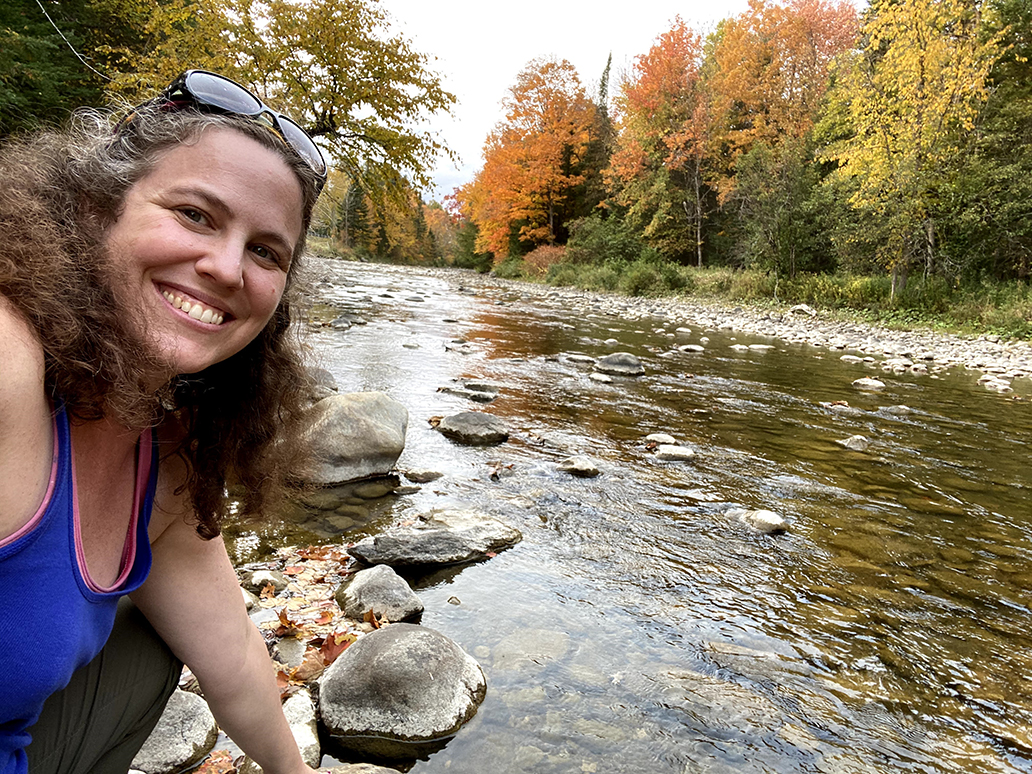 Gabrielle David is a research physical scientist specializing in fluvial geomorphology in the Remote Sensing/GIS Center of Expertise at the U.S. Army Engineer Research and Development Center (ERDC) Cold Regions Research and Engineering Laboratory (CRREL). Dr. David leads applied research projects on stream systems in support of the US Army Corps of Engineers (USACE) Regulatory Program through the ERDC-led Wetland Regulatory Assistance Program (WRAP). WRAP accelerates and enhances USACE Regulatory decisions by developing rapid decision support tools and integrating sound science and technical concepts into the USACE decision-making process. Dr. David supports WRAP and Regulatory through development of innovative tools and technical resources, and by providing scientific reasoning for regulatory decisions. In particular, Dr. David chairs the National Technical Committee for OHWM and leads projects on improving methods and tools used for assessing streams. Prior to her time at ERDC-CRREL, Dr. David was a visiting assistant professor at Boston College and Bowdoin College. She has taught courses in river restoration, environmental geology, geomorphology, water resources, ecology, and environmental studies. Currently, she teaches regional courses on field identification of the OHWM and is part of a team developing a course on stream restoration for regulators. Dr. David received her BS in Environmental Geology from The College of William and Mary and her MS and PhD in Geosciences from Colorado State University.
Gabrielle David is a research physical scientist specializing in fluvial geomorphology in the Remote Sensing/GIS Center of Expertise at the U.S. Army Engineer Research and Development Center (ERDC) Cold Regions Research and Engineering Laboratory (CRREL). Dr. David leads applied research projects on stream systems in support of the US Army Corps of Engineers (USACE) Regulatory Program through the ERDC-led Wetland Regulatory Assistance Program (WRAP). WRAP accelerates and enhances USACE Regulatory decisions by developing rapid decision support tools and integrating sound science and technical concepts into the USACE decision-making process. Dr. David supports WRAP and Regulatory through development of innovative tools and technical resources, and by providing scientific reasoning for regulatory decisions. In particular, Dr. David chairs the National Technical Committee for OHWM and leads projects on improving methods and tools used for assessing streams. Prior to her time at ERDC-CRREL, Dr. David was a visiting assistant professor at Boston College and Bowdoin College. She has taught courses in river restoration, environmental geology, geomorphology, water resources, ecology, and environmental studies. Currently, she teaches regional courses on field identification of the OHWM and is part of a team developing a course on stream restoration for regulators. Dr. David received her BS in Environmental Geology from The College of William and Mary and her MS and PhD in Geosciences from Colorado State University.
Please click only once on each video recording to view in this window.
![]()
MARSH Mentorship Introductory Webinar
Held Tuesday, February 14, 2023 - 2:00 p.m.-3:30 p.m. EST
INTRODUCTION
- Ian Grosfelt, National Association of Wetland Managers
Please click only once on each video recording to view in this window.
![]()
Recommendations for Reducing Wetland Loss in Coastal Watersheds of the United States
Tuesday, January 31, 2023 - 3:00 p.m.-4:30 p.m. EST
INTRODUCTION
- Ian Grosfelt, National Association of Wetland Managers [PRESENTATIONS PDF]
PRESENTERS
- Amanda Santoni, U.S. Environmental Protection Agency
- Jonathan Phinney, National Wetland Inventory
- Marla Stelk, National Association of Wetland Managers
ABSTRACT
The Interagency Coastal Wetlands Workgroup (ICWWG) recently released the Recommendations for Reducing Wetland Loss in Coastal Watersheds of the United States. This report presents voluntary recommendations that aim to reduce and reverse the loss of wetlands in coastal watersheds and are intended apply to program managers, non-governmental organizations, and government staff (federal, state, tribal, local, and regional) involved in coastal wetland and watershed management. The intent of the report is to help forge cooperation and build capacity to reduce coastal wetland losses nationwide. This webinar provided an introduction to and background on the Recommendations report and share efforts by agencies and partners to implement specific recommendations. In addition, recommendations that may be best addressed by state, tribal, or local governments was highlighted.
BIOS
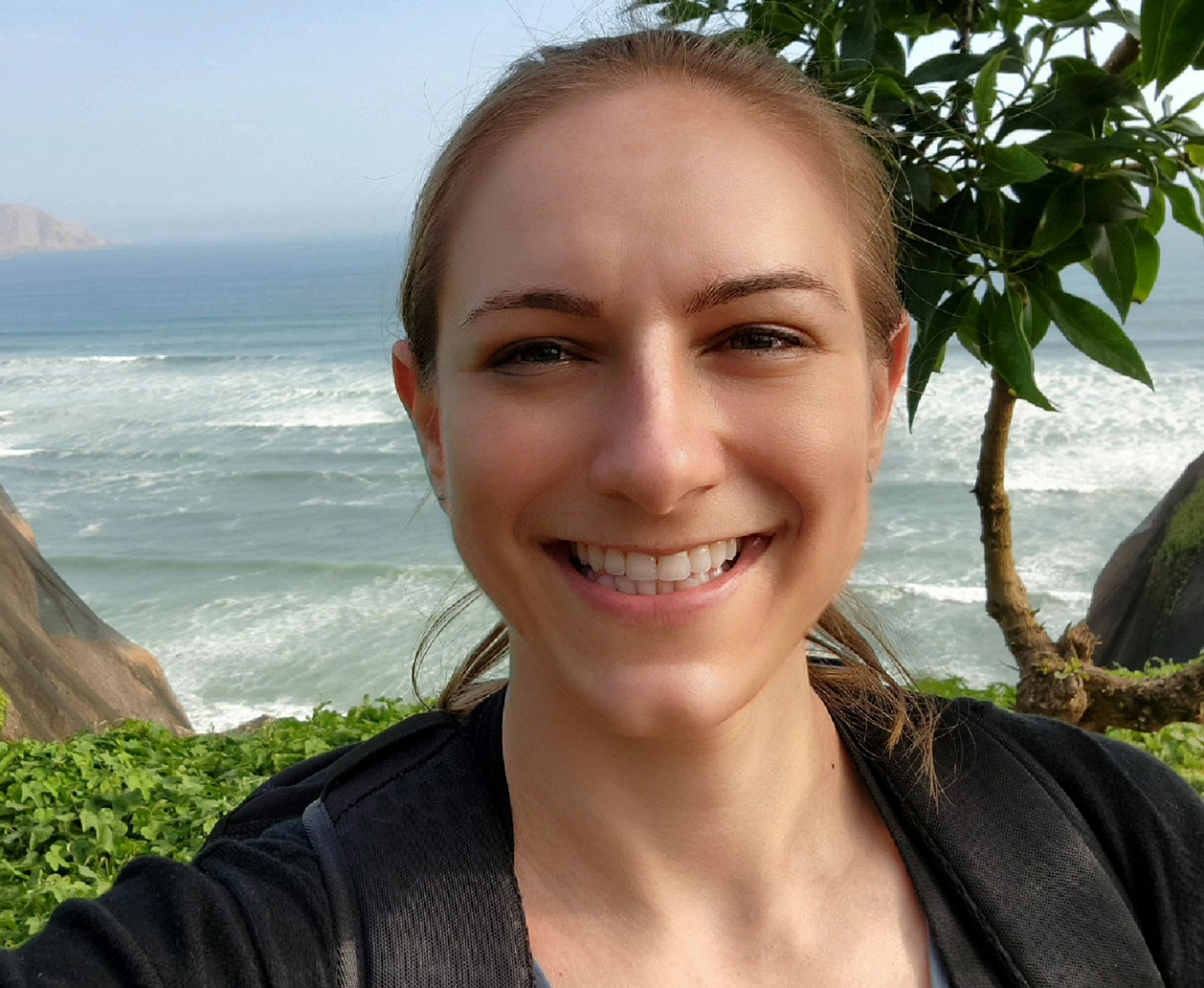 Amanda Santoni is an Ecologist at the U.S. Environmental Protection Agency. Specifically, she works in the Ocean and Coastal Management Branch on the Coastal Wetlands Initiative. She leads the Interagency Coastal Wetlands Workgroup (ICWWG) which helps to address coastal wetland loss, management, and restoration by bringing together seven federal agencies with programs and authorities that protect and manage coastal wetlands.
Amanda Santoni is an Ecologist at the U.S. Environmental Protection Agency. Specifically, she works in the Ocean and Coastal Management Branch on the Coastal Wetlands Initiative. She leads the Interagency Coastal Wetlands Workgroup (ICWWG) which helps to address coastal wetland loss, management, and restoration by bringing together seven federal agencies with programs and authorities that protect and manage coastal wetlands.
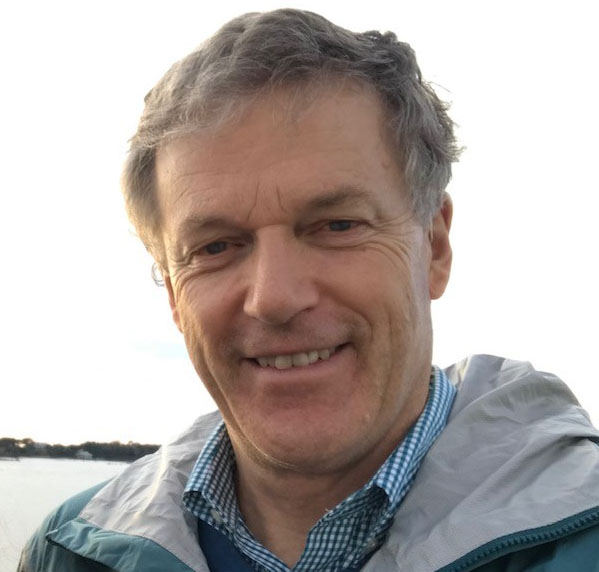 Jonathan Phinney started his career with the U.S. Fish and Wildlife Service (Service) in 2012. Presently, he is the Branch Chief for the National Wetlands Inventory Program where he oversees 12 staff located in five regional office and headquarters. He has also managed the Coastal Barrier Resources Program and the Analytical Control Facility. He spent the previous ten years at NOAA where he held several technical and management roles in NOAA Fisheries and NOAA’s Ocean and Atmospheric Research Program. He also logged four years in the nonprofit conservation world of Washington, D.C. after completing his graduate studies and a postdoc. Originally from the great state of Connecticut, he spent 10 years in California, but considers himself a (Northern) Virginian where he and his family enjoy outdoor hiking and biking and viewing the wetlands along the Potomac River and tributaries.
Jonathan Phinney started his career with the U.S. Fish and Wildlife Service (Service) in 2012. Presently, he is the Branch Chief for the National Wetlands Inventory Program where he oversees 12 staff located in five regional office and headquarters. He has also managed the Coastal Barrier Resources Program and the Analytical Control Facility. He spent the previous ten years at NOAA where he held several technical and management roles in NOAA Fisheries and NOAA’s Ocean and Atmospheric Research Program. He also logged four years in the nonprofit conservation world of Washington, D.C. after completing his graduate studies and a postdoc. Originally from the great state of Connecticut, he spent 10 years in California, but considers himself a (Northern) Virginian where he and his family enjoy outdoor hiking and biking and viewing the wetlands along the Potomac River and tributaries.
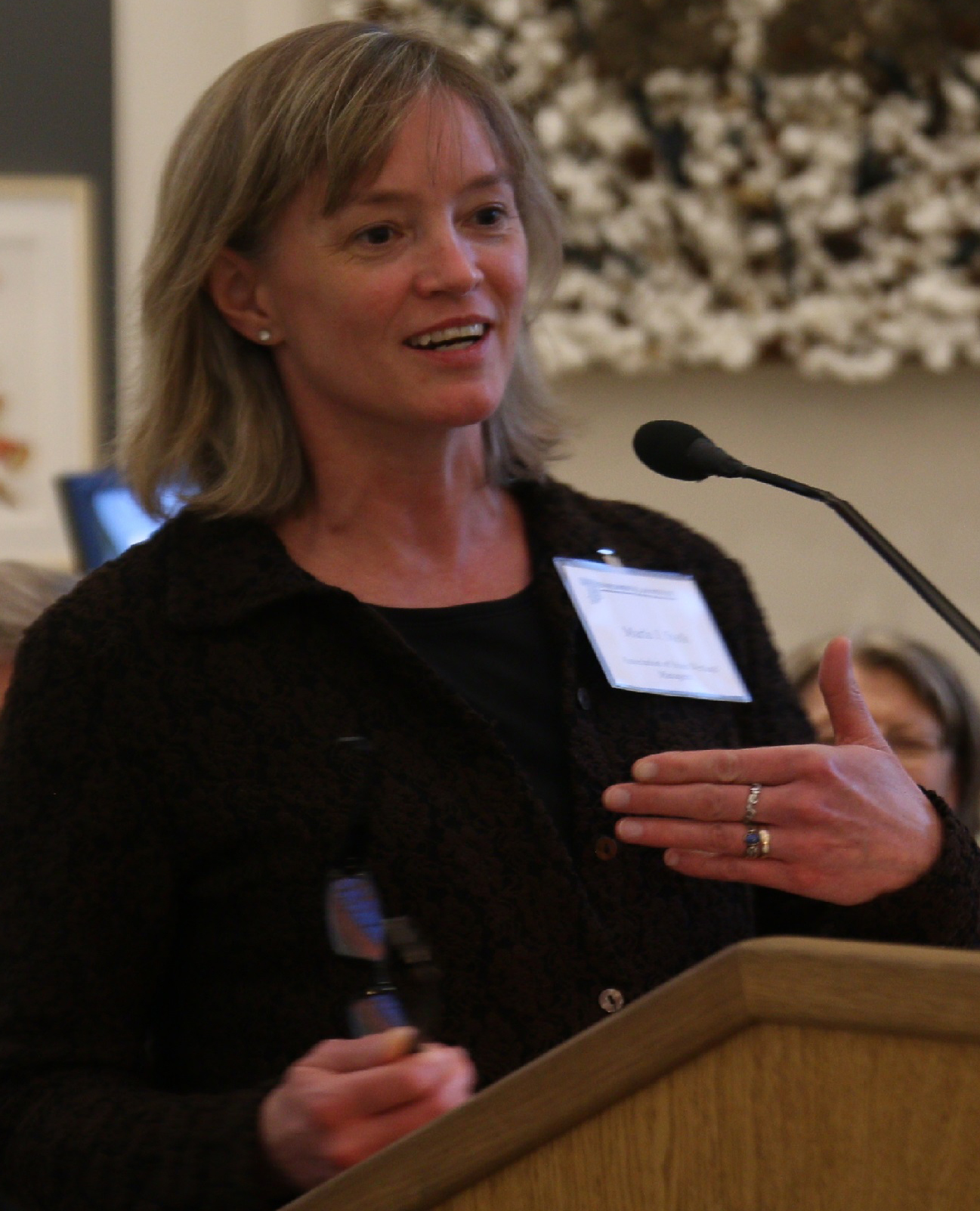 Marla Stelk is the Executive Director at the National Association of Wetland Managers (NAWM) where she has worked on wetland policy and management issues since 2013. Marla has over 25 years of experience working on wetland, water, and wildlife issues, climate change, environmental policy and research, land use planning, communications and organizational leadership. Marla has led research at NAWM on topics such as ecosystem service valuation for wetland restoration, the role of wetlands in floodplain and natural hazard management, wetlands and watershed health, wetland mapping and communications. Prior to coming to NAWM, Marla worked for a variety of environmental and social nonprofit organizations helping to build organizational capacity, manage projects and improve internal processes. Marla earned her MA in Community Planning and Development with a focus on Land Use and the Environment at the University of Southern Maine’s Muskie School of Public Service and her BA in Environmental Issues from Colorado College.
Marla Stelk is the Executive Director at the National Association of Wetland Managers (NAWM) where she has worked on wetland policy and management issues since 2013. Marla has over 25 years of experience working on wetland, water, and wildlife issues, climate change, environmental policy and research, land use planning, communications and organizational leadership. Marla has led research at NAWM on topics such as ecosystem service valuation for wetland restoration, the role of wetlands in floodplain and natural hazard management, wetlands and watershed health, wetland mapping and communications. Prior to coming to NAWM, Marla worked for a variety of environmental and social nonprofit organizations helping to build organizational capacity, manage projects and improve internal processes. Marla earned her MA in Community Planning and Development with a focus on Land Use and the Environment at the University of Southern Maine’s Muskie School of Public Service and her BA in Environmental Issues from Colorado College.
Please click only once on each video recording to view in this window.
![]()
Advancing the Integration of Clean Water Act Programs with Natural Hazard Mitigation Planning & Implementation
Held Tuesday, January 17, 2023 - 3:00 p.m.-4:00 p.m. EST
This was a 60-minute informational webinar regarding a new project designed to aid states, local communities, and tribes in integrating their Clean Water Act programs with their natural hazard mitigation programs. This project is being implemented by the National Association of Wetland Managers and the Association of State Floodplain Managers in partnership with the U.S. Environmental Protection Agency (EPA). Beginning in 2023 and over the course of five years, we will host one annual in-person training workshop in five pre-determined regions. This introductory webinar included a background discussion of water and natural hazard mitigation, an overview of current EPA resources to get started, and an outline of the goals and processes of this project in addressing deeper needs. There was 30 minutes for Q&A and information on the nominating process for those interested in attending a workshop.
INTRODUCTION
- Ian Grosfelt, National Association of Wetland Managers [PRESENTATIONS PDF]
PRESENTERS
- Marla Stelk, National Association of Wetland Managers
- Ellie Flaherty, U.S. Environmental Protection Agency
- Jenna Moran, Association of State Floodplain Managers
WEBINAR RESOURCES
- Project Summary and Nominating Process
- EPA Nature-Based BMPs with Co-Benefits for Water Quality and Hazard Mitigation
- ASFPM CRS for Community Resilience Green Guide
- NAWM Healthy Wetlands Healthy Watersheds White Paper
- FEMA Mitigation Planning and the Community Rating System: Key Topics Bulletin
BIOS
 Marla Stelk is the Executive Director at the National Association of Wetland Managers (NAWM) where she has worked on wetland policy and management issues since 2013. Marla has over 25 years of experience working on wetland, water, and wildlife issues, climate change, environmental policy and research, land use planning, communications and organizational leadership. Marla has led research at NAWM on topics such as ecosystem service valuation for wetland restoration, the role of wetlands in floodplain and natural hazard management, wetlands and watershed health, wetland mapping and communications. Prior to coming to NAWM, Marla worked for a variety of environmental and social nonprofit organizations helping to build organizational capacity, manage projects and improve internal processes. Marla earned her MA in Community Planning and Development with a focus on Land Use and the Environment at the University of Southern Maine’s Muskie School of Public Service and her BA in Environmental Issues from Colorado College.
Marla Stelk is the Executive Director at the National Association of Wetland Managers (NAWM) where she has worked on wetland policy and management issues since 2013. Marla has over 25 years of experience working on wetland, water, and wildlife issues, climate change, environmental policy and research, land use planning, communications and organizational leadership. Marla has led research at NAWM on topics such as ecosystem service valuation for wetland restoration, the role of wetlands in floodplain and natural hazard management, wetlands and watershed health, wetland mapping and communications. Prior to coming to NAWM, Marla worked for a variety of environmental and social nonprofit organizations helping to build organizational capacity, manage projects and improve internal processes. Marla earned her MA in Community Planning and Development with a focus on Land Use and the Environment at the University of Southern Maine’s Muskie School of Public Service and her BA in Environmental Issues from Colorado College.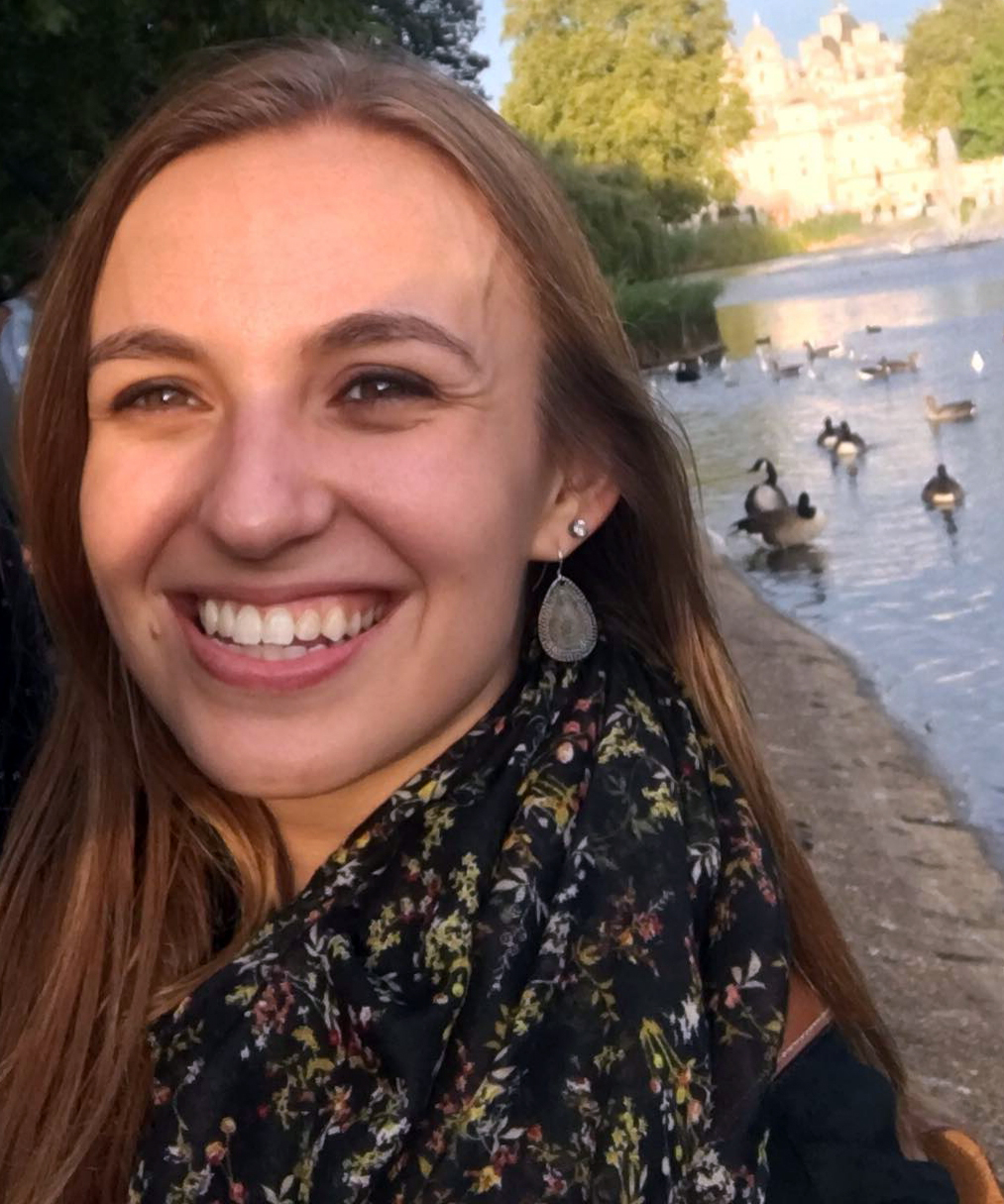 Ellie Flaherty is a Biologist in the Environmental Protection Agency’s Nonpoint Source (NPS) program. In this role she provides technical and programmatic support for the Clean Water Act Section 319 grant program and supports NPS program efforts to connect nature-based water quality practices with hazard mitigation and resilience planning. Ellie joined EPA shortly after receiving her Master of Science in Natural Resources and Environment from the University of Michigan in 2019.
Ellie Flaherty is a Biologist in the Environmental Protection Agency’s Nonpoint Source (NPS) program. In this role she provides technical and programmatic support for the Clean Water Act Section 319 grant program and supports NPS program efforts to connect nature-based water quality practices with hazard mitigation and resilience planning. Ellie joined EPA shortly after receiving her Master of Science in Natural Resources and Environment from the University of Michigan in 2019. 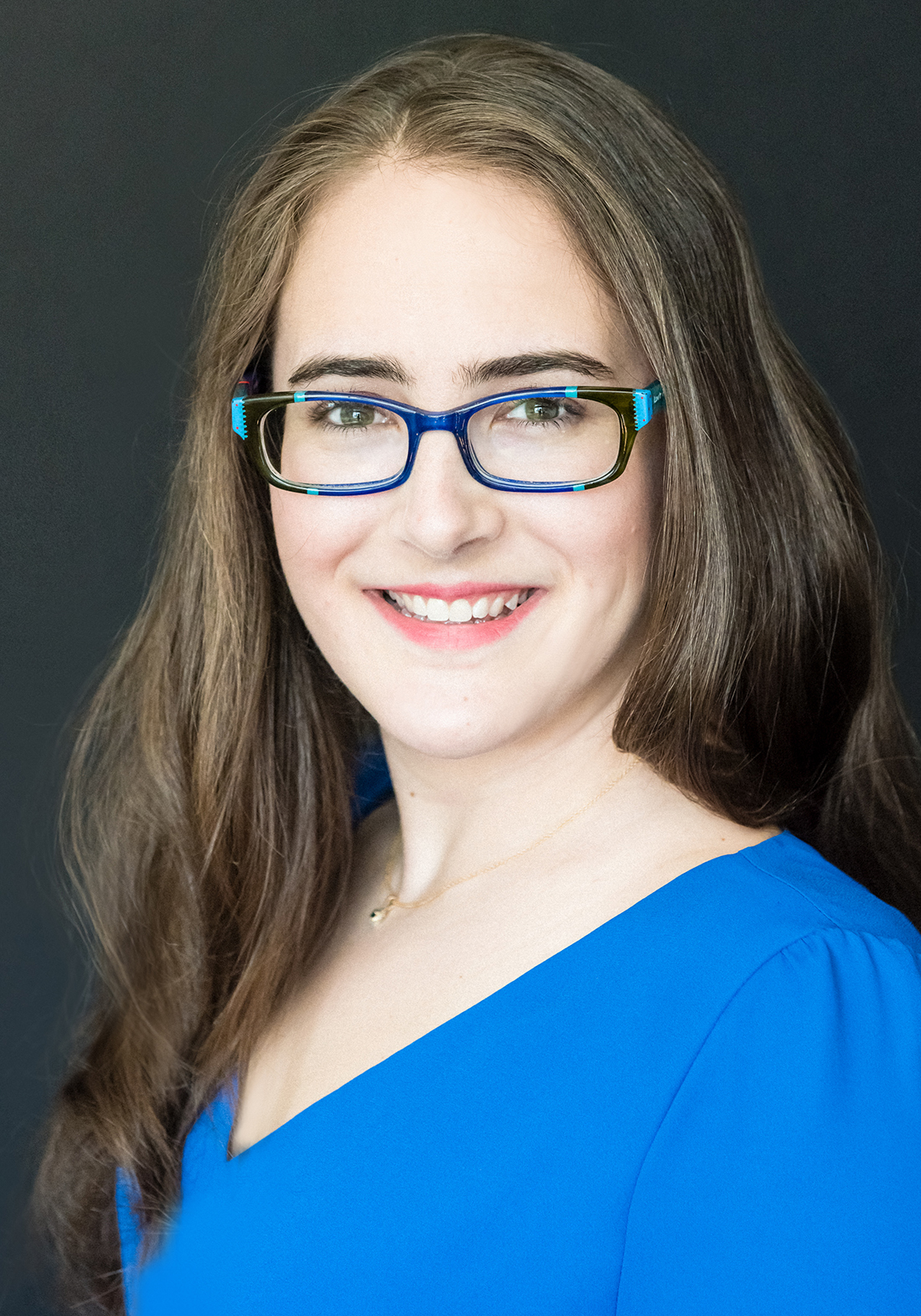 Jenna Moran joined the Flood Science Center as a Senior Project Manager in October 2020. Now, as the FSC Co-Director and Portfolio Manager, she oversees the administration of ASFPM's portfolio of grants while managing select projects within the portfolio. Before coming to ASFPM, Jenna was the Associate Program Director for Resilience at the National Association of Counties, where she handled grants and initiatives relating to resilience and community and economic development. Jenna holds a Master of Public Administration from The George Washington University and a Bachelor of Arts from the University of Notre Dame. Before transitioning into the world of resilience, she worked in arts and culture as a stage manager and a Design Program Specialist at the National Endowment for the Arts.
Jenna Moran joined the Flood Science Center as a Senior Project Manager in October 2020. Now, as the FSC Co-Director and Portfolio Manager, she oversees the administration of ASFPM's portfolio of grants while managing select projects within the portfolio. Before coming to ASFPM, Jenna was the Associate Program Director for Resilience at the National Association of Counties, where she handled grants and initiatives relating to resilience and community and economic development. Jenna holds a Master of Public Administration from The George Washington University and a Bachelor of Arts from the University of Notre Dame. Before transitioning into the world of resilience, she worked in arts and culture as a stage manager and a Design Program Specialist at the National Endowment for the Arts.
Please click only once on each video recording to view in this window.
![]()
PDF List of Past Hot Topics Webinar Recordings Here
View Upcoming Hot Topics Webinars
Celebrating the Clean Water Act 50th Anniversary: Wetland Restoration in our National Parks
Held Thursday, October 27, 2022 - 3:00 p.m.-4:30 p.m. EDT
This webinar concluded a month-long celebration of the Clean Water Act’s (CWA) 50th Anniversary with our Hot Topics webinar highlighting wetland restoration projects in our national parks. We began with a warm welcome from Brian Frazer, Acting Director of the Office of Wetlands, Oceans, and Watersheds, U.S. Environmental Protection Agency. The CWA was championed by the late Senator Edmund S. Muskie from Maine, and since NAWM is headquartered in Portland, Maine, our first presentation was about a wetland restoration project in Acadia National Park using funds from the Bipartisan Infrastructure Law. Then we heard about a massive 85-acre wetland restoration that was completed for the Delaware Water Gap National Recreation Area.
ABSTRACTS
Brian Henkel
Acadia gets about six inches more precipitation each year than it did 100 years ago, and more of that precipitation falls in extreme weather events. One of every six plant species found in the park in the late 1800s no longer occurs there. Many animals have been lost too—moving to the north—while others have arrived from the south. At the same time, visitation to the park has skyrocketed from 2.4 million visits in 2011 to more than 4 million visits in 2021. These rapid changes challenge national park managers. Historically, park managers focused on maintaining the park to past conditions — to restore things to the way they were. Now managers must learn how to manage for change—working to keep park ecosystems healthy as they change quickly. This webinar shared a new approach to wetland restoration in a changing climate and lessons learned.
Kate VinZant
Delaware Water Gap National Recreation Area, which is managed by the National Park Service, recently undertook the 85-acre Watergate Wetlands Restoration Project. In the early to mid- 1800s the project area watershed experienced large scale land manipulation, including the installation of ditches and dikes to drain wetlands and diversion of watercourses to create farmable land. The primary goals of this project were to restore wetlands that were historically present and the natural hydrologic function of Van Campens Brook. Restoration activities included topsoil salvage, site recontouring, soil decompaction, creation of wildlife habitat structures, installation of native seed and container plants, and invasive plant control.
INTRODUCTION
- Marla Stelk, Executive Director, National Association of Wetland Managers [PRESENTATION PDF]
WELCOME
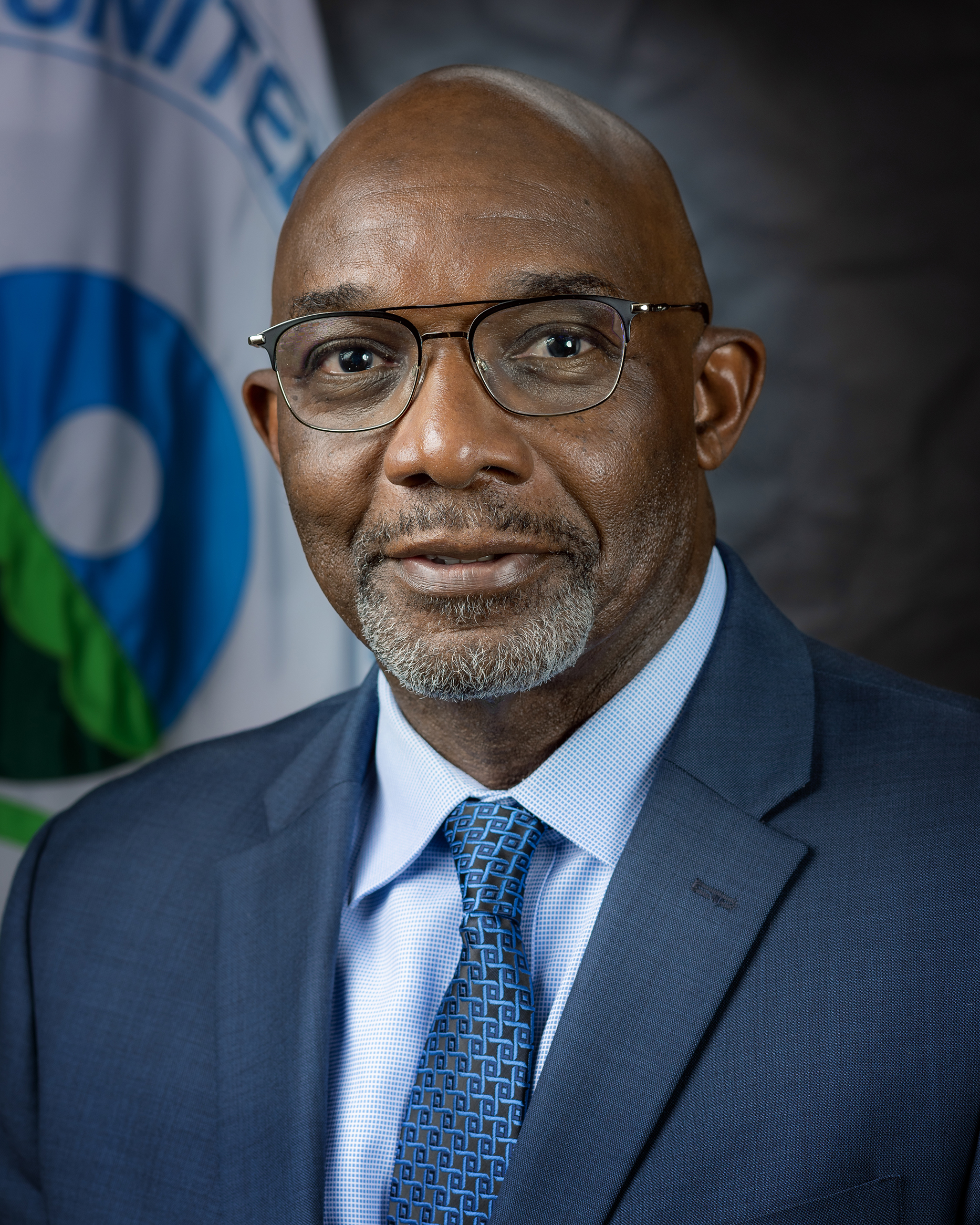
• Brian Frazer, Acting Director, Office of Wetlands, Oceans, and Watersheds, U.S. Environmental Protection Agency
PRESENTERS
- Brian Henkel, Wild Acadia Project Coordinator, Friends of Acadia [PRESENTATION PDF]
- Katie VinZant, Restoration Biologist, National Park Service, Biological Resources Division-Landscape Restoration & Adaptation Branch [PRESENTATION PDF]
BIOS
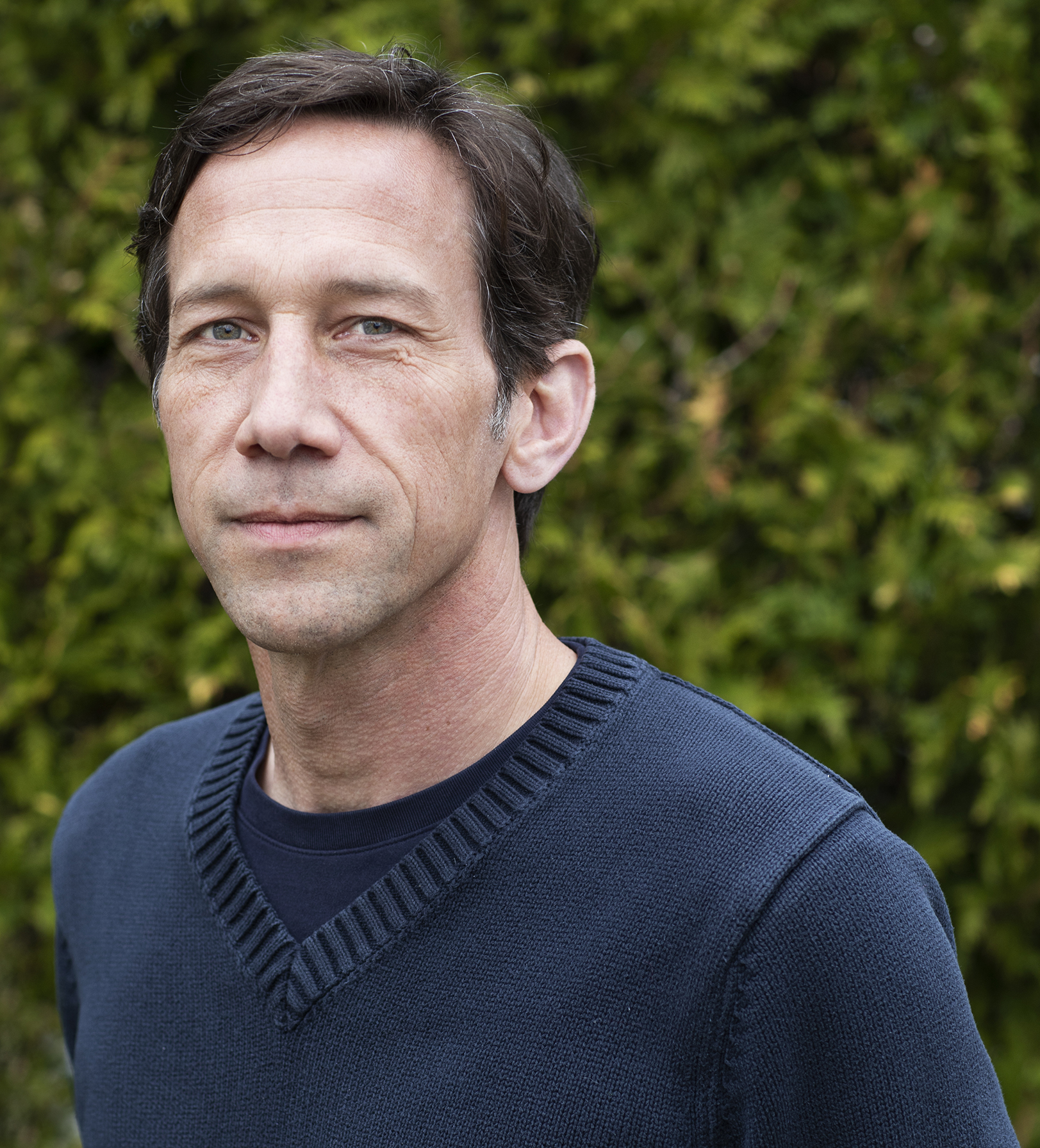 Brian Henkel is the Wild Acadia Project Coordinator at Friends of Acadia. The Wild Acadia initiative is a collaboration between Acadia National Park and Friends of Acadia that takes a watershed-based approach to improving degraded ecological conditions in and around Acadia National Park. Within this collaboration, Brian works with park staff and area partners such as university faculty, students, local towns, and conservation non-profits to collect data, assess resource conditions, plan and initiate projects, and coordinate efforts of the park and stakeholders. The Wild Acadia initiative strives to improve ecological integrity and resiliency within the park and the surrounding communities in the face of rapid environmental change. Brian is a graduate of the University of Texas at San Antonio with a BS in Civil Engineering. He has worked as a hydrologist in groundwater and surface water for more than 20 years.
Brian Henkel is the Wild Acadia Project Coordinator at Friends of Acadia. The Wild Acadia initiative is a collaboration between Acadia National Park and Friends of Acadia that takes a watershed-based approach to improving degraded ecological conditions in and around Acadia National Park. Within this collaboration, Brian works with park staff and area partners such as university faculty, students, local towns, and conservation non-profits to collect data, assess resource conditions, plan and initiate projects, and coordinate efforts of the park and stakeholders. The Wild Acadia initiative strives to improve ecological integrity and resiliency within the park and the surrounding communities in the face of rapid environmental change. Brian is a graduate of the University of Texas at San Antonio with a BS in Civil Engineering. He has worked as a hydrologist in groundwater and surface water for more than 20 years.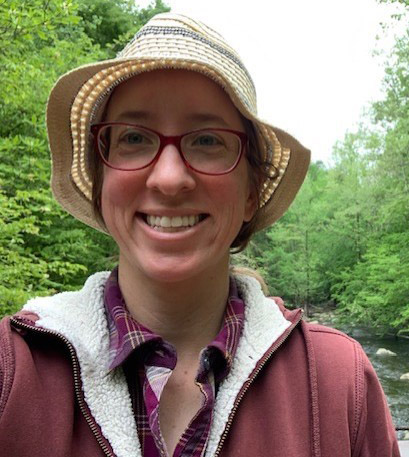 Katie VinZant is a Restoration Biologist working for the National Park Service in the Landscape Restoration and Adaptation Branch of the Biological Resources Division. Katie is based in Denver, CO, but works on restoration projects across the U.S. The key components of her work involve developing restoration plans; acquiring native, genetically appropriate plant materials; and overseeing the implementation of construction/revegetation contracts.
Katie VinZant is a Restoration Biologist working for the National Park Service in the Landscape Restoration and Adaptation Branch of the Biological Resources Division. Katie is based in Denver, CO, but works on restoration projects across the U.S. The key components of her work involve developing restoration plans; acquiring native, genetically appropriate plant materials; and overseeing the implementation of construction/revegetation contracts.
Please click only once on each video recording to view in this window.

MARSH is Coming! Learn More about the new Mentorship Assisted Resource & Support Hub
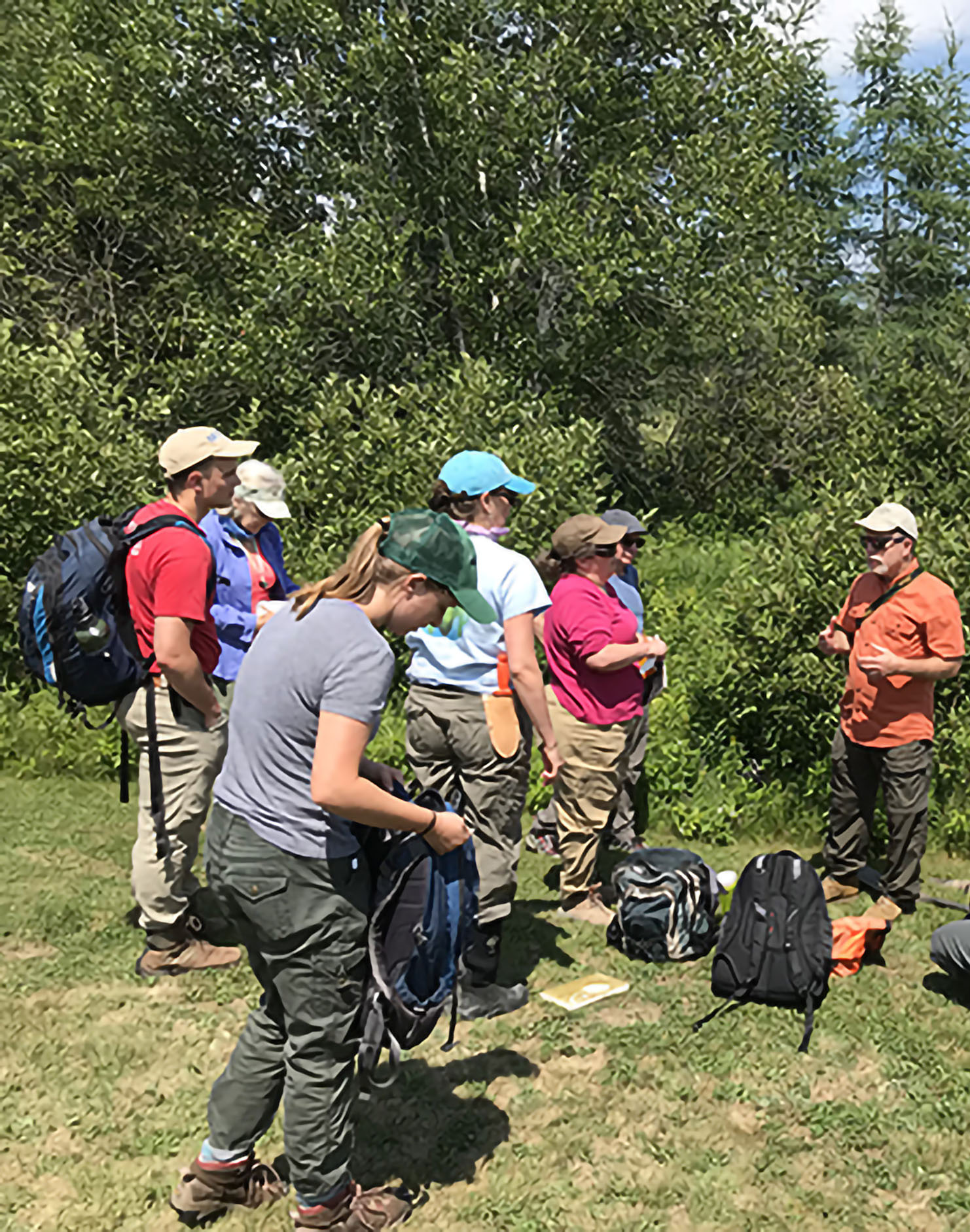 Held Thursday, July 21, 2022 - 3:00 p.m.-4:00 p.m. EDT
Held Thursday, July 21, 2022 - 3:00 p.m.-4:00 p.m. EDT
ABSTRACT
Have you ever wished you could find a mentor to help you navigate the complex world of wetland careers? Or are you passionate about your established career and want to leave a legacy by passing on your wisdom to the next generation? If so, we hope you were able to join us for an informative webinar on a new and exciting collaboration between the National Association of Wetland Managers and the Society of Wetland Scientists called the Mentorship Assisted Resource & Support Hub (aka MARSH). This webinar shared the essential program elements, explain the application process, and provide guidance on how to submit an application. Whether you are a potential mentee or mentor, this program just might provide the meaningful experience you are searching for!
INTRODUCTION
- Portia Osborne, Policy Analyst, National Association of Wetland Managers [PRESENTATION PDF]
PRESENTERS
- Greg Noe, Research Ecologist, U.S. Geological Survey
- Steffanie M. Munguía, PhD Candidate, Florida International University
- Marla Stelk, Executive Director, National Association of Wetland Managers
- Donna Downing, Senior Legal Policy Advisor, National Association of Wetland Managers
BIOS
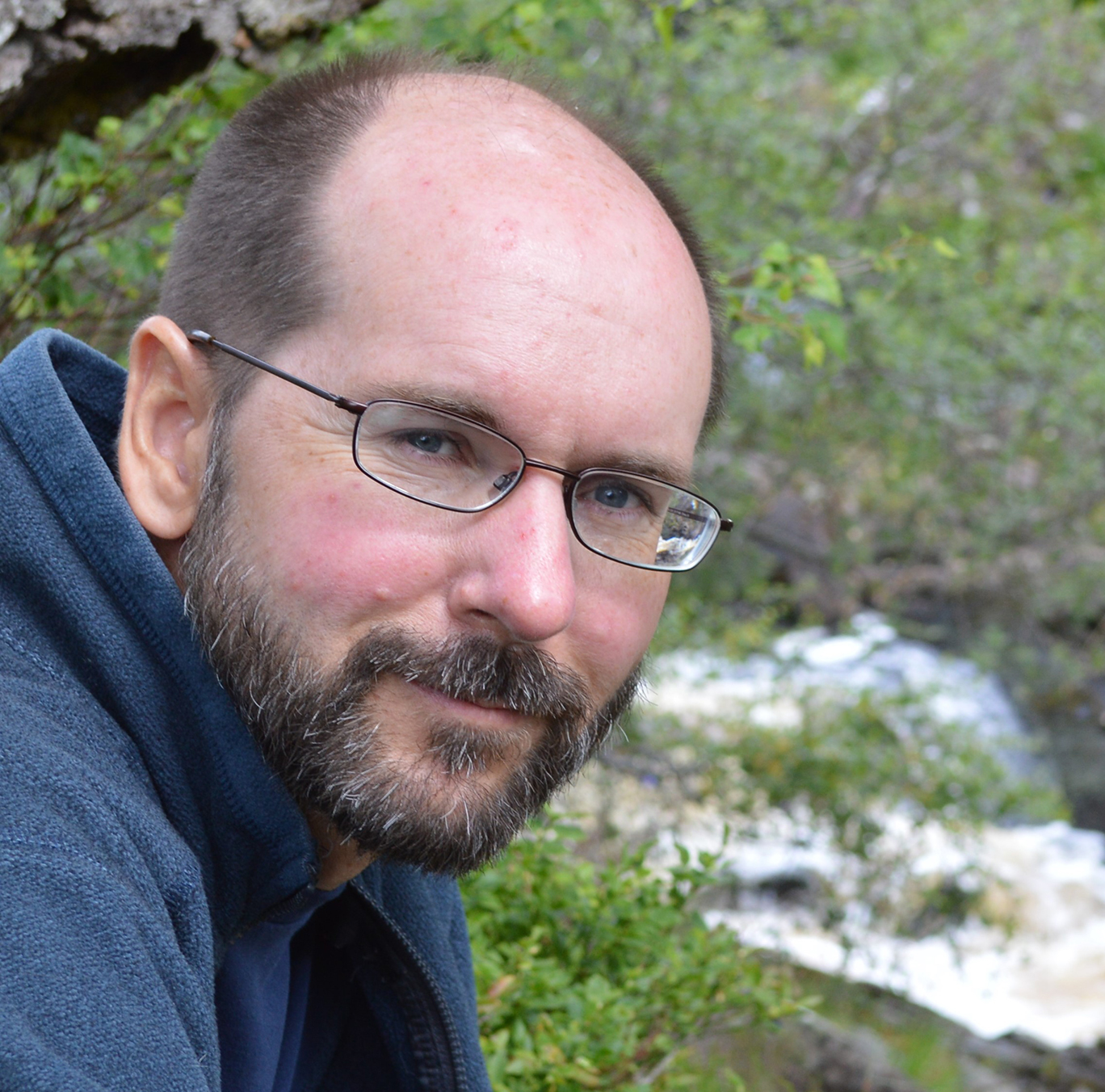 Greg Noe is a Research Ecologist with the U.S. Geological Survey in Reston, VA. His research centers on wetland ecosystem ecology and watershed processes. He is currently the Immediate Past President of the Society of Wetland Scientists, serves on the Science and Technical Advisory Committee of the Chesapeake Bay Program, and serves on the editorial board of Wetlands.
Greg Noe is a Research Ecologist with the U.S. Geological Survey in Reston, VA. His research centers on wetland ecosystem ecology and watershed processes. He is currently the Immediate Past President of the Society of Wetland Scientists, serves on the Science and Technical Advisory Committee of the Chesapeake Bay Program, and serves on the editorial board of Wetlands.
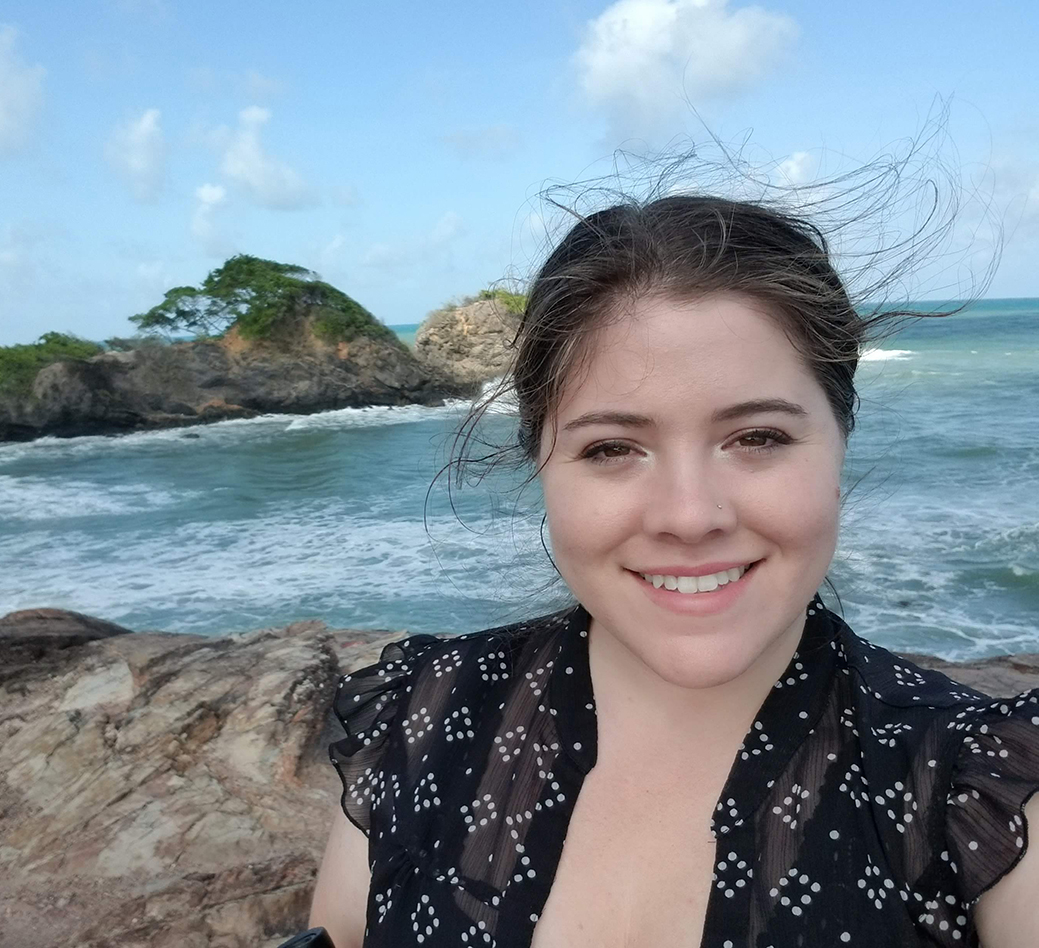 Steffanie Munguía is a PhD candidate in the Department of Earth and Environment at Florida International University, pursuing a doctoral degree in Earth System Science with a concentration in Natural Resource Science and Management. Her dissertation research focuses on evaluating the implementation of the Ramsar Convention, an international environmental agreement for the conservation of wetlands, in coastal wetlands of the Caribbean. Born in Puerto Rico to Cuban and Puerto Rican parents, Steffanie has actively pursued opportunities to work in the region, including earning a Master’s degree in International Environmental Policy with a concentration in Spanish. She has also dedicated much of her time to service to various environmental nonprofits and professional societies, where she primarily provides education and outreach programming for youth and minoritized groups, voices often excluded from conservation conversations. As co-founder and past-chair of the Student Section of the Society of Wetland Scientists, Steffanie has spearheaded a number of training, networking, and leadership development opportunities to raise the profile and impact of student members of the Society.
Steffanie Munguía is a PhD candidate in the Department of Earth and Environment at Florida International University, pursuing a doctoral degree in Earth System Science with a concentration in Natural Resource Science and Management. Her dissertation research focuses on evaluating the implementation of the Ramsar Convention, an international environmental agreement for the conservation of wetlands, in coastal wetlands of the Caribbean. Born in Puerto Rico to Cuban and Puerto Rican parents, Steffanie has actively pursued opportunities to work in the region, including earning a Master’s degree in International Environmental Policy with a concentration in Spanish. She has also dedicated much of her time to service to various environmental nonprofits and professional societies, where she primarily provides education and outreach programming for youth and minoritized groups, voices often excluded from conservation conversations. As co-founder and past-chair of the Student Section of the Society of Wetland Scientists, Steffanie has spearheaded a number of training, networking, and leadership development opportunities to raise the profile and impact of student members of the Society.
 Marla Stelk is the Executive Director at the National Association of Wetland Managers (NAWM) where she has worked on wetland policy and management issues since 2013. Marla has over 25 years of experience working on wetland, water, and wildlife issues, climate change, environmental policy and research, land use planning, communications and organizational leadership. Marla has led research at NAWM on topics such as ecosystem service valuation for wetland restoration, the role of wetlands in floodplain and natural hazard management, wetlands and watershed health, wetland mapping and communications. Prior to coming to NAWM, Marla worked for a variety of environmental and social nonprofit organizations helping to build organizational capacity, manage projects and improve internal processes. Marla earned her MA in Community Planning and Development with a focus on Land Use and the Environment at the University of Southern Maine’s Muskie School of Public Service and her BA in Environmental Issues from Colorado College.
Marla Stelk is the Executive Director at the National Association of Wetland Managers (NAWM) where she has worked on wetland policy and management issues since 2013. Marla has over 25 years of experience working on wetland, water, and wildlife issues, climate change, environmental policy and research, land use planning, communications and organizational leadership. Marla has led research at NAWM on topics such as ecosystem service valuation for wetland restoration, the role of wetlands in floodplain and natural hazard management, wetlands and watershed health, wetland mapping and communications. Prior to coming to NAWM, Marla worked for a variety of environmental and social nonprofit organizations helping to build organizational capacity, manage projects and improve internal processes. Marla earned her MA in Community Planning and Development with a focus on Land Use and the Environment at the University of Southern Maine’s Muskie School of Public Service and her BA in Environmental Issues from Colorado College.
 Donna Downing is the Senior Legal Policy Advisor at the National Association of Wetland Managers. Donna was the Jurisdiction Team Leader in the U.S. Environmental Protection Agency’s (EPA) Office of Wetlands, Oceans, and Watersheds from 2007-2020. Donna worked on a variety of issues at EPA, with a focus in recent years on the geographic scope of the Clean Water Act (CWA) in light of the U.S. Supreme Court decisions. She also served as EPA’s staff lead for CWA section 401 water quality certification, and on wetland-related legal issues. Prior to joining EPA in 1998, Donna worked for the U.S. Congress Office of Technology Assessment and in private law practice. She has a BA magna cum laude from Harvard University, an MPP from the University of California at Berkeley, a JD cum laude from Georgetown University Law School, and an LLM in Environmental Law summa cum laude from George Washington University Law School. Donna has been an adjunct professor at George Washington University Law School since 1996, teaching environmental law. In what’s left of her time, she moonlights as a professional potter and an unprofessional horse trainer. Donna also enjoys traveling and has traveled by reindeer sled in the Swedish Arctic, gone winter camping with dog sleds in Minnesota’s Boundary Waters Wilderness Area, and bicycled the Burma Road in China.
Donna Downing is the Senior Legal Policy Advisor at the National Association of Wetland Managers. Donna was the Jurisdiction Team Leader in the U.S. Environmental Protection Agency’s (EPA) Office of Wetlands, Oceans, and Watersheds from 2007-2020. Donna worked on a variety of issues at EPA, with a focus in recent years on the geographic scope of the Clean Water Act (CWA) in light of the U.S. Supreme Court decisions. She also served as EPA’s staff lead for CWA section 401 water quality certification, and on wetland-related legal issues. Prior to joining EPA in 1998, Donna worked for the U.S. Congress Office of Technology Assessment and in private law practice. She has a BA magna cum laude from Harvard University, an MPP from the University of California at Berkeley, a JD cum laude from Georgetown University Law School, and an LLM in Environmental Law summa cum laude from George Washington University Law School. Donna has been an adjunct professor at George Washington University Law School since 1996, teaching environmental law. In what’s left of her time, she moonlights as a professional potter and an unprofessional horse trainer. Donna also enjoys traveling and has traveled by reindeer sled in the Swedish Arctic, gone winter camping with dog sleds in Minnesota’s Boundary Waters Wilderness Area, and bicycled the Burma Road in China.
More information on the Mentorship Program can be found here.
Please click only once on each video recording to view in this window.
American Wetlands Month Webinar: The Importance of Wetlands to Tribal Communities
- U.S. Fish and Wildlife Service
- U.S. Environmental Protection Agency
- National Oceanic and Atmospheric Administration
Held Tuesday, May 24, 2022
ABSTRACT
In celebration of American Wetlands Month this May, this webinar highlighted the cultural importance of wetlands to Tribal communities. Wetlands and other water resources provide Tribes with healthy, traditional foods; plants used for medicinal, healing, and ceremonial purposes; reeds and grasses for weaving baskets and textiles; and fish and other wildlife. During the webinar, three tribal representatives from across the U.S. shared their stories about the cultural importance of wetlands. Presentations addressed tribal uses of wetlands, wetland mapping data and assessment efforts, as well as efforts to protect and restore these valuable resources.
INTRODUCTION
- Portia Osborne, Policy Analyst, National Association of Wetland Managers [PRESENTATION PDF]
MODERATOR
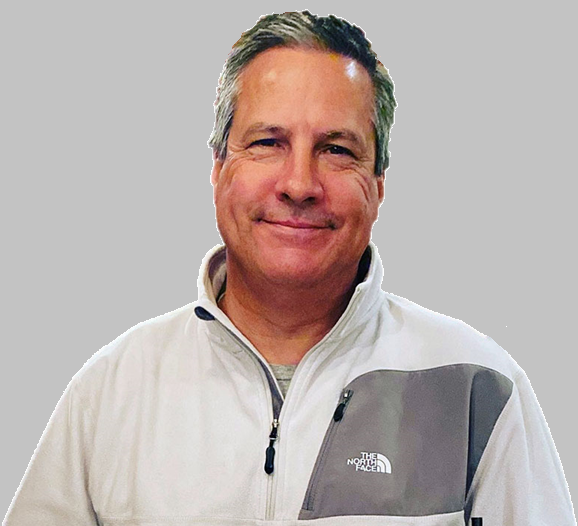 • DJ Monette, Associate Native American Liaison Advisor, U.S. Fish and Wildlife Service Headquarters
• DJ Monette, Associate Native American Liaison Advisor, U.S. Fish and Wildlife Service Headquarters
PRESENTERS
• Nathan Dexter, Native American Liaison, U.S. Fish and Wildlife Service Columbia - Pacific NW Region [PRESENTATION PDF]
• Roger LaBine, Water Resource Technician, Lac Vieux Desert Band of Lake Superior Chippewa Indians [PRESENTATION PDF]
• Jessica Lewis, Environmental Scientist, Mississippi Band of Choctaw Indians [PRESENTATION PDF]
BIOS
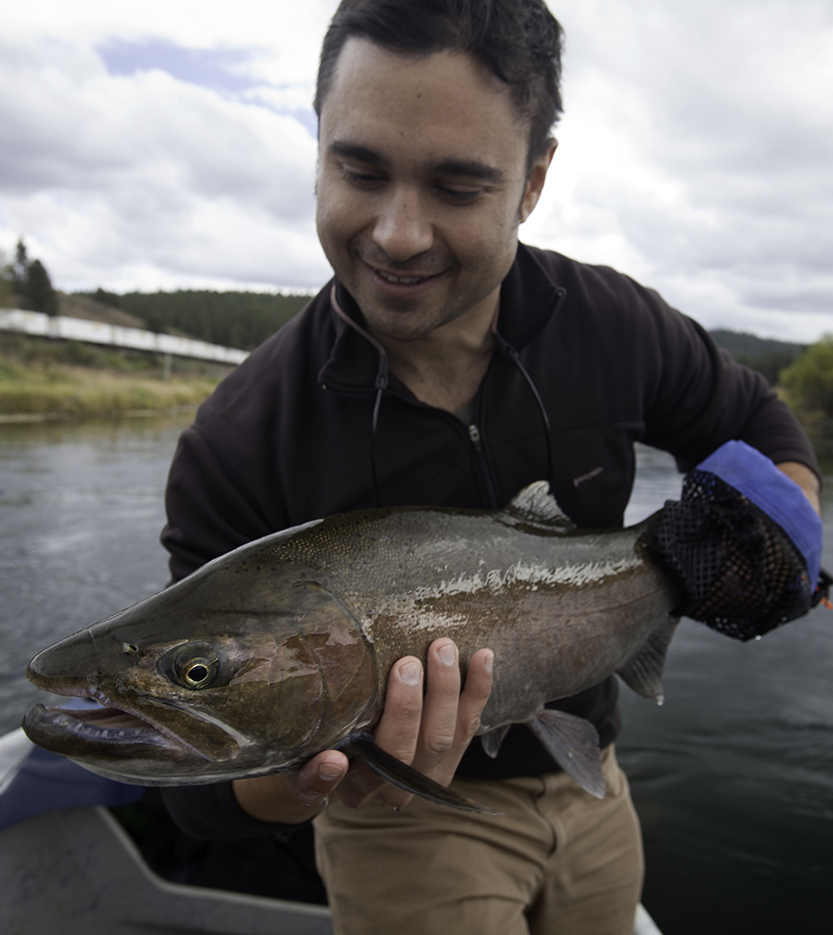
Nathan Dexter (Klamath/Modoc) joined the U.S. Fish and Wildlife Service in 2014 as a Regional Native American Liaison for the Pacific Region in Portland, Oregon. A native Oregonian, Nathan graduated from Lewis & Clark College and the University of Colorado School of Law before embarking on a career that has touched many facets of tribal government. He has worked for an intertribal organization, Oregon Legal Aid Native American Program, a national Indian law firm, as an in-house tribal attorney, and for the Bonneville Power Administration and the Department of Energy.
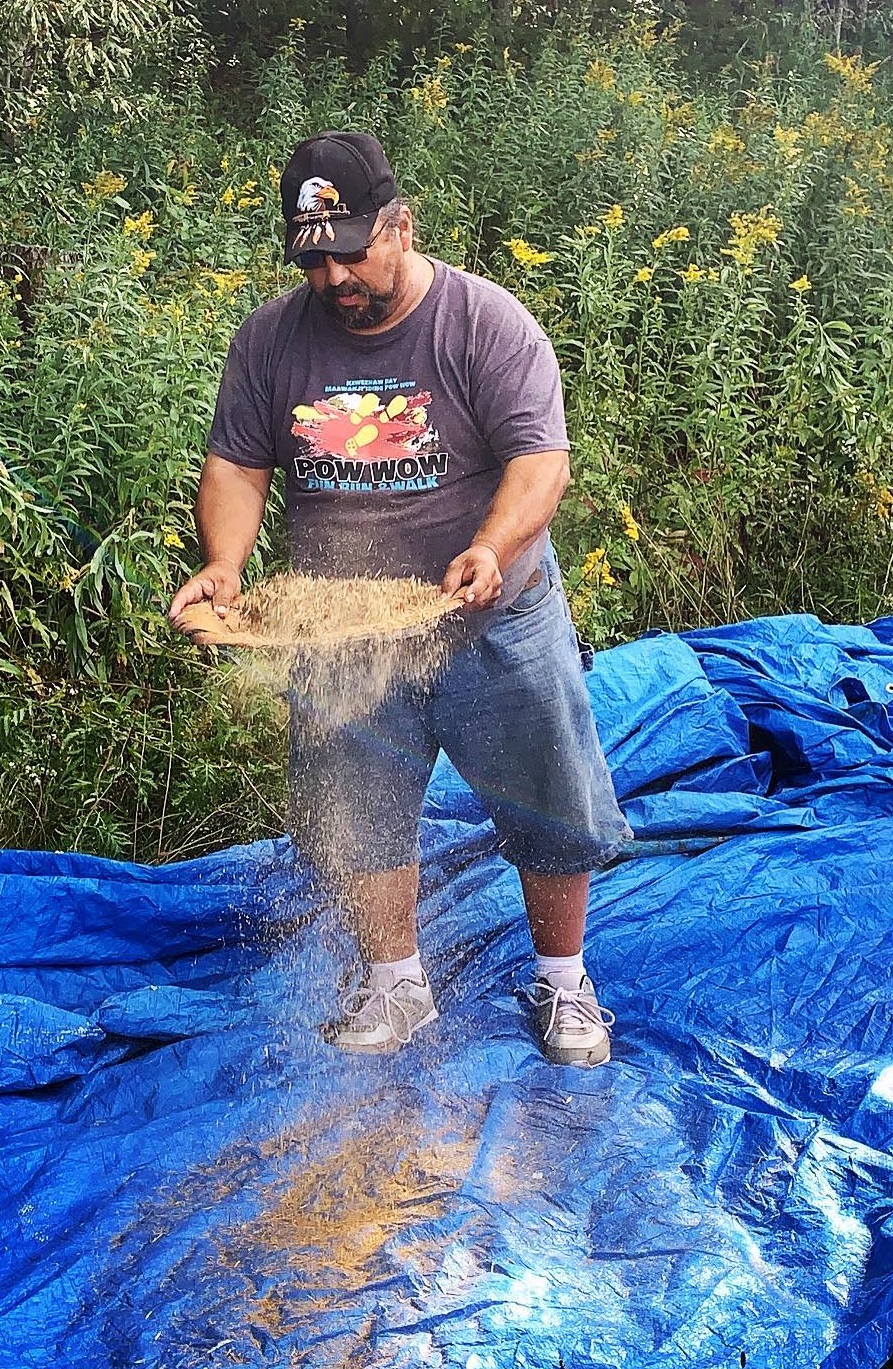 Roger LaBine is an enrolled member of the Lac Vieux Desert Band of Lake Superior Chippewa. He is currently employed in the Environmental Department as a Water Resource Technician with the responsibility of monitoring the water quality of surface waters in tribal territory and involved in the Manoonmin restoration and monitoring program. Roger is the tribal delegate on the Michigan Wild Rice Initiative, co-chairs the Education and Outreach Subcommittee, and co-chairs the Michigan Wild Rice Coalition. He is also a consultant/advisor on several Manoomin Research projects. Roger is a member of the Midewiwin Lodge and received his Mentoring and Teachings from the lodge, his Grandparents and Uncle. He was introduced to Manoomin harvesting and Manoomin Camp in 1972 when he was invited to accompany them in the annual harvest in Northern Wisconsin. He started assisting his Uncle Niigaanaash (Ne-gone-osh) in 1980 with the restoration of Manoomin on Lake Lac Vieux Desert, their tribal homeland. He supported Niigaanaash in his negotiations with the Wisconsin Valley Improvement Company requesting their support in the project and through the litigation to get the waters lowered to promote the return of the Manoomin beds. He has continued the project after Niigaanaash walked in 1999. Roger was the recipient of the 2019 Michigan Heritage Award given by the State of Michigan and Michigan State University for his work of preservation, education, outreach, and restoration efforts throughout the State of Michigan and the Great Lakes Basin. He conducts Manoomin Camps and Manoomin workshops throughout the year across the Great Lakes Basin, and they are open to both the tribal members and to the general public.
Roger LaBine is an enrolled member of the Lac Vieux Desert Band of Lake Superior Chippewa. He is currently employed in the Environmental Department as a Water Resource Technician with the responsibility of monitoring the water quality of surface waters in tribal territory and involved in the Manoonmin restoration and monitoring program. Roger is the tribal delegate on the Michigan Wild Rice Initiative, co-chairs the Education and Outreach Subcommittee, and co-chairs the Michigan Wild Rice Coalition. He is also a consultant/advisor on several Manoomin Research projects. Roger is a member of the Midewiwin Lodge and received his Mentoring and Teachings from the lodge, his Grandparents and Uncle. He was introduced to Manoomin harvesting and Manoomin Camp in 1972 when he was invited to accompany them in the annual harvest in Northern Wisconsin. He started assisting his Uncle Niigaanaash (Ne-gone-osh) in 1980 with the restoration of Manoomin on Lake Lac Vieux Desert, their tribal homeland. He supported Niigaanaash in his negotiations with the Wisconsin Valley Improvement Company requesting their support in the project and through the litigation to get the waters lowered to promote the return of the Manoomin beds. He has continued the project after Niigaanaash walked in 1999. Roger was the recipient of the 2019 Michigan Heritage Award given by the State of Michigan and Michigan State University for his work of preservation, education, outreach, and restoration efforts throughout the State of Michigan and the Great Lakes Basin. He conducts Manoomin Camps and Manoomin workshops throughout the year across the Great Lakes Basin, and they are open to both the tribal members and to the general public.
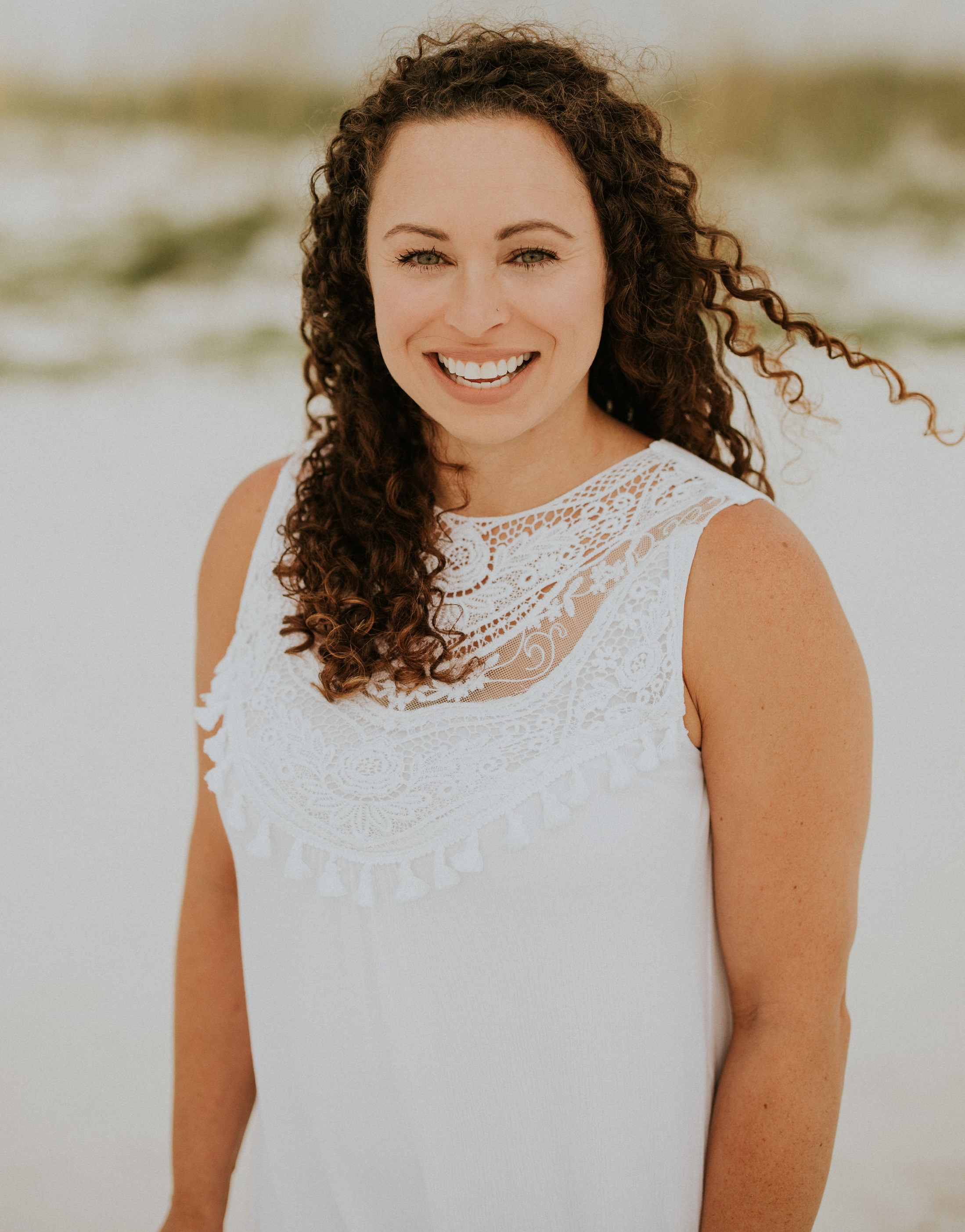 Jessica Lewis serves the Mississippi Band of Choctaw Indians as an Environmental Scientist in the Office of Environmental Protection. She is the program lead for the tribal Wetlands Program and several other environmental programs. Jess has been an FAA licensed drone pilot for three years and uses aerial photography for many program areas including wetland identification, mapping, and evaluation.
Jessica Lewis serves the Mississippi Band of Choctaw Indians as an Environmental Scientist in the Office of Environmental Protection. She is the program lead for the tribal Wetlands Program and several other environmental programs. Jess has been an FAA licensed drone pilot for three years and uses aerial photography for many program areas including wetland identification, mapping, and evaluation.
Please click only once on each video recording to view in this window.
![]()
Wetlands, Flooding, and the Clean Water Act
Held Wednesday, April 13, 2022 - 3:00 p.m.-4:00 p.m. EST
INTRODUCTION
- Brenda Zollitsch, Senior Policy Analyst, National Association of Wetland Managers [PRESENTATION PDF]
PRESENTER
- Hannah Druckenmiller, Fellow, Resources for the Future [PRESENTATION PDF]
CO-AUTHOR
- Charles A. Taylor, PhD Candidate, in Sustainable Development, Columbia University
ABSTRACT
In 2020 the EPA narrowed the definition of ‘Waters of the United States’, significantly limiting wetland protection under the Clean Water Act. Current policy debates center on the uncertainty around wetland benefits. We estimate the value of wetlands for flood mitigation across the U.S. using detailed flood claims and land use data. We find the average hectare of wetland lost between 2001 and 2016 cost society $1,840 annually, and over $8,000 in developed areas. We document significant spatial heterogeneity in wetland benefits, with implications for flood insurance policy and the 50% of ‘isolated’ wetlands at risk of losing federal protection.
BIOS
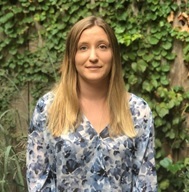 Hannah Druckenmiller is an Environmental Economist and Fellow at Resources for the Future. She received her PhD in Agricultural and Resource Economics in 2021 from UC Berkeley, where she was a doctoral fellow at the Global Policy Lab and an NSF Graduate Research Fellow. Hannah’s research focuses on quantifying the value of healthy ecosystems and assessing the causes and consequences of long-run environmental change. She is studying the effects of forest degradation, wetland loss, and land use change.
Hannah Druckenmiller is an Environmental Economist and Fellow at Resources for the Future. She received her PhD in Agricultural and Resource Economics in 2021 from UC Berkeley, where she was a doctoral fellow at the Global Policy Lab and an NSF Graduate Research Fellow. Hannah’s research focuses on quantifying the value of healthy ecosystems and assessing the causes and consequences of long-run environmental change. She is studying the effects of forest degradation, wetland loss, and land use change.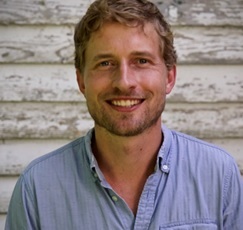 Charles A. Taylor is a PhD candidate in Sustainable Development at Columbia University specializing in environmental economics. His research interests span agriculture, land use, ecosystem services, and climate change. Much of his work involves satellite data and remote sensing. He has taught environmental economics at City College of New York and Fordham University. Previously, he worked at McKinsey & Company, the Bill & Melinda Gates Foundation as an agricultural consultant, and The Earth Partners LP, the land and environmental investment company. He co-founded the Drylands Natural Resource Centre, a farmer-owned cooperative and research center. Charles studied Economics and Political & Social Thought at the University of Virginia.
Charles A. Taylor is a PhD candidate in Sustainable Development at Columbia University specializing in environmental economics. His research interests span agriculture, land use, ecosystem services, and climate change. Much of his work involves satellite data and remote sensing. He has taught environmental economics at City College of New York and Fordham University. Previously, he worked at McKinsey & Company, the Bill & Melinda Gates Foundation as an agricultural consultant, and The Earth Partners LP, the land and environmental investment company. He co-founded the Drylands Natural Resource Centre, a farmer-owned cooperative and research center. Charles studied Economics and Political & Social Thought at the University of Virginia.
Please click only once on each video recording to view in this window.
![]()
PDF List of Past Hot Topics Webinar Recordings
View Upcoming Hot Topics Webinars
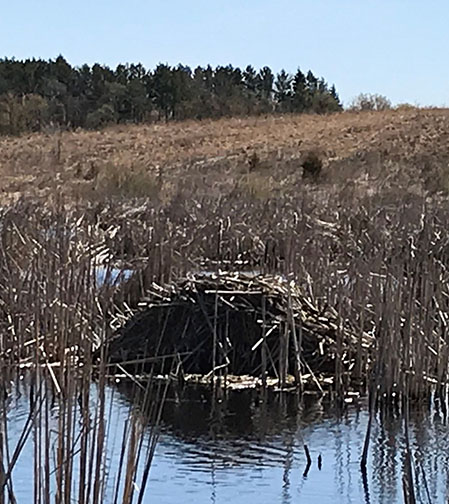
The U.S. Army Corps of Engineers (Corps) was interested in developing a webinar training series with topics that go beyond what is currently available at the National Interagency Review Team course or in Corps Regulatory Mitigation Workshops. The purpose of the contract between the Corps and the National Association of Wetland Managers (NAWM) was to develop and provide advanced training materials for current and future Corps regulatory staff engaged in reviewing, approving and monitoring compensatory mitigation. However, the audience for the webinars and training workshop could also include other people who are working with or running compensatory mitigation programs such as state agency staff, etc. The project is intended to address all forms of compensatory mitigation, i.e., banks, in-lieu fee and permittee responsible. There are nine recorded webinars with an average of three presentations in each for this series that build on the information from each preceding webinar.
List of Modules in the Training Series (9 modules)
Module 01: An Ecological Framework for Reviewing Compensatory Mitigation: An Introduction
Module 02: An Ecological Framework for Reviewing Compensatory Mitigation: Abiotic Processes
Module 03: An Ecological Framework for Reviewing Compensatory Mitigation: Biotic Processes
Module 04: An Ecological Framework for Reviewing Compensatory Mitigation: Plan Review
Module 06: An Ecological Framework for Reviewing Compensatory Mitigation: From Conceptual to Final Design
Module 07: An Ecological Framework for Reviewing Compensatory Mitigation: Anticipating the Unexpected
Module 08: An Ecological Framework for Reviewing Compensatory Mitigation: Oversight and Compliance
Optional Module Quiz and Certificate of Completion for Use in Applying for Continuing Education Credits (CEUs)
Each online module in the Compensatory Mitigation Training Series is accompanied by an optional knowledge assessment quiz available through ClassMarker. The quiz assesses understanding of the key take-away points of the training.
Please Note, Scheduled Maintenance: ClassMarker will be doing scheduled maintenance on Saturday, December 20 at 6:00 p.m. ET for 5 to 6 hours. During this time, you will not be able to get certificates for webinars or online trainings.
NAWM Members - as a benefit of membership, you will have the opportunity to download a free Certificate of Completion for each module quiz that you pass. Log In to the membership portal to access the learning modules and quizzes.
Non-Members - you have free access to view the learning modules. There is a $25.00 USD fee per module to take the online quiz towards achieving a Certificate of Completion. Secure payment is made through PayPal, either with a PayPal account or with the guest option, using a credit card.
![]()
Module 1: An Ecological Framework for Reviewing Compensatory Mitigation: An Introduction
PRESENTERS
- NAWM Introduction [PowerPoint Presentation]
- Eric Stein, Principal Scientist, Southern California Coastal Water Research Project [PowerPoint Presentation]
- Jeremy Sueltenfuss, Department of Forest and Rangeland Stewardship, Colorado State University [PowerPoint Presentation]
- W. Lee Daniels, Thomas B. Hutcheson Professor of Environmental Soil Science at Virginia Tech [PowerPoint Presentation]
- Matt Schweisberg, Principal of Wetland Strategies and Solutions, LLC [PowerPoint Presentation]
ABSTRACT
This training module provides an overall framework for review of proposed compensatory mitigation projects. Presenters focus on the processes that shape wetlands across diverse landscapes including the critical components of wetlands and wetland restoration projects: hydrology, soils and vegetation. Landscape context, wetland classification, the use of reference wetlands, function and values, and temporal considerations are also discussed.
LEARNING OBJECTIVES
- Objective #1 – Understand how biotic structure is influenced by abiotic factors, primarily ecological processes, and how the onsite and offsite ecological processes the create and sustain wetlands on the landscape.
- Objective #2 – Learn how compensatory mitigation plans must appropriately identify the proper landscape setting, and demonstrate an understanding for past, present and anticipated future landscape characteristics and connections with respect to the proposed compensatory action.
- Objective #3 – Understand the role of appropriate ecological reference and data requirements to identify the trajectory of the development of targeted vegetative communities.
- Objective #4 – Understand how the presence or absence of hydrology – both surface and subsurface - healthy hydric soils, landscape connectivity and other current landscape elements, provide both opportunities and constraints for a compensatory mitigation plan to meet its intended goals and objectives and the importance of an appropriate monitoring plan to measure progress.
- Objective #5 – Understand what should be available to a compensatory mitigation plan reviewer in order to evaluate whether a compensatory mitigation plan is likely to meet the project’s goals, objectives and performance standards.
- Objective #6 – Learn about diverse wetland types, how wetlands connect to the broader landscape and how hydrographs vary by wetland type.
Please click only once on each video recording to view in this window.
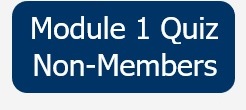 To Take the Quiz and Receive a Certificate of Completion for this Module
To Take the Quiz and Receive a Certificate of Completion for this ModuleIf you are a current NAWM Member, Log In here. If you are not an NAWM Member, there is a $25.00 USD fee per module quiz. To proceed with payment and access the module quiz, select the Module 1 Quiz button to transfer to the ClassMarker system. Upon successful completion of the module quiz, you will be eligible for a Certificate of Completion for 1.5 hours of training.
Module 2: An Ecological Framework for Reviewing Compensatory Mitigation: Abiotic Processes
PRESENTERS
• NAWM Introduction [PowerPoint Presentation]
• Lenore Vasilas, USDA Natural Resources Conservation Service [PowerPoint Presentation]
• Walter I. Priest, III, Wetland Design [PowerPoint Presentation]
• Steve Eggers, U.S. Army Corps of Engineers, St. Paul District [PowerPoint Presentation]
ABSTRACT
This training module discusses how to evaluate abiotic processes--soils and hydrology--critical to designing wetland restoration projects that will achieve project objectives and meet performance standards. Presenters focus on both abiotic and biotic characteristics of soils and their functions, review specific considerations with respect to hydrology and soils in tidal restoration projects, and describe a process for developing hydrology-based performance standards in freshwater systems.
LEARNING OBJECTIVES
- Objective #1 – Understand the five primary functions of tidal wetlands and how to determine if proposed design is realistic for the site.
- Objective #2 – Understand how to evaluate plan for appropriate tidal hydrology, elevation, soil composition, plant selection and biological benchmarks.
- Objective #3 – Understand how to monitor and review monitoring reports to ensure performance targets have been met.
- Objective #4 – Understand the components of and how to develop appropriate performance standards, and how performance standards can be used to achieve the correct trajectory for meeting goals/objectives.
- Objective #5 – Understand how to identify and use reference wetlands for development of performance standards.
- Objective #6 – Understand how soil, landscape and hydrology relate to your mitigation design and affect the functions of your mitigation site.
Please click only once on each video recording to view in this window.
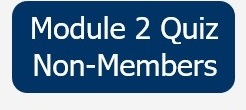 To Take the Quiz and Receive a Certificate of Completion for this Module
To Take the Quiz and Receive a Certificate of Completion for this ModuleIf you are a current NAWM Member, Log In here. If you are not an NAWM Member, there is a $25.00 USD fee per module quiz. To proceed with payment and access the module quiz, select the Module 1 Quiz button to transfer to the ClassMarker system. Upon successful completion of the module quiz, you will be eligible for a Certificate of Completion for 1.5 hours of training.
Module 3: An Ecological Framework for Reviewing Compensatory Mitigation: Biotic Processes
PRESENTERS
- NAWM Introduction [PowerPoint Presentation]
- Matt Gause, Westervelt Ecological Services [PowerPoint Presentation]
- Mick Micacchion, The Nature Conservancy and Midwest Biodiversity Institute [PowerPoint Presentation]
- Gretchen Coffman, University of San Francisco [PowerPoint Presentation]
ABSTRACT
This training module provides information about how to evaluate biotic processes—plants, animals, etc. and explore 1) how they are linked to hydrology, soils and other biotic characteristics, 2) how biotic elements provide indicators of wetland health and function and 3) how to measure progress using performance standards and monitoring plans. The use of and selection of reference wetlands to determine appropriate biological communities to restore (e.g., planting palettes) is explored. By linking all these elements together presenters provide insights into how to manage abiotic and biotic elements to restore high quality, high functioning wetlands. These topics are explored using examples of freshwater wetlands including vernal pools, floodplains, riverine and coastal projects.
LEARNING OBJECTIVES
- Objective #1 – Understand the biotic and abiotic characteristics, elements, and functions of riverine wetlands and vernal pools.
- Objective #2 – Learn about performance standards for riverine wetlands and vernal pools.
- Objective #3 – Learn best practices for monitoring riverine wetlands and vernal pools.
- Objective #4 – Understand how the abiotic components impact the biotic components of a mitigation wetland.
- Objective #5 – Understand how to characterize reference condition.
- Objective #6 – Understand how to develop IBIs and set quantitative ecological performance standards that are achievable and reasonable.
Please click only once on each video recording to view in this window.
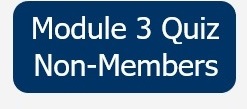 To Take the Quiz and Receive a Certificate of Completion for this Module
To Take the Quiz and Receive a Certificate of Completion for this Module
If you are a current NAWM Member, Log In here. If you are not an NAWM Member, there is a $25.00 USD fee per module quiz. To proceed with payment and access the module quiz, select the Module 1 Quiz button to transfer to the ClassMarker system. Upon successful completion of the module quiz, you will be eligible for a Certificate of Completion for 1.5 hours of training.
![]()
Webinar 4: An Ecological Framework for Reviewing Compensatory Mitigation: Plan Review
PRESENTERS
- NAWM Introduction [PowerPoint Presentation]
- Steve Martin, Environmental Scientist, Institute for Water Resources, U.S. Army Corps of Engineers [PowerPoint Presentation]
- Michelle Mattson, Environmental Scientist, Institute for Water Resources, U.S. Army Corps of Engineers [PowerPoint Presentation]
- Michael S. Rolband, P.E., P.W.S., P.W.D., Wetland Studies and Solutions, Inc. [PowerPoint Presentation]
- Karen Greene, National Oceanic and Atmospheric Administration, National Marine Fisheries Service (NOAA Fisheries) [PowerPoint Presentation]
ABSTRACT
The training module discusses how reviewers can evaluate whether a project as proposed is likely to achieve its objectives by examining some of the most important aspects of a project. Examples (including both successful and less than successful projects) from riverine, palustrine freshwater and coastal projects was provided to highlight the importance of site selection, water budgets, soils, monitoring, adaptation, and resiliency in evaluating a restoration plan.
LEARNING OBJECTIVES
- Objective #1 – Learn about why monitoring is important and how it is used.
- Objective #2 – Understand what the key elements are that should be included in a monitoring plan and how to assess parameters and performance.
- Objective #3 – Understand the important characteristics to look for in site selection and the baseline information needed for selection when evaluating a proposed site.
- Objective #4 – Understand how to assess if a proposed site will meet watershed needs and what to look for in a hydrograph.
- Objective #5 – Learn important questions a plan reviewer should ask the plan designer.
- Objective #6 – Understand water budget modeling approaches and limitations.
Please click only once on each video recording to view in this window.
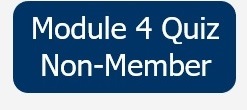 To Take the Quiz and Receive a Certificate of Completion for this Module
To Take the Quiz and Receive a Certificate of Completion for this ModuleIf you are a current NAWM Member, Log In here. If you are not an NAWM Member, there is a $25.00 USD fee per module quiz. To proceed with payment and access the module quiz, select the Module 1 Quiz button to transfer to the ClassMarker system. Upon successful completion of the module quiz, you will be eligible for a Certificate of Completion for 1.5 hours of training.
Webinar 5: An Ecological Framework for Reviewing Compensatory Mitigation: Coherent Plans – Goals, Objectives, Performance Standards, Outcomes and Monitoring
PRESENTERS
- NAWM Introduction [PowerPoint Presentation]
- Eric Stein, Principal Scientist, Southern California Coastal Water Research Project [PowerPoint Presentation]
- Mick Micacchion, Professional Wetland Scientist and Restoration Ecologist, The Nature Conservancy [PowerPoint Presentation]
- Anthony Zemba, Environmental Specialist, Certified Ecologist/Soil Scientist, Fitzgerald & Halliday, Inc. [PowerPoint Presentation]
ABSTRACT
This training module outlines key considerations for constructing effective performance standards that account for a broad set of physical, hydrological, and biological functions. It also covers practical considerations such alternative ways to approach “reference”, timing of when different standards should be met, and ways to develop standards that are resilient to changing conditions over time. Critical data management approaches that can improve accessibility of monitoring data necessary to evaluate standards over time are shared. An example of a condition-based approach used in Ohio is shared for assessing functional replacement for wetland mitigation. Case studies from the east coast are also included, showing how some restoration sites have failed and why, and how tiering, more attention to site-specific attributes, and the consideration of other ecological factors in the mitigation planning process may help to improve success of a mitigation site.
LEARNING OBJECTIVES
- Objective #1 – Understand what some of the key issues and challenges are for wetland mitigation depending on your approach.
- Objective #2 – Understand the ecological considerations that are key for mitigation monitoring and selection of performance metrics such as multi-metric biological indices and hydrological and biogeochemical indicators.
- Objective #3 – Learn key attributes for good performance standards.
- Objective #4 – Learn about factors that influence wetland plant communities.
- Objective #5 – Understand how a condition-based approach to assessing functional replacement can be developed and used.
- Objective #6 – Understand how a rapid assessment methodology can be used to measure functional capacity.
Please click only once on each video recording to view in this window.
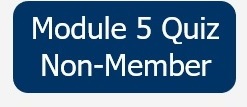 To Take the Quiz and Receive a Certificate of Completion for this Module
To Take the Quiz and Receive a Certificate of Completion for this Module
If you are a current NAWM Member, Log In here. If you are not an NAWM Member, there is a $25.00 USD fee per module quiz. To proceed with payment and access the module quiz, select the Module 1 Quiz button to transfer to the ClassMarker system. Upon successful completion of the module quiz, you will be eligible for a Certificate of Completion for 1.5 hours of training.
![]()
Webinar 6: An Ecological Framework for Reviewing Compensatory Mitigation: From Conceptual to Final Design
PRESENTERS
- NAWM Introduction [PowerPoint Presentation]
- Matt Gause, Ecological Resources & Land Stewardship Director, Westervelt Ecological Services [PowerPoint Presentation]
Larry Urban, Wetland Mitigation Specialist, Montana Department of Transportation [PowerPoint Presentation] - Jeanne Richardson, Mitigation Subject Matter Expert, U.S. Army Corps of Engineers, Norfolk District Regulatory Branch [PowerPoint Presentation]
ABSTRACT
This training module identifies general best practices for evaluating conceptual designs, illustrates how designs become more refined as new information comes to light and how to best remain engaged in the design process while working towards a final, implementable design. Mitigation projects generally follow a three-phased approach to design prior to construction and implementation on the ground. These phases consist of Conceptual, Preliminary, and Final Design efforts. Examples of some of the different phases for different types of projects that may be undertaken are shared. The perspectives of Army Corps of Engineers District regulators are discussed, covering what information is necessary, when is that information necessary, and the level of detail required at each submittal milestone for review and approval. Specific examples are shared that serve to demonstrate some lessons learned and how District requirements have changed over the years.
LEARNING OBJECTIVES
- Objective #1 – Understand what information is necessary and when it is necessary.
- Objective #2 – Understand the level of detail required at each submittal milestone for review and approval.
- Objective #3 – Learn about the phases of design and how designs become more refined as new information comes to light.
- Objective #4 – Learn general best practices for evaluating conceptual designs.
- Objective #5 – Understand how designs become more refined as new information comes to light.
- Objective #6 – Learn how to best remain engaged in the design process while working towards a final, implementable design.
Please click only once on each video recording to view in this window.
To Take the Quiz and Receive a Certificate of Completion for this Module
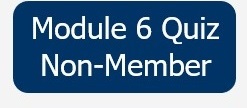
If you are a current NAWM Member, Log In here. If you are not anNAWM Member, there is a $25.00 USD fee per module quiz. To proceed with payment and access the module quiz, select the Module 1 Quiz button to transfer to the ClassMarker system. Upon successful completion of the module quiz, you will be eligible for a Certificate of Completion for 1.5 hours of training.
Webinar 7: An Ecological Framework for Reviewing Compensatory Mitigation: Anticipating the Unexpected
PRESENTERS
- NAWM Introduction [PowerPoint Presentation]
- W. Lee Daniels, Thomas B. Hutcheson Professor of Environmental Soil Science, Virginia Tech [PowerPoint Presentation]
- Shawn Chartrand, Postdoctoral Research Fellow, Vanderbilt University [PowerPoint Presentation]
- Krystel Bell, Regulatory Program Manager, U.S. Army Corps of Engineers [PowerPoint Presentation]
ABSTRACT
This training modules covers issues related to compaction of created wetland subsoils which is often required for stability and to limit groundwater losses. Failure to provide a suitably loosened surface soil rooting media is a common problem, particularly for deeper rooted forested wetlands. Near-surface compaction can also drastically alter hydroperiod regimes away from intended target references. Remedies are shared such as managing soil placement and tillage operations in concert with seasonal/moisture constraints, preconstruction testing, recognition and avoidance, and remedial measures including heavy liming and organic amendments and/or keeping these materials saturated year-round. Discussions also include how post-construction plans can detail actions to address issues related to routine maintenance, adaptive management, and remediation in order to set the constructed project on a trajectory to realize the restoration objectives. The San Clemente Dam Removal project is reviewed to help illustrate routine maintenance, adaptive management and remediation, within the context of an action that will reset the Carmel River corridor to a new physical state. The Army Corps of Engineers’ perspective for review, approval, and oversight of mitigation projects where adaptive management has been used is also shared.
LEARNING OBJECTIVES
- Objective #1 – Learn about the Corps’ regulatory context for adaptive management.
- Objective #2 – Understand some project planning and post-project implementation considerations.
- Objective #3 – Understand the causes of soil compaction and how it impacts wetland hydrology.
- Objective #4 – Understand how acid-sulfate impacts wetland hydrology.
- Objective #5 – Understand ways in which the design process can reduce risk.
- Objective #6 – Learn about the differences between routine maintenance, adaptive management, and remediation and some proactive strategies to use for adaptive management.
Please click only once on each video recording to view in this window.
To Take the Quiz and Receive a Certificate of Completion for this Module

If you are a current NAWM Member, Log In here. If you are not an NAWM Member, there is a $25.00 USD fee per module quiz. To proceed with payment and access the module quiz, select the Module 1 Quiz button to transfer to the ClassMarker system. Upon successful completion of the module quiz, you will be eligible for a Certificate of Completion for 1.5 hours of training.
![]()
Webinar 8: An Ecological Framework for Reviewing Compensatory Mitigation: Oversight and Compliance
PRESENTERS
- NAWM Introduction [PowerPoint Presentation]
- Kristina Hall, U.S. Army Corps of Engineers [PowerPoint Presentation]
- Sarah Woodford, Virginia Department of Environmental Quality [PowerPoint Presentation]
- Ashely Zavagno, CA WRA, Inc. [PowerPoint Presentation]
ABSTRACT
This training module discusses oversight and compliance from the perspective of a Corps Regulator as well as important “touch points” in mitigation plan review, approval, implementation, monitoring and long-term management. Examples of effective adjustment of anticipated outcomes are given along with flexibility in the Regulator’s oversight of the compensatory mitigation process. Oversight tools that are used in Virginia in the regulation of mitigation banks and in-lieu fee programs are also discussed. In addition, through several case studies, the presentation provides a state perspective of the communication and resolutions that developed when non-compliance or other issues are identified. Challenges faced by project sponsors and consultants are shared, covering issues that have occurred during the development, implementation, monitoring, and long-term management stages of mitigation projects. Potential solutions and best management practices are offered.
LEARNING OBJECTIVES
- Objective #1 – Learn about the challenges project sponsor teams face and ways to improve coordination and communication between project sponsors and regulators.
- Objective #2 – Learn about some ways to improve performance standards, adaptive management plans and outcomes.
- Objective #3 – Learn the basics of oversight and compliance and the Corps’ process for them.
- Objective #4 – Learn about some ways in which oversight and compliance issues may be resolved.
- Objective #5 – Learn about Virginia’s oversight and compliance program and the tools it uses.
- Objective #6 – Learn how Virginia works with sponsors, permittees and other agencies to provide oversight and compliance.
Please click only once on each video recording to view in this window.
To Take the Quiz and Receive a Certificate of Completion for this Module

If you are a current NAWM Member, Log In here. If you are not an NAWM Member, there is a $25.00 USD fee per module quiz. To proceed with payment and access the module quiz, select the Module 1 Quiz button to transfer to the ClassMarker system. Upon successful completion of the module quiz, you will be eligible for a Certificate of Completion for 1.5 hours of training.
Webinar 9: An Ecological Framework for Reviewing Compensatory Mitigation: How interests in property may affect mitigation projects
PRESENTERS
- NAWM Introduction [PowerPoint Presentation]
- Paul Loftus, U.S. Army Corps of Engineers [PowerPoint Presentation]
- Kara Hellige, U.S. Army Corps of Engineers [PowerpPoint Presentation]
- Robin Bedenbaugh, RES [PowerPoint Presentation]
ABSTRACT
To ensure that mitigation projects are provided long-term protection through real estate or other available mechanisms it is necessary to understand basic concepts of property law, including title concepts, encumbrances of property, priority of interests, and potentially severed interests or estates. The goal of this training module is to share real estate legal concepts within the framework of planning for successful site protection for mitigation sites, and to address issues arising from prior and severed interests in property pledged to protect mitigation projects. Information is shared to shed light on questions regarding self-sustaining aquatic resource mitigation and restoration projects, methods to protect aquatic resources from future water demands in perpetuity, and federal and state regulatory requirements. Examples are provided of how water rights have governed mitigation success and failures within arid regions. Property interests are also discussed, including how they can affect mitigation projects as well as the numerous other associated interests that can compound the effects on a project’s costs and overall feasibility. Additional examples are provided of mitigation projects that were able to successfully overcome these challenges and another project that was unable to overcome the challenges.
LEARNING OBJECTIVES
- Objective #1 – Understand the basics about water rights in the arid West and how they might affect a compensatory mitigation project.
- Objective #2 – Learn about some approaches available to address interests in property and some important questions to ask prior to mitigation site selection and design.
- Objective #3 – Learn about some of the legal site protections that may exist on your mitigation site.
- Objective #4 – Understand some of the differences between the available legal instruments for property interest holders.
- Objective #5 – Learn about some of the factors regarding property interests that may affect the cost and feasibility of a mitigation project.
- Objective #6 – Learn some best practices in regard to identifying and managing various interests in property.
Please click only once on each video recording to view in this window.
To Take the Quiz and Receive a Certificate of Completion for this Module

If you are a current NAWM Member, Log In here. If you are not an NAWM Member, there is a $25.00 USD fee per module quiz. To proceed with payment and access the module quiz, select the Module 1 Quiz button to transfer to the ClassMarker system. Upon successful completion of the module quiz, you will be eligible for a Certificate of Completion for 1.5 hours of training.
![]()
You will need to develop username and password in ClassMarker for each online quiz. Once you click on the quiz link, you will be prompted again to provide your name and email address. This will be used to process your certificate.
Participants who both view the module presentation and complete the module quiz are eligible for an NAWM Certificate of Completion for 1.5 hours of training.
To receive your certificate, you must BOTH:
- Certify that you completed viewing the Compensatory Mitigation training module video presentation. Answering “no” will result in no certificate being issued.
- Complete all knowledge quiz questions with the required minimum of eighty percent (80%) of the questions answered correctly. You will be provided two attempts to take the quiz for the module. If at the end of your second attempt you have not been able to achieve a minimum score of eighty percent, you will not be eligible to receive a certificate.
You will be prompted to download your Certificate of Completion from ClassMarker after you complete the quiz. Once you download your certificate, you can then submit the certificate to the accrediting organization of your choice to potentially receive continuing education units/credits.
If you did not answer at least 80% of the quiz questions correct on your first attempt, you can re-take the test one more time (total of two attempts). Return to the NAWM module page and START the test again (vs Resume).
You must use the same email, username and password for the second quiz attempt for this same module. ClassMarker will recognize your email for the specific training module and will not charge you for the second attempt. If you do not achieve at least 80% of the quiz questions correct on your second attempt, you will not be eligible to receive a Certificate of Completion.
We encourage you to go to the NAWM.org website and become a member so that you can receive Certificates of Completion (trainings) and Certificates of Participation (live webinars) at no charge for the next 12 months.
If you have any questions, please contact Laura Burchill at laura@nawm.org or contact the NAWM office at (207) 892-3399.
![]()
Building State and Tribal Wetland Program Regulatory Capacity: Findings from ASWM’s Multi-year Project
Held Tuesday, March 23, 2021 - 3:00 – 4:30 pm Eastern
INTRODUCTION
- Marla Stelk, Executive Director, Association of State Wetland Managers [POWERPOINT PRESENTATION]
PRESENTERS
- Brenda Zollitsch, Association of State Wetland Managers [POWERPOINT PRESENTATION]
- Yvonne Vallette, U.S. Environmental Protection Agency, Region 10 [POWERPOINT PRESENTATION]
- Matt Schweisberg, Wetland Strategies and Solutions [POWERPOINT PRESENTATION]
ABSTRACT
This final webinar in our Wetland Regulatory Capacity Building Series shared final findings and products from ASWM’s multi-year project. The webinar highlighted key takeaways on fundamental building blocks for regulatory development, including addressing regulatory gaps, identifying sustainable funding strategies and tips on working with state legislatures to support regulatory programs. Next, the webinar highlighted EPA Wetland Program Plans as strategic planning tools and potential funding for states and tribes developing regulatory program elements. The webinar then covered ways to build compliance and enforcement capacity, possible value-added from integrating with other state agency programs, and ways to expand reach through partnering with state wetland associations. While the project primarily focused on state agency considerations, findings may also be useful to tribes. The final segment of the webinar delved a little deeper into strategic planning, sharing a new tool from ASWM – an extensive checklist that walks interested parties through considerations around planning for regulatory enhancements. The webinar ended sharing some strategies for effective communication around regulatory capacity building efforts and sharing of how to access ASWM’s new regulatory capacity building resources.
BIOS
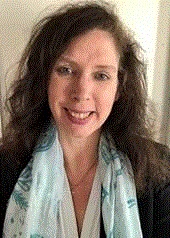 Brenda Zollitsch is Senior Policy Analyst at the Association of State Wetland Managers. Over the last two years, Brenda has led ASWM’s Wetland Regulatory Capacity Building Project, coordinating the project workgroup, dialogues and research to develop the resources that will be presented during this webinar. At ASWM, Brenda conducts research and policy analysis on wetland and stream issues; works to analyze and respond to emerging wetland-related rules and regulations; manages projects; and designs, coordinates and evaluates training for wetland professionals. Brenda is also currently leading a multi-year national project on assumption of the Clean Water Act Section 404 Program. Brenda earned a double Master’s degree in International Relations and Environmental Resource Management from Boston University and her PhD in Public Policy from the University of Southern Maine’s Muskie School of Public Service
Brenda Zollitsch is Senior Policy Analyst at the Association of State Wetland Managers. Over the last two years, Brenda has led ASWM’s Wetland Regulatory Capacity Building Project, coordinating the project workgroup, dialogues and research to develop the resources that will be presented during this webinar. At ASWM, Brenda conducts research and policy analysis on wetland and stream issues; works to analyze and respond to emerging wetland-related rules and regulations; manages projects; and designs, coordinates and evaluates training for wetland professionals. Brenda is also currently leading a multi-year national project on assumption of the Clean Water Act Section 404 Program. Brenda earned a double Master’s degree in International Relations and Environmental Resource Management from Boston University and her PhD in Public Policy from the University of Southern Maine’s Muskie School of Public Service
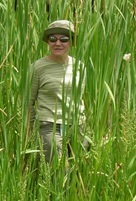 Yvonne Vallette is an Aquatic Ecologist with the U.S. Environmental Protection Agency (EPA). For the last twenty-five years she has worked at EPA Region 10’s Oregon Operations Office in Portland serving as the Region’s coordinator for enhancing State and Tribal Programs. Her work with EPA is focused on the technical and policy aspects of the Clean Water Act (CWA), including Section 404. Her practicable experience includes work in: aquatic resource monitoring and assessment, 404 enforcement, compensatory mitigation, impact analysis, CWA jurisdiction, 404 program assumption, and aquatic resources restoration.
Yvonne Vallette is an Aquatic Ecologist with the U.S. Environmental Protection Agency (EPA). For the last twenty-five years she has worked at EPA Region 10’s Oregon Operations Office in Portland serving as the Region’s coordinator for enhancing State and Tribal Programs. Her work with EPA is focused on the technical and policy aspects of the Clean Water Act (CWA), including Section 404. Her practicable experience includes work in: aquatic resource monitoring and assessment, 404 enforcement, compensatory mitigation, impact analysis, CWA jurisdiction, 404 program assumption, and aquatic resources restoration.
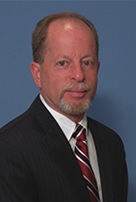 Matt Schweisberg is the Principal of Wetland Strategies and Solutions, LLC, where he provides policy, regulatory and technical advice and assistance for clients seeking to navigate a wide range of regulatory and non-regulatory issues related to wetlands and other aquatic resources. He works throughout the U.S. Matt is a Professional Wetland Scientist under the Professional Certification Program of the Society of Wetland Scientists. He is a retired federal wetlands ecologist and wildlife biologist who spent over 32 years with the U. S. Environmental Protection Agency at its HQ office in Washington, D.C. and New England Region office in Boston. Matt served as Chief of the New England Region’s Wetlands Protection Program and Senior Wetland Ecologist, and on national work groups developing guidance and regulations on Clean Water Act jurisdiction. He has testified before federal grand juries and served several times as an expert witness in federal, state, and private litigation. He co-instructs a week-long intensive course on wetland identification and delineation at the Eagle Hill Institute in Maine, and has taught courses in wetland regulation, restoration and creation, wetland ecology, and wetland identification and delineation for federal and state agencies, academic organizations, and environmental consultants. He received his degree in Wildlife Management from the University of Maine..
Matt Schweisberg is the Principal of Wetland Strategies and Solutions, LLC, where he provides policy, regulatory and technical advice and assistance for clients seeking to navigate a wide range of regulatory and non-regulatory issues related to wetlands and other aquatic resources. He works throughout the U.S. Matt is a Professional Wetland Scientist under the Professional Certification Program of the Society of Wetland Scientists. He is a retired federal wetlands ecologist and wildlife biologist who spent over 32 years with the U. S. Environmental Protection Agency at its HQ office in Washington, D.C. and New England Region office in Boston. Matt served as Chief of the New England Region’s Wetlands Protection Program and Senior Wetland Ecologist, and on national work groups developing guidance and regulations on Clean Water Act jurisdiction. He has testified before federal grand juries and served several times as an expert witness in federal, state, and private litigation. He co-instructs a week-long intensive course on wetland identification and delineation at the Eagle Hill Institute in Maine, and has taught courses in wetland regulation, restoration and creation, wetland ecology, and wetland identification and delineation for federal and state agencies, academic organizations, and environmental consultants. He received his degree in Wildlife Management from the University of Maine..
![]()
View Past Wetland Regulatory Capacity Building Webinars Here
| 2020 |
View a List of Wetland Regulatory Capacity Building Webinar Recordings Here
Publications
 The Association conducts research and publishes reports, guidebooks, news articles, brochures, white papers, and summaries of findings of symposia and workshops. These are available electronically to all interested individuals and organizations.
The Association conducts research and publishes reports, guidebooks, news articles, brochures, white papers, and summaries of findings of symposia and workshops. These are available electronically to all interested individuals and organizations.
